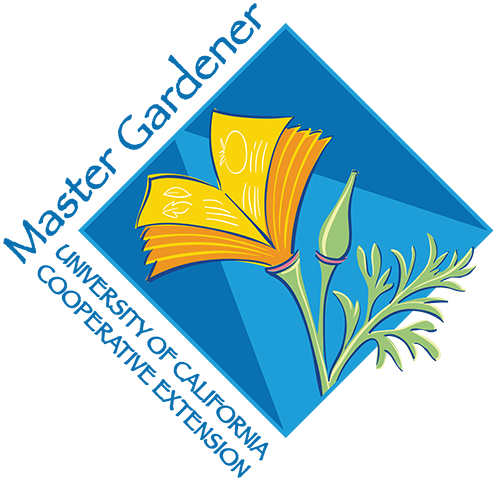Extension Foundation Online Campus
Результати пошуку: 548
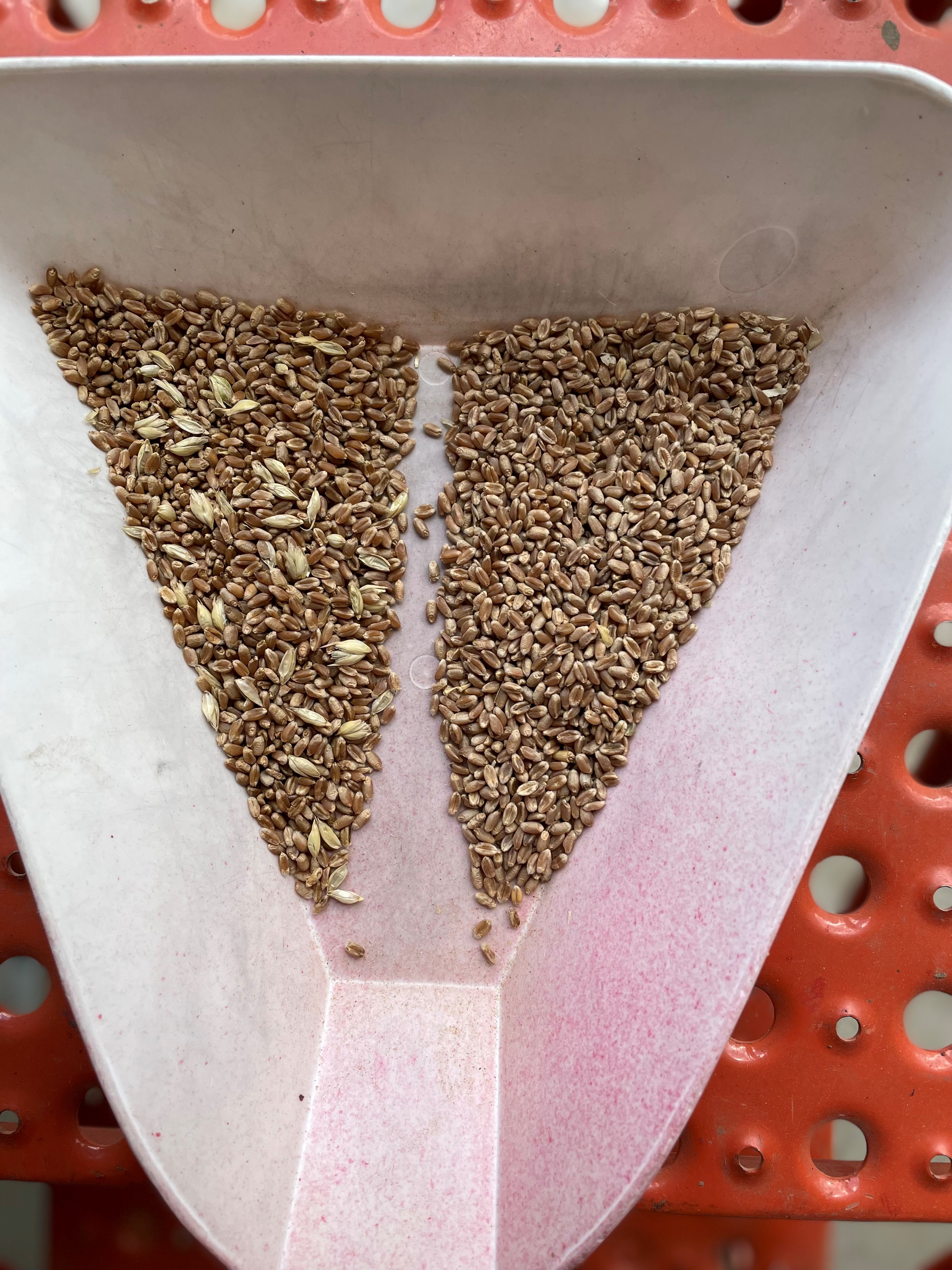
Summary: Seed that comes from the field is never pure, it contains sticks, stems, debris, soil, weed and other crop seeds, trash, and insects. In its simplest form, conditioning is the process of cleaning the seed and removing impurities and contaminates so that the end user receives pure, high-quality seed ready for planting. This course is first in a series which will walk you through foundational concepts of seed conditioning.
Upskill Credentials: If you finish the entire course including passing the quiz with a score of 80% or better (which you can take up to 3 times) and filling out the short 5 mins feedback survey, then you will earn a badge certificate of completion. This course has been approved for 2 Crop Management CEUs through the national Certified Crop Adviser program.
Time Required: We estimate it will take you 2 hours in total to complete the course. You can work on it at your own pace and do not have to complete it in one setting.
ADA Accessibility: We have done our best to follow ADA best practices. Let us know if you run into any problems or require further accommodations.
If you have any questions, please contact your instructor, Laura Pottorff, M.S., Director of Seed Program at: Laura.Pottorff@colostate.edu
Acknowledgements: This online micro-credential upskilling course is offered through the CSU Ag Upskilling program. Development of this content was supported in part by funding from SyncUp Colorado, administered by Colorado State University (2022).
The enrollment fee for this course is $50.
You may also choose to purchase all 7 of the CSU Upskilling Seed Conditioning Courses for a discounted price of $300. To do so, click the link below.
- Teacher: Tamla Blunt
- Teacher: Deana Namuth-Covert
- Teacher: Rick Novak
- Teacher: Laura Pottorff
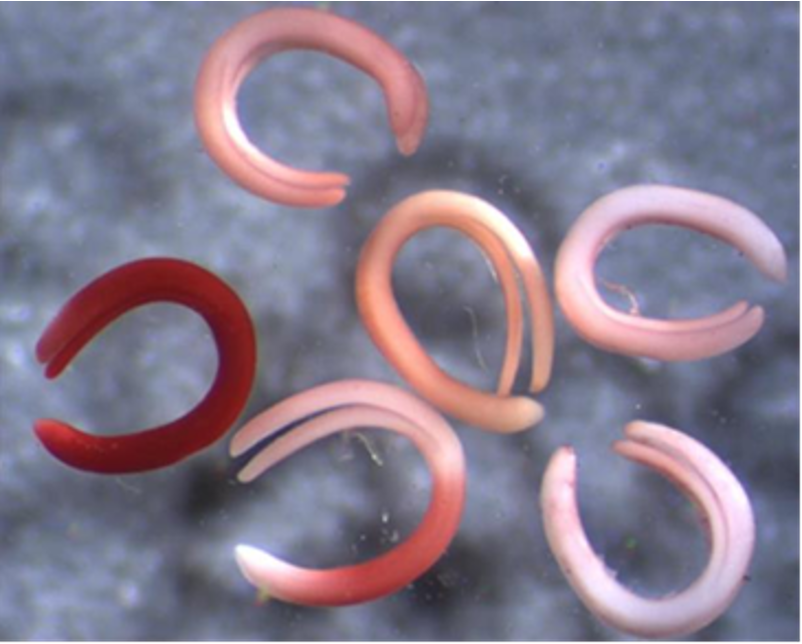
Summary: Seed conditioners play a unique role in modern seed production. Conditioners have the power to increase the quality of poor seed, and decrease the quality of good seed. While a grower has the ability to fine tune the conditions under which the seed crop is grown with fertilizer and water inputs, pest control and tillage to maximize quality, it is up to the conditioner to create the highest quality product out of what they are given. This course is second in a series which will walk you through foundational concepts of seed conditioning.
Upskill Credentials: If you finish the entire course including passing the quiz with a score of 80% or better (which you can take up to 3 times) and filling out the short 5 mins feedback survey, then you will earn a badge certificate of completion. This course has been approved for 2 Crop Management CEUs through the national Certified Crop Adviser program.
Time Required: We estimate it will take you 2 hours in total to complete the course. You can work on it at your own pace and do not have to complete it in one setting. Click on the eBook link below to begin.
ADA Accessibility: We have done our best to follow ADA best practices. Let us know if you run into any problems or require further accommodations.
If you have any questions, please contact your instructor, Laura Pottorff, M.S., Director of Seed Program at: Laura.Pottorff@colostate.edu
Acknowledgements: This online micro-credential upskilling course is offered through the CSU Ag Upskilling program. This material is based upon work that is supported by the National Institute of Food and Agriculture, U.S. Department of Agriculture, under award number 2023-38640-39571 through the Western Sustainable Agriculture Research and Education program under project number WPDP24-021. USDA is an equal opportunity employer and service provider. Any opinions, findings, conclusions, or recommendations expressed in this publication are those of the author(s) and do not necessarily reflect the view of the U.S. Department of Agriculture.
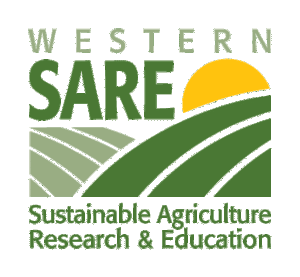
![]()

The enrollment fee for this course is $50.
You may also choose to purchase all 7 of the CSU Upskilling Seed Conditioning Courses for a discounted price of $300. To do so, click the link below.
- Teacher: Tamla Blunt
- Teacher: Deana Namuth-Covert
- Teacher: Rick Novak
- Teacher: Laura Pottorff
Summary: This lesson discusses the importance of plant breeding through history, how one would recognize if the seed they are conditioning is protected by intellectual property rights; and more importantly, what are the mandatory best practices for seed conditioners when handling plant variety protected seed. This course is third in a series which will walk you through foundational concepts of seed conditioning.
Upskill Credentials: If you finish the entire course including passing the quiz with a score of 80% or better (which you can take up to 3 times) and filling out the short 5 mins feedback survey, then you will earn a badge certificate of completion. This course has been approved for 2 Crop Management CEUs through the national Certified Crop Adviser program.
Time Required: We estimate it will take you 2 hours in total to complete the course. You can work on it at your own pace and do not have to complete it in one setting. Click on the eBook link below to begin.
ADA Accessibility: We have done our best to follow ADA best practices. Let us know if you run into any problems or require further accommodations.
If you have any questions, please contact your instructor, Laura Pottorff, M.S., Director of Seed Program at: Laura.Pottorff@colostate.edu
Acknowledgements: This online micro-credential upskilling course is offered through the CSU Ag Upskilling program. This material is based upon work that is supported by the National Institute of Food and Agriculture, U.S. Department of Agriculture, under award number 2023-38640-39571 through the Western Sustainable Agriculture Research and Education program under project number WPDP24-021. USDA is an equal opportunity employer and service provider. Any opinions, findings, conclusions, or recommendations expressed in this publication are those of the author(s) and do not necessarily reflect the view of the U.S. Department of Agriculture.

![]()

The enrollment fee for this course is $50.
You may also choose to purchase all 7 of the CSU Upskill Seed Conditioning Courses for a discounted price of $300. To do so, click the link below.
- Teacher: Tamla Blunt
- Teacher: Deana Namuth-Covert
- Teacher: Rick Novak
- Teacher: Laura Pottorff
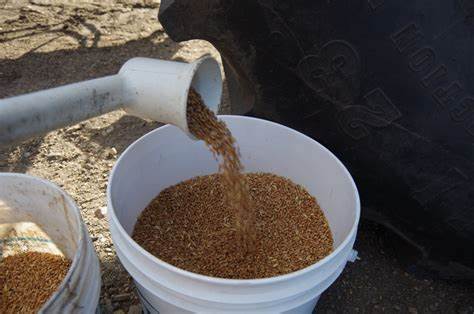
Summary: Seed conditioners process, handle and store seed. All these actions may influence the quality of the seed and therefore the conditioner may share in potential liability should the seed quality be compromised, contaminated or damaged during possession. Documenting the contents of seed received helps protect the conditioner from potential liability. Seed sampling should occur at multiple stages of receiving, processing and handling; it is important to select a representative sample of a seed lot. When a sample is created and viewed by conditioning personnel or sent to a testing laboratory the results obtained from the test are used to indicate the overall quality of the entire lot, make decisions as to what machinery should be used and eventually how to label the finished product. As a result, using a careful and representative method of sampling is required. This course is fourth in a series which will walk you through foundational concepts of seed conditioning.
Upskill Credentials: If you finish the entire course including passing the quiz with a score of 80% or better (which you can take up to 3 times) and filling out the short 5 mins feedback survey, then you will earn a badge certificate of completion. This course has been approved for 2 Crop Management CEUs through the national Certified Crop Adviser program.
Acknowledgements: This online micro-credential upskilling course is offered through the CSU Ag Upskilling program. This material is based upon work that is supported by the National Institute of Food and Agriculture, U.S. Department of Agriculture, under award number 2023-38640-39571 through the Western Sustainable Agriculture Research and Education program under project number WPDP24-021. USDA is an equal opportunity employer and service provider. Any opinions, findings, conclusions, or recommendations expressed in this publication are those of the author(s) and do not necessarily reflect the view of the U.S. Department of Agriculture.

![]()

The enrollment fee for this course is $50.
You may also choose to purchase all 7 of the CSU Upskilling Seed Conditioning Courses for a discounted price of $300. To do so, click the link below.
- Teacher: Tamla Blunt
- Teacher: Deana Namuth-Covert
- Teacher: Rick Novak
- Teacher: Laura Pottorff
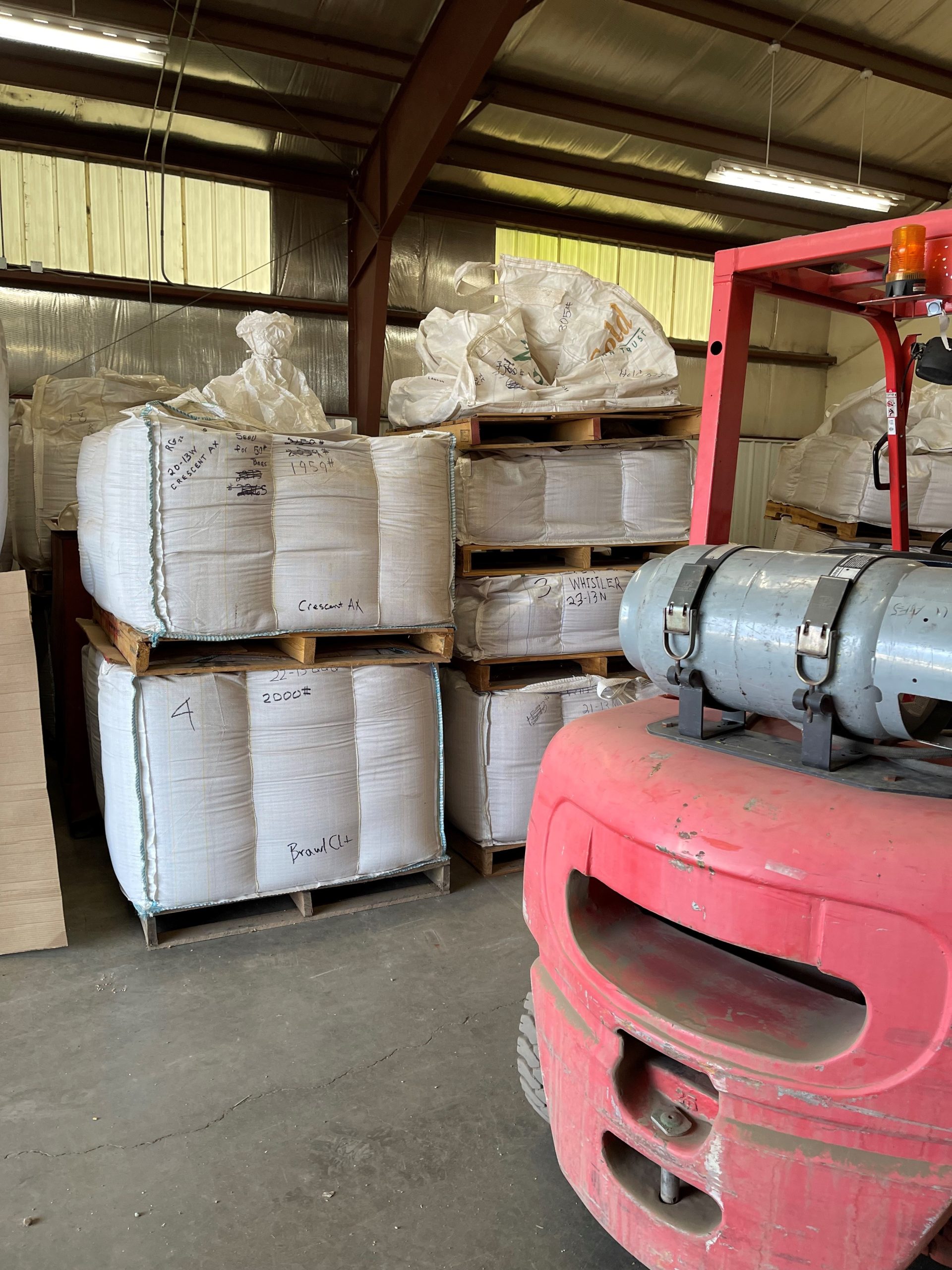
Summary: Seed lots are not always used entirely each planting season. Seed that was purchased or grown this year may require storage to be carried over to subsequent planting seasons. When seed is carried over, it is expected to be of the same quality as seed that was recently produced. As a result, understanding the best possible methods for carrying over seed to maintain high germination and viability is crucial.
This course is sixth in a series which will walk you through foundational concepts of seed conditioning.Upskill Credentials: If you finish the entire course including passing the quiz with a score of 80% or better (which you can take up to 3 times) and filling out the short 5 mins feedback survey, then you will earn a badge certificate of completion. This course has been approved for 2 Crop Management CEUs through the national Certified Crop Adviser program.
Acknowledgements: This online micro-credential upskilling course is offered through the CSU Ag Upskilling program. This material is based upon work that is supported by the National Institute of Food and Agriculture, U.S. Department of Agriculture, under award number 2024-68018-42796, administered by Colorado State University. USDA is an equal opportunity employer and service provider. Any opinions, findings, conclusions, or recommendations expressed in this publication are those of the author(s) and do not necessarily reflect the view of the U.S. Department of Agriculture.

The enrollment fee for this course is $50.
You may also choose to purchase all 7 of the CSU Upskilling Seed Conditioning Courses for a discounted price of $300. To do so, click the link below.
- Teacher: Tamla Blunt
- Teacher: Deana Namuth-Covert
- Teacher: Rick Novak
- Teacher: Laura Pottorff

Welcome to the online basic training for the University of Maryland Extension Master Gardener program!
- Teacher: Ashley Bachtel-Bodkins
- Teacher: Kaitlyn Baligush
- Teacher: Liz Bayer
- Teacher: Doris Behnke
- Teacher: Mikaela Boley
- Teacher: Sue Christensen
- Teacher: Sandra Gohn
- Teacher: Christine Hipple
- Teacher: Lexie Leeser
- Teacher: HowardCounty MasterGardener
- Teacher: Natasha Meehleib
- Teacher: Esther Mitchell
- Teacher: Isabel Mooney
- Teacher: Peg Nemoff
- Teacher: Stephanie Ann Pully
- Teacher: Julia Jincai Rycyna
- Teacher: BCMG Training & Development
- Teacher: Maxine Da-Som Yoon
This course has been replaced. Please visit the new course site to register and complete the course.
Transportation workers and others who need to flag traffic on public and private roadways in Nebraska who take this course will be able to successfully complete the required tasks of a flagger: Guide traffic through work areas; Protect workers; Prevent unreasonable delays for road users; and Answer motorists’ questions politely and knowledgeably.
This course is for all new certification enrollees after March 26, 2018. To access a certificate earned or finish a course begun prior to that date, visit the prior version of the course.
For information or to enroll in the 2018 course contact: Megan Patent-Nygren, University of Nebraska-Lincoln, Local Technical Assistance Program, mpatentnygren2@unl.edu
- Teacher: Megan Patent-Nygren
The audience for this course includes aspiring and practicing industrial hemp growers and interested ag service providers, including Extension educators.
As a result of participating this online proceedings, participants will learn about latest research results, production information, regulatory requirements for Vermont, and resources available regarding industrial hemp production.
Contact Susan Brouillette at susan.brouillette@uvm.edu for additional information.
- Teacher: Susan Brouillette
Participants will learn a variety of competencies related to district court administration and management. Montana Clerks of District Court have worked with the Montana State University Extension Local Government Center to develop educational curriculum. The curriculum is designed to ensure the clerks of district court across the state receive timely. relevant, and impactful training and that each clerk can demonstrate key skills to perform the duties of their position.
- Teacher: Schuyler Germann
- Teacher: Ashley Kent
- Teacher: Lydia Maunz
Participants will learn a variety of competencies related to district
court administration and management. Montana Clerks of District Court have worked with the Montana State University Extension Local Government Center to develop educational curriculum. The curriculum is designed to ensure the clerks of district court across the state receive timely. relevant, and impactful training and that each clerk can demonstrate key skills to perform the duties of their position.
- Teacher: chelsea farace
- Teacher: Schuyler Germann
- Teacher: Ashley Kent
- Teacher: Lydia Maunz
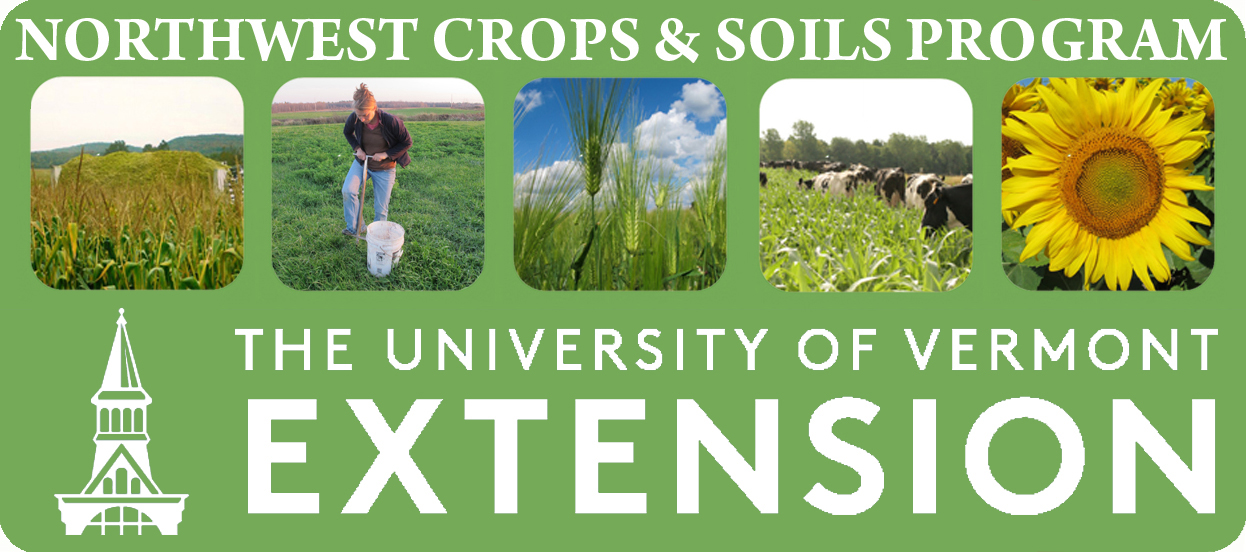
Proceedings from the 2023 Industrial Hemp Conference held virtually on February 23, 2023. The conference included education and information sharing opportunities on industrial hemp including current research, agronomics, farmer experiences with growing grain & fiber hemp, the future of hemp foods, breeding & genetics, developing a fiber enterprise, CBD economics & markets, and regulatory updates.
There are over 12 presentations covering all aspects of growing hemp!
- Teacher: Susan Brouillette
Veterans Agricultural Education and Apprenticeship Program in the Southwest
2023 Southwest Ag Summit
Course Name: Opportunities for improved Fertilizer Management in the Desert
Module 1: The Nexus of Soil Health and Soil Fertility
Dr. Debankur Sanyal, University of Arizona, Maricopa, AZ
Module 2: Opportunities for enhanced fertilizer management using precision ag methods
Pedro Andrade, University of Arizona, Maricopa, AZ
Module 3: Efficiency technologies for N and P fertilizer inputs in desert soils
Dr. Eric Ellison, Pursell Agri-Tech, LLC
Module 4: Opportunities for Optimizing Fertigation
Dr. Charles Sanchez, University of Arizona, Maricopa, AZ
The course contains video so it requires a computer that can play audio and video.
Contact and technical support: Robert Masson, masson@arizona.edu.
- Teacher: Don Dinwiddie
- Teacher: Robert Masson
Veterans Agricultural Education and Apprenticeship Program in the Southwest
2023 Southwest Ag Summit
Course Name: Irrigation Efficiency: technology updates and best practices
Module 1: Yuma County Extension Update: Soil amendments and flow meters
Robert Masson, University of Arizona, Yuma, AZ
Module 2: Drought mitigation - Some Easy Solutions
Fred Ahnert, Rain For Rent
Module 3: Guayule growth and yield responses to deficit irrigation strategies in the U.S. desert
Dr. Diaa Elshikha, University of Arizona, Maricopa, AZ
Module 4: Utilizing Drip Irrigation to Maximize Water Use in Vegetable and Alfalfa Production
Michael Bloomfield, Netafim USA
Module 5: Irrigation Efficiency in Salinas Leafy Green Production
Michael Cahn, University of California, Salinas, CA
The course contains video so it requires a computer that can play audio and video.
Contact and technical support: Robert Masson, masson@arizona.edu.
- Teacher: Don Dinwiddie
- Teacher: Robert Masson
Veterans Agricultural Education and Apprenticeship Program in the Southwest
2023 Southwest Ag Summit
Course Name: Addressing Plant Disease Challenges in Leafy Greens and Melon Production
Module 1: Updated on Thrips and INSV from 2022 lettuce season in the Salinas Valley of California
Dr. Daniel Hasegawa, USDA - ARS, Salinas, CA
Module 2: Epidemiological Factors contributing to whitefly-transmitted virus outbreaks in the southwestern melon production
Dr. Bill Wintermantel, USDA-ARS, Salinas, CA
Module 3: Downy Mildew of Spinach - a continuing conundrum & Stemphylium leaf spot on Spinach - identification and molecular differentiation of species
Dr. Jim Correll, Distinguished Professor, University of Arkansas
Module 4: Fusarium wilt and downy mildew of lettuce in the desert: current YCEDA projects and trial results
Dr. Stephanie Slinski, Associate Director, Yuma Center of Excellence for Desert Agriculture, University of Arizona
The course contains video, requiring a computer that can play audio and video.
Contact and technical support: Robert Masson, masson@arizona.edu.
- Teacher: Don Dinwiddie
- Teacher: Robert Masson
Veterans Agricultural Education and Apprenticeship Program in the Southwest
2023 Southwest Ag Summit
Course Name: Soil Health in the Desert: Combating Water Crisis in the Southwest
Module 1: Soil Health in the Desert Southwest
Dr. Debankur Sanyal , University of Arizona, Tucson, AZ
Module 2: Eco-system Balance: The Role of Human Activities in Cultivation and Land Stewardship
Yadi Wang, Arizona SOL L3C
Module 3: Nematode community as soil health indicators in low desert vegetable production
Dr. Philip Waisen, UCANR, Riverside and Imperial Counties
Module 4: Can biochar improve desert soil health?
Rivka Fidel, University of Arizona, Tucson, AZ
Module 5: Really? You can't do that here!
Anthony Bly, South Dakota State University
Module 6: Pesticide effects on soil health
Robert Masson, University of Arizona, Yuma, AZ
The course contains video so it requires a computer that can play audio and video.
Contact and technical support: Robert Masson, masson@arizona.edu.
- Teacher: Don Dinwiddie
- Teacher: Robert Masson
Veterans Agricultural Education and Apprenticeship Program in the Southwest
2023 Southwest Ag Summit
Course Name: Vegetables IPM: Emerging Technology and Crop Protection Solutions
Module 1: New and Emerging Plant Diseases
Steve Koike, Director, TriCal Diagnostics, Hollister, CA
Module 2: Recommendations in Agriculture: A Team Effort When Things Go Right or Wrong
Anthony Duttle, Rush and Duttle Consulting, Salinas, CA
The course contains video so it requires a computer that can play audio and video.
Contact and technical support: Robert Masson, masson@arizona.edu.
- Teacher: Don Dinwiddie
- Teacher: Robert Masson
Veterans Agricultural Education and Apprenticeship Program in the Southwest
2023 Southwest Ag Summit
Course Name: Innovations in Weed Control Technologies
Module 1: Smart spray technology for weed control in vegetables
Dr. Nathan Boyd, University of Florida
Module 2: Sub-Centimeter Precision Weeding and Fertilizing with Verdant Robotics - Intelligent Sharp Shooter
Curtis Garner, Verdant Robotics
Module 3: The Benefits of Smart Mechanical Cultivation
Paul Elliott, FarmWise
Module 4: High Density Crop Weeding with Style
Teric Greenan, Nexus Robotics, Inc.
The course contains video so it requires a computer that can play audio and video.
Contact and technical support: Robert Masson, masson@arizona.edu.
- Teacher: Don Dinwiddie
- Teacher: Robert Masson
VAEAPS
2023 Southwest Ag Summit
Course Name: Integrated Weed Management and Impact to Desert Agriculture
Module 1: Insights from Early Kerb Chemigation Research
Dr. Jesse Richardson, Corteva Agriscience, Mesa, AZ
Module 2: Survey of Weeds as Host of INSV in Yuma County - Results From Two Year Survey
Samuel Discua Duarte, University of Arizona, Yuma, AZ
Module 3: Integrated Weed Management - Palmer Amaranth
Jose L. Carvalho de Souza, University of Arizona, Maricopa, AZ
Module 4: Herbicide Evaluations at the Yuma Agriculture Center
Marco Pena, University of Arizona, Yuma, AZ
The course contains video so it requires a computer that can play audio and video.
Contact and technical support: Robert Masson, masson@arizona.edu.
- Teacher: Don Dinwiddie
- Teacher: Robert Masson
Veterans Agricultural Education and Apprenticeship Program in the Southwest
Course Name: 2024 Arizona Winter Citrus & Date Palm Workshop
Module 1: Lemon Variety, Rootstock, Fruit Size & Nematode Trial Research | Alternative Insecticides for Citrus Thrips Management in Lemon | Corteva Label Update for Desert Grown Citrus
Dr. Glenn Wright, Associate Professor - University of Arizona | Dr. Wilfrid Calvin, Assistant Professor & Extension Specialist | Junior Evans, Territory Manager at Corteva Agriscience
Module 2: Advancing Sustainable Organic Production Systems in Arizona | Gowan Products for Citrus | FMC Citrus Portfolio Update
Dr. Ali Mohammed — UArizona Extension - Assistant Professor & Extension Specialist | Chris Denning, Desert Sales Rep - Gowan Company USA | Danielle Kirkpatrick, Technical Service Manager, FMC
Module 3: Update on Citrus & Palm Disease | Date Palm Disease, Thinning, & Fruit Size Research Update
Dr. Alex Hu, Associate Professor, Extension Specialist, University of Arizona | Dr. Glenn Wright, Associate Professor - University of Arizona
The course contains video, requiring a computer that can play audio and video.
Contact and technical support: Robert Masson, masson@arizona.edu.
- Teacher: Don Dinwiddie
- Teacher: Robert Masson
Participants will learn a variety of competencies related to municipal government administration, finance, and management.
- Teacher: Nitasha Fazal
- Teacher: Ashley Kent
- Teacher: Lydia Maunz
- Teacher: Kate Wade
Veterans Agricultural Education and Apprenticeship Program in the Southwest
Course Name: 2024 Southwest Ag Summit
Fertilizer Management in the Desert Southwest
Module 1: Fertilizer Considerations for the Desert Southwest
Robert Masson, University of Arizona, Yuma County Cooperative Extension, Asst. AG Agent
Module 2: TRUE Organic Product Updates
Ramy Colfer, Cody Benton, and Jay Harper of TRUE Organic Products
Module 3: YARA Products Updates
Patrick Giannetti and Sebastian Korob, YARA International
Module 4: Nutrient Ag Solutions Product Update
Kyle Deol, Nutrient Ag Solutions
The course contains video so it requires a computer that can play audio and video.
Contact and technical support: Robert Masson, masson@arizona.edu.
- Teacher: Don Dinwiddie
- Teacher: Robert Masson
Veterans Agricultural Education and Apprenticeship Program in the Southwest
Course Name: 2024 Southwest Ag Summit
How Weather and Water Influence Pest Management
Module #1: Influence of Weather on Desert Insects and their Management
Dr. John Palumbo, University of Arizona, Yuma, AZ
Module #2: Water Management and Pest Management - What's the Connection?
Dr. Shaku Nair, University of Arizona, Maricopa County Cooperative Extension
The course contains video so it requires a computer that can play audio and video.
Contact and technical support: Robert Masson, masson@arizona.edu.
- Teacher: Don Dinwiddie
- Teacher: Robert Masson
Veterans Agricultural Education and Apprenticeship Program in the Southwest
Course Name: 2024 Southwest Ag Summit, New Developments In Weed Control
Module 1: New Weed Control Technologies Developed by BASF
Kevin Caffrey, BASF
Module 2: Importance of the IR-4 Project ad Impact of Arizona's Vegetable Industry
Roger Batts, IR-4 Project, North Carolina St. University
Module 3: Alternatives to Dacthal for Broccoli and Onions
Marco Pena, University of Arizona
The course contains video so it requires a computer that can play audio and video.
Contact and technical support: Robert Masson, masson@arizona.edu.
- Teacher: Don Dinwiddie
- Teacher: Robert Masson
Veterans Agricultural Education and Apprenticeship Program in the Southwest
Course Name: 2024 Southwest AG Summit
Plant Breeding Short Course: Theory, Methods, and Plant Breeding Industry
Module 1:
Plant Breeding 101:
Robert Masson, University of Arizona, Yuma Co. Cooperative Extension
Module 2:
Plant Breeding 102:
Dr. Hikmet Budak, Agricultural Professor, Arizona Western College
The course contains video so it requires a computer that can play audio and video.
Contact and technical support: Robert Masson, masson@arizona.edu.
- Teacher: Don Dinwiddie
Veterans Agricultural Education and Apprenticeship Program in the Southwest
Course Name: 2024 Southwest Ag Summit
Quantitative assessment of water and salt balance for cropping systems in the lower Colorado River region
Module 1: Updated Water Management Information for the Lower Colorado Region
Dr. Andrew French, University of Arizona
Module 2: Salt Balance in the Lower Colorado River Region
Dr. Charles Sanchez, University of Arizona
Module 3: Emerging Tools for Water and Salinity Management in the Lower Colorado River Region
Toby Torrey, University of Arizona
Contact and technical support: Robert Masson, masson@arizona.edu.
- Teacher: Don Dinwiddie
- Teacher: Robert Masson
Veterans Agricultural Education and Apprenticeship Program in the Southwest
Course Name: 2024 Southwest Ag Summit
Soil Health
Module 1: Keynote Talk on Soil Health Principles and Assessments
Dr. Jerry Hatfield, Retired at USDA-ARS, Ames, IA
Module 2: The Desert Agriculture Soil Health Initiative (DASHI): Overview and Research Updates
Dr. Joey Blankinship, Associate Professor, The University of Arizona
Module 3: Updates from the Research-based Soil Health Extension Program in Arizona
Dr. Debankur Sanyal, Assistant Professor & Soil Health Extension Specialist, University of Arizona
Module 4: Soil Biological Health Indicators and its Application
Dr. Luisa Ikner, Assistant Professor, University of Arizona
The course contains video so it requires a computer that can play audio and video.
Contact and technical support: Robert Masson, masson@arizona.edu.
- Teacher: Don Dinwiddie
- Teacher: Robert Masson
Veterans Agricultural Education and Apprenticeship Program in the Southwest
Course Name: 2024 Southwest Ag Summit
Vegetable IPM
Module 1: Diseases of Concern for Coastal California Vegetable Crops
Steve Koike, TriCal Diagnostics, Hollister, CA
Module 2: Fusarium Wilt and Downy Mildew of Lettuce in the Desert
Dr. Stephanie Slinski, University of Arizona, YCEDA, Yuma, AZ
Module 3: Development of a Monitoring Tool for Managing Tospovirus Damage in Lettuce
Shianna Rodriguez, University of Arizona, Tucson, AZ
Module 4: Recent IPM Developments for Desert Insect Control
John Palumbo, University of Arizona, Yuma AZ
The course contains video so it requires a computer that can play audio and video.
Contact and technical support: Robert Masson, masson@arizona.edu.
- Teacher: Don Dinwiddie
- Teacher: Robert Masson
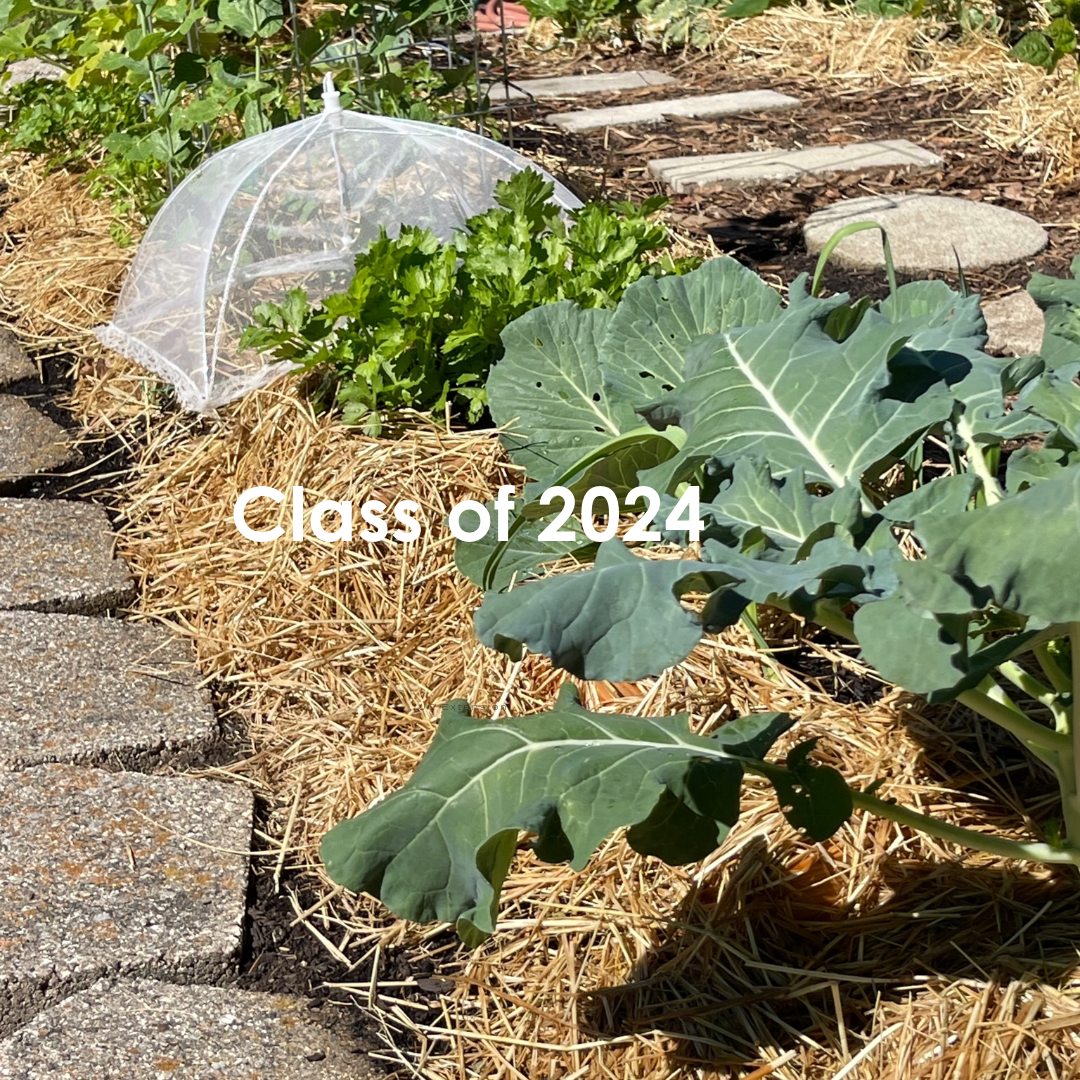
This is the basic training class for the trainees of the 2024 UC Master Gardener Program of Sonoma County. This course is internal to the Sonoma Master Gardener program and is not open to the public.
- Teacher: Janet Bair
- Teacher: Mimi Enright
- Teacher: Anne Haddix
- Teacher: Leslie Hart
- Teacher: Judy Hatfield
- Teacher: Laura Southworth
- Teacher: Carla Tarazi
- Teacher: Clio Tarazi
Participants will learn a variety of competencies related to district court administration and management.
- Teacher: Ashley Kent
- Teacher: Lydia Maunz
- Teacher: Kate Wade
Participants will learn a variety of competencies related to municipal government administration, finance, and management.
- Teacher: Schuyler Germann
- Teacher: Ashley Kent
- Teacher: Lydia Maunz
- Teacher: Kate Wade
2025 Southwest Ag Summit
Course Name: Ag-Tech: Innovations in Weed control and Vegetable Crop Technologies.
Module 1: Niqo Robothinner: An AI-Powered Spot Sprayer for Lettuce Thinning, Time:22:49
Jaisimha Rao, Niqo Robotics
Module 2: Sharpshooter: Precision Application System Powered by Bullseye Aim & Apply Technology, Time 30:40Gabe Sibley, Verdant Robotics, Inc.
Module 3: Ecorobotix: First Desert Season and Experiences Using ARA and What can be Expected Next Season, Time: 27:48
Katerina Lee, Ecorobotix
Module 4: Field Scale Steam Applicator for Soilborne Pest Control, Time: 34:53
Mark Siemens, University of Arizona
Course Number: CA# DPR-XXXX-26, 2.0 CEU's (Other), AZDA # 25668, 2.0 CEU's, CCA # SS 59889, 2.0 CEU's (IPM)
CEU Credits: This course is accredited by the California Department of Pesticide Regulation, Arizona Department of Agriculture and Certified Crop Adviser.Course availability will be through the end of the year and will be removed December 31st 2025.
The course contains video, requiring a computer that can play audio and video.
Contact and technical support: Robert Masson, masson@arizona.edu.
- Teacher: Don Dinwiddie
- Teacher: Robert Masson
2025 Southwest Ag Summit
Course Name: Lab to Field: Current Plant Pathology Research Efforts to Combat Plant Disease
Module 1: Area-Wide Population Dynamics of A. flavus str AF36 in Tree Nut Cropping Systems | Growth & Competition Between Biocontrol & Aflatoxin-Producing Genotypes of Asperguillus flavus in Soil
Dakota Salyer, University of Arizona | Ally Dalaya, University of Arizona
Module 2: Influence of Alfatoxin Biocontrol on Fumonisin Contamination in Maize | Diagnostic, Management & Field Trails on Late Blight of Celery
Sallu Nepal, University of Arizona | Bindu Poudel-Ward, University of Arizona
Module 3: RNAi: An Alternative to the Control of Plant Diseases
Johan Murcia, University of Arizona
Course Number: CA# DPR-XXXX-26, 1.5 CEU's (Other), AZDA # 25666, 1.5 CEU's, CCA # SS 59888, 1.5 CEU's (IPM)
CEU Credits: This course is accredited by the California Department of Pesticide Regulation, Arizona Department of Agriculture and Certified Crop Adviser.The course contains video, requiring a computer that can play audio and video.
Contact and technical support: Robert Masson, masson@arizona.edu.
The course contains video, requiring a computer that can play audio and video.
Contact and technical support: Robert Masson, masson@arizona.edu.
- Teacher: Don Dinwiddie
- Teacher: Robert Masson
2025 Southwest Ag Summit
Course Name: Exploring Eco-Efficiency through Use of Predator Thresholds and Proactive Resistance Management in Cotton.
Module 1: Eco-Efficiency Optimizes Production and Environmental Impact. Time: 21:24
Dr. Peter Ellsworth, University of Arizona
Module 2: Arizona Whitefly History, Introduction to Predator Thresholds and Supporting Inaction. Time: 39:44
Dr. Peter Ellsworth, University of Arizona
Course Number: CA# DPR-1138-25, 1.0 CEU's (Other), AZDA # 25667, 1.0 CEU's, CCA # SS 59890, 1.0 CEU's (IPM)
CEU Credits: This course is accredited by the California Department of Pesticide Regulation, Arizona Department of Agriculture and Certified Crop Adviser.Course availability will be through the end of the year and will be removed December 31st 2025.
The course contains video, requiring a computer that can play audio and video.
Contact and technical support: Robert Masson, masson@arizona.edu.
- Teacher: Don Dinwiddie
- Teacher: Robert Masson
2025 Southwest Ag Summit
Course Name: Vegetable IPM
Eric Peterson, Azzule
Module 2: The Emerging Viruses in Cucurbits Working Group: Improving Cucurbit Virus Management in the US through Stakeholder Education, Time: 26:41William Wintermantel, USDA-ARS
Module 3: Onion Downy Mildew Under Low Desert Conditions, Winter 2024, Time: 17:36
Ana Pastrana, University of California
Module 4: Update on Organic Insecticide Trials Targeting Vegetable Insect Pest, Time 28:45Wilfrid Calvin, University of Arizona
Course Number: CA# DPR-XXXX-26, 2.0 CEU's (Other), AZDA # 25669, 2.0 CEU's, CCA # SS 59857, 2.0 CEU's (IPM)
CEU Credits: This course is accredited by the California Department of Pesticide Regulation, Arizona Department of Agriculture and Certified Crop Adviser.Course availability will be through the end of the year and will be removed December 31st 2026.
The course contains video, requiring a computer that can play audio and video.
Contact and technical support: Robert Masson, masson@arizona.edu.
- Teacher: Don Dinwiddie
- Teacher: Robert Masson
Course Name: 2025 Yuma Fall IPM Workshop
Module 1: Dr. Mazin Saber, Listening to Yuma Growers: Needs Assessment Insights and the Role of Sudan Grass Allelopathy in Crop Rotations, Dr. Stephanie Slinski, Fusarium Wilt Update California and Arizona, Dr. Wilfrid Calvin, Updates on Insecticide Efficacy Trials in Organic Vegetable and Lemon. 42:32
Module 2: Robert Masson, Drones in Agriculture, Macey Keith, Lettuce Pest and Whitefly Management, Dr. Samuel Discua, John Palumbo Vegetable IPM Program 2024-25. 1:05:01
OPTIONAL (No CEU Credits provided for Module #3)
Module 3: Dr. Ali Mohammed, Can Better Irrigation and Nitrogen Management Lower Aphid Pressure?, Dr. Bhupinder Singh, Agronomic and Physiological Response of Broccoli to Irrigation Methods and Soil Amendments, 37:46
Course Number: CA# DPR-XXXX-25, 2.0 CEU's (Other), AZDA # XXXXX, 2.0 CEU's, CCA # SS XXXXX, 2.0 CEU's (IPM)
CEU Credits: This course is accredited by the California Department of Pesticide Regulation, Arizona Department of Agriculture and Certified Crop Adviser.Course availability will be through the end of the year and will be removed December 31st 2024.
The course contains video, requiring a computer that can play audio and video.
Contact and technical support: Robert Masson, masson@arizona.edu.
- Teacher: Don Dinwiddie
- Teacher: Robert Masson
Course Overview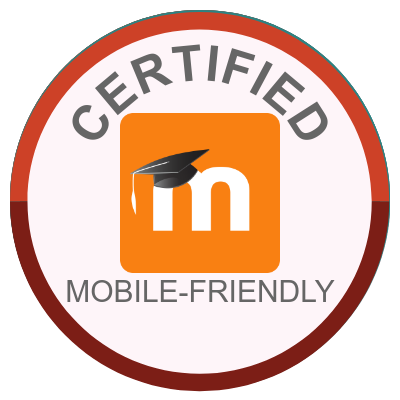
The California 4-H New Volunteer Course is a necessary resource for adults starting their first year or coming back after a break of a year or more. In this course, you will learn important parts of 4-H service, like an orientation, CANRA guidelines, and the 4-H Thriving Model for Positive Youth Development. You'll also learn about 2-Deep Supervision and the 4-H program's commitment to creating a safe and welcoming environment for all youth, and how you can help achieve that vision.
Length
1 hour, 35 minutes (Can be completed over multiple sessions)
- 4-H Orientation - 40 minutes
- CANRA for Volunteers - 30 minutes
- 4-H Thriving Model of PYD - 15 minutes
- 2-Deep Supervision Policy - 5 minutes
- University of California 4-H Core Values - 5 minutes
Who Should Attend
California Adult Volunteers who are starting their first year of service or are returning after a break of a year or more.
- Teacher: Zeva Cho
- Teacher: CA 4-H eXtension Tech Support
- Teacher: Scott Mautte
- Teacher: Gemma Miner

Course Overview
The California 4-H Returning Volunteer Course gives you important updates on policies and best practices to keep you up to date. It focuses on CANRA guidelines and the 4-H Thriving Model for Positive Youth Development. You'll also learn about the 4-H program's commitment to creating a safe and welcoming environment for all youth, and how you can help achieve that vision.
Length
55 Minutes (Can be completed over multiple sessions)
- CANRA for Volunteers - 30 minutes
- 4-H Thriving Model of PYD - 15 minutes
- University of California 4-H Core Values - 5 minutes
Who Should Attend
California Adult Volunteers who are starting their second year of service or more with no breaks in service.
- Teacher: Zeva Cho
- Teacher: CA 4-H eXtension Tech Support
- Teacher: Scott Mautte
- Teacher: Gemma Miner

Descripción General del Curso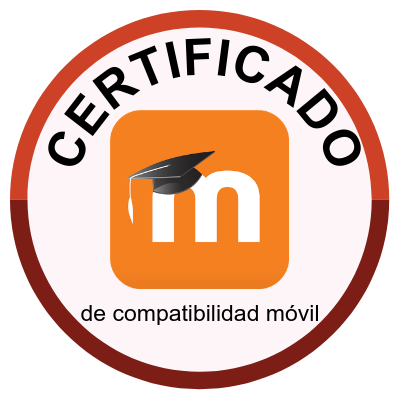
El curso para voluntarios que regresan del programa 4-H de California le ofrece actualizaciones importantes sobre políticas y mejores prácticas para mantenerlo al día. Se enfoca en los lineamientos de CANRA y en el Modelo 4-H para el Desarrollo Positivo de la Juventud (4-H Thriving Model for Positive Youth Development). También aprenderá sobre el compromiso del programa 4-H de crear un ambiente seguro y acogedor para todos los jóvenes, y cómo usted puede ayudar a lograr esa visión.
Duración
50 minutos (puede completarse en varias sesiones)
- CANRA para voluntarios - 30 minutos
- Modelo próspero de PYD de 4-H - 15 minutos
- Valores fundamentales de 4-H de la Universidad de California - 5 minutos
Quién Debe Asistir
Voluntarios adultos de California que inician su segundo año de servicio o más sin interrupciones en el servicio.
- Teacher: Zeva Cho
- Teacher: CA 4-H eXtension Tech Support
- Teacher: Scott Mautte
- Teacher: Gemma Miner

Descripción General del Curso
El Curso para Nuevos Voluntarios de 4-H de California es un recurso necesario para los adultos que comienzan su primer año o que regresan después de una pausa de un año o más. En este curso, usted aprenderá partes importantes del servicio 4-H, como una orientación, los lineamientos de CANRA y el Modelo 4-H Thriving para el Desarrollo Positivo de la Juventud. También aprenderá sobre la Supervisión 2-Deep y el compromiso del programa 4-H de crear un ambiente seguro y acogedor para todos los jóvenes, y cómo usted puede ayudar a lograr esa visión.
Duración
1 hora, 35 minutos (Puede completarse en varias sesiones)
- Orientación 4-H - 40 minutos
- CANRA para voluntarios - 30 minutos
- 4-H Modelo próspero de PYD - 15 minutos
- 2-Política de Supervisión Profunda - 5 minutos
- Visión e Impacto de California 4-H - 5 minutos
Quién debe asistir
Voluntarios adultos de California que comienzan su primer año de servicio o regresan después de una pausa de un año o más.
- Teacher: Zeva Cho
- Teacher: CA 4-H eXtension Tech Support
- Teacher: Scott Mautte
- Teacher: Gemma Miner
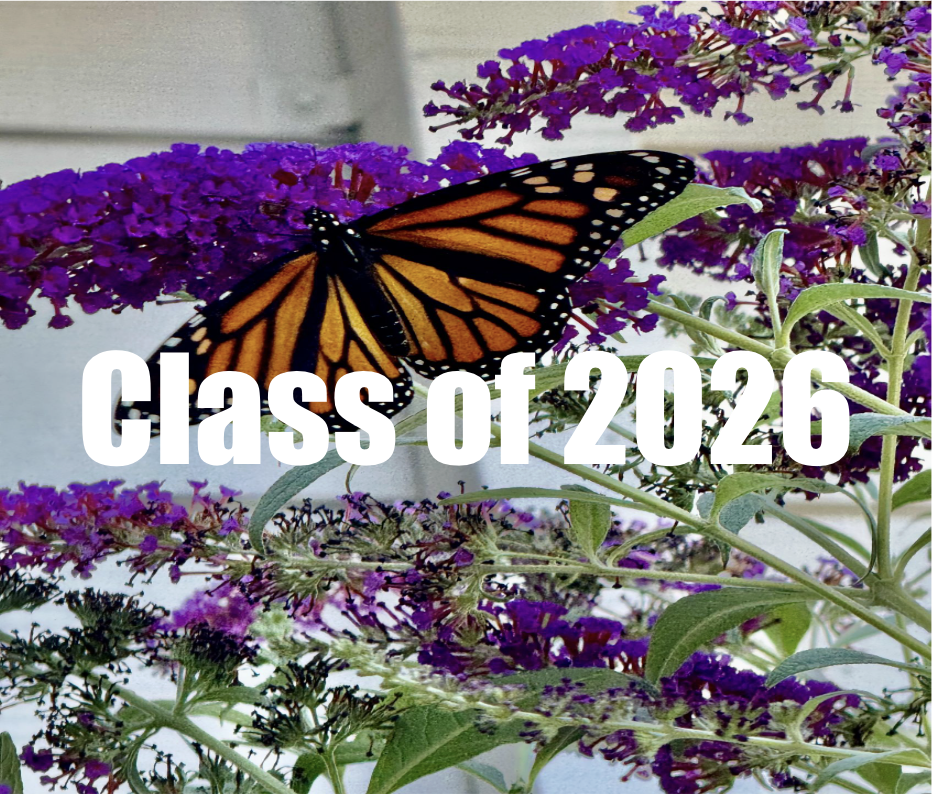
This is the basic training class for the 2026 UC Master Gardener Program trainees in Sonoma County. This course is internal to the Sonoma Master Gardener program and is not open to the public.
- Teacher: Therese Arsenault
- Teacher: Mimi Enright
- Teacher: Judy Hatfield
- Teacher: Carla Tarazi
- Teacher: Suzi Yarian
Course Name: AB001-Record Keeping and Cash Flows
This class starts with the basics of building a financial plan, which is keeping track of your income and expenses. This is where we first introduce the financial self-assessment. Students will fill out the assessment to help them gain a better understanding of their own financial well-being, and hopefully give them motivation to go through the entire money management modules. The assessment is retaken in module 7, which allows students to see their progression. 1. Record Keeping 2. Hand versus. Computer Records 3. 5 Basic Steps to Record Keeping 4. Cash Flow Statements 5. Types of Expenses By the end of this class students should have a clear method for how they want to track their expenses and build a cash flow budget. Questions? Email Trent Teegerstrom at tteegers@ag.arizona.edu.
The course contains video so it requires a computer that can play audio and video.
Contact and technical support: Robert Masson, masson@arizona.edu.
- Teacher: Jody Dean
- Teacher: Don Dinwiddie
- Teacher: Robert Masson
Course Name: AB002-Loans and Credit Cards
At this point, this class does not revisit record keeping, but students should remember to keep track of their cash flows, because they will be referring to them in later modules. AB002 addresses interest rates on loans and credit cards. We also introduce the MyFi Assist app, it is a free financial assistant app. MyFi is used extensively through the money management modules. 1. Components of an Interest Rate 2. Credit Score versus Interest Rate 3. MyFi Assist 4. Paying Credit Cards 5. Paying for House Loans 6. Take-Home Message 7. Money Management Module Review 8. Reminder to Keep Track of your Budgeting Exercise The objective of module 2 is to understand the effects of interest rates, as well as managing loans and credit card usage. Questions? Contact Trent Teegerstrom at tteegers@ag.arizona.edu
The course contains video so it requires a computer that can play audio and video.
Contact and technical support: Robert Masson, masson@arizona.edu.
- Teacher: Jody Dean
- Teacher: Don Dinwiddie
- Teacher: Robert Masson
Course Name: AB003-Applying for a Loan-the 5 C's of Borrowing
This class does not revisit the record keeping assignment, but students should remember to keep track of their cash flows. Also try to answer any questions that may come up while they are trying to compile their budget. Cash flows and budgets will be referred to in later modules. This class addresses the factors that lenders take into account when approving loan applications. Understanding what a lender is looking for in a borrower can help potential borrowers increase their chances of being approved for a loan, or obtaining a better interest rate. 1. Qualities Banks and Lenders Look for in a Borrower 2. Sources of Money 3. Terms and Conditions of a Loan 4. Personal Information Required for Loan Application 5. 5 C’s of Borrowing 6. Basis of Loan Approval Students should keep track of their cash flows and budgets; if they have an accurate budget they may find that applying for a loan is not necessary. Instead, they can cut frivolous expenses and save to buy the things they want. If applying for a loan is necessary, they already have an idea of where they stand in the eyes of a lender. Questions? Email Trent Teegerstrom at tteegers@ag.arizona.edu.- Teacher: Jody Dean
- Teacher: Don Dinwiddie
- Teacher: Robert Masson
Course Name: AB004-Credit Reports and Scores
The course contains video so it requires a computer that can play audio and video.
- Teacher: Jody Dean
- Teacher: Don Dinwiddie
- Teacher: Robert Masson
Course Name: AB005-Savings and Budgeting
This class introduces long- and short-term savings plans and goals as well as how to define each of these. This class also uses the MyFi Assist app to help students create a savings plan. Going over the cash flow and budget assignment will help students introduce savings into their budgets if they have not done so already. Their savings plans should include an emergency fund, a long-term goal like retirement, and at least one short-term goal. If students’ budgets seem to be stretched, they can identify areas where they can spend less or find areas where they can earn extra income. 1. Savings Goals 2. Good versus Bad Savings Goals 3. Risk and Rates over Time 4. Where Do I Save my Money? 5. Budget Check-Up and Questions 6. Finding Ways to Save 7. Inflation Questions? Email Trent Teegerstrom at tteegers@ag.arizona.edu.The course contains video so it requires a computer that can play audio and video.
- Teacher: Don Dinwiddie
- Teacher: Robert Masson
Course Name: AB006-Personal Finances
This course is an in-class review of the long-term cash flow and budgeting assignment. A discussion will cover how students developed their cash flows. Did they run into any obstacles? Did they figure out where to put odd expenditures? Are they having problems incorporating savings into their budget? Is their budget accurate? This module helps students understand that they can still reach their goals while meeting their financial needs. 1. Students’ Cash Flow 2. Trade-Offs 3. Wants verus Needs 4. Unexpected Expenses 5. Hold Yourself Accountable 6. Adjust Your Expenditures Questions? Email Trent Teegerstrom at tteegers@ag.arizona.edu.The course contains video so it requires a computer that can play audio and video.
- Teacher: Jody Dean
- Teacher: Don Dinwiddie
- Teacher: Robert Masson
Course Name: AB007-Creating Your Financial Plan
The focus of this course is to help students analyze their budgeting assignments. Students will identify their goals and insert them into their budgets. This is also a point to reiterate trade-offs and wants versus needs (refer to module 6) to help keep a balanced working budget. Included in this module is the financial self-assessment worksheet that was initially provided in module 1 in addition to a budget review questionnaire. Students fill out the financial self-assessment worksheet. The self-assessment worksheet will give them a benchmark for their progress, as well as a direction for what they need to be working on. 1. Length of time to maintain records 2. Review progress on exercises 3. Creating your plan 4. Assessment of current situation 5. Analyze your assessment 6. Prioritize your goals 7. Develop a plan to achieve your goals 8. Review your plan 9. Monitor and modify your financial plan Questions? Email Trent Teegerstrom at tteegers@ag.arizona.edu.The course contains video so it requires a computer that can play audio and video.
- Teacher: Jody Dean
- Teacher: Don Dinwiddie
- Teacher: Robert Masson
Course Name: AB009-Early Development of a new Idea
This course uses a mini assessment tool to help a prospective entrepreneur determine whether they are financially and personally capable of starting a new venture. Once the mini assessment is complete, another set of questions goes into more detail about the product, cost structure, and market. The more detail a prospective entrepreneur can put into the answers, the better prepared to start a business they are. The business planning questions are meant to give participants a comprehensive look at the steps to starting a business. 1. Am I ready to start a business? 2. Introduction to finances and budgeting 3. Developing a market strategy 4. Can I make money? Questions? Contact Trent Teegerstrom at tteegers@ag.arizona.edu.The course contains video so it requires a computer that can play audio and video.
- Teacher: Jody Dean
- Teacher: Don Dinwiddie
- Teacher: Robert Masson
Course Name: AB010-Market Assessment-Estimating Market Size and Price
This course is a comprehensive look at defining a customer base, estimating the size of the market, and determining a price point. This class uses worksheets to guide participants through the process of determining market size and price points for their products. Each worksheet covers a different topic, including customer segmentation, potential volume, competition, pricing strategy, and promotion strategy. Additional resources are listed in the PowerPoint presentation to help participants find information on potential customer demographics, average food consumption, and pricing. Completing a market assessment is an important and cost-effective step in starting a business: Investing time into completing one now can save money in the future. 1. Market assessment process 2. Estimating product price 3. Competitive analysis 4. External factors in pricing Questions? Contact Trent Teegerstrom at tteegers@ag.arizona.edu.The course contains video so it requires a computer that can play audio and video.
- Teacher: Jody Dean
- Teacher: Don Dinwiddie
- Teacher: Robert Masson
Course Name: AB011-Introduction to Budgets and Financial Statements
This course is meant to be an introduction to (not a comprehensive understanding of) different types of financial statements and budgets (budgets will be covered in greater detail in AB012). Understanding financial statements can benefit business owners by helping them determine whether or not the business or enterprise is performing as expected. When discussing budgets, help participants understand that budgets are a way of managing resources to maximize profits. The budgeting worksheets used in this module are meant to guide participants through the steps of building their own enterprise budgets and incorporating all production costs. Future entrepreneurs should be as accurate as possible with their revenue and expenses, and understand that it is easier to make adjustments on paper now, rather than when their businesses are operational. The cash flow worksheets help visualize when expenses are incurred and when revenue is generated. The excel version of the worksheet can be a helpful tool to use as an in-class example, and the long-term cash flow worksheet can help your participants compare different cash flow scenarios and see whether they will run a deficit or a surplus. 1. Types of budgets 2. Cash flows 3. Types of financial statements 4. Important ratios 5. Why it is important to keep records Questions? Contact Trent Teegerstrom at tteegers@ag.arizona.edu.The course contains video so it requires a computer that can play audio and video.
- Teacher: Jody Dean
- Teacher: Don Dinwiddie
- Teacher: Robert Masson
Course Name: AB012-Financial Analysis
This course builds on the previous module’s financial overview of budgets and statements. Using examples, this class explains in greater detail how to create and analyze a partial budget and an enterprise budget using tools like sensitivity analysis and break-even analyses. MyFi Assist is also re-introduced. This tool can be used to find monthly payments to be used in a partial budget or an enterprise budget, which will allow participants to find break-even points or complete sensitivity analyses. Participants should understand that all financial options should be considered on paper to determine the outcomes that are good, bad, and ugly. Once these are known, it becomes possible to plan for future financial success. 1. Sensitivity analysis 2. Break-even analysis 3. Partial budgeting Questions? Email Trent Teegerstrom at tteegers@ag.arizona.edu.The course contains video so it requires a computer that can play audio and video.
- Teacher: Jody Dean
- Teacher: Don Dinwiddie
- Teacher: Robert Masson
Course Name: AB013-Introduction to American Indian Land Tenure Act
This course covers first how American Indian reservations were established, beginning with the Doctrine of Discovery, to Manifest Destiny and the creation of the Office of Indian Affairs, through the evolution of federal policies that have created the reservations that we know today. The second section of the module covers the difficulties of navigating the uniqueness of each reservation. How the reservation was established and whether or not it was impacted by the Dawes Act of 1887 will determine land tenure on a given reservation. American Indian trust land is held in a "trust status" by the US government; in the case of allotments, fractionation occurs, resulting in hundreds of owners on a single parcel of land. Water rights are also brought up as a contentious issue on reservations, and the use of Indian trust land as collateral is difficult. This class shines light on the laws and legislation that have created social economic hardship for reservations and Native Americans. 1. Federal policy eras 2. Tribal governance and the federal relationship 3. Tribal sovereignty 4. General Allotment Act, 1887 5. Fractionation 6. Trust to fee conversion 7. Water rights on reservations Questions? Email Trent Teegerstrom at tteegers@ag.arizona.edu.The course contains video so it requires a computer that can play audio and video.
- Teacher: Jody Dean
- Teacher: Don Dinwiddie
- Teacher: Robert Masson
Course Name: AB014-Ownership, Liability, and Risk
This course covers different business structures and the advantages and disadvantages of each. For example, a sole proprietorship (the most common type of business structure) is owned and operated by a single individual. Sole proprietorship has the most flexibility of the business structures, but this flexibility comes with a price—unlimited liability. This class also covers risk and risk management. Areas of risk can include production, financial, price, institutional, or human. This module will teach participants how to evaluate the level of risk in their businesses or farms and create plans for corrective measures to avoid or minimize risk. Identifying and managing risk in the early stages of the planning phase is important. 1. Business structures and the pros and cons of each 2. Risk management 3. Tools for managing risk 4. Analyzing on farm risk 5. Food safety issues 6. Disaster preparedness Questions? Email Trent Teegerstrom at tteegers@ag.arizona.edu.
The course contains video so it requires a computer that can play audio and video.
- Teacher: Jody Dean
- Teacher: Don Dinwiddie
- Teacher: Robert Masson
Course Name: AB015-Tax Issues for Farmers and Ranchers
This course introduces common tax filing issues for owners of small businesses or farms. The information presented in this module comes from the Ruraltax.org website, which contains a variety of small farm tax examples that could be used to supplement the presentation. This module briefly touches of individual tribal tax and deferred tax issues. This module is not meant to be a comprehensive look at taxes and tax issues; rather, it is meant to help participants become more aware of the types of tax issues that exist. 1. Basic tax forms 2. Schedule F 3. Self-employment taxes 4. Hobby loss rules 5. Form 1099 6. Individual tribal taxes 7. Section 179 8. Depreciation and estate taxes Questions? Contact Trent Teegerstrom at tteegers@ag.arizona.edu.The course contains video so it requires a computer that can play audio and video.
- Teacher: Jody Dean
- Teacher: Don Dinwiddie
- Teacher: Robert Masson

- Teacher: Cathryn Peshlakai
- Teacher: Lisa Whipple
- Teacher: Sarah Wright
- Teacher: Geraldine Wynn
Veterans Agricultural Education and Apprenticeship Program in the Southwest
Course Name: Ag Chem and Water Quality
Presented by: Dr. Karl Wyant
Course Overview:Dr. Karl Wyant, Director of Agronomy with Nutrien will talk about how spray water quality can negatively impact Ag chemical performance. He will also explain to us how to use a water quality sample to predict future interactions or explain current results, when and how to sample spray water and how to understand a water quality sample report. Dr. Wyant will break down a spray water quality report and explain the effects it has on the chemicals it is mixed with.
The course contains video so it requires a computer that can play audio and video.
Contact and technical support: Robert Masson, masson@arizona.edu.
- Teacher: Don Dinwiddie
- Teacher: Robert Masson
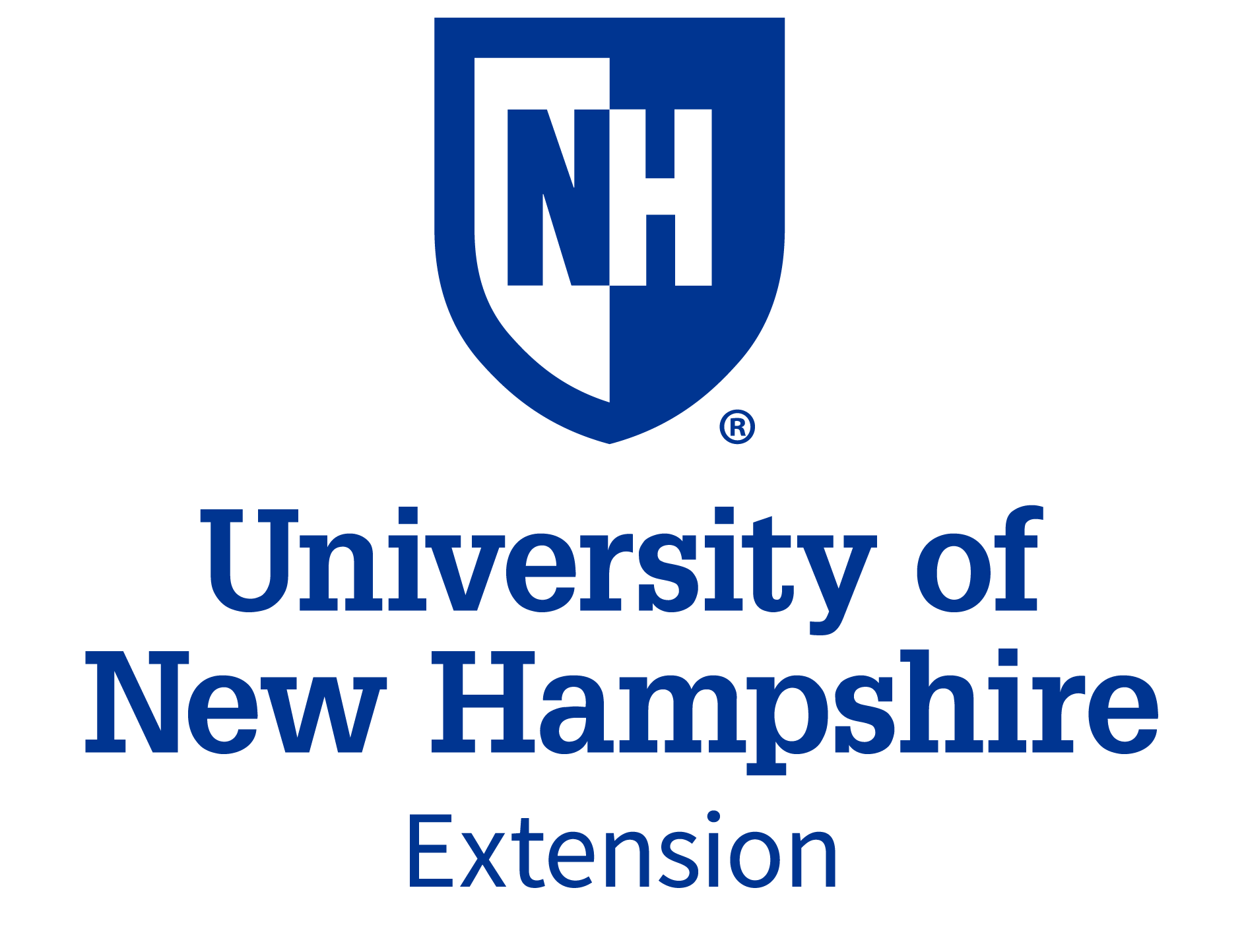
Pesticide product labeling is the
main method of communication between a pesticide manufacturer and pesticide
users. The information printed on or attached to the pesticide container is the
label. Labeling includes the label plus all other information you
receive from the manufacturer about the product when you buy it.
Credits for this course are currently available for New Hampshire, Maine, Vermont, Massachusetts, Connecticut, Rhode Island and Pennsylvania.
For more information or to enroll please contact Rachel Maccini, Pesticide Safety Education Program Coordinator, University of New Hampshire.
The fee for this course is $40. To purchase and enroll in it, select the following button:
- Teacher: Rachel Maccini

This course is designed to remind applicators to the severity of pesticide poisoning and how this poisoning depends on the pesticide's chemical makeup and formulation, its path into the body, the amount that enters the body, and the length of exposure. Wearing PPE can greatly reduce the potential for dermal, inhalation, eye, and oral exposure, and thereby significantly reducing the chances of a pesticide poisoning, but it does not necessarily eliminate it.
Credits for this course are currently available for New Hampshire, Maine, Vermont, Massachusetts, Connecticut, Rhode Island and Pennsylvania.
- Teacher: Rachel Maccini

This class will help guide you in identifying dangerous situations, taking preventative measures to minimize risks, and responding appropriately when an accident occurs. Preparation is key to safeguarding yourself and your employees.
Credits for this course are currently available for New Hampshire, Maine, Vermont, Massachusetts, Connecticut, Rhode Island and Pennsylvania.
The fee for this course is $40. To purchase and enroll in the course, select the following button:
- Teacher: Rachel Maccini

Proper disposal of pesticides and pesticide containers is an important phase of pest management an improperly disposed product can be hazardous to people and the environment. READ THE PRODUCT LABEL for specific disposal information.
Credits for this course are currently available for New Hampshire, Maine, Vermont, Massachusetts, Connecticut, Rhode Island and Pennsylvania.
The fee for this course is $40. To purchase and enroll in the course, click the button below:
- Teacher: Rachel Maccini

This course was designed as an interactive course. It will require you to read through a variety of different pesticide labels and choose the best product to handle a situation provided to you. You will be able to choose any product provided, however when you make a choice that is not the best choice you will be faced with some consequences. It will be important that you read the labels thoroughly and choose the best product.
For more information, please contact Rachel Maccini
- Teacher: Rachel Maccini

Credits for this course are currently available for New Hampshire, Maine, Vermont, Massachusetts, Connecticut, Rhode Island and Pennsylvania.
- Teacher: Rachel Maccini

Pesticide Applicator recertification credits for a variety of subjects including backpack sprayers and the label.
Credits for this course are currently available for New Hampshire, Maine, Vermont, Massachusetts, Connecticut, Rhode Island and Pennsylvania.
For more information or to enroll please contact Rachel Maccini, Pesticide Safety Education Program Coordinator, University of New Hampshire.
- Teacher: Rachel Maccini

By taking this course, students will learn:
The Worker Protection Standard (WPS) is a regulation developed by the United States Environmental Protection Agency (EPA) to protect workers and handlers from the harmful effects of pesticides and their residues. The standard went through some major
revisions in 2015 and this course will reflect those changes.
This course will cover some of the major points of the Worker Protection Standard and what employers need to cover with their employees in order to comply.
Once you've completed this course, you should be able to:
- Define a worker and a handler
- Understand the importance of the WPS
- Know when compliance is necessary
- Identify the basic requirements needed by both a worker and handler to reduce their pesticide exposure
Watch the presentation from beginning to end. There are review questions interspersed to help you review the information. When you feel you are comfortable with the information, take the final assessment below Jeopardy game.
For more information please contact Rachel Maccini, Pesticide Safety Education Program Coordinator, University of New Hampshire, Cooperative Extension.
The fee for the course is $40. To purchase and enroll in the course, click the following button:
- Teacher: Rachel Maccini
This course will prepare you for Idaho State Department of Agriculture pesticide exam Agriculture Crop Pest Control (AC) category. For professional applicators who use or oversee the use of pesticides in the production of agricultural commodities, including grasslands and non-crop agricultural lands.
You will have access to eight online instructional sessions to complete at your own pace. Each session contains an outline to use for enhancing your study and quizzes to evaluate your knowledge.
The fee for this course is $75-one month access. To purchase and enroll in the course, click the following button:
- Teacher: cals ipm
The audience for this course is:
The goal of this curriculum is to build environmental literacy as it relates to agricultural production among future farmers and the educators that work within this field. The objective, scientifically-sound curriculum is for secondary students (career and technical centers, grades 9-12). It goes beyond simply sharing information and providing outreach to require students to problem-solve, think critically, have a systems approach, as budding farmers, and embody environmental stewardship with their management decisions.
By taking this course, students will learn:
Topics include: watersheds, reading the soil, soil management practices, nutrient management planning, precision agricultural technology tools, agricultural and environmental policy, and a case study. Each unit is complete with lectures, activities, scoring rubrics, proficiency standards, and field trips which helps make the curriculum widely accessible and adaptable to agricultural educators and their students. Students will learn practical, responsible agricultural management that minimizes impacts on water resources. Through completing this curriculum, educators can receive industry-recognized credentials from the Vermont Agency of Education (VAOE). We encourage all educators taking part in the implementing the curriculum to provide feedback and send additional resources they may be using to add to this resource library.
For more information or to enroll please contact:
Heather Darby, heather.darby@uvm.edu, Lindsey Ruhl, lindsey.ruhl@uvm.edu, and Catherine Davidson, catherine.davidson@uvm.edu.
- Teacher: Catherine Davidson
- Teacher: Lindsey Ruhl
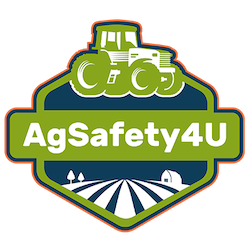
AgSafety4u 2.0 provides an overview of identification and control of hazards common to farms and agriculturally related rural businesses, focusing on hazards associated with machinery, structures, equipment, animals, chemicals and outdoor environment. Learning objectives for Agricultural Employees, Employers and other rural workers who take the course are to a) Describe principles of hazard identification and control and b) Recognize hazards found on farms and in agriculturally related rural businesses.
Additional information about the course can be found at https://ag-safety.extension.org/agsafety4u-certificate-course/
Course Fee: $10. Click here to purchase and enroll in this course:
For additional information, contact Aaron M. Yoder (aaron.yoder@unmc.edu).
- Teacher: Deana Namuth-Covert
- Teacher: Aaron Yoder
Course Name: AH001-Basics of Agriculture and Horticulture Production
Join Dr. Ursula Schuch for this introductory course into horticulture and agriculture production. If you have follow up questions, feel free to email Dr. Schuch at uschuch@arizona.edu.The course contains video so it requires a computer that can play audio and video.
Contact and technical support: Robert Masson, masson@arizona.edu.
- Teacher: Jody Dean
- Teacher: Don Dinwiddie
- Teacher: Robert Masson
Course Name: AH002-Organic Versus Conventional Food Production
This class will cover definitions of different types of production: • Conventional • Sustainable • Pesticide free • Local • Organic • USDA certified organic Requirements for USDA organic production will be discussed. Questions? Contact Dr. Ursula Schuch at uschuch@arizona.eduThe course contains video so it requires a computer that can play audio and video.
Contact and technical support: Robert Masson, masson@arizona.edu.
- Teacher: Jody Dean
- Teacher: Don Dinwiddie
- Teacher: Robert Masson
Course Name: AH003-Controlled Environment Food Production
Introduction to different types of controlled environment food production. Topics covered will include infrastructure requirements, control of environmental factors, and examples of production using the following systems: • Hydroponic • Aquaponics • Mushroom Cultivation Questions? Contact Dr. Ursula Schuch at uschuch@arizona.edu.
The course contains video so it requires a computer that can play audio and video.
- Teacher: Jody Dean
- Teacher: Don Dinwiddie
- Teacher: Brandon Green
- Teacher: Robert Masson
Course Name: AH004-Food Safety
Remember to check in with Dr. Schuch following completing the course at uschuch@u.arizona.edu
The course contains video so it requires a computer that can play audio and video.
- Teacher: Jody Dean
- Teacher: Don Dinwiddie
- Teacher: Robert Masson
Course Name: AH005-Landscape Management
Contact Dr. Ursula Schuch at uschuch@u.arizona.edu with any questions.
The course contains video so it requires a computer that can play audio and video.
- Teacher: Jody Dean
- Teacher: Don Dinwiddie
- Teacher: Robert Masson
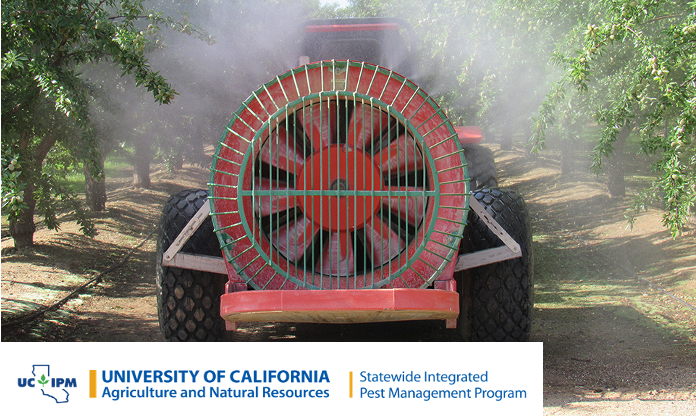

This course provides information on the basic principles of spray calibration, including application rate calculations, describes the components of a sprayer, and takes a look at how droplet size, nozzle type, and weather conditions influence drift and spray coverage. Also covered are conditions for pesticide applications under the 2018 Pesticide Use Near Schoolsites regulation. This course is available for free. The authors of the course are Lynn Wunderlich, UCCE Farm Advisor Amador, Calaveras, El Dorado, and Tuolumne Counties and Dr. Franz Niederholzer, UCCE Farm Advisor Colusa County.
Who should enroll?
Anyone who works with air blast sprayers or is involved with ensuring successful pesticide applications in trees and vines. This includes pesticide handlers, pest control advisers, growers, and supervisors.
Continuing education units
California Department of Pesticide Regulation (1.0 hour Laws & Regulations and 1.5 hours Other) and Certified Crop Adviser (2.0 IPM).
Enrollment period
- For assistance with login, course enrollment, or payment, contact campushelp@extension.org.
- For assistance with progress through the course or certificate, contact UCIPMcourses@ucanr.edu.
- Technical support: UC IPM Online Training Support
In this program, Extension Professionals, local officials, citizen advocates, non-profit groups, government agencies and general public, including those who are interested in the basic concepts of public land use and development regulation and in the best practices of community development and smart growth will learn to make positive land use decisions for their communities regarding zoning regulation, best practices for planning and zoning, and sustainable community planning.
Each units is designed to help students learn the core tasks of being a Planning Official.
In order to offer this online learning opportunity and maintain consistency between the classroom course and the online units, each unit includes content equal to or more than what is provided in the classroom sessions. Each unit is designed to take between 45 minutes to an hour. However, you can stop and restart a unit at your convenience.
For more information contact Daniel Walker at walke422@purdue.edu.
This course is available for a fee of $200 as part of a bundle that includes ACP-Indiana 101, 201, and Comprehensive Exam. To purchase this bundle of courses, click the following button.
- Teacher: Daniel Earl Walker
American Citizen Planner - Indiana 201 is an online course which will provide an in-depth look at land use planning and zoning along with management and ethics case studies and best practices.
For more information contact Daniel Walker at walke422@purdue.edu.
This course is available for a fee of $200 as part of a bundle that includes ACP-Indiana 101, 201, and Comprehensive Exam. To purchase this bundle of courses, click the following button.
- Teacher: Daniel Earl Walker
American Citizen Planner - Indiana Comprehensive Exam is an online exam and certificate course.
For more information contact Daniel Walker at walke422@purdue.edu.
This course is available for a fee of $200 as part of a bundle that includes ACP-Indiana 101, 201, and Comprehensive Exam. To purchase this bundle of courses, click the following button.
- Teacher: Daniel Earl Walker
In this program, Extension Professionals, local officials, citizen advocates, non-profit groups, government agencies and general public, including those who are interested in the basic concepts of public land use and development regulation and in the best practices of community development and smart growth will learn to make positive land use decisions for their communities regarding zoning regulation, best practices for planning and zoning, and sustainable community planning.
Each units is designed to help students learn the core tasks of being a Planning Official.
In order to offer this online learning opportunity and maintain consistency between the classroom course and the online units, each unit includes content equal to or more than what is provided in the classroom sessions. Each unit is designed to take between 45 minutes to an hour. However, you can stop and restart a unit at your convenience.
For more information contact Kara Salazar (salazark@purdue.edu).
The fee for this course $100. To purchase and enroll in the course, click the following button:
- Teacher: Kelsey Johnson
- Teacher: Rebecca Roberts
- Teacher: Kara Salazar
American Citizen Planner 201 is an online course which will provide an in-depth look at land use planning and zoning along with management and ethics case studies and best practices.
For more information contact Kara Salazar (salazark@purdue.edu).
The fee for this course is $100. To purchase and enroll in the course, click the following button:
- Teacher: Kelsey Johnson
- Teacher: Kara Salazar
American Citizen Planner National Exam is an online exam and certificate course.
For more information contact Kara Salazar (salazark@purdue.edu).
The fee for this exam is $50. To purchase access to the exam, click the following button:
- Teacher: Kelsey Johnson
- Teacher: Rebecca Roberts
Each units is designed to help students learn the core tasks of being a Planning Official.
In order to offer this online learning opportunity and maintain consistency between the classroom course and the online units, each unit includes content equal to or more than what is provided in the classroom sessions. Each unit is designed to take between 45 minutes to an hour. However, you can stop and restart a unit at your convenience.
For more information, contact Kara Salazar (salazark@purdue.edu)
The fee for the full series (101, 201, Exam) is $200. Click this button to purchase and enroll in this series of courses:
- Teacher: Kelsey Johnson
- Teacher: Kara Salazar
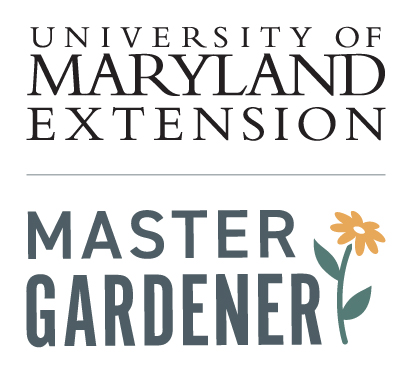
Our Vision is a healthier world through environmental stewardship.
Our Mission is to support the University of Maryland Extension mission by educating residents about safe, effective and sustainable horticultural practices that build healthy gardens, landscapes, and communities.
Our History
The UME Master Gardener Program began in 1978 as a means to extend science-based knowledge to the general public by providing horticultural and pest management expertise to help protect and improve Maryland’s natural resources. Today, this popular program can be found in 20 Maryland counties and Baltimore City.
UME Master Gardeners are volunteers who combine their love of plants, people, and the environment to help residents in their communities solve problems and make environmentally-sound decisions.
Timeline of classes will be every Wednesday night 6-8PM from September 3rd until November 19th at the Anne Arundel County Extension Office, 97 Dairy Lane, Gambrills, MD 21054. We will be covering topics such as Entomology and Invasive Insects, Plant Pathology, Botany, Integrated Pest Management, Soil Science, Plant Nutrition, Ecology, Bay-Wise and Conservation Landscaping, Vegetables, Native Plants, and Plant Identification. Students will need to complete one module and quiz a week and attend the in-person class.
- Teacher: Maxine Da-Som Yoon
Tuesday evening class sessions | Live via Zoom
January 19, 26 and February 2, 9, 16, & 23
6:00 - 9:00 pm PST
- Teacher: Colette DePhelps
- Instructor: Cheyanne Myers
- Instructor: Jen Werlin
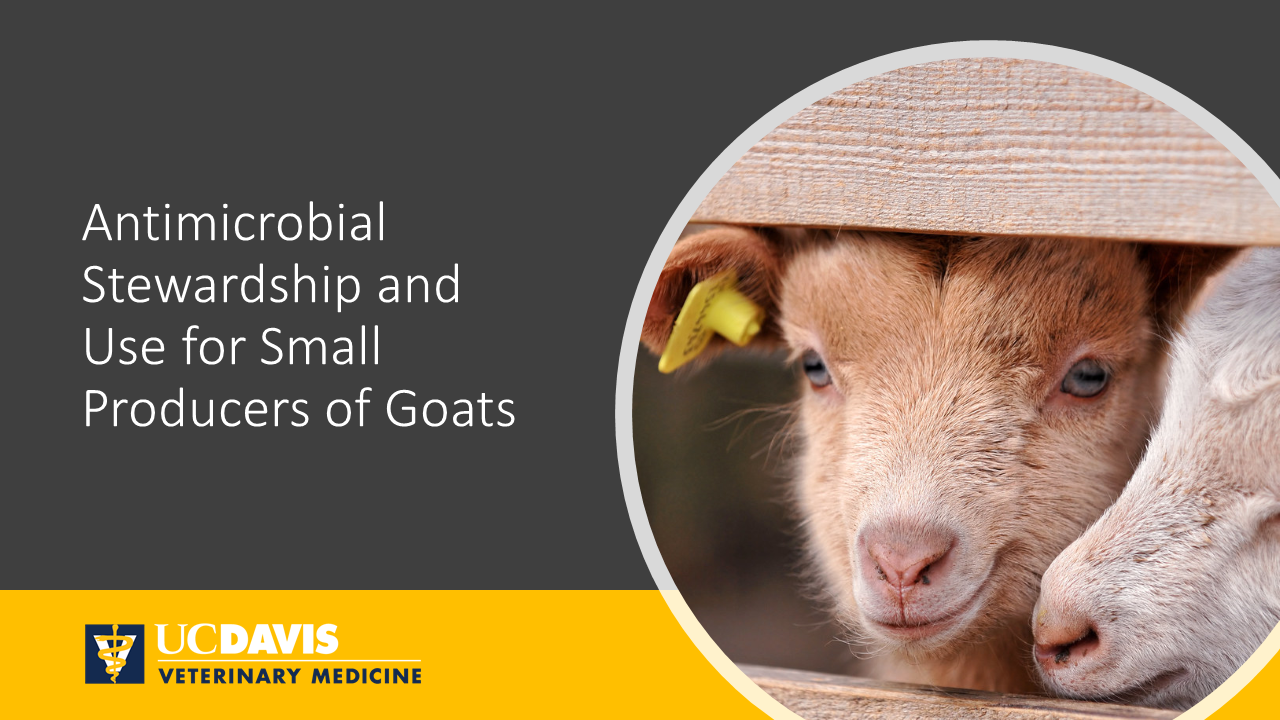
This course provides an introduction to topics related to antimicrobial stewardship with the goal of promoting behaviors that reduce the risk of antimicrobial resistance. Learning materials include video lessons and interactive modules to build knowledge and skills relative to goat husbandry and veterinary care.
- Teacher: Cheryl Meehan
- Teacher: Craig Miramontes
In this course, methods of identifying and/or inducing the haploid state and then the doubling of the haploids will be discussed. All reproductive stages are under genetic control, and the inheritance of all these factors is complex. Most importantly, the practical application of doubled haploids in a breeding program will be discussed.
For more information or to enroll contact Leah Sandall with the University Nebraska-Lincoln at lsandall5@unl.edu
- Teacher: Diane Nolan
- Teacher: Leah Sandall
This course is not available to the public at this time
- Teacher: Petr Kosina
- Teacher: UC IPM Online Training Support
- Teacher: Cheryl Reynolds
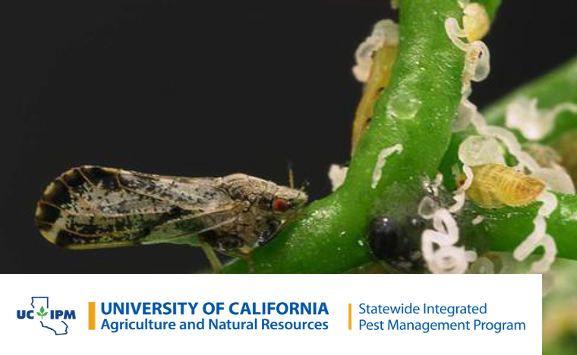

Course overview
This course provides information on limiting psyllid infestations in gardens and landscapes and minimizing their role in psyllid and disease spread. This includes understanding the biology of the insect and disease, how to look for each of them, existing control strategies, and best management practices in urban settings.
This course was authored by Dr. Beth Grafton-Cardwell (UCCE Emerita Entomology Specialist).
Who should enroll?
Homeowners and gardeners
This course has not been approved for Continuing Education Units.
- Technical support: UC IPM Online Training Support
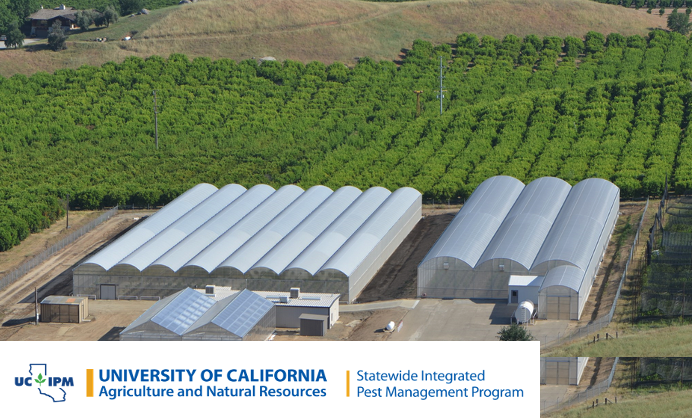

Course overview
This course provides information to retail nursery and garden center personnel to limit psyllid infestations in these environments and minimize their role in psyllid and disease spread. This includes understanding the biology of the insect and disease, how to look for each of them, existing control strategies, and best management practices in a nursery setting.
Who should enroll?
Retail nursery and garden center personnel
This course has not been approved for Continuing Education Units.
- Technical support: UC IPM Online Training Support
Course Name: AT001-Solar Photovoltaic (PV) Technology Basics
This course will cover how solar photovoltaic energy systems work focusing on what takes place within the solar PV cell and how electricity is produced. The type of electrical current and electrical terms and definitions commonly used in the solar energy industry including power, watts, voltage, current, and resistance are presented. Questions? Contact Dr. Edward Franklin at uafrank0@arizona.edu.
The course contains video so it requires a computer that can play audio and video.
- Teacher: Jody Dean
- Teacher: Don Dinwiddie
- Teacher: Robert Masson
Course Name: AT001B-Solar PV Basics: Load Analysis
This course is the second installment in the class AT001 - Solar Photovoltaic Basics. This class teaches you how to calculate the size required for solar systems by analyzing the load of the devices you plan to operate.
The course contains video so it requires a computer that can play audio and video.
- Teacher: Jody Dean
- Teacher: Don Dinwiddie
- Teacher: Robert Masson
Course Name: AT002-Types of Solar PV Systems
This course will cover the types of solar PV systems including PV-direct, Grid-connect, Stand-alone, and Multi-modal systems. We will address where these systems are found in our communities, our homes, schools, and businesses. Questions? Contact Dr. Edward Franklin at uafrank0@arizona.edu
The course contains video so it requires a computer that can play audio and video.
- Teacher: Jody Dean
- Teacher: Don Dinwiddie
- Teacher: Robert Masson
Course Name: AT003-Solar PV Modules
This video is the first installment in the AT003 course focusing on Solar Photovoltaic Modules and how to interpret the module cut sheets. Contact uafrank0@arizona.edu with any questions about the course!
The course contains video so it requires a computer that can play audio and video.
- Teacher: Jody Dean
- Teacher: Don Dinwiddie
- Teacher: Brandon Green
- Teacher: Robert Masson
Course Name: AT007-Pumping Water with Solar PV Energy
This course will cover the use of solar PV energy to power submersible wells used in agriculture. Topics will include: DC pumps, Pump controllers, Safety Disconnects, Combiner Box, Mounting systems, Modules & arrays, Wiring & connections Questions? Contact Dr. Ed Franklin at uafrank0@arizona.edu
The course contains video so it requires a computer that can play audio and video.
- Teacher: Jody Dean
- Teacher: Don Dinwiddie
- Teacher: Robert Masson
Course Name: AT009-Drone Applications in Agriculture
This course will address the use of drones for agriculture including spray applications, and field data acquisition. Questions? Contact Dr. Ed Franklin at uafrank0@arizona.edu
The course contains video so it requires a computer that can play audio and video.
- Teacher: Jody Dean
- Teacher: Don Dinwiddie
- Teacher: Brandon Green
- Teacher: Robert Masson
This course serves as a tool for small flock, backyard, homestead, and hobby poultry owners to become more informed on avian influenza (AI). You will learn how AI can affect you and your flocks, biosecurity measures that should be practiced to prevent disease and how to respond and recover in an event of an outbreak. Upon completion of this course you may take the final exam to receive your Avian Influenza Biosecurity Certificate. This course material may be reproduced free of charge for public use, however, it is not be be used for profit or financial gain.
Any questions about this course should be directed to Nathaniel Tablante at nlt@umd.edu
To learn more you may want to visit the eXetension Avian Influenza Homepage or the Avian Influenza Facebook Page
- Teacher: Brett Kreifels
Avian Influenza Biosecurity for Emergency Responders is a self-directed certification course designed for emergency response personnel. Participants will gain vital information on bio-security measures and emergency management procedures that are necessary to prevent, contain, and recover an avian influenza outbreak. For more information contact Nathaniel Tablante, University of Maryland at nlt@umd.edu.
- Teacher: Brett Kreifels
For more information about this course contact Nathaniel Tablante, University of Maryland at nlt@umd.edu.
- Teacher: Brett Kreifels
The Vermont Backyard Woods Course is designed for homeowners with less than 25 acres who want to learn more about the woods in their backyard: what’s in it, who (wildlife) uses it, and how they can become better caretakers of it.
The course explores the following themes: An Introduction to Your Backyard and Beyond; Getting to Know Your Woods; Backyard Woods Projects; Developing a Backyard Woods Action Plan.
About the Course
- This is an introductory course, designed to give landowners basic skills and connect them to resources available.
- The self-paced course is hosted online and is composed of 4 sections. Each section has videos and activities that are to be completed on your own schedule.
- Participants will be invited to join drop-in webinar sessions with experts.
- There will be two optional in-person walks.
Who should join this course?
- Homeowners who own 5-25 acres.
- Homeowners who want to become more active stewards of their land, but don't know where to start.
- Homeowners who want to learn general ecology in Vermont.
By the end of the program participants will:
- Understand why their backyard woods matter, the benefits it provides, and how it contributes to Vermont’s forest landscape.
- Identify natural history and cultural features in their backyard woods.
- Identify and rank stewardship goals and objectives for their property.
- Develop a stewardship action plan with a project schedule and plan for implementing stewardship activities.
- Increase awareness and connection to resources and organizations available to assist landowners in post-course activities.
Questions?
Contact Gwen Kozlowski at gwen.kozlowski@uvm.edu or 802-651-8343
- Teacher: Gwen Kozlowski
Knowing general information about horse welfare, behavior, nutrition, health and regulations is essential to keeping your horse happy and healthy. This learning module gives an overview of the care and management of horses, with information ranging from daily health checks to management & control of diseases and parasites.
For information contact Colleen Brady, at bradyc@purdue.edu.
The fee for this course is $10. To purchase and enroll in the course, click the following button:
If you purchase at least $40 worth of courses from this category, you can receive a 20% discount by entering the voucher code of HorseQuest20.
- Teacher: Kathy Anderson
- Teacher: Colleen Brady
Basic Radio 101 for North Dakota Emergency Responders is a self-directed course for paid and volunteer people who serve in EMS, law enforcement, firefighting and other first responder activities. Participants will learn how to use their radios appropriately, protocols to follow and how to troubleshoot common problems. For more information, contact Brenda Vossler, N.D. Department of Emergency Services training and exercise officer, at (701) 328-8106 or blvossler@nd.gov. For technical support, contact Becky Koch, (701) 231-7875 or becky.koch@ndsu.edu, with North Dakota State University Agriculture Communication.
- Teacher: Becky Koch
For more information or to enroll contact Patricia Rayas-Duarte, Oklahoma State, pat.rayas_duarte@okstate.edu or Dwayne Hunter, Oklahoma State, dwayne.hunter@okstate.edu
- Teacher: Dwayne Hunter
Este curso en
línea está dirigido a proveedores de cuidado infantil. Esta curso que dura 30
minutos es una manera divertida e interactiva de conocer las últimas
recomendaciones para niños sobre bebidas saludables y ayudar a los proveedores
de cuidado infantil a cumplir con los requisitos de la Ley de Bebidas
Saludables en el Cuidado Infantil de California (AB 2084). Este curso que dura
30 minutos, incluye videos, exámenes rápidos y actividades sobre temas como los
tipos de leche y jugos que se deben servir, el consumo seguro de agua potable y
como usar la información nutrimental de la etiqueta de los alimentos. El proveedor
recibirá un certificado de capacitación al completar el curso. El curso es
gratis para proveedores de cuidado infantil en California y tiene un costo de
$15 para proveedores de cuidado infantil fuera de California.
- Teacher: Danielle Lee
Este curso en línea está dirigido a proveedores de
cuidado infantil. Esta curso que dura 30 minutos es una manera divertida
e interactiva de conocer las últimas recomendaciones para niños sobre
bebidas saludables y ayudar a los proveedores de cuidado infantil a
cumplir con los requisitos de la Ley de Bebidas Saludables en el Cuidado
Infantil de California (AB 2084). Este curso que dura 30 minutos,
incluye videos, exámenes rápidos y actividades sobre temas como los
tipos de leche y jugos que se deben servir, el consumo seguro de agua
potable y como usar la información nutrimental de la etiqueta de los
alimentos. El proveedor recibirá un certificado de capacitación al
completar el curso.
El curso es gratis para proveedores de cuidado infantil en California y tiene un costo de $15 para proveedores de cuidado infantil fuera de California.
Si desea comprar este curso, haga clic en el siguiente botón:
- Teacher: Danielle Lee
- Teacher: Steve Pritchard
- Teacher: Troy Walz
The City of Bozeman Advisory Board Member Training is intended for the City Advisory Board Members of Bozeman, Montana. This is a self directed course, which should take less than one hour to complete. This course is intended to educate employees and public officials in best practices and legal requirements. It details specific ethical requirements and provides guidance on obtaining information and filing complaints. For detailed instructions on how to login and enroll in this course, take a few minutes and read through the Enrollment Instructions & Helpful Tips document.
For questions or concerns regarding this course, contact Brenda Sweeney, Deputy City Clerk, at (406) 582-2320 or bsweeney@bozeman.net.
- Teacher: Ashley Kent
- Teacher: Lydia Maunz
Students will learn skills to prepare them for post-secondary opportunities. In the 11th grade course, students will learn about scholarships and financial aid, resumes and applications, interviews, and post-secondary options.
- Teacher: Mindy Aragon
- Teacher: Leah Haxton
This 3-part series begins with the DiSC© Workplace assessment* where participants learn about their preferred work styles and environment. We discuss why this self-awareness is critical to being an effective leader/manager and explore some strategies for anticipating what future employees might be looking for in a manager.
Session 2 dives into organizational culture as it shows up on your farm and why being transparent about the culture you are striving for matters in building a farm team. We will spend time assessing your current culture and exploring strategies to either amplify or change it. We'll share tips on how you can anticipate someone's work style and preferences based on some very common observations.
Session 3 will be an interactive look at how, why and when conflict arises in work environments. We explore strategies to address the role of the manager when there is conflict within the work team, how different DiSC© profiles approach conflict, how to model productive conflict, and how to move beyond conflict and emerge as a stronger team.
These are interactive sessions, and your participation will be critical to our collective learning. Resources will be provided in advance and participants should plan time to review the materials prior to each session. Participants will leave the series with an action plan designed to get your growing season off to a successful start.
- Teacher: Beth Holtzman
- Teacher: Mary Peabody


About the Course:
This course is for program directors, coordinators, staff or anyone directly involved in working with volunteers.
Upon completion of this course, learners should be able to:
- Describe the benefits volunteers provide to programs and organizations
- Identify the roles and responsibilities of those involved in working with volunteers
- Identify the characteristics of an effective volunteer program
- Use the 7-step ISOTURE model to help build volunteer engagement
Along the way, learners will assess their own program, using self-guided activities and resources and develop a volunteer engagement action plan.
|
California Cooperative Extension Staff |
Free with enrollment key (contact your State Coordinator for enrollment key)
|
|
|
|
|
Non-California Users |
|
|
1-4 Seats |
$30 each |
|
5-49 Seats |
$25 each |
|
50-99 Seats |
$20 each |
|
100 or more Seats |
$10 each |
Contact:
For more information or to enroll please contact:
- Gemma Miner, UC ANR, Academic Coordinator for Volunteer Engagement gmminer@ucanr.edu
- UC ANR Course Support, idevelopsupport@ucanr.edu
- ANR Administrator: Zeva Cho
- ANR Administrator: CA 4-H eXtension Tech Support
- ANR Administrator: Scott Mautte
- ANR Administrator: Gemma Miner
- ANR Administrator: Lauren Snowden
This course will help you become a better facilitator in a rapidly evolving virtual world.
Do you find yourself leading more virtual groups? Would you like to improve engagement? Better manage the group’s process and challenges? Have more confidence with the multiple aspects of virtual technology? Adapt proven techniques and tools for a virtual environment? Join us as we explore the emerging best practices of virtual facilitation skills. This course builds on the well-known Strengthening Your Facilitation Skills Level One training. We will build confidence and practice skills in a safe, supportive space.
This course consists of two parts. Each week there will be videos, resource materials and discussion threads for you to engage with prior to our live weekly sessions. These materials will prepare you for for the live, weekly gatherings where we will focus our time on opportunities for deeper discussion of the issues and facilitation practice. It is important that you build time into your schedule for both of these components.
Live Weekly Sessions: (All Times are Eastern)
* April 17, 2024 | 12:00-2:00pm
* April 24, 2024 | 12:00-2:00pm
* May 1, 2024 | 12:00-2:00pm
* May 8, 2024 | 12:00-2:00pm
*May 15, 2024 | 12:00-2:00pm
- Teacher: Suzanne Cagle
- Teacher: Melissa Lee
- Teacher: Michael Polizzotti
- Teacher: Scott Slattery
For experienced facilitators interested in expanding their facilitation skills and implementing this training program as instructors, we are offering a Train the Trainer course concurrent with the core Building Your Virtual Facilitation Skills training.
Train the Trainer participants will be expected to engage in core course content to gain familiarity with the content and structure of the training. In addition to core content, Train the Trainer cohort participants will participate in an additional hour per week of Live content as well as additional content on the course page to build skills in virtual content creation/adaptation and delivery.
Building Your Virtual Facilitation Skills, Train the Trainer participants will receive access to instructor materials including facilitator outlines for each session, course planning materials and web platform participant materials. Cohort sessions will explore implementation best practices, with technical support for adapting and implementing the training in your state.
Live Weekly Sessions, Fall Series: (All Times are Eastern)
Note: The first two hours of each live session are core content. The third hour includes only the train the trainer cohort.
* March 22, 2023 | 12:00-3:00pm
* March 29, 2023 | 12:00-3:00pm
* April 5, 2023 | 12:00-3:00pm
* April 12, 2023 | 12:00-3:00pm
*April 19, 2023 | 12:00-3:00pm
For any questions, please reach out to Sue Cagle at sue.cagle@unh.edu.
****This course is now full for the spring 2023 semester. Please contact the instructor with questions concerning future offerings.****- Teacher: Suzanne Cagle
The audience for this Buying a Tractor course is Farmers and land owners who are interested in learning how to select the correct tractor for the intended purpose.
For more information or to enroll please contact: Mark Hall, Auburn University/ Alabama Cooperative Extension System, at hallmah@auburn.edu
- Teacher: John Fulton
Welcome to the course!
Course Overview:
The overall program aims to promote mindful practices that lead to improvements in managing one’s own goals, developing a sense of self, time management, stress management, emotional regulation, and mindful eating practices. 4-H Mindful Mechanics can also serve as a training for teens that would like to lead lessons from the companion curriculum, 4-H Mindful Me, through a ‘teens as teachers’ (TAT) approach.
- The course is designed for teens ages 13-18 and adult leaders.
For more Information about this course, please contact:
Anne Iaccopucci, PhD
4-H Healthy Living Academic Coordinator II
University of California, Agriculture and Natural Resources
Email: amiaccopucci@ucanr.edu
- Teacher: Dorina Espinoza
- Teacher: Anne Iaccopucci
Course Overview:
The purpose of the California 4-H Presentation Program is to help youth improve their public speaking abilities. Presentation events are one strategy to reach this goal by allowing youth to practice the knowledge and skills gained and receive constructive feedback on their progress. This requires that evaluations be accurate and consistent.
The Presentation Evaluator Certification is designed to prepare individuals to evaluate California 4-H presentations accurately and consistently. This course consists of two parts:
- Presentation Evaluator Orientation Course which is designed to provide an overview of the presentation program while offering best practices on how to effectively complete a presentation evaluation assessment and provide written feedback.
- Presentation Format Calibration Certifications
which offer individuals an opportunity to
measure their level of evaluation expertise for each presentation format
through a series of calibration exams.
Learners who successfully calibrate each presentation format with a score of 80% or greater will receive an electronic badge, certificate, and are certified to evaluate on that specific presentation format. When all presentation formats have been successfully completed, the individual will earn the "Master 4-H Presentation Evaluator" achievement badge and certificate.
This course is designed for individual participation and not for group settings.
Who Should Attend:
The course is designed for California 4-H volunteers or program partners, ages 16 and up, who
desire to be a presentation evaluator at county, regional, or state
presentation events.
Technical Support
If you are experiencing technical difficulties with any portion of this course, please submit a help ticket at http://bit.ly/4hsupport.
Sections of the course may take longer to load based on individual internet bandwidth and connectivity. Outdated technology such as legacy operating systems or older versions of web browsers may affect access to this course or the quality of this training experience.
- Teacher: Vera M. Bullard
- Teacher: Zeva Cho
- Teacher: CA 4-H eXtension Tech Support
- Teacher: Nicole Marshall-Wheeler
- Teacher: Gemma Miner
The audience for this course is urban pesticide applicators, Master Gardeners and other state extension educators.
Students will learn to calculate pesticide applications using real equipment calibration examples.
By the end of the series, you will be able to:
• Calculate basic pesticide math.
• Calibrate yourself to your equipment.
• Calculate pesticide applications.
These courses are built for a desktop computer.
For more information, please contact University of Idaho Extension at cals-ipm@uidaho.edu.
- Teacher: cals ipm
This course was developed primarily for professional pesticide applicators working in Right of Way, but can be helpful to anyone who applies pesticides as part of their employment. Students will learn the importance of adding the correct amount of pesticide
to a mix, to calculate the area or volume to be treated and to calculate the right amount of pesticides. If you are a pesticide applicator who is seeking recertification or just want to increase your general knowledge of pesticide calculations
this course is for you. Each example and problem is category specific.
For more information contact Rachel Maccini.
The fee for this course is $40. To purchase and enroll in the course, click the following button:
- Teacher: Rachel Maccini
This course was developed primarily for professional pesticide applicators working in Structural Pest Control, but can be helpful to anyone who applies pesticides as part of their employment Students will learn the importance of adding the correct amount of pesticide to a mix, to calculate the area or volume to be treated and to calculate the right amount of pesticides. If you are a pesticide applicator who is seeking recertification or just want to increase your general knowledge of pesticide calculations this course is for you. Each example and problem is category specific.\
For more information contact Rachel Maccini.
For more information contact Rachel Maccini.
- Teacher: Rachel Maccini
This course was developed primarily for professional pesticide applicators working in Turf, but can be helpful to anyone who applies pesticides as part of their employment. Students will learn the importance of adding the correct amount of pesticide to a mix, to calculate the area or volume to be treated and to calculate the right amount of pesticides. If you are a pesticide applicator who is seeking recertification or just want to increase your general knowledge of pesticide calculations this course is for you. Each example and problem is category specific.
For more information contact Rachel Maccini.
The fee for this course is $40. To purchase and enroll in the course, click the following button:
- Teacher: Rachel Maccini
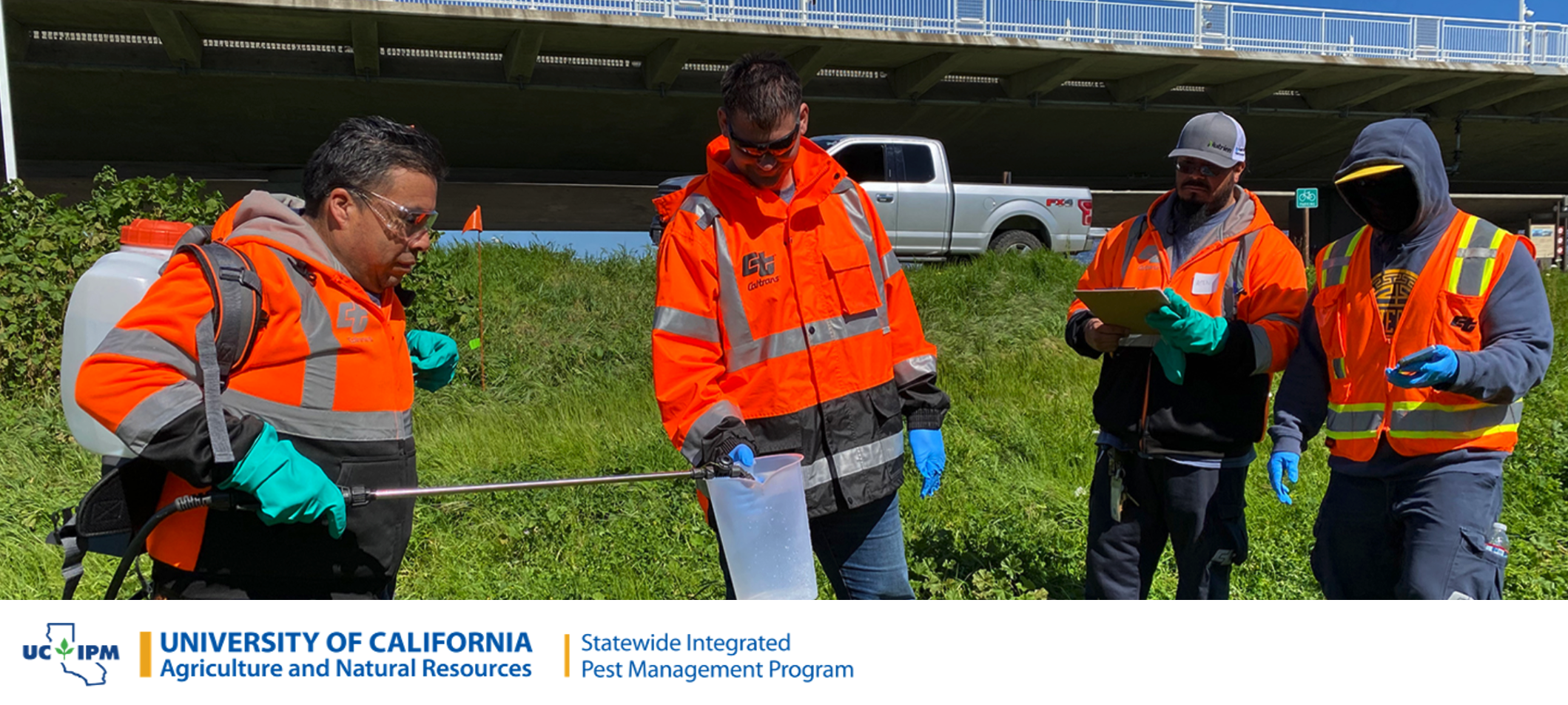

Sobre el curso
Este curso aborda varios métodos de calibración y tipos de equipos utilizados para gestionar malezas herbáceas y lechosas en muchos de los diferentes ecosistemas de California. El curso está disponible de forma gratuita. Contiene videos, por lo que se requiere un dispositivo que pueda reproducir audio y video.
¿Quién debería inscribirse en este curso?
Cualquier persona que trabaje con equipos de aplicación de herbicidas para el control de malezas lechosas y herbáceas en áreas no agrícolas.
Créditos de Educación Contínua
Departamento de Reglamentación de Pesticidas de California (0.5 hour Laws & Regs and 1.5 hours Other).
Período de inscripción
Este curso debe completarse antes del 30 de diciembre del año en curso. Descargue el certificado inmediatamente después de completar el curso. No podrá recuperar su certificado después del 30 de diciembre.
¿Necesita ayuda?
Para obtener ayuda con el inicio de sesión, la inscripción al curso o el pago, comuníquese con campushelp@extension.org. Para obtener ayuda con el progreso del curso o certificado, comuníquese
con UCIPMcourses@ucanr.edu.
- Technical support: UC IPM Online Training Support

Course Overview:
How You Will Benefit:
- Learn how to set up bank accounts and understand procedures for check signing
- Learn what a budget is, why they are important, and how to create a successful one
- Learn how to receive cash and other payments, accept gifts, and deposit and record money
- Understand California 4-H fundraising guidelines
- Learn how to write checks and complete a check register
- Understand how to complete accounting records for spending money
- Learn how to reconcile bank accounts and how to prepare a monthly report for your club
Approximate Time Commitment:
20 minutes
Option #1: Complete the whole training in order (does not have to be done in one sitting)
Option #2: Complete one section at at time in any order (does not have to be done in one sitting)
- California 4-H Club Treasurers and the adults who support them
For more Information about the course:
Scott C. Mautte
4-H Program Representative for Volunteer Development
University of California, Agriculture and Natural Resources
Email: idevelopsupport@ucanr.edu
![]()
- Teacher: Zeva Cho
- Teacher: CA 4-H eXtension Tech Support
- Teacher: Gemma Miner


ABOUT THIS COURSE
Course Overview:
The Civic Engagement Officer Training will explore the roles and responsibilities of a 4-H Civic Engagement Officer.
How You Will Benefit:
- Strategies for developing a service-learning committee
- Provide tools to educate clubs in community service and service-learning
- Learn the steps of planning a service-learning project
- Review the steps to reporting event progress
Approximate Time Commitment:
20 minutes
Who Should Attend:- 4-H Members desiring to be a Civic Engagement Officer
- Adult Staff and Volunteers who are supporting Civic Engagement Officers
- Civic Engagement Committee Members
This course is currently only offered to participants of the California 4-H Youth Development Program.
- Teacher: Zeva Cho
- Teacher: Jenna Colburn
- Teacher: CA 4-H eXtension Tech Support
- Teacher: Gemma Miner
WHO SHOULD ATTEND:
Adult Volunteers and senior member youth who volunteer at the county level to evaluate Record Books at County Competition.
COURSE OVERVIEW:
This short course is
designed for adult volunteers and senior member youth who volunteer at the
county level to evaluate Record Books at County Competition. Youth members
enter Record Book competitions as an optional opportunity to receive feedback
on their 4-H record-keeping and 4-H skills development. The course gives an
overview of the evaluation rubric, how to score and how to write helpful
comments. You will receive an electronic badge and a certificate upon
completion. Thank you for your time and talent to provide encouragement and
support to 4-H youth.
COMPLETION TIME:
30 Minutes
TECHNICAL NOTE:
This training works best with Mozilla Firefox. Download it for free here.
- Technical Support: idevelopsupport@ucanr.edu
- Course Information: Gemma Miner gmminer@ucanr.edu
- 4-H State Administrator: Zeva Cho
- 4-H State Administrator: CA 4-H eXtension Tech Support
- 4-H State Administrator: Gemma Miner
This "course" serves as a first level of support for users of the Extension Foundation Campus, its online course system. It provides a set of frequently asked questions designed to help users do some of their own troubleshooting, but also displays instructions for how to contact the Campus help desk.
- Teacher: Kim Scott
- Teacher: Aaron Weibe
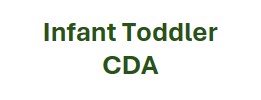
This is a restricted course and only available to participants accepted into the University of Nevada Reno, Extension CDA Training and Coaching Program.
- Teacher: Desiree Cabacar
- Teacher: Savannah Castanon
- Teacher: Janelle Jamero
- Teacher: Cathryn Peshlakai
- Teacher: Erin Skaggs
- Teacher: Rebecca Vizina
- Teacher: Lisa Whipple
- Teacher: Sarah Wright

This is a restricted course and available only for enrolled Child Development Associate Students.
- Teacher: Savannah Castanon
- Teacher: Janelle Jamero
- Teacher: Cathryn Peshlakai
- Teacher: Erin Skaggs
- Teacher: Rebecca Vizina
- Teacher: Lisa Whipple
- Teacher: Sarah Wright

This is a restricted course and available only for enrolled Child Development Associate Students.
- Teacher: Janelle Jamero
- Teacher: Cathryn Peshlakai
- Teacher: Erin Skaggs
- Teacher: Rebecca Vizina
- Teacher: Lisa Whipple
- Teacher: Sarah Wright

This is a restricted course and available only for enrolled Child Development Associate Students.
- Teacher: Janelle Jamero
- Teacher: Cathryn Peshlakai
- Teacher: Erin Skaggs
- Teacher: Rebecca Vizina
- Teacher: Lisa Whipple
- Teacher: Sarah Wright

This is a restricted course and available only for enrolled Child Development Associate Students.
- Teacher: Janelle Jamero
- Teacher: Cathryn Peshlakai
- Teacher: Erin Skaggs
- Teacher: Rebecca Vizina
- Teacher: Lisa Whipple
- Teacher: Sarah Wright

This is a restricted course and available only for enrolled Child Development Associate Students.
- Teacher: Janelle Jamero
- Teacher: Cathryn Peshlakai
- Teacher: Erin Skaggs
- Teacher: Rebecca Vizina
- Teacher: Lisa Whipple
- Teacher: Sarah Wright

This is a restricted course and available only for enrolled Child Development Associate Students.
- Teacher: Janelle Jamero
- Teacher: Cathryn Peshlakai
- Teacher: Erin Skaggs
- Teacher: Rebecca Vizina
- Teacher: Lisa Whipple
- Teacher: Sarah Wright

This is a restricted course and available only for enrolled Child Development Associate Students.
- Teacher: Janelle Jamero
- Teacher: Cathryn Peshlakai
- Teacher: Erin Skaggs
- Teacher: Rebecca Vizina
- Teacher: Lisa Whipple
- Teacher: Sarah Wright

This is a restricted course and available only for enrolled Child Development Associate Students.
- Teacher: Janelle Jamero
- Teacher: Cathryn Peshlakai
- Teacher: Erin Skaggs
- Teacher: Rebecca Vizina
- Teacher: Lisa Whipple
- Teacher: Sarah Wright

This is a restricted course and only available to participants accepted into the University of Nevada Reno, Extension CDA Training and Coaching Program.
- Teacher: Marybel Arreguin-Lopez
- Teacher: Desiree Cabacar
- Teacher: Savannah Castanon
- Teacher: Maria Jake
- Teacher: Janelle Jamero
- Teacher: Cathryn Peshlakai
- Teacher: Chelsie Shurtleff
- Teacher: Erin Skaggs
- Teacher: Shanell Townsend
- Teacher: Rebecca Vizina
- Teacher: Sarah Wright

- Teacher: Marybel Arreguin-Lopez
- Teacher: Desiree Cabacar
- Teacher: Savannah Castanon
- Teacher: Maria Jake
- Teacher: Janelle Jamero
- Teacher: Cathryn Peshlakai
- Teacher: Chelsie Shurtleff
- Teacher: Erin Skaggs
- Teacher: Shanell Townsend
- Teacher: Lisa Whipple
- Teacher: Sarah Wright

This course is restricted and only available to participants registered in University of Nevada Reno, Extension CDA Program.
- Teacher: Desiree Cabacar
- Teacher: Savannah Castanon
- Teacher: Maria Jake
- Teacher: Cathryn Peshlakai
- Teacher: Chelsie Shurtleff
- Teacher: Shanell Townsend
- Teacher: Lisa Whipple
- Teacher: Sarah Wright

This course is restricted and only available to participants registered in University of Nevada Reno, Extension CDA Program.
- Teacher: Desiree Cabacar
- Teacher: Savannah Castanon
- Teacher: Maria Jake
- Teacher: Cathryn Peshlakai
- Teacher: Shanell Townsend
- Teacher: Lisa Whipple
- Teacher: Sarah Wright

This course is restricted and only available to participants registered in University of Nevada Reno, Extension CDA Program.
- Teacher: Marybel Arreguin-Lopez
- Teacher: Desiree Cabacar
- Teacher: Savannah Castanon
- Teacher: Maria Jake
- Teacher: Cathryn Peshlakai
- Teacher: Erin Skaggs
- Teacher: Shanell Townsend
- Teacher: Lisa Whipple
- Teacher: Sarah Wright

This course is restricted and only available to participants registered in University of Nevada Reno, Extension CDA Program.
- Teacher: Desiree Cabacar
- Teacher: Savannah Castanon
- Teacher: Maria Jake
- Teacher: Janelle Jamero
- Teacher: Cathryn Peshlakai
- Teacher: Erin Skaggs
- Teacher: Shanell Townsend
- Teacher: Lisa Whipple
- Teacher: Sarah Wright

This course is restricted and only available to participants registered in University of Nevada Reno, Extension CDA Program.
- Teacher: Desiree Cabacar
- Teacher: Savannah Castanon
- Teacher: Maria Jake
- Teacher: Janelle Jamero
- Teacher: Cathryn Peshlakai
- Teacher: Erin Skaggs
- Teacher: Shanell Townsend
- Teacher: Lisa Whipple
- Teacher: Sarah Wright

This course is restricted and only available to participants registered in University of Nevada Reno, Extension CDA Program.
- Teacher: Desiree Cabacar
- Teacher: Savannah Castanon
- Teacher: Maria Jake
- Teacher: Robin Marx-Mackerley
- Teacher: Cathryn Peshlakai
- Teacher: Shanell Townsend
- Teacher: Lisa Whipple
- Teacher: Sarah Wright

This course is restricted and only available to participants registered in University of Nevada Reno, Extension CDA Program.
- Teacher: Desiree Cabacar
- Teacher: Savannah Castanon
- Teacher: Maria Jake
- Teacher: Cathryn Peshlakai
- Teacher: Shanell Townsend
- Teacher: Lisa Whipple
- Teacher: Sarah Wright

This is a restricted course and only available to participants accepted into the University of Nevada Reno, Extension CDA Training and Coaching Program.
- Teacher: Marybel Arreguin-Lopez
- Teacher: Desiree Cabacar
- Teacher: Savannah Castanon
- Teacher: Maria Jake
- Teacher: Stephanie May
- Teacher: Cathryn Peshlakai
- Teacher: Sarah Wright


- Teacher: Marybel Arreguin-Lopez
- Teacher: Maria Jake
- Teacher: Stephanie May
- Teacher: Cathryn Peshlakai
- Teacher: Lisa Whipple
- Teacher: Sarah Wright

This is a restricted course and available only for enrolled CDA Students.

- Teacher: Marybel Arreguin-Lopez
- Teacher: Maria Jake
- Teacher: Stephanie May
- Teacher: Cathryn Peshlakai
- Teacher: Lisa Whipple
- Teacher: Sarah Wright

Este es un curso restringido y disponible solo para estudiantes inscritos en CDA.

- Teacher: Marybel Arreguin-Lopez
- Teacher: Maria Jake
- Teacher: Stephanie May
- Teacher: Cathryn Peshlakai
- Teacher: Lisa Whipple
- Teacher: Sarah Wright

This is a restricted course and available only for enrolled CDA Students.

- Teacher: Marybel Arreguin-Lopez
- Teacher: Maria Jake
- Teacher: Stephanie May
- Teacher: Cathryn Peshlakai
- Teacher: Lisa Whipple
- Teacher: Sarah Wright

This is a restricted course and available only for enrolled CDA Students.

- Teacher: Marybel Arreguin-Lopez
- Teacher: Maria Jake
- Teacher: Stephanie May
- Teacher: Cathryn Peshlakai
- Teacher: Lisa Whipple
- Teacher: Sarah Wright

This is a restricted course and available only for enrolled Child Care Excellence Academy Students.

- Teacher: Marybel Arreguin-Lopez
- Teacher: Maria Jake
- Teacher: Stephanie May
- Teacher: Cathryn Peshlakai
- Teacher: Lisa Whipple
- Teacher: Sarah Wright

This is a restricted course and available only for enrolled CDA Students. 
- Teacher: Marybel Arreguin-Lopez
- Teacher: Savannah Castanon
- Teacher: Maria Jake
- Teacher: Stephanie May
- Teacher: Cathryn Peshlakai
- Teacher: Lisa Whipple
- Teacher: Sarah Wright

This is a restricted course and available only for enrolled CDA Students. 
- Teacher: Marybel Arreguin-Lopez
- Teacher: Maria Jake
- Teacher: Stephanie May
- Teacher: Cathryn Peshlakai
- Teacher: Lisa Whipple
- Teacher: Sarah Wright
Certified Biomass Procurement Specialist – Short Rotation Woody Crops is an online course for anyone interested in growing trees in a plantation. In this course participants will learn about pine, popular and cottonwood trees and how each preforms in different environments.
For more information contact Mark Hall, Alabama Cooperative Extension System, hallmah@auburn.edu
For technical assistance please contact campushelp@extension.org
- Teacher: John Fulton
The purpose of the CFCWR Intern Training program is to provide participants with an interdisciplinary perspective of food equity in the United States and increase their understanding and competency about this issue. This program was developed and is administered by the USDA-funded Center for Food Conservation and Waste Reduction.
Curriculum Outline:
The training program is a weekly online synchronous class (~1 1/2 to 2 hours) for 9 weeks plus a post-training research project. The 9-weeks include an orientation in week 1 and recap in week 9 with the following topics weeks 2 to 7:
1. Sustainable U.S. Food System
2. Food security and social determinants of health
3. Nutrition, Disease, and Health Disparities
4. Food Equity
5. Food Waste and Conservation
6. Community organizations involved in food equity
7. Policies related to food equity
Additionally, participants will engage in a post-training research project related to household food waste or other food equity topic to earn their certificate.
Expectations:
Participants will be expected to complete weekly pre-readings, participate in Q&A during the Zoom meeting based on the weekly topics, complete a weekly reflection based on the week's topic, complete pre- and post-program and weekly session surveys,
Prerequisites:
Participants must apply to the program and be selected by the program's administrator to participate. to apply, please contact Karen Byrd, at ksbyrd@purdue.edu .
- Instructor: Karen Byrd
- Instructor: Brenna Ellison
The purpose of the CFCWR Intern Training program is to provide participants with an interdisciplinary perspective of food equity in the United States and increase their understanding and competency about this issue. This program was developed and is administered by the USDA-funded Center for Food Conservation and Waste Reduction.
Curriculum Outline:
The training program is a weekly online synchronous class (~1 1/2 to 2 hours) for 9 weeks plus a post-training research project. The 9-weeks include an orientation in week 1 and recap in week 9 with the following topics weeks 2 to 7:
1. Sustainable U.S. Food System
2. Food security and social determinants of health
3. Nutrition, Disease, and Health Disparities
4. Citizen Science
5. Food Waste and Conservation
6. Community organizations involved in food equity
7. Policies related to food equity
Additionally, participants will engage in a post-training research project related to household food waste or other food equity topic to earn their certificate.
Expectations:
Participants will be expected to complete weekly pre-readings, participate in Q&A during the Zoom meeting based on the weekly topics, complete a weekly reflection based on the week's topic, complete pre- and post-program and weekly session surveys,
Prerequisites:
Participants must apply to the program and be selected by the program's administrator to participate. to apply, please contact Karen Byrd, at ksbyrd@purdue.edu .
- Teacher: Karen Byrd
- Teacher: Brenna Ellison
Thank you for logging in to complete this online Expanded Food and Nutrition Education (EFNEP) lesson. You should have received an enrollment key from your class instructor. Enter this enrollment key in order to access and complete this lesson.
- Teacher: Megan Berthiaume
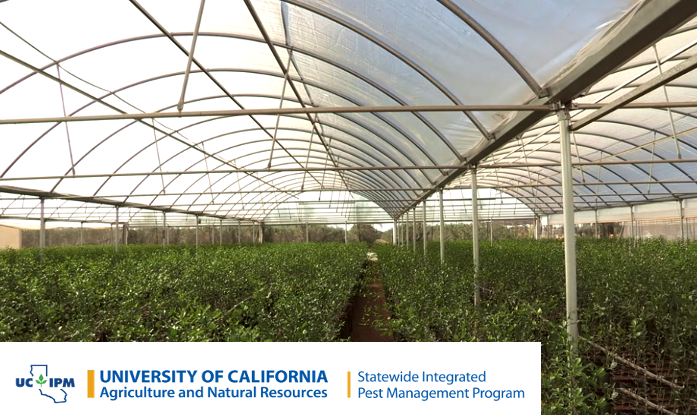

Course overview
This course is designed for nursery employees who work in screenhouses and greenhouses. It is designed to help employees understand how to prevent insects and diseases from infesting plants.
This course was authored by Dr. Beth Grafton-Cardwell (UCCE Emerita Entomology Specialist).
Who should enroll?
Retail nursery and garden center personnel
This course has not been approved for Continuing Education Units.
- Technical support: UC IPM Online Training Support
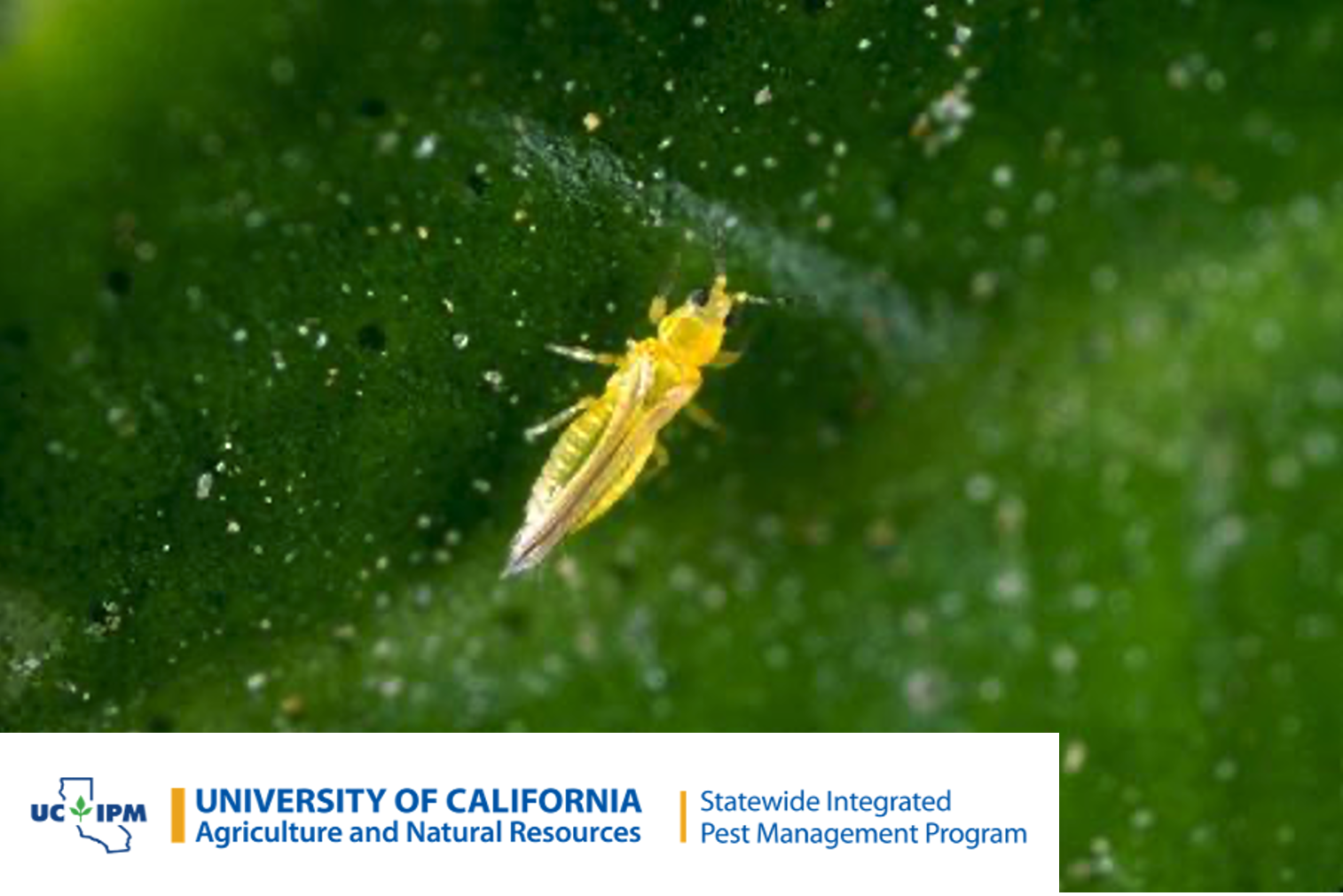

This course covers the identification, biology, and management of Citrus Thrips, Scirtothrips citri. Topics also include damage to citrus, population dynamics and monitoring. This course is available for free for those who do not need Continuing Education Units. The author of the course is Dr. Elizabeth Grafton-Cardwell (UCCE Emerita Entomology Specialist).
Pest management professionals and growers
California Department of Pesticide Regulation (1.0 hour Other) and Certified Crop Adviser (0.5 IPM).
To get the Continuing Education Units certificate you will be charged a fee of $20. To encourage taking the course earlier in the year, we offer 50% off the regular price from January through October 31st – use the code ipm50 at checkout. You must download the certificate (PDF file) to receive your CEU credits.
This course must be completed by December 30 of the current year. Download the certificate immediately when you complete the course. You will not be able to retrieve your certificate after December 30.
- Technical support: UC IPM Online Training Support
Course must be completed and certificate downloaded before December 30 of the current year.
To access the free version of this course without a certificate, click on the title below:
Citrus Thrips
- Technical support: UC IPM Online Training Support
- Technical support: Cheryl Reynolds
This course is intended to satisfy the annual ethics training requirements for the City of Bozeman employees, elected officials and appointed officials. The training is based on the Montana Code Annotated and City of Bozeman policy, and will educate participants in laws, policies, and best practices.
For more information or to enroll please contact: Ashley Kent, Montana State University Extension, ashleykent@montana.edu
- Teacher: Ashley Kent
- Teacher: Lydia Maunz
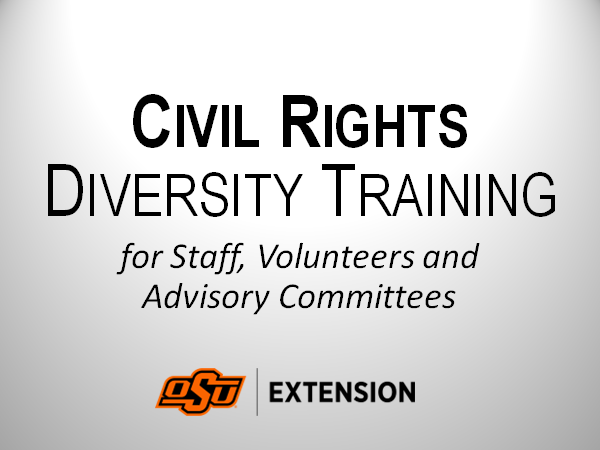

This 12 minute video overview explains our civil rights responsibilities for all Extension staff, volunteers, advisory councils, and committees.
Everyone making a decision or carrying out actions on behalf of Extension is responsible to make sure the program is inclusive as we serve the people of Oklahoma.
For more information contact Leah Haxton, Oklahoma State University, at Leah.g.haxton@okstate.edu or Karla Knoepfli, Oklahoma State University, at karla.knoepfli@okstate.edu
- Teacher: carl hamby
- Teacher: Leah Haxton
- Teacher: Dwayne Hunter
- Teacher: Karla Knoepfli
"Our goal is to help students understand how to use some aspects of R, as applicable through data collected from a plant breeding experiment in the TCAP project (a wheat and barley breeding project funded by the US Dept of Agriculture). We developed the course to be beneficial for people working in the disciplines of plant breeding and/or computer programming. The course was developed by Dr. Ashu Guru who is a professor in computer science and Dr. Deana Namuth-Covert, a professor in plant breeding and genetics education. We have created the content assuming students know nothing about R. Approximate time to complete: 40 hoursTarget audience: plant breeding students or plant breeding professionals."
For more information contact: n: Leah Sandall, University of Nebraska-Lincoln lsandall5@unl.edu
- Teacher: Leah Sandall
The 4-H Volunteer Training is designed to give new volunteers basic information to prepare them for service in 4-H. It will also serve as a refresher course for all returning volunteers. This training has 4 components that are designed to be completed in sequential order. As you complete each section, lessons in the next section will appear.
The course does not need to be completed in one sitting and will pick up where you left off when you return to it.
The overall training will take approximately 1 hour to complete.
Target Audience is Adults, who want to be Volunteers for the Colorado 4-H Program.
For more information or to enroll please contact instructor Joy Bauder CO 4-H State Office, CO 4-H Youth Development Program @ colorado4h@gmail.com
- Colorado State 4-H Office: Joy Bauder
Students who take this course will learn safe use of pesticides, including Integrated Pest Management; Federal and Colorado Laws Governing the Use of Pesticides; Understanding Pesticide Labels and Safety Data Sheets; Applicator Safety; Pesticide Application; and Environmental Protection and Public Health.
For information or to enroll contact Lisa Blecker, Colorado State University, at Lisa.Blecker@colostate.edu
- Teacher: Lisa Blecker
- Teacher: Hannah Geisterfer
- Teacher: Chrissy Kaminski
- Teacher: Summer McLain
- Teacher: Ohio Pesticide Safety Education
Gracias por ingresar a la página Web para completar esta lección de Educación sobre Nutrición y Alimentos (EFNEP). Usted debió haber recibido una clave de inscripción de parte de su instructor. Ingrese esa clave de inscripción para acceder y completar esta lección.
- Teacher: Megan Berthiaume

This course is designed to educate compost makers and handlers on the special food safety considerations required by the leafy greens growers of the desert southwest. Interactive questions are placed within the video and a certificate of completion will be automatically emailed to the student once the course is completed.
Technical support: Robert Masson, masson@arizona.edu
----
Este curso esta designado para educar fabricantes de compostaje y manipuladores enla area de food safety consideraciones que requiere los cultivadores de leafy greens del desierto southwest. Preguntas interactivas estan puestos dentro del video y un certificado de completacion automaticamenet va estar enviado al correo del estudiante cuando terminen el curso.
Supporte tecnico: Robert Masson, masson@arizona.edu
- Teacher: Don Dinwiddie
- Teacher: Robert Masson
Gracias por ingresar a la página Web para completar esta lección de Educación sobre Nutrición y Alimentos (EFNEP). Usted debió haber recibido una clave de inscripción de parte de su instructor. Ingrese esa clave de inscripción para acceder y completar esta lección.
- Teacher: Megan Berthiaume
- Teacher: Megan Berthiaume
Monthly workshop series covering a broad array of topics related to computational biology. This includes introduction to and advanced command line, R, python, Adobe Illustrator.
- Teacher: Ken Kugel
- Teacher: Kathy LaTourrette
- Teacher: Matt Pekarek
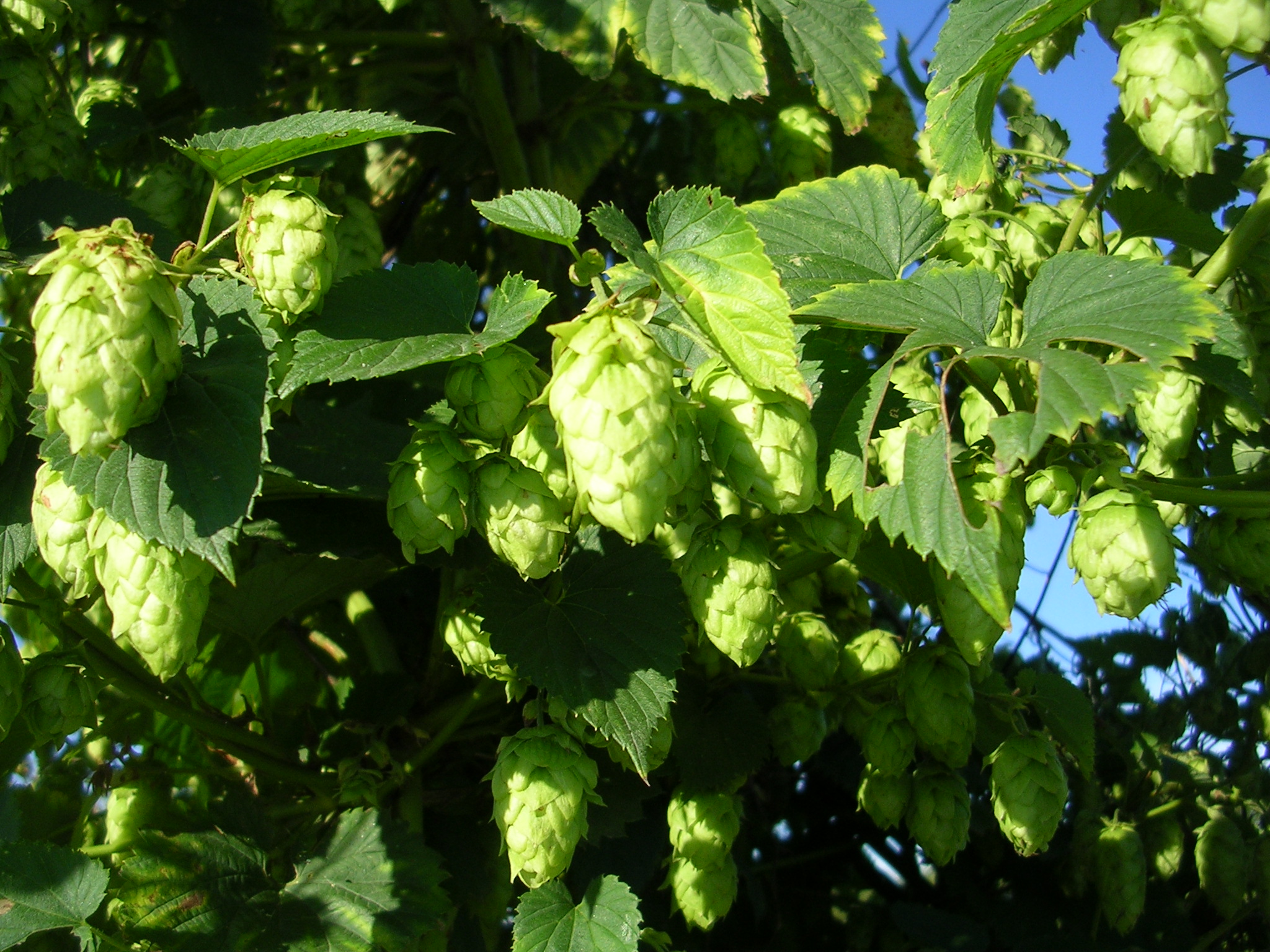
This online proceedings of 10th Annual Vermont Hop Conference, held on February 21, 2019 in S. Burlington, Vermont, was organized by the University of Vermont (UVM) Extension Northwest Crops and Soils Program and included
presentations from experts and farmers from across North America on topics including hop production and processing, pest and disease management, hop sensory evaluation, historic hop germplasm project, virtual reality tools to scout a hop yard and the
latest UVM hop research findings.
Contact Susan Brouillette at susan.brouillette@uvm.edu for additional information.
- Teacher: Susan Brouillette
This online proceedings of 7th Annual Vermont Hop Conference, held on February 19, 2016 in Colchester, Vermont, was organized by the University of Vermont (UVM) Extension Northwest Crops and Soils Program and included presentations from experts and farmers from across the country on topics including agronomic and fertility considerations, spring training, scaling up production, and the latest UVM hop research findings.
Contact Susan Brouillette at susan.brouillette@uvm.edu for additional information.- Teacher: Susan Brouillette
This online proceedings of 8th Annual Vermont Hop Conference, held on February 25, 2017 in Burlington, Vermont, was organized by the University of Vermont (UVM) Extension Northwest Crops and Soils Program and included
presentations from experts and farmers from across North America on topics including agronomic and fertility considerations, spring training, scaling up production, and the latest UVM hop research findings.
Contact Susan Brouillette at susan.brouillette@uvm.edu for additional information.
- Teacher: Susan Brouillette

This online proceedings of 9th Annual Vermont Hop Conference, held on February 16, 2018 in Burlington, Vermont, was organized by the University of Vermont (UVM) Extension Northwest Crops and Soils Program and included
presentations from experts and farmers from across North America on topics including agronomic and fertility considerations, niche markets, hop production, hop sensory evaluation, and the latest UVM hop research findings.
Contact Susan Brouillette at susan.brouillette@uvm.edu for additional information.
- Teacher: Susan Brouillette
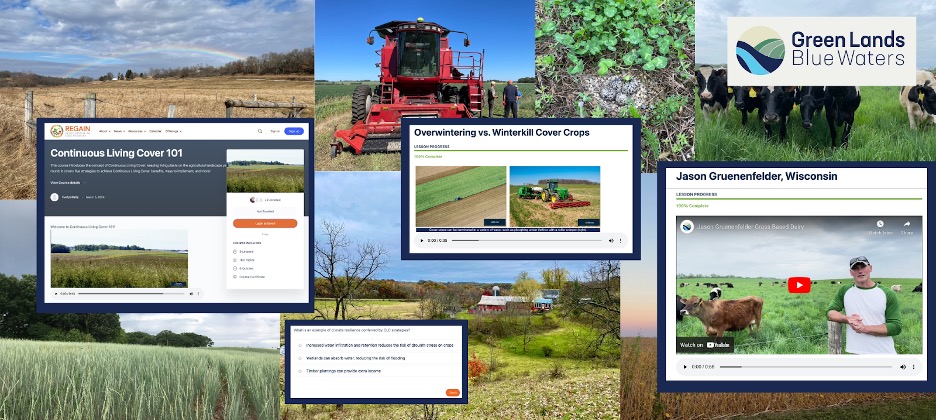
CLC 101 introduces the concept of Continuous Living Cover - in-field strategies that maintain living roots and cover on the ground all year. It describes five basic strategies to achieve CLC (annuals + cover crops, agroforestry, perennial grains, perennial forage and grazing, and perennial biomass), and goes over economic and environmental benefits with on-farm examples. It also covers how to talk to farmers and support them in choosing and implementing CLC strategies. Throughout the course, there are recommendations on where to find more information. This course is designed for technical advisors, but is also relevant for farmers, graduate students, and other agricultural conservation professionals. The course is entirely virtual, free of charge, and self-paced. [Currently, there is no planned downtime for the course.]
- Teacher: Marjorie Hegstrom
- Teacher: Evelyn Reilly
- Teacher: Aaron Reser
Listen about some of the cost-share programs offered to help landowners access and manage their forest properties.
1.0 category 1 CEU - $20
- Teacher: Raymond Berthiaume
This training fulfills the need for the accredited food safety training required in LB 304, part of the Nebraska Pure Food Act. This course is specific to Nebraska’s laws and may not reflect those in other states or countries.
This training has been endorsed by: The Nebraska Department of Agriculture and The Douglas County (Nebraska, United States) Health Department.
- Teacher: Cindy Brison, MS, RDN
- Teacher: David Diez
- Teacher: Kezia Huseman
- Teacher: Linda Reddish
- Teacher: Angie Rushman
- Teacher: Deborah Weitzenkamp

This five-module course is designed to support learners in understanding the importance of creating strong partnerships between veterinarians and producers to enhance profitability and sustainability.
What's included:
Video Learning Modules
Module 1 - Communication: A Vital Role in Establishing a Viable Relationship
Module 2 - The Veterinarian-Client-Patient (VCPR) Relationship Mystery
Module 3 - Benefits of a Veterinarian-Client-Patient Relationship (VCPR) for the Use and Accessibility of Drugs
Module 4 - Utilize the Veterinary Feed & Directive and Additional Guidelines in Establishing a VCPR
Module 5 - Distance Animal Care
Study Guides
Resources to support learner engagement while navigating video lessons.
Details
- Self-Paced
- Estimated time of completion: 7 hours
- User must score > 70% on the Post-Test to receive a certificate at the end of the course.
- Teacher: CET Administration
- Teacher: Bette Bittner
- Teacher: CET HelpDesk
- Teacher: Miguel Hoch
- Teacher: Nicola Ritter
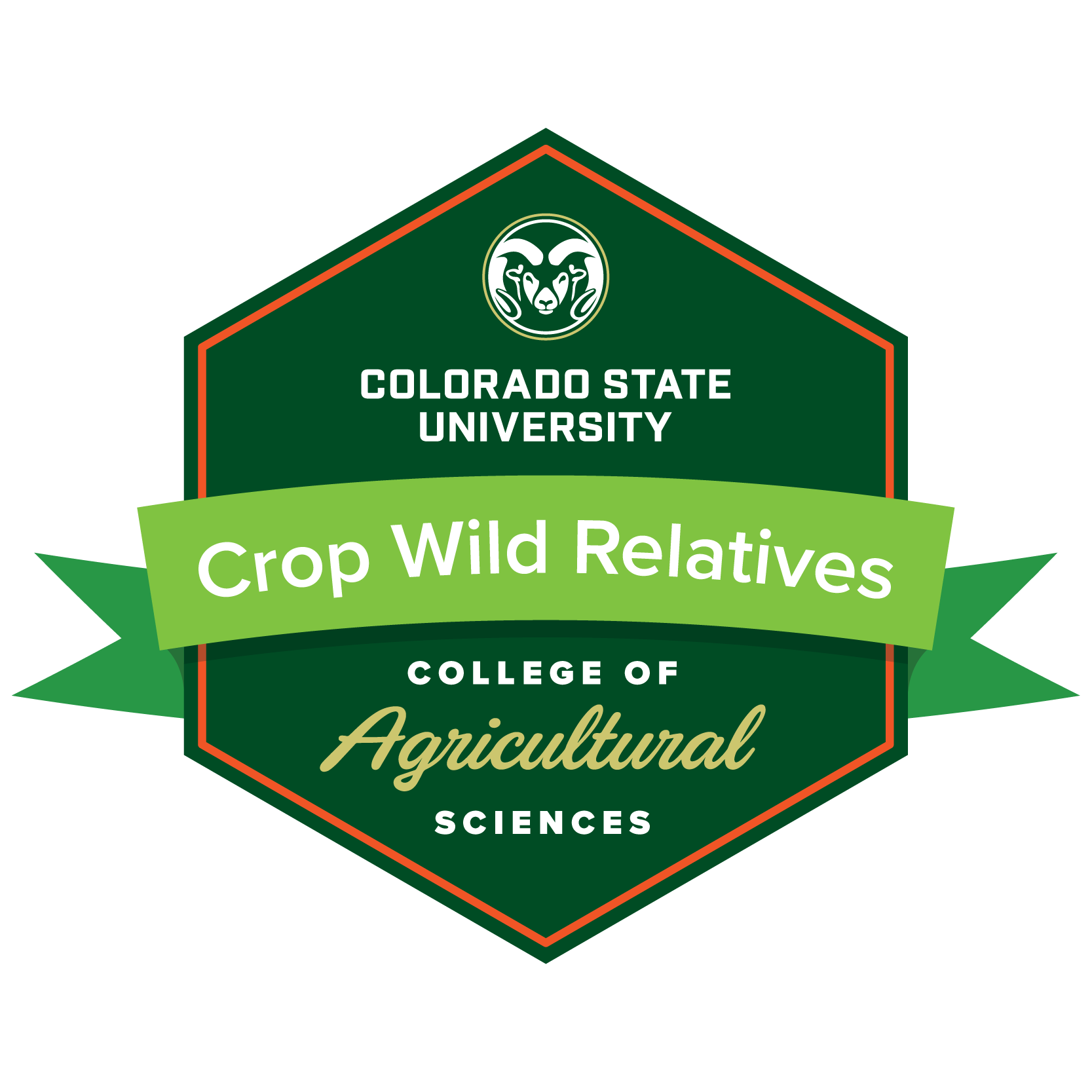
This online mini-course is intended for anyone new to seed science, plant breeding or even general agriculture, about to begin employment in agriculture outside of their family business or wishing to improve their current skills and knowledge.
Development of this Badge Course was made possible through a collaboration between Colorado State University and the United States Department of Agriculture.
This course is supported in part by grant 2020-70003-30930 from the USDA-NIFA Higher Education Challenge Grant Program, administered by Colorado State University. Any opinions, findings, conclusions or recommendations expressed in this publication are those of the author(s) and do not necessarily reflect the views of the USDA-NIFA.

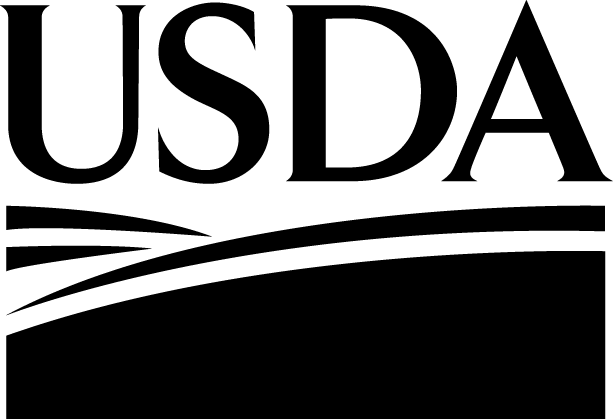
- Teacher: Deana Namuth-Covert
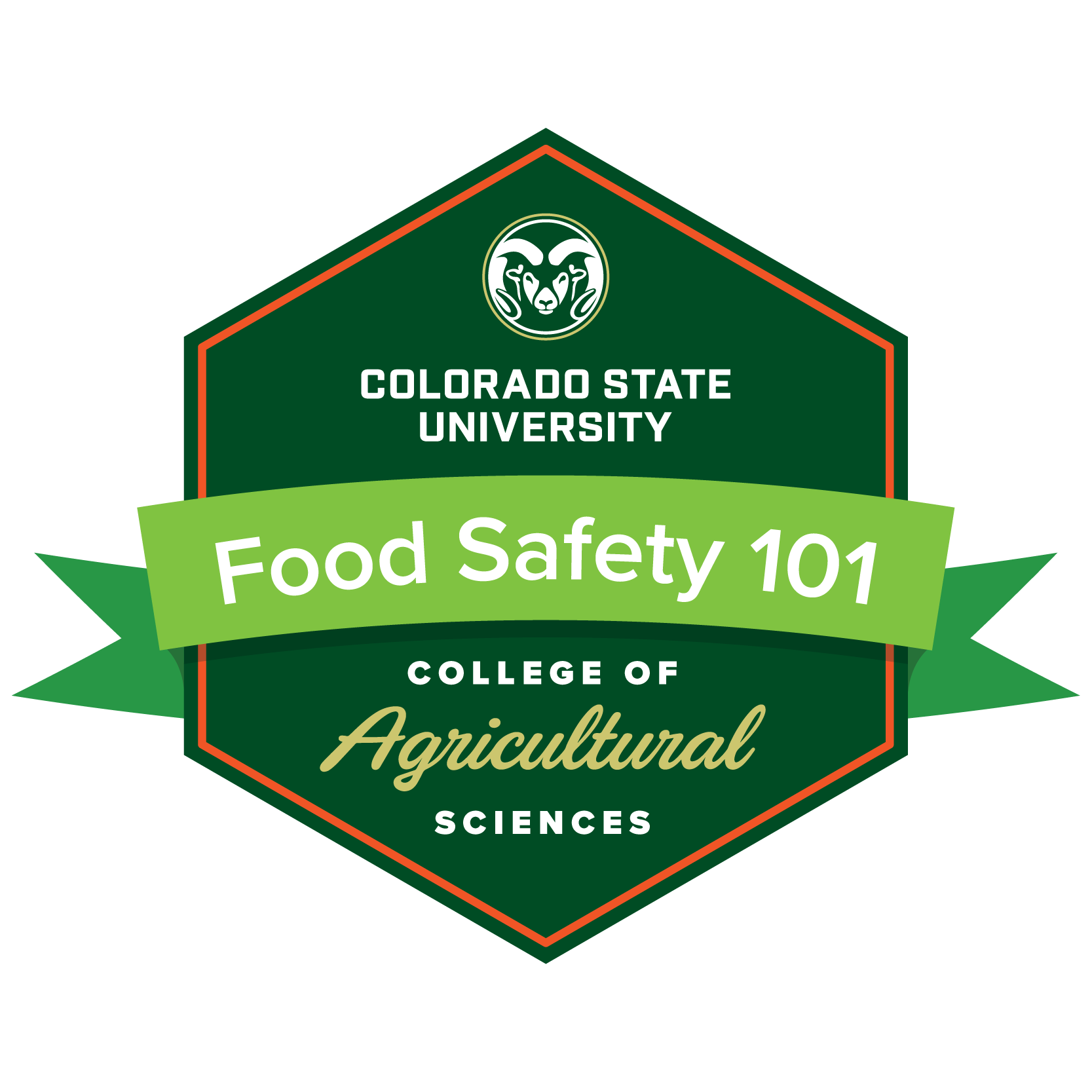
Pilot online course for select Colorado high schools, as part of the CSU Ag Upskilling program. This course is made available by a grant from Zoma Labs support of the SyncUp Colorado program.
Email Deana.Namuth-Covert@colostate.edu for access key code and course instructions.

- Teacher: Tamla Blunt
- Teacher: Deana Namuth-Covert
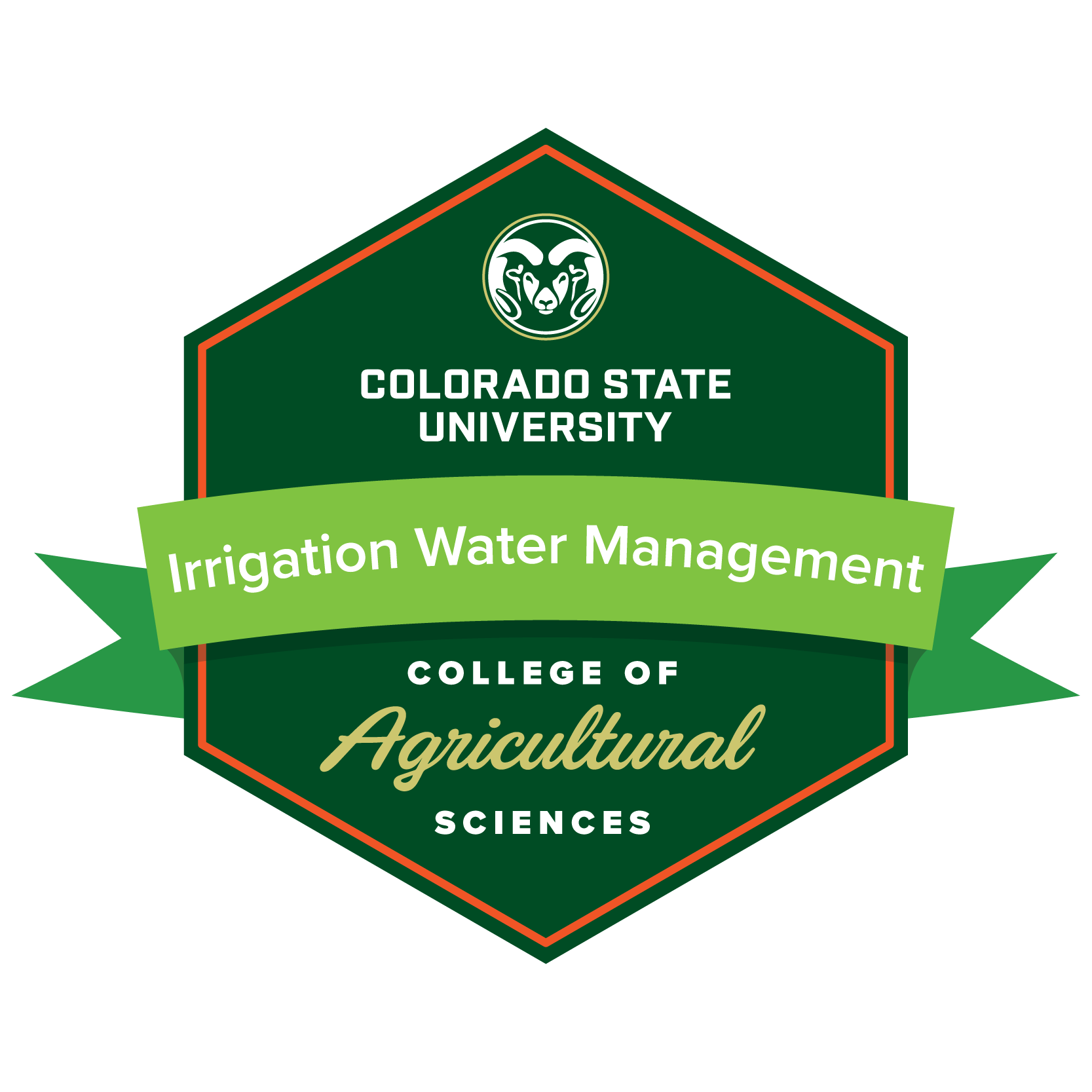
Development of this Badge was supported in part by funding from the CHS Foundation, administered by Colorado State University (2022). The CHS Foundation, funded by charitable gifts from CHS Inc., is focused on developing a new generation of agriculture leaders for life-long success. Together, with our partners, we are igniting innovation and driving excellence in agriculture education, cultivating high impact programs for rural youth and accelerating potential for careers in agriculture.
Learn more at CHS Foundation.
Email Deana.Namuth-Covert@colostate.edu to receive an access key code and course instructions.

- Teacher: Allan Andales
- Teacher: Tamla Blunt
- Teacher: Deana Namuth-Covert
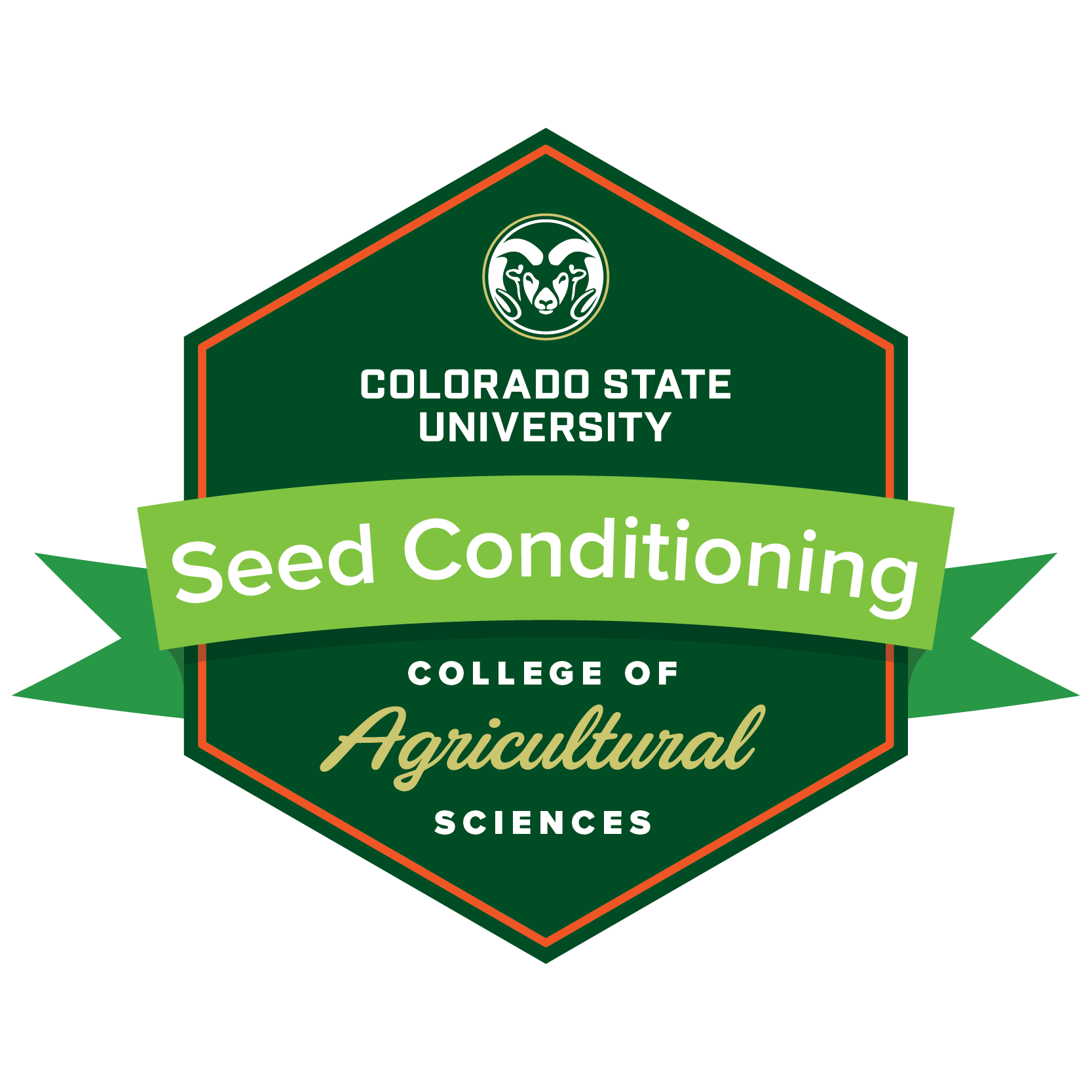
This Seed Conditioning Course is available to high school and college students at no charge thanks to grant funding. It consists of a set of 7 interactive lessons and a final graded quiz. Lessons include: 1) Seed Conditioning Basics, 2) The Influence of Seed Conditioning on Seed Quality, 3) Plant Breeding & Intellectual Property Protection of Seed and Plant Varieties, 4) Sourcing, Sampling and Handling of Unconditioned and Conditioned Seed, 5) Quality Assurance and Seed Conditioning Facility Management, 6) Carryover Seed, Inventory, and Seed Storage and 7) Seedborne Disease and Treatments. Lessons were approved for CEU credit with the national Certified Crop Advisor program.
Please contact Laura Pottorff for more information: Laura.Pottorff@colostate.edu
- Teacher: Tamla Blunt
- Teacher: Deana Namuth-Covert
- Teacher: Rick Novak
- Teacher: Laura Pottorff
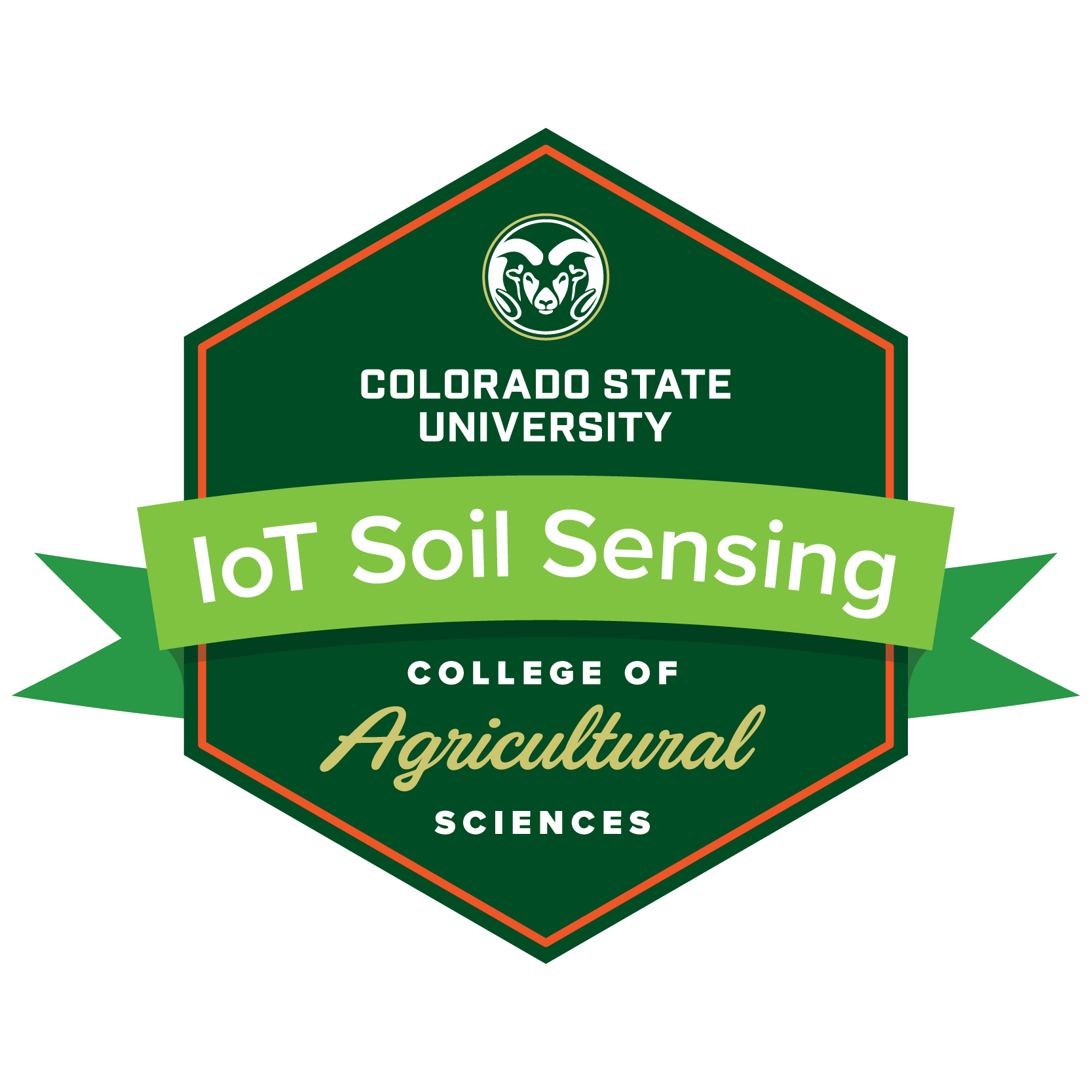
This CSU Badge introduces foundation principles on how internet-of-things (IoT) technology and sensors can be used to provide real-time soil moisture and weather data, allowing growers to improve the timing and amounts of irrigation – saving water and avoiding plant water stress. These general principles are applicable to either landscape or agriculture irrigation sectors, including a wide range of scenarios such as efficiently watering a backyard garden, growing vegetables in a greenhouse, maintaining golf courses and lawns, as well as irrigating large crop fields. Using a kit containing sensors and a wireless IoT microcontroller, participants will gaine hands-on experience building, programming, and using their own IoT (i.e, sensor-based) system to monitor soil water levels based on real-time data. Using an experiential learning approach, learners will gain new knowledge on how IoT sensor technology and the resulting real-time data can be leveraged to improve irrigation decisions and save water. Program was funded in part by the CHS Foundation and Colorado State University.


- Teacher: Tamla Blunt
- Teacher: James Folkestad
- Teacher: Jay Ham
- Teacher: Deana Namuth-Covert
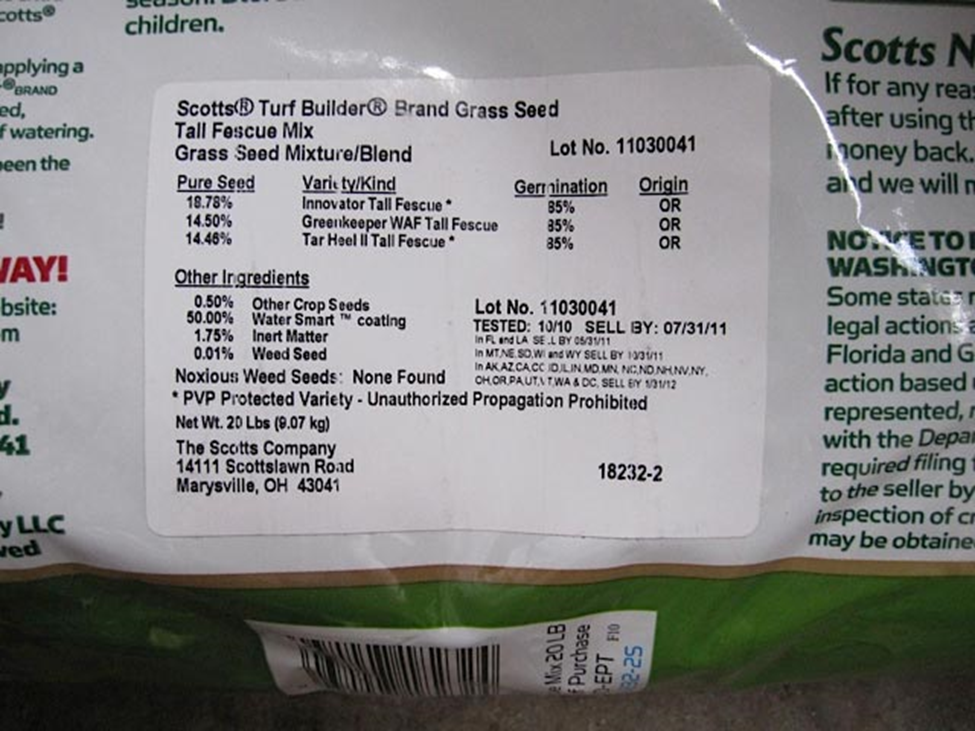
Summary: The Seed industry exists to provide high quality seed to farmers and growers. The value of seed is a measure of its ability to establish the desired field stand at low planting rates, grow into plants which are high-yielding, healthy, and the established type. The livelihood of farmers and the ultimate health of communities relies on the ability of seed to perform and grow into a crop that can be harvested and eaten. A system of laws and regulations has developed over time to protect societies and food systems from liability and risk. A seed conditioner must understand the system of laws and regulations in place, ensure that the conditioning plant and its operation are maintaining seed varietal identity through the entire process and avoid introduction of contaminants. This course is fifth in a series which will walk you through foundational concepts of seed conditioning.
Upskill Credentials: If you finish the entire course including passing the quiz with a score of 80% or better (which you can take up to 3 times) and filling out the short 5 mins feedback survey, then you will earn a badge certificate of completion. This course has been approved for 2 Crop Management CEUs through the national Certified Crop Adviser program.
Acknowledgements: This online micro-credential upskilling course is offered through the CSU Ag Upskilling program. This material is based upon work that is supported by the National Institute of Food and Agriculture, U.S. Department of Agriculture, under award number 2024-68018-42796, administered by Colorado State University. USDA is an equal opportunity employer and service provider. Any opinions, findings, conclusions, or recommendations expressed in this publication are those of the author(s) and do not necessarily reflect the view of the U.S. Department of Agriculture.

The enrollment fee for this course is $50.
You may also choose to purchase all 7 of the CSU Upskilling Seed Conditioning Courses for a discounted price of $300. To do so, click the link below.
- Teacher: Tamla Blunt
- Teacher: Deana Namuth-Covert
- Teacher: Rick Novak
- Teacher: Laura Pottorff
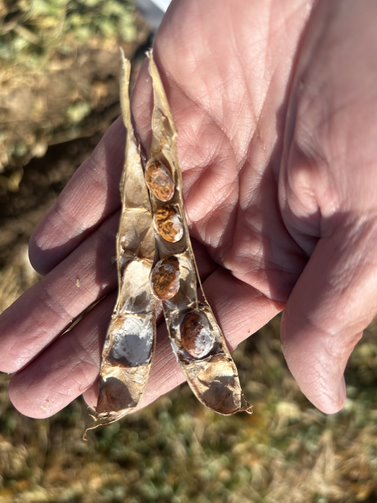
This course section is specifically for Pesticide Applicators working on CEUs with the Colorado Department of Agriculture's Licensing Program
Summary: Seed can serve as a pathway for introducing plant diseases and other pests to new environments and new countries. The risk to agriculture is very high should a new pathogen become introduced and established in an important crop. Seed of over 300 species of plants are moved globally, often several times before being sold commercially. Therefore, the removal or management of seed borne disease is imperative to protect global agriculture and trade. This course is seventh in a series which will walk you through foundational concepts of seed conditioning.
Upskill Credentials: If you finish the entire course including passing the quiz with a score of 80% or better (which you can take up to 3 times) and filling out the short 5 mins feedback survey, then you will earn a badge certificate of completion. This course has been approved for 2 Integrated Pest Management CEUs through the national Certified Crop Adviser program and 1 credit Continuing Education Credit with the Colorado Department of Agriculture for licensed Colorado qualified supervisors, certified operators, and private applicators.
Time Required: We estimate it will take you 1-2 hours in total to complete the course. You can work on it at your own pace and do not have to complete it in one setting.
ADA Accessibility: We have done our best to follow ADA best practices. Let us know if you run into any problems or require further accommodations.
If you have any questions, please contact your instructor, Laura Pottorff, M.S., Director of Seed Program at: Laura.Pottorff@colostate.edu
Acknowledgements: This online micro-credential upskilling course is offered through the CSU Ag Upskilling program. This material is based upon work that is supported by the National Institute of Food and Agriculture, U.S. Department of Agriculture, under award number 2024-68018-42796, administered by Colorado State University. USDA is an equal opportunity employer and service provider. Any opinions, findings, conclusions, or recommendations expressed in this publication are those of the author(s) and do not necessarily reflect the view of the U.S. Department of Agriculture.

The enrollment fee for this course is $50.
You may also choose to purchase all 7 of the CSU Upskilling Seed Conditioning Courses for a discounted price of $300, please contact Deana Namuth-Covert at Deana.namuth-covert@colostate.edu.
- Teacher: Tamla Blunt
- Teacher: Deana Namuth-Covert
- Teacher: Rick Novak

Summary: Seed can serve as a pathway for introducing plant diseases and other pests to new environments and new countries. The risk to agriculture is very high should a new pathogen become introduced and established in an important crop. Seed of over 300 species of plants are moved globally, often several times before being sold commercially. Therefore, the removal or management of seed borne disease is imperative to protect global agriculture and trade. This course is seventh in a series which will walk you through foundational concepts of seed conditioning.
Upskill Credentials: If you finish the entire course including passing the quiz with a score of 80% or better (which you can take up to 3 times) and filling out the short 5 mins feedback survey, then you will earn a badge certificate of completion. This course has been approved for 2 Integrated Pest Management CEUs through the national Certified Crop Adviser program.
Time Required: We estimate it will take you 1-2 hours in total to complete the course. You can work on it at your own pace and do not have to complete it in one setting. Click on the eBook link below to begin.
ADA Accessibility: We have done our best to follow ADA best practices. Let us know if you run into any problems or require further accommodations.
If you have any questions, please contact your instructor, Laura Pottorff, M.S., Director of Seed Program at: Laura.Pottorff@colostate.edu
Acknowledgements: This online micro-credential upskilling course is offered through the CSU Ag Upskilling program. This material is based upon work that is supported by the National Institute of Food and Agriculture, U.S. Department of Agriculture, under award number 2024-68018-42796, administered by Colorado State University. USDA is an equal opportunity employer and service provider. Any opinions, findings, conclusions, or recommendations expressed in this publication are those of the author(s) and do not necessarily reflect the view of the U.S. Department of Agriculture.

The enrollment fee for this course is $50.
You may also choose to purchase all 7 of the CSU Upskilling Seed Conditioning Courses for a discounted price of $300. To do so, click the link below.
- Teacher: Tamla Blunt
- Teacher: Deana Namuth-Covert
- Teacher: Rick Novak
- Teacher: Laura Pottorff
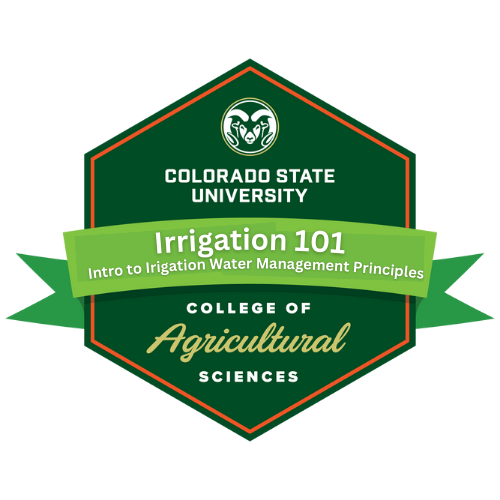
Summary: Irrigation is defined as the watering of land (or other plant growth media) by artificial means to foster plant growth. This can be very costly and the availability of supplemental water may be scarce, so it is important to be able to calculate accurately how much water to apply and when. This lesson will introduce you the underlying concepts you will need to consider.
After completing this lesson, you will be able to:
- Explain how the systems approach can be used to manage water in irrigated systems.
- Identify the fluxes (flows) of water and energy in an irrigated soil-plant-atmosphere system.
- Describe how the Irrigator’s Equation can be used to quantify the four (4) major variables involved in managing irrigation systems.
- Use the principle of conservation of mass to determine the water budget (also called water balance) of a soil-plant-atmosphere (SPA) system.
- Use the principle of conservation of energy to determine the energy budget (also called energy balance) of a SPA system.
Time Required: We estimate it will take you 2 hours in total to complete the lesson. You can work on it at your own pace and do not have to complete it in one setting.
Who Would Benefit: A variety of people will find this upskilling course useful from adults to high school students. This includes careers (or hobbyists) growing plants (ie field crops, greenhouse production, turf and lawns, gardens, etc.) and wishing to save money and water by better timing irrigation applications.
Upskill Credentials: If you finish the entire course including passing a final quiz (which you can take up to 3 times), then you will earn a badge certificate of completion. This has also been approved for 2 Soil and Water Management CEUs through the national Certified Crop Adviser program.
Instructor: Dr. Allan A. Andales is a Professor and Extension Specialist of Irrigation and Water Science in the Department of Soil and Crop Sciences, Colorado State University (CSU). He has a joint appointment in the Department of Civil and Environmental Engineering. Dr. Andales applies principles of soil and water engineering, environmental biophysics, and numerical methods to study the effects of management practices and environmental factors on field hydrology and agricultural production. Experimental data are used to develop computer models and decision support tools that can improve agricultural water use efficiency and water quality. He is a member of the CSU Extension Water Resource Management Team that engages the public in addressing agricultural and urban water issues in Colorado.
ADA Accessibility: We have done our best to follow ADA best practices. Let us know if you run into any problems or require further accommodations.
Acknowledgements: This online micro-credential upskilling course is offered through the CSU Ag Upskilling program. Development was supported in part by funding from the CHS Foundation, administered by Colorado State University (2022). The CHS Foundation, funded by charitable gifts from CHS Inc., is focused on developing a new generation of agriculture leaders for life-long success. Together, with our partners, we are igniting innovation and driving excellence in agriculture education, cultivating high impact programs for rural youth and accelerating potential for careers in agriculture. Learn more at CHS Foundation.


- Teacher: Allan Andales
- Teacher: Tamla Blunt
- Teacher: Deana Namuth-Covert
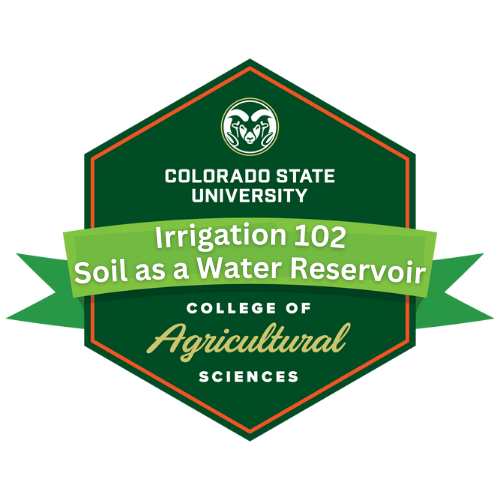
Summary: The goal of irrigation is to add water to the soil where the plant roots are actively growing (the root zone). The soil serves as a water reservoir, from which plants can withdraw water needed for growth. In irrigation management, it is necessary to know the characteristics of the soil in the area that you will be irrigating. These soil characteristics can be used to determine the amount of water in the root zone that is available to the plants.
After completing this lesson, you will be able to:
- Describe the concept of depth of water.
- Determine the depth of water that is available to the plants.
- Use the concept of depth of water to estimate the net irrigation requirement (i.e., soil water deficit) of the soil root zone.
Time Required: We estimate it will take you 2 hours in total to complete the lesson. You can work on it at your own pace and do not have to complete it in one setting.
Who Would Benefit: A variety of people will find this upskilling course useful from adults to high school students. This includes careers (or hobbyists) growing plants (ie field crops, greenhouse production, turf and lawns, gardens, etc.) and wishing to save money and water by better timing irrigation applications.
Upskill Credentials: If you finish the entire course including passing a final quiz (which you can take up to 3 times), then you will earn a badge certificate of completion. It has been approved for 2 Soil and Water Management CEUs through the national Certified Crop Adviser program.
Instructor: Dr. Allan A. Andales is a Professor and Extension Specialist of Irrigation and Water Science in the Department of Soil and Crop Sciences, Colorado State University (CSU). He has a joint appointment in the Department of Civil and Environmental Engineering. Dr. Andales applies principles of soil and water engineering, environmental biophysics, and numerical methods to study the effects of management practices and environmental factors on field hydrology and agricultural production. Experimental data are used to develop computer models and decision support tools that can improve agricultural water use efficiency and water quality. He is a member of the CSU Extension Water Resource Management Team that engages the public in addressing agricultural and urban water issues in Colorado.
ADA Accessibility: We have done our best to follow ADA best practices. Let us know if you run into any problems or require further accommodations.
Acknowledgements: This online micro-credential upskilling course is offered through the CSU Ag Upskilling program. Development was supported in part by funding from the CHS Foundation, administered by Colorado State University (2022). The CHS Foundation, funded by charitable gifts from CHS Inc., is focused on developing a new generation of agriculture leaders for life-long success. Together, with our partners, we are igniting innovation and driving excellence in agriculture education, cultivating high impact programs for rural youth and accelerating potential for careers in agriculture. Learn more at CHS Foundation.
- Teacher: Allan Andales
- Teacher: Deana Namuth-Covert
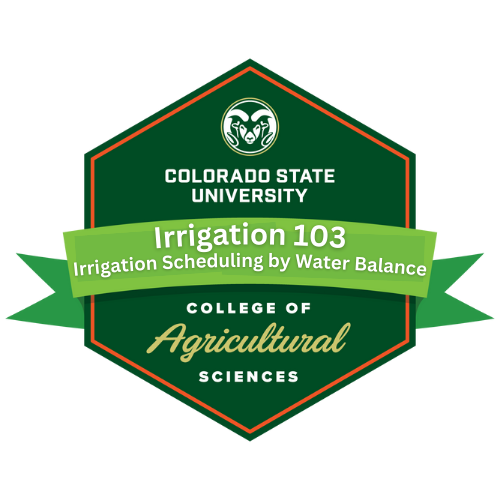
Summary: To effectively utilize limited irrigation resources in the most cost-effective manner requires balancing the inputs and outputs of water fluxes, as well as water that is stored in the soil profile. Best irrigation management scheduling practices focus on water balance in the rootzone because that is where the plant/crop is extracting water (and nutrients) from the soil. It is here we estimate the irrigation water requirements to maintain healthy plants. Decisions on when and how much irrigation water to apply depends on the soil water deficit and the management-allowed depletion (MAD). This lesson will walk you through each of these concepts including real world problem scenarios.
After completing this lesson, you will be able to:
- Use the water balance of the root zone to estimate the irrigation water requirement.
- Make irrigation decisions by comparing the soil water deficit to the management-allowed depletion.
Time Required: We estimate it will take you 2 hours in total to complete the lesson. You can work on it at your own pace and do not have to complete it in one setting.
Who Would Benefit: A variety of people will find this upskilling course useful from adults to high school students. This includes careers (or hobbyists) growing plants (ie field crops, greenhouse production, turf and lawns, gardens, etc.) and wishing to save money and water by better timing irrigation applications.
Upskill Credentials: If you finish the entire course including passing a final quiz (which you can take up to 3 times), then you will earn a badge certificate of completion. This has also been approved for 2 Soil and Water Management CEUs through the national Certified Crop Adviser program.
Instructor: Dr. Allan A. Andales is a Professor and Extension Specialist of Irrigation and Water Science in the Department of Soil and Crop Sciences, Colorado State University (CSU). He has a joint appointment in the Department of Civil and Environmental Engineering. Dr. Andales applies principles of soil and water engineering, environmental biophysics, and numerical methods to study the effects of management practices and environmental factors on field hydrology and agricultural production. Experimental data are used to develop computer models and decision support tools that can improve agricultural water use efficiency and water quality. He is a member of the CSU Extension Water Resource Management Team that engages the public in addressing agricultural and urban water issues in Colorado.
ADA Accessibility: We have done our best to follow ADA best practices. Let us know if you run into any problems or require further accommodations.
Acknowledgements: This online micro-credential upskilling course is offered through the CSU Ag Upskilling program. Development was supported in part by funding from the CHS Foundation, administered by Colorado State University (2022). The CHS Foundation, funded by charitable gifts from CHS Inc., is focused on developing a new generation of agriculture leaders for life-long success. Together, with our partners, we are igniting innovation and driving excellence in agriculture education, cultivating high impact programs for rural youth and accelerating potential for careers in agriculture. Learn more at CHS Foundation.
- Teacher: Allan Andales
- Teacher: Deana Namuth-Covert
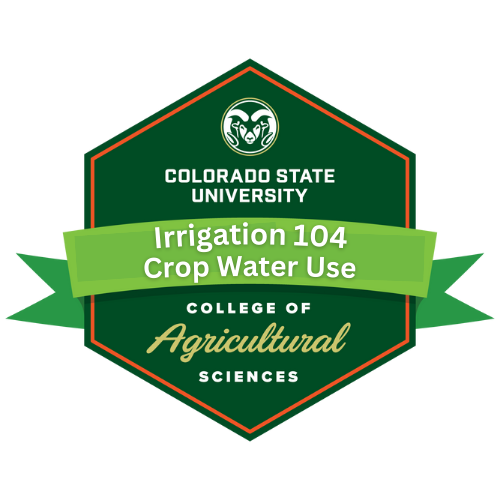
Summary: When making decisions about when to irrigate a crop, no matter the specific plant or scenario, it is important to take into consideration evapotranspiration rates which provide an estimate of water flux out of your system. The challenge is that evapotranspiration varies a lot depending on the specific plant, its growth stage plus changing weather (or greenhouse) conditions. Precision agriculture scientists have been able to characterize two reference crop values as a way to standardize evapotranspiration calculations based on weather data. In this lesson you will learn what is meant by a reference crop, crop coefficient, and water stress coefficient and how you can use these to inform your irrigation management decisions.
Time Required: We estimate it will take you 2 hours to complete the lesson. You can work on it at your own pace and do not have to complete it in one setting.
Who Would Benefit: A variety of people will find this upskilling course useful from adults to high school students. This includes careers (or hobbyists) growing plants (ie field crops, greenhouse production, turf and lawns, gardens, etc.) and wishing to save money and water by better timing irrigation applications.
Upskill Credentials: If you finish the entire course including passing a final quiz (which you can take up to 3 times), then you will earn a badge certificate of completion. It has been approved for 2 Soil and Water Management CEUs through the national Certified Crop Adviser program.
Instructor: Dr. Allan A. Andales is a Professor and Extension Specialist of Irrigation and Water Science in the Department of Soil and Crop Sciences, Colorado State University (CSU). He has a joint appointment in the Department of Civil and Environmental Engineering. Dr. Andales applies principles of soil and water engineering, environmental biophysics, and numerical methods to study the effects of management practices and environmental factors on field hydrology and agricultural production. Experimental data are used to develop computer models and decision support tools that can improve agricultural water use efficiency and water quality. He is a member of the CSU Extension Water Resource Management Team that engages the public in addressing agricultural and urban water issues in Colorado.
ADA Accessibility: We have done our best to follow ADA best practices. Let us know if you run into any problems or require further accommodations.
Acknowledgements: This online micro-credential upskilling course is offered through the CSU Ag Upskilling program. Development was supported in part by funding from the CHS Foundation, administered by Colorado State University (2022). The CHS Foundation, funded by charitable gifts from CHS Inc., is focused on developing a new generation of agriculture leaders for life-long success. Together, with our partners, we are igniting innovation and driving excellence in agriculture education, cultivating high impact programs for rural youth and accelerating potential for careers in agriculture. Learn more at CHS Foundation.


- Teacher: Allan Andales
- Teacher: Deana Namuth-Covert
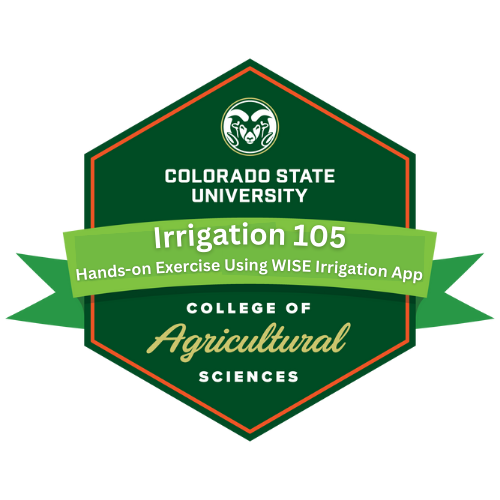
Summary: No matter the particular plant scenario you are working with (ie field crop, pastureland, Greenhouse business, turf grass, home garden and landscaping, etc.) being able to accurately estimate the water needs and timing of irrigation will help lower costs, as well as preserve limited water supplies. In this lesson you will learn how to use a specific irrigation app which has been developed by a group of public researchers and is free for your use. This app, along with the foundational irrigation principles you learned in previous lessons and/or from your previous knowledge will help you maximize the effects of your irrigation applications while minimizing costs. This lesson uses a Colorado field example.
After completing this lesson, you will be able to:
- Set up a field in the Water Irrigation Scheduler for Efficient Application (WISE) App to schedule irrigations during one growing season.
- Input irrigation amounts in WISE based on estimated soil water deficits (D) and the crop’s management allowed depletion (MAD) during one growing season.
- Interpret the WISE water balance outputs.
Time Required: We estimate it will take you 2 hours to complete the lesson. You can work on it at your own pace and do not have to complete it in one setting.
Who Would Benefit: A variety of people will find this upskilling course useful from adults to high school students. This includes careers (or hobbyists) growing plants (ie field crops, greenhouse production, turf and lawns, gardens, etc.) and wishing to save money and water by better timing irrigation applications.
Upskill Credentials: If you finish the entire course including passing a final quiz (which you can take up to 3 times), then you will earn a badge certificate of completion. It has been approved for 2 Crop Management CEUs through the national Certified Crop Adviser program.
Instructor: Dr. Allan A. Andales is a Professor and Extension Specialist of Irrigation and Water Science in the Department of Soil and Crop Sciences, Colorado State University (CSU). He has a joint appointment in the Department of Civil and Environmental Engineering. Dr. Andales applies principles of soil and water engineering, environmental biophysics, and numerical methods to study the effects of management practices and environmental factors on field hydrology and agricultural production. Experimental data are used to develop computer models and decision support tools that can improve agricultural water use efficiency and water quality. He is a member of the CSU Extension Water Resource Management Team that engages the public in addressing agricultural and urban water issues in Colorado.
ADA Accessibility: We have done our best to follow ADA best practices. Let us know if you run into any problems or require further accommodations.
Acknowledgements: This online micro-credential upskilling course is offered through the CSU Ag Upskilling program. Development was supported in part by funding from the CHS Foundation, administered by Colorado State University (2022). The CHS Foundation, funded by charitable gifts from CHS Inc., is focused on developing a new generation of agriculture leaders for life-long success. Together, with our partners, we are igniting innovation and driving excellence in agriculture education, cultivating high impact programs for rural youth and accelerating potential for careers in agriculture. Learn more at CHS Foundation.


- Teacher: Allan Andales
- Teacher: Deana Namuth-Covert
Learn how to train employees to safely use tools and personal protective equipment, and in ergonomic approaches to farm tasks that will support season-long productivity and prevent injuries and lost work time.
The workshop is part of the 2022 Farm Labor Dashboard Workshop Series, which focuses on helping farmers build practical labor management knowledge and skills.
Lead presenter: Aaron Yoder, University of Nebraska Medical Center.
Session Format: Sessions will be delivered via Zoom. Connection information, along with additional resources and information will be available through the workshop site.
Fees. The workshop fee is $20. To purchase and enroll in the course, click the following button:
Scholarships and multi-session discounts are available for all workshops in the series, reducing the workshop fee to $10. However, these options are only available for people who request – and receive approval – for reduced fees in advance of registration and payment. To request either a multi-session discount or scholarship, please fill out this online form. Please wait to register until you hear back from us via email . Decisions are generally made within 3 business days. If you are approved, you will receive a voucher code that you will use during the registration/payment process to activate a reduced registration fee for the workshops you indicated you wish to enroll in.- Instructor: Beth Holtzman
- Instructor: Aaron Yoder
Curso de Cuidado y Manejo del Caballo para Vaqueros y Procesadores - Versión en Español es ofrecido por la Corporación HorseQuest para el público en general, productores de ganado de engorda y empleados que aprenderán cómo manejar con seguridad los caballos (horses) cuando se trabaja en los corrales de alimentación (feedlot), así como también el cuidado y manejo básica del caballo.
Para obtener más información o para inscribirse contacte a Kathy Anderson, en la Universidad de Nebraska-Lincoln, a la dirección de correo electrónico: kanderson1@unl.edu
Para asistencia técnica por favor contacte campushelp@extension.org
Este curso requiere una cuota de inscripción de $25. Una vez pagada la cuota de inscripción, recibirá un correo electrónico con la clave de acceso.
Por favor, vaya a: Pen Rider and Processors Horse Safety and Care Certification Course (http://marketplace.unl.edu/extension/programs/feedlot-horse.html) para registrarse.
- Teacher: Kathy Anderson
- Teacher: Colleen Brady
Design Your Succession Plan workshops assists farm/ranch owners to get started on their succession plan and shape the future of their operation. This workbooks will help an owner get started on a succession plan; lean how to open lines of communication with family, employees, and partners to create a shared vision; and construct a plan to work with professionals who will assist in the transition process.
The fee for this workshop is $10. To purchase and enroll in the course, click the following link:
- Teacher: Sonja Fuchs

Design Your Succession Plan for Small Business workshops assists small business owners to get started on their succession plan and shape the future ownership of their business. This workbook will help a business owner get started on a succession plan; learn how to open lines of communication with family, employees, and partners to create a shared vision; and construct a plan to work with professionals who will assist in the transition process.
The fee for this course is $10. To purchase and enroll in the course, click the following button:
- Teacher: Sonja Fuchs
The Designed for Impact: Effective Extension Series enables educators to gain practical skills and knowledge to improve their teaching and increase learner engagement. This six-part series is designed for Extension professionals to create an outcome-based instructional design, a learner-centered teaching plan, and an end-of-event survey. After this series, participants can reuse the context-specific templates and guidance to develop future educational programs.
- Teacher: Mary Halbleib
The Designed for Impact: Effective Extension Education Series equips educators with practical skills and knowledge to improve their teaching and increase learner engagement. This six-part series is designed for Extension professionals to create an outcome-based instructional design, a learner-centered teaching plan, and an end-of-event survey. After this series, participants can reuse the context-specific templates and guidance to develop future educational programs.
- Teacher: Mary Halbleib
The Designed for Impact: Effective Extension Series enables educators to gain practical skills and knowledge to improve their teaching and increase learner engagement. This six-part series is designed for Extension professionals to create an outcome-based instructional design, a learner-centered teaching plan, and an end-of-event survey. After this series, participants can reuse the context-specific templates and guidance to develop future educational programs.
- Teacher: Mary Halbleib
The Designed for Impact: The Effective Extension Series enables educators to gain practical skills and knowledge to improve their teaching and increase learner engagement. This six-part series is designed for Extension professionals to create an outcome-based instructional design, a learner-centered teaching plan, and an end-of-event survey. After this series, participants can reuse the context-specific templates and guidance to develop future educational programs.
- Teacher: Mary Halbleib
Esta capacitación en línea sirve como recurso para ganaderos, veterinarios y otras partes interesadas de la industria lechera, apoyando la capacitación de los trabajadores agrícolas en el manejo racional de antimicrobianos, la identificación de enfermedades en vacas adultas y el cumplimiento de los protocolos de la granja.
Objetivos del curso
Los participantes podrán describir los procedimientos para la identificación precisa y las opciones de tratamiento para casos de mastitis, metritis y cojeras en vacas lecheras adultas.
Formato del curso
Este curso está disponible completamente en línea, sin clases programadas ni fechas límite fijas. Puede comenzar el curso en cualquier momento y completarlo de forma independiente a su propio ritmo.
Organización del curso
Esta capacitación sobre manejo racional de antimicrobianos en ganado lechero consta de seis módulos. Cada módulo puede completarse en cualquier orden; sin embargo, seguir el orden de presentación puede facilitar el aprendizaje y la discusión sobre temas específicos en la granja. Los módulos incluyen:
- Resistencia a los antibióticos
- Cojeras
- Mastitis
- Metritis
- Protocolo de tratamiento
- Exámenes visuales
Certificado de culminación
Un certificado de culminación está disponible como una opción. Este certificado estará disponible una vez complete los seis módulos.
Requisitos tecnológicos
• Para un rendimiento óptimo, se requiere una computadora o tableta compatible con las versiones más recientes de navegadores web y capaz de reproducir archivos mp4. Se recomienda usar una computadora con no más de cinco años de antigüedad, con al menos 1 GB de RAM y conexión a internet de alta velocidad. Algunas funciones pueden no ser compatibles con dispositivos móviles.
• Adobe Acrobat Reader. Se puede descargar aquí gratuitamente.
• Los navegadores web recomendados son Mozilla Firefox, Google Chrome y Microsoft Edge.
Contáctenos
Si tiene alguna pregunta sobre el curso, comuníquese con los instructores Greg Habing en habing.4@osu.edu o Richard V. Pereira en rvpereira@ucdavis.edu.
Este programa fue galardonado con el Reconocimiento 2025 a las buenas prácticas e innovaciones en transformación ganadera sostenible, Una Salud, salud animal y Centros de Referencia. 
Financiamiento proporcionado por la División de Uso y Administración de Antimicrobianos (AUS) del Departamento de Alimentos y Agricultura de California.


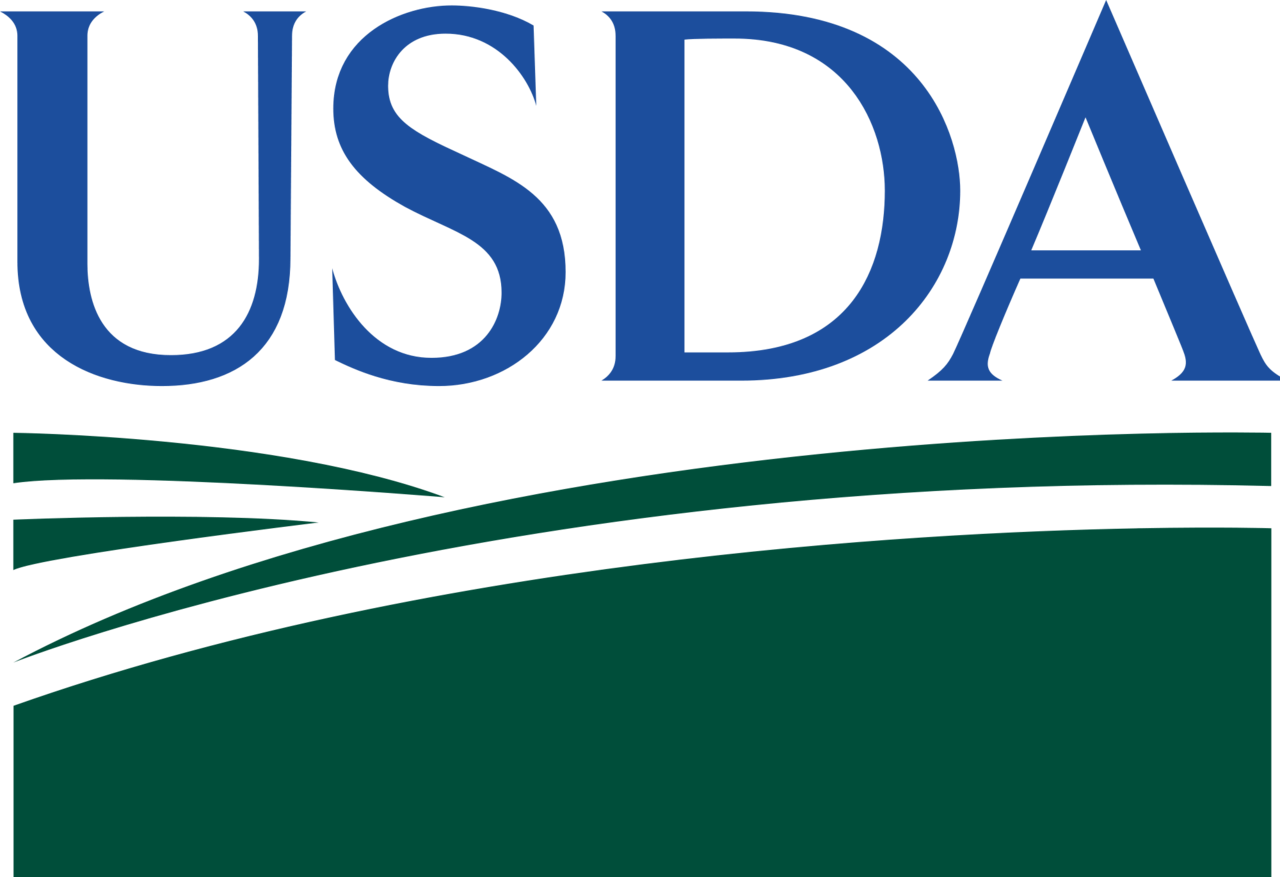
Presentado por:

- Teacher: Greg Habing
- Teacher: Richard Pereira
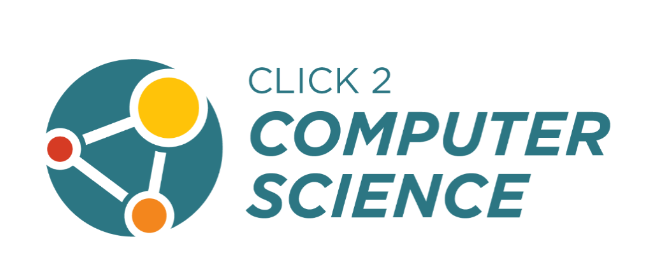
- Designer: Saundra Frerichs
- Designer: Ann O'Connor
- Designer: Angie Rushman
Thursday evening class sessions | Live via Zoom
February 18, 25 and March 4 & 11
5:30 - 7:30 pm PST / 6:30 - 8:30 pm MST
Wondering what to do to create a sustainable market garden in Idaho? If you’re interested in small-scale production of vegetables, fruits, culinary herbs, or cut flowers to sell, this course is for you! We will focus on in-depth production skills and taking what you grow to market. Join our group of Extension Educators and farmer collaborators for presentations and activities to guide you through the production year. From farm planning, to harvesting, washing and packing you will come away with skills needed to run a more sustainable and efficient farm.
- Teacher: Colette DePhelps
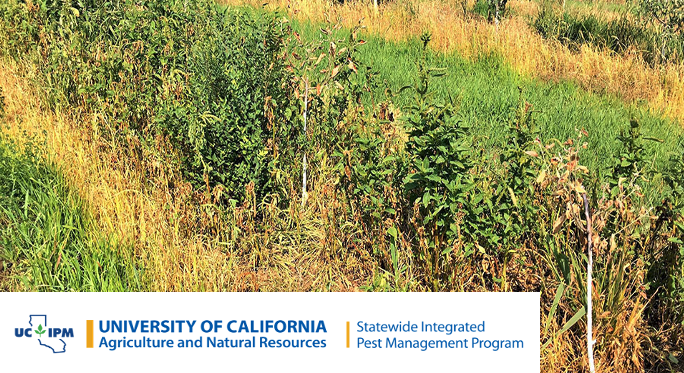

This course provides a rare opportunity for professionals to gain understanding of how an herbicide injury situation can arise and to efficiently update their background knowledge of herbicide characteristics in relation to different damage patterns. The goal of this course is to provide learners with a basic guide to approach diagnosing and investigating crop injury situations known or suspected to be related to herbicides, while giving them the tools to facilitate the investigation process. This course is available for free for those who do not need Continuing Education Units. The authors of the course are Dr. Brad Hanson, Professor of Cooperative Extension UC Davis and Dr. Kassim Al-Khatib, Professor of Plant Sciences, UC Davis.
Who should enroll?
Growers, pest control advisers, sales representatives for chemical companies, field investigators, and insurance adjusters
Continuing Education Units
California Department of Pesticide Regulation (1.5 hours Other) and Certified Crop Adviser (1.5 IPM).
To get the Continuing Education Units certificate you will be charged a fee of $30. To encourage taking the course earlier in the year, we offer 50% off the regular price from January through October 31st – use the code ipm50 at checkout. You must download the certificate (PDF file) to receive your CEU credits.
Enrollment period
This course must be completed by December 30 of the current year. Download the certificate immediately when you complete the course. You will not be able to retrieve your certificate after December 30.
- Technical support: UC IPM Online Training Support
This course is for those who need continuing education units (CEUs) and a certificate. Make the purchase and after the payment, you will be redirected
to the course. Upon course completion, you will be able to download the course certificate.
Course must be completed and certificate downloaded before December 30 of the current year.
To access the free version of this course without a certificate, click on the title below:
Diagnosing Herbicide Injury
- Technical support: UC IPM Online Training Support
This course is designed as a self-paced learning environment, delivered entirely online with video, lectures, reading and progression quizzing. Learning content is based on research publications and extension resources developed by national experts. The targeted learner is expected to have completed undergraduate level coursework in genetics. A final competency test will be given online.
The course has two parts. Part 1 provides the learner with a baseline in the biology of oomycete disease in soybean. Part 2 is focused on the resistance breeding process for both single gene and partial resistance using naturally occurring variation in the soybean germplasm. Learners will be able to compare the genetics that differentiates seed products and describe the work and genetics applications breeders accomplished in developing these new products.
Please contact Kathy Schindler (kschindler1@unl.edu, 402-472-1730) with questions about registering.
- Teacher: Diane Nolan
- Teacher: Leah Sandall
This is a course designed as a self-paced learning environment, delivered entirely online with video, lectures, reading and progression quizzing. Learning content is based on research publications and extension resources developed by national experts. The targeted learner is expected to have completed undergraduate level coursework in genetics. A final competency test will be given online.
This course is a companion course to Disease Resistance Breeding: Soybean Case Study
Please contact Kathy Schindler (kschindler1@unl.edu, 402-472-1730) with questions about registering.
- Teacher: Diane Nolan
- Teacher: Leah Sandall
The purpose of Documenting Children’s Learning is to learn how to document children’s learning through observation and to prepare for in-person training offered by Nebraska Extension. This course is developed using Flash content so your device must be able to play flash in order to access the course.
For more information contact Katie Krause, UNL Extension, katie.krause@unl.edu
- Teacher: Katie Krause
Delaware State University is offering our Mobile Meat Processing Lab (MMPL) Training and Certification course as a two-part series so that small farmers in Delaware can become qualified to lease the MMPL to process small-ruminants, small-flock poultry, and/or cultured fish. The intent of this course is to ensure that prospective MMPL users have all of the necessary background knowledge they will need to successfully complete their application for a grant of inspection from the USDA. Part one of the series is this self-paced, online course work, where farmers will be given an overview of the site requirements for using the MMPL, the steps in applying for a USDA grant of inspection, the MMPL capabilities, use, and proper sanitation.
Once the online course work is completed, farmers will sign up to participate in an in-person lab, which is typically held at the Delaware State University Hickory Hill Research Farm, where they will be trained on the MMPL function and operation, and gain hands-on experience in processing animals using the MMPL. Farmers must successfully complete both the online and in-person portions of the series before they can lease the MMPL for use on their own.
- Teacher: John Clendaniel
- Teacher: Zuri Hobson-Gladney
- Teacher: Kwame Matthews
- Teacher: Amit Singh
This online training serves as a resource for farmers, veterinarians, and other stakeholders in the dairy industry, supporting the training of farm workers on antimicrobial stewardship, disease identification in adult cows, and adherence to farm protocols.
Course Goals
Learners will be able to describe procedures for accurate identification and options for treatment for cases of mastitis, metritis, and lameness in adult dairy cows.
Course Format
This course is available fully online with no scheduled class sessions or fixed due dates. You can start the course at any time and work through it independently at your own pace.
Course Organization
This antimicrobial stewardship dairy training consists of six modules. Individual modules can be viewed in any order, however, following the order of presentation may facilitate learning and discussion on specific topics on the farm. Modules include:
- Antibiotic Resistance
- Lameness
- Mastitis
- Metritis
- Treatment Protocol
- Visual Exams
Certificate of Completion
A certification of completion is available as an option. The certificate will be provided upon completion of all six modules.
Technology Requirements
- For best performance, a computer or tablet that supports the most recent web browser versions and is capable of playing mp4 files. It is recommended to use a computer five years old or newer with at least 1GB of RAM and high-speed internet connection. Some features may not be compatible with mobile devices.
- Adobe Acrobat Reader. Can be downloaded here for free.
- The recommended web browsers are Mozilla Firefox, Google Chrome, and Microsoft Edge.
Contact Us
If you have questions about the course, please contact the instructors: Greg Habing at habing.4@osu.edu or Richard V. Pereira at rvpereira@ucdavis.edu.
This program was a recipient of the 2025 Recognition of good practices and innovations in sustainable livestock transformation, One Health, animal health, and Reference Centres.


Funding provided by the Antimicrobial Use and Stewardship (AUS) Branch of the California Department of Food and Agriculture.



Brought to you by:

- Teacher: Greg Habing
- Teacher: Richard Pereira
The primary target audience for this course is Extension educators. EDEN believes that producers, emergency responders, government officials, and other animal agriculture stakeholders can benefit from the course as well. The estimated time to complete the entire course is eight hours, but the course does not have to be completed in one session.
The Extension Disaster Education Network (EDEN) is a collaborative multi-state effort by Extension Services across the country to improve the delivery of services to citizens affected by disasters.
For more information contact Kris Hiney, Oklahoma State University, khiney@okstate.edu
- Teacher: Kris Hiney
The Effective Extension Program Design, Teaching, and Evaluation Series enables educators to gain practical skills and knowledge that will improve their teaching and increase learner engagement. This six-part series is specifically designed for Extension professionals to create an outcome-based instructional design, a learner-centered teaching plan, and an end-of-event survey. After this series participants will be able to reuse the context-specific templates and guidance to develop future educational programs.
- Teacher: Mary Halbleib
In this section on training, efforts will be made to explain and simplify the process of developing a relationship with the horse where communication is simple and straightforward for both the horse and rider.
For information contact Colleen Brady, bradyc@purdue.edu.
The fee for this course is $10. To purchase and enroll in the course, click the following button.
If you purchase at least $40 worth of courses from this category, you can receive a 20% discount by entering the voucher code of HorseQuest20.
- Teacher: Kathy Anderson
- Teacher: Colleen Brady
- Teacher: Kris Hiney
eLearn Urban Forestry is a self-led, online, distance learning program geared speciifcally toward beginning urban foresters and those allied professionals working in and around urban and urbanizing landscapes, including service foresters, natural resource planners, landscape architects, city officials and public works employees. The program is comprised of ten learning modules: The Benefits and Costs of the Urban Forest; Tree Growth and Development; Urban Soils; Site, Tree Selection and Planting; Arboriculture; Assessing and Managing Tree Risk; Tree Disorder Diagnosis and Management; Trees and Construction; Public Policy and Urban Forestry; and Urban Forest Management.
For more information or to enroll, contact Leslie Boby, Southern Regional Extension Forestry, University of Georgia at lboby@sref.info.
- Teacher: Leslie Boby
Gracias por ingresar a la página Web para completar esta lección de Educación sobre Nutrición y Alimentos (EFNEP). Usted debió haber recibido una clave de inscripción de parte de su instructor. Ingrese esa clave de inscripción para acceder y completar esta lección.
- Teacher: Megan Berthiaume
This course was created to meet the professional development needs of South Dakota’s and Idaho’s Think Make Create mobile lab communities. However, it is a valuable resource for anyone looking to create a quality STEM learning environment.
Through this course, educators will become more familiar and comfortable with the best practices of STEM programing with a focus on Positive Youth Development.
There is both a long and short version of the course to accommodate different needs.
- Teacher: Claire Sponseller
- Teacher: Christine Wood
- Instructor: Erin Doty
Becoming a successful agricultural entrepreneur takes planning and preparation. Set yourself up for success from the start!
This course focuses on business planning with special attention to the financial and legal considerations unique to farm and food-based enterprises. You’ll develop the core elements of a business plan to guide your small business forward.
Over seven weekly sessions, we’ll walk you through the steps to create a plan for an existing business or a brand-new venture. Join a statewide cohort of other farm and food businesses, hear from expert speakers, and connect with regional groups for networking and community support.
- Teacher: Colette DePhelps
- Instructor: Kate Wood
For more information contact Kathy Anderson, University of Nebraska–Lincoln, at kanderson1@unl.edu
The fee for this course is $10. To purchase and enroll in the course, click the following button.
If you purchase at least $40 worth of courses from this category, you can receive a 20% discount by entering the voucher code of HorseQuest20.
- Teacher: Kathy Anderson
- Teacher: Colleen Brady
- Teacher: Kris Hiney
- Teacher: Laura Kenny
Equine Herpes Virus provides the participants the opportunity to learn the different ways the EHV-1 virus is expressed in horses, and know how to prevent and treat the disease. This course offers a badge and is one of several available in the HorseQuest Badge Portfolio. This course includes a video, a learning lesson, and a quiz.
The fee for this course is $10. To purchase and enroll in the course, click the following button:
If you purchase at least $40 worth of courses from this category, you can receive a 20% discount by entering the voucher code of HorseQuest20.
- Teacher: Kathy Anderson
- Teacher: Colleen Brady
What is your horse's body condition? Did you know there was a scoring system to rank your horse's physical condition? Check out our latest learning lesson about how to body condition score your horse. Learn a time-tested and accepted method to evaluate your horse's fat cover and the balance between the food he eats and the amount of energy he burns.
For information contact Colleen Brady, bradyc@purdue.edu
The fee for this course is $10. To purchase and enroll in the course, click the following link.
If you purchase at least $40 worth of courses from this category, you can receive a 20% discount by entering the voucher code of HorseQuest20.
- Teacher: Kathy Anderson
- Teacher: Colleen Brady
A course for Extension staff at North Dakota State University, this provides a self-paced guide to evaluating extension programs, materials, and communications.
For more information or to enroll contact robert.bertsch@ndsu.edu
- Teacher: Sonja Fuchs
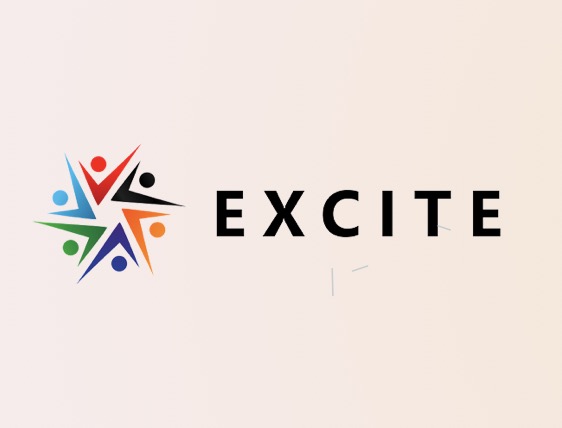
This course will strengthen Extension and healthcare professionals’ ability to evaluate health-related media messages, recognize misinformation, and support community members in making informed health decisions.
This course is part of the Vaccine Education series created by Clemson University Cooperative Extension.
Other courses in this series include:- Getting Started: Vaccine Education Onboarding
- The Science of Vaccination
- The Critical Role of Extension Agents & Vaccine Education at the National Level
- Communication Strategies and Motivation Interviewing
- Motivational Interviewing Case Studies
- Neuromarketing Strategies for Brain-Friendly Health Messaging in Extension Outreach

- Teacher: Molly Immendorf
- Teacher: Lisa Linfield
- Teacher: Melanie Pugsley

Original course materials designed by Oregon State University.
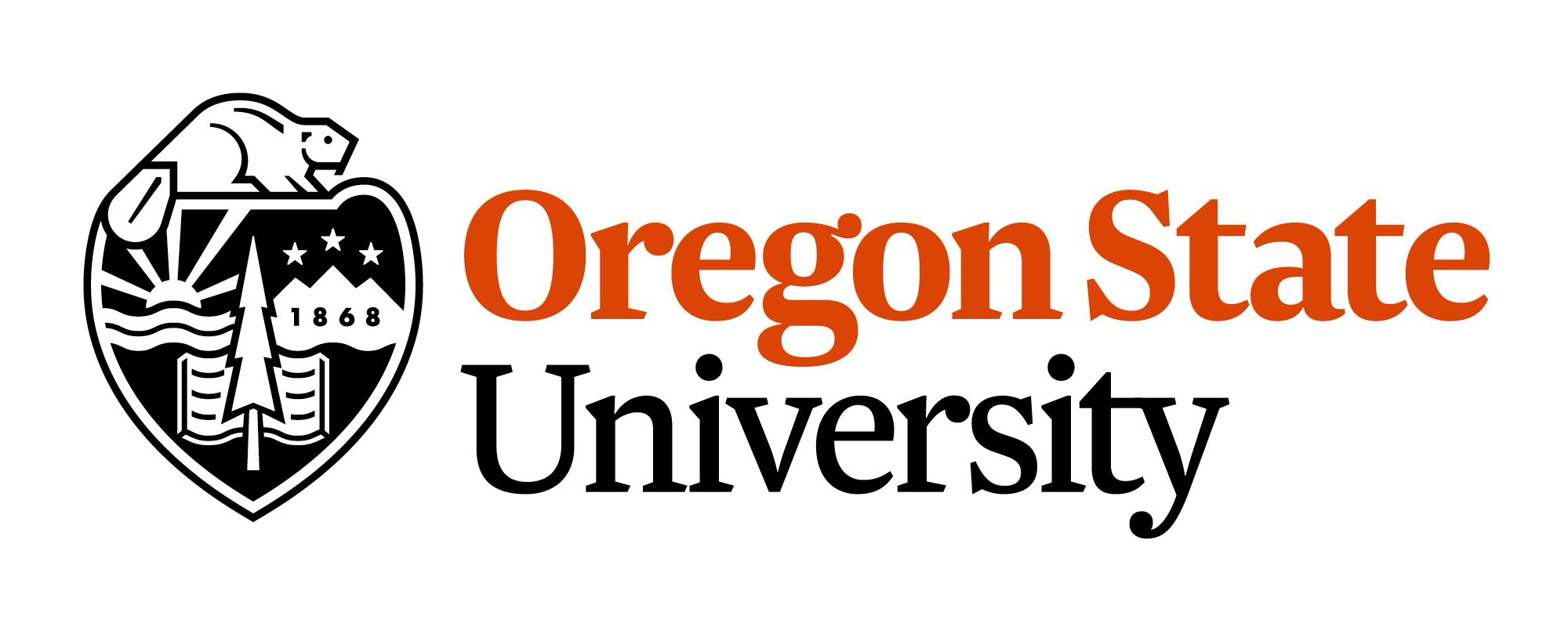
- Teacher: Molly Immendorf
- Teacher: Lisa Linfield

In this course, you will learn how vaccines work to protect individuals and communities, gain insights into the rigorous regulatory processes ensuring vaccine safety, and review evidence supporting vaccine effectiveness.
This course is part of the Vaccine Education series created by Clemson University Cooperative Extension.
Other courses in this series include:- Getting Started: Vaccine Education Onboarding
- Vaccination as a Priority
- The Science of Vaccination
- The Critical Role of Extension Agents & Vaccine Education at the National Level
- Motivational Interviewing Case Studies
- Neuromarketing Strategies for Brain-Friendly Health Messaging in Extension Outreach
- Health Media Literacy

- Teacher: Molly Immendorf
- Teacher: Lisa Linfield

This is an introductory course for the Vaccine Education series created by Clemson University Cooperative Extension.
Other courses in this series include:
- Vaccination as a Priority
- The Science of Vaccination
- The Critical Role of Extension Agents & Vaccine Education at the National Level
- Communication Strategies and Motivational Interviewing
- Motivational Interviewing and Case Studies
- Neuromarketing Strategies for Brain-Friendly Health Messaging in Extension Outreach
- Health Media Literacy

- Teacher: Molly Immendorf
- Teacher: Lisa Linfield

This program is designed to improve patient-provider communication by teaching participants how to discuss vaccines with their healthcare providers using research-based information that addresses common hesitancies. The estimated time commitment is 1-2 hours.
Original course materials designed by the University of Arkansas.
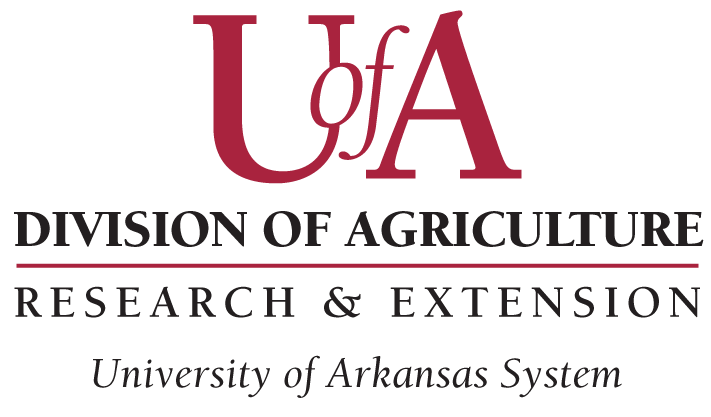
- Teacher: Molly Immendorf
- Teacher: Lisa Linfield

In this course, you will learn how neuromarketing principles can transform your outreach.
This course is part of the Vaccine Education series created by Clemson University Cooperative Extension.
Other courses in this series include:- Getting Started: Vaccine Education Onboarding
- Vaccination as a Priority
- The Science of Vaccination
- The Critical Role of Extension Agents & Vaccine Education at the National Level
- Communication Strategies and Motivation Interviewing
- Motivational Interviewing Case Studies
- Health Media Literacy

- Teacher: Molly Immendorf
- Teacher: Lisa Linfield

In this course, you will learn how vaccines work to protect individuals and communities, gain insights into the rigorous regulatory processes ensuring vaccine safety, and review evidence supporting vaccine effectiveness.
This course is part of the Vaccine Education series created by Clemson University Cooperative Extension.
Other courses in this series include:- Getting Started: Vaccine Education Onboarding
- Vaccination as a Priority
- The Critical Role of Extension Agents & Vaccine Education at the National Level
- Communication Strategies and Motivation Interviewing
- Motivational Interviewing Case Studies
- Neuromarketing Strategies for Brain-Friendly Health Messaging in Extension Outreach
- Health Media Literacy

- Teacher: Molly Immendorf
- Teacher: Lisa Linfield

In this course, you will learn about vaccine hesitancy, the significance of community immunity, and recent vaccination development.
This course is part of the Vaccine Education series created by Clemson University Cooperative Extension.
Other courses in this series include:- Getting Started: Vaccine Education Onboarding
- The Science of Vaccination
- The Critical Role of Extension Agents & Vaccine Education at the National Level
- Communication Strategies and Motivation Interviewing
- Motivational Interviewing Case Studies
- Neuromarketing Strategies for Brain-Friendly Health Messaging in Extension Outreach
- Health Media Literacy

- Teacher: Molly Immendorf
- Teacher: Lisa Linfield
Expanded Learning Opportunities: Experiential Learning is for Employees or Volunteers in Youth Serving Organizations. Participants will learn how children and youth in out-of-school settings reach their full potential as a result of positive youth/adult interactions, purposeful learning experiences, and safe environments.
Participants will be able to: identify experiential learning techniques, provide purposeful and directing teaching, and engage and energize youth so they are ready to learn.
For more information or to enroll contact:
- Elizabeth Janning, janning2@unl.edu with Nebraska Extension.
- LaDonna Werth, ladonna.werth@unl.edu with Nebraska Extension.
- Deb Weitzenkamp, dweitzenkamp2@unl.edu with Nebraska Extension.
- Teacher: Deborah Weitzenkamp

Extension Horses presents an 8 week webinar series to improve the lives of you and your horse. Experts from across the country will present live on Thursday evenings at 7 pm CST/ 8 EST.
Recordings will be uploaded for later viewing.
October 3 - Horse Show Trends - Dr. Kathy Anderson, University of Nebraska - Lincoln
October 10 - Hints for Horse Owners Buying Hay - Dr. Bob Coleman, University of Kentucky
October 17 - Protecting Water Quality - Laura Kenney, MS ,Penn State University
October 24 - Feeding the Senior Horse - Dr. Nettie Liburt, Liburt Nutritional Consulting
October 31 - Supplements, Dr. Carey Williams, Rutgers University
November 7 - Pain in the Equine - Dr. Kris Hiney, Oklahoma State University
November 14 - Social License to Operate - Dr. Colleen Brady, Purdue University
November 21 - Pasture Management - Robyn Stewart, MS, University of Georgia
- Teacher: Kathy Anderson
- Teacher: Colleen Brady
- Teacher: Kris Hiney
- Teacher: Laura Kenny

This course is designed as a resource for educators who are unexpectedly having to teach to remote learners during the COVID-19 outbreak. The design is a variety of individual lessons, covering a variety of topics related to horse care and management. It is designed more as a 'buffet' of choices than a course designed around a specific aspect of horse care and management. If you have any questions regarding the course, please contact Dr. Colleen Brady, bradyc@purdue.edu. For more free educational material, check out our YouTube channel.
- Teacher: Colleen Brady
For more information about this course or to enroll contact Curt Emanuel at cemanuel@purdue.edu
- Teacher: AMANDA MOSIMAN
Ohio State University Extension Occasional Quantity Cooks training helps extension volunteers prepare as they plan for, prepare and deliver food for a one-time event in their county. Participants take the pre-test before they begin the program and then take the post-test at the end. A certificate of completion is generated to give to their County Educator/supervisor as verification that they have completed the training.
- Teacher: Nicole Arnold
- Teacher: Jonathan Gladden
- Teacher: Kate Shumaker
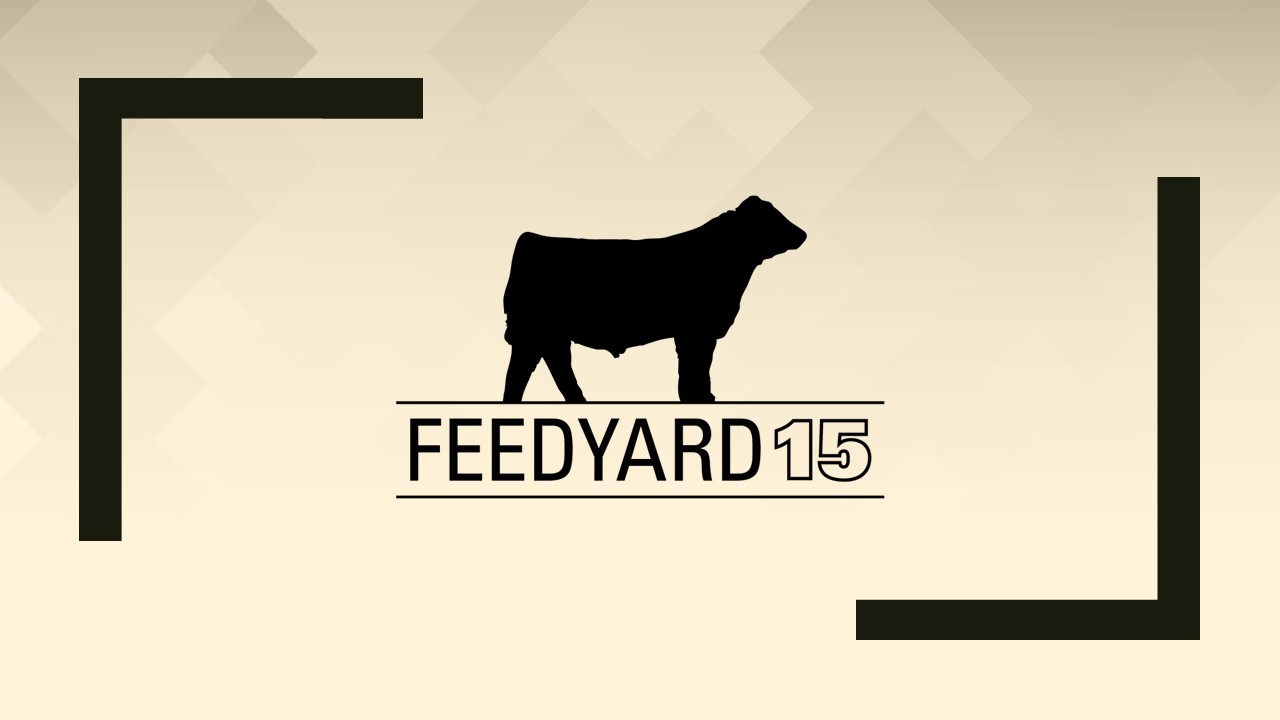
The Cattle Feedyard Safety Program, through the Central States Center for Agricultural Safety and Health, Gallagher Insurance, Nebraska Extension and the Nebraska Cattlemen, has compiled safety modules that can be used by cattle producers to conduct safety trainings with their employees. The modules are based on the topics identified through surveys, insurance companies, and other safety and health experts. The top 15 employee safety topics identified have been labeled the Feedyard 15.
This training is intended for anyone new to agriculture, about to begin employment in agriculture outside of their family business or wishing to improve their current skills and knowledge. People of all ages find this set of lessons relevant.
Price for this course is $10.- Teacher: Deana Namuth-Covert
- Teacher: Aaron Yoder

This short course offers a comprehensive overview of fiber hemp production through research-based production strategies and demonstrations of practical skills. Class sessions will feature presentations from farmers, field researchers, and industry experts. The curriculum topics will primarily focus on best agronomic practices in hemp production.
- Teacher: Heather Darby
- Teacher: Shannon MacDonald
- Teacher: Laura Sullivan
This four-part, asynchronous learning module was created by the Military Families Learning Network’s Early Intervention team. The interactive course focuses on the rights of young children with disabilities in military families, eligibility for special education programs and services for children with disabilities available within military systems, and strategies to support military families as they navigate these systems in military contexts.


Course Overview
The Financial Management Series for Volunteers is a comprehensive collection of online training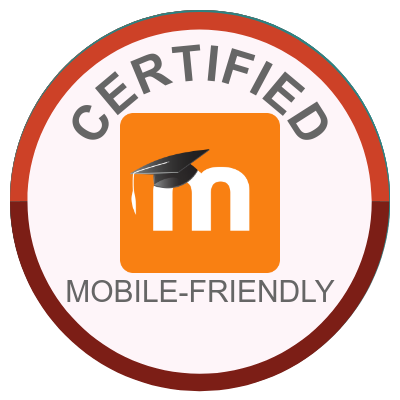 modules designed to equip volunteers with essential financial management skills tailored specifically for the 4-H Youth Development Programs (YDP). Through this structured series, participants will gain the knowledge and tools necessary to ensure financial integrity, compliance, and effective resource utilization within their respective 4-H organizations.
modules designed to equip volunteers with essential financial management skills tailored specifically for the 4-H Youth Development Programs (YDP). Through this structured series, participants will gain the knowledge and tools necessary to ensure financial integrity, compliance, and effective resource utilization within their respective 4-H organizations.
The series includes:
- Module 1: Financial Management Fundamentals.
- Module 2: Bank Accounts & Signer Responsibilities.
- Module 3: Planning, Fundraising, and Resource Management.
- Module 4: Gifts, Scholarships, Special Considerations.
- Module 5: Annual Financial Reporting & Compliance.
- Module 6: Financial Responsibilities of 4-H Treasurer Advisors, Club Treasurers, VMO Treasurers, and VMO Finance Managers.
- Module 7: Excess Funds, Financial Processing, Disbursements, & Taxes.
Length
Each module is between 7 and 15 minutes with a total course time of approximately 75 minutes. Coursework can be completed over multiple sessions (you will have the option to resume where you left off).
Who Should Attend
California Adult Volunteers who have a financial role in the 4-H program such as Club Leaders, VMO Treasurers, Treasurer Advisors.
- Teacher: Zeva Cho
- Teacher: CA 4-H eXtension Tech Support
- Teacher: Scott Mautte
- Teacher: Gemma Miner
Finding Land to Farm in Idaho Short Course
Four Sessions
Are you a Land Seeker?
Perhaps you are returning from military service or changing careers. Maybe you have worked or apprenticed on farms or been inspired by urban agriculture or the local food movement. If you have a desire to find land to farm or ranch, the Finding Land to Farm short course is for you!
People learn best by doing! This 4-part short course takes a skills-based approach to teaching and learning that focuses on what people need to know and do to successfully find land to farm. In addition to live webinar-based class sessions, participants will have access to online classroom materials including activities and resources essential to making land tenure decisions.
Week 1: Introduction to Land Tenure Options
Week 2: Assessing Your Financial Position
Week 3: Finding and Assessing Farmland
Week 4: Ins and Outs of Leasing and Buying Land
The Finding Land to Farm curriculum “Farmland for the Next Generation” was developed by the American Farmland Trust, the Worldwide Instructional Design System and a team of 25 farming and land access experts from across the United States through grant from the U.S. Department of Agricultures Beginning Farmer and Rancher Development Program, Award # 2015-70017-23901.
For more information, please contact:
Colette DePhelps, University of Idaho Extension, cdephelps@uidaho.edu
- Teacher: Colette DePhelps
- Teacher: Mackenzie Lawrence
This is a video-based series course. Through watching and following along with the videos, viewers will increase their knowledge about nutritional value of trout and food safety guidelines. Viewers will gain skills to engage with their children in the kitchen and at mealtime. Viewers will gain cooking skills related to cooking trout and increase confidence in their abilities to cook trout.
- Teacher: Erin Doty
- Teacher: Hannah Kindelspire
- Teacher: Annie Roe
The audience for this course is:
The Florida Master Gardener
Volunteer Training Program prepares potential candidates to assist UF/IFAS
County Extension with outreach and educational in the areas of Horticulture,
Landscape Management, and Gardening. Sessions
are taught by UF/IFAS Agents and Specialists and will cover challenges that
come with living and gardening in the Florida.
Upon Successful completion of this training, participants will be able to:
- Explain the role of UF/IFAS Extension, Extension Agents, and Master Gardeners.
- Define EDIS and search it for reference materials.
- Identify common weeds, invasive plants, and common pest insects
- Distinguish differences between different plant pathogens and common nutrient deficiencies
- List the 9 Principles of Florida Friendly Landscaping™
- Provide 5 major concepts that are needed when planning and designing a landscape or garden.
- Demonstrate proper best practices for plant propagation, tree care, and fruit and Vegetable Gardening
- Synthesize learned material to provide researched based and informed guidance to Extension Clients via verbal or online communication
For more information or to enroll please contact:
Julio Perez
Commercial and Residential Horticulture Agent I
UF/IFAS Extension Putnam County
pjulio@ufl.edu
Mimi Vreeland
Residential Horticulture Agent I
UF/IFAS Extension Flagler County
mvreeland@ufl.edu
- Teacher: Julio Perez
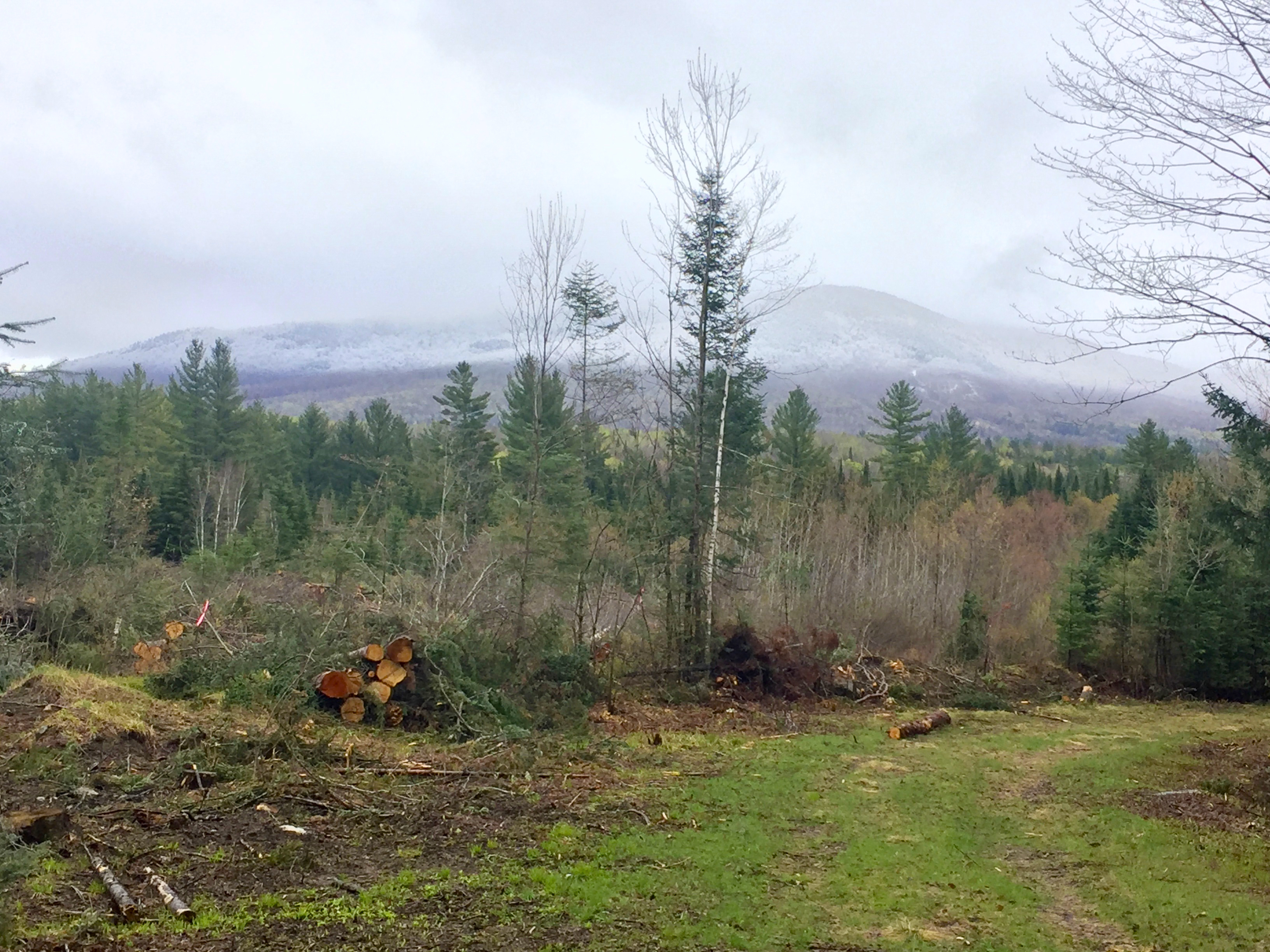
Speaker: Ivan Fernandez-Distinguished Maine Professor, University of Maine, School of Forest Resources and Climate Change Institute
A discussion of how we are developing adaptation strategies for managing ecosystem response to climate change, particularly as it relates to forested ecosytems and the freshwater resources they encompass.
0.5 Category 1 CEU; $10.00
- Teacher: Raymond Berthiaume
- Teacher: andrew fast
Speaker: Charlie Levesque-Innovative Natural Resource Solutions, LLC
A discussion of the basics of forest carbon and what it might mean in future years for the forest industry. Specifically: how do forests capture and store carbon, how does the forest carbon market work, how might forest carbon programs impact timber harvesting, how do landowners access these programs, what does all this mean for managing our forests.
1.5 Category 1 CEUs; $30.00
- Teacher: Raymond Berthiaume
- Teacher: andrew fast

Speaker: Stephen Nicholas-Maine Forest Service
A walk-through of the new system, including how to access and what the requirements are.
0.5 Category 1 CEU; $10.00
- Teacher: Raymond Berthiaume
- Teacher: andrew fast

Speaker: Amanda Lind-Technical Content Writer, Blue Marble Geographics
An explanation and demonstration how to use available software as a tool for foresters.
0.5 Category 1 CEU; $10.00
- Teacher: Raymond Berthiaume
- Teacher: andrew fast

Speaker: Claire Kiedrowski-Executive Director, Maine Library of Geographic Information
A discussion about what LiDAR data is available to foresters, wher, and how to find and access it.
0.5 Category 1 CEU; $10.00
- Teacher: Raymond Berthiaume
- Teacher: andrew fast

Speaker: Joel Slate-Corporate Director of Fiber Supply ND Paper
Discussion of markets for low-grade forest products and resources to support them.
0.5 Category 1 CEU; $10.00
- Teacher: Raymond Berthiaume
- Teacher: andrew fast

Speaker: Mark Anderson-The Nature Conservancy
A discussion about the project and how it is being implemented in Maine with multiple partners and supporters.
1.0 Category 1 CEU; $20.00
- Teacher: Raymond Berthiaume
- Teacher: andrew fast

Speaker: Amanda Lind-Technical Content Writer, Blue Marble Geographics
An explanation and demonstration how to use available software as a tool for foresters.
0.5 Category 1 CEU; $10.00
- Teacher: Raymond Berthiaume
- Teacher: andrew fast
Forest Farming Online is designed to train technical service providers (e.g., service foresters with government agencies, Extension professionals, forest management consultants), but is freely available to the public. This course begins with one introductory module, which you must complete first. It includes information pertaining to the basics of forest farming and takes approximately one hour to complete. A series of video and webinar clips from the coalition’s YouTube and webinar library have been compiled to present key forest farming considerations such as, what is it?, how do you do it?, what crops are popular?, how do you add value?, etc. Questions are included for you to complete along the way. Module 1 is expected to take approximately one hour to complete and it guides users to videos that follow a specific list of topics in the curriculum. Questions are linked to specific videos or video segments within topics in the outline. You should plan on spending about 20 minutes per topic.
For more information contact:
John Munsell, Virginia Tech/Virginia Cooperative Extension, jfmunsel@vt.edu
Brent Peterson SREF/UGA, bpeterson@sref.info
William Hubbard SREF/UGA whubbard@sref.info
- Teacher: Leslie Boby
Listen to some of the items being presented and discussed on the floor of the state legislature.
0.5 Category 1 ceu; $10
- Teacher: Raymond Berthiaume

Descripción General del Curso
La formación anual para voluntarios de la Universidad de Agricultura y Recursos Naturales de California (UC ANR) es un recurso necesario para los voluntarios adultos que trabajan con menores. En este curso, usted aprenderá las directrices de CANRA, el Modelo Thriving para el Desarrollo Positivo de la Juventud, y la Supervisión 2-Deep. Estas sesiones están diseñadas para proporcionar importantes estrategias de prevención y denuncia para mantener seguros a los jóvenes en todos nuestros programas.
Duración
55 minutos (puede completarse en varias sesiones)
- CANRA para voluntarios - 30 minutos
- Modelo próspero de PYD de 4-H - 15 minutos
- Supervisión doble en profundidad - 5 minutos
Quién Debe Asistir
Todos los voluntarios de UC ANR que trabajen con menores en todo el sistema que estén fuera del Programa de Desarrollo Juvenil 4-H.
- Course Owner: CA 4-H eXtension Tech Support
- Course Owner: Scott Mautte
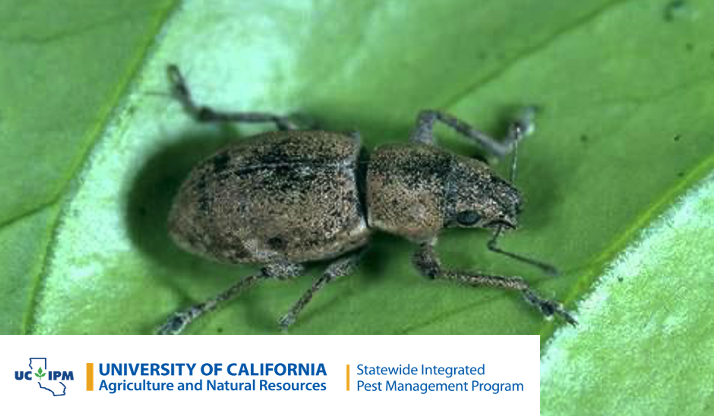

This course covers the life cycle of Fuller rose beetle, Naupactus godmani, its natural enemies, how to survey for it, why it is of significance for export countries, and how to manage the pest using a systems approach. This course is available for free for those who do not need Continuing Education Units. The author of the course is Dr. Elizabeth Grafton-Cardwell (UCCE Emerita Entomology Specialist).
To get the Continuing Education Units certificate you will be charged a fee of $20. To encourage taking the course earlier in the year, we offer 50% off the regular price from January through October 31st – use the code ipm50 at checkout. You must download the certificate (PDF file) to receive your CEU credits.
- Technical support: UC IPM Online Training Support
Course must be completed and certificate downloaded before December 30 of the current year.
To access the free version of this course without a certificate, click on the title below:
Fuller Rose Beetle
- Technical support: UC IPM Online Training Support
Fundamentals of Agricultural Credit Analysis is a self directed course for beginning agricultural lenders and beginning farmers. In this course participants will learn how to analyze financial statements to make credit decisions. In addition, the farmer will learn how to use financial statements to make better management decisions.
For more information on this course or to enroll please contact: Ryan Larsen at ryan.larsen@ndsu.edu
- Teacher: Ryan Larsen
Fundamentals of Agricultural Credit Analysis is a self directed course for beginning agricultural lenders and beginning farmers. In this course participants will learn how to analyze financial statements to make credit decisions. In addition, the farmer will learn how to use financial statements to make better management decisions.
For more information on this course or to enroll please contact: Ryan Larsen at ryan.larsen@ndsu.edu
- Teacher: Ryan Larsen
This online course consists of six units which address various topics relevant to municipal government in Montana. Each unit contains required reading, a discussion forum, and a quiz. It is anticipated that participants will complete each unit in approximately two hours for a total of 12 credited Institute hours.
For more information or to enroll please contact: Lydia Maunz, lydia.maunz@montana.edu, at Montana State University.- Teacher: Schuyler Germann
- Teacher: Ashley Kent
- Teacher: Lydia Maunz
- Teacher: Kate Wade
By taking this course, students will learn: good ag practices that help prevent foodborne illness from fresh produce. If you are an urban gardener and produce food for family and friends, this is the course for you.
This course contains audio and video so you will need a computer that can play both.
For more information or to enroll please contact: Cindy Brison
- Teacher: Deborah Weitzenkamp
- Instructor: Cindy Brison, MS, RDN
Equine Genetics: An Important Diagnostic Tool is a self directed course designed for horse owners and enthusiasts. Participants will gain basic information on equine genetics and genetic diseases commonly found in horses from taking this course. For more information contact Nichol Schultz, University of Minnesota, at mccar556@umn.edu.
- Teacher: Kathy Anderson
- Teacher: Colleen Brady
- Teacher: Krishona Martinson
For more information contact Leah Sandall, University Nebraska-Lincoln, lsandall5@unl.edu
For technical assistance please contact campushelp@extension.org
- Teacher: Diane Nolan
- Teacher: Leah Sandall
The target audience is the college graduate level learner and agriculture professionals.
Teachers include: P. Stephen Baenziger, Leah Sandall, Diane Nolan
For more information or to enroll contact Kathy Schindler at kschindler1@unl.edu or 402-472-1730
- Teacher: Diane Nolan
- Teacher: Leah Sandall
Course Name: Get it in the Bag! Sweep Net basics and advanced pest management.
Course Overview:
Sweep-nets are a common tool Pest Control Advisors use to scout cotton and alfalfa fields for insect pests and Beneficial's. We will meet at a farm, discuss various scouting techniques, and experienced alfalfa and cotton Extension Specialists will conduct hands-on training. Participants will be required to successfully demonstrate competency with sweep net collection, and reference publications written by workshop instructors, to determine the threshold for different chemistry selections. Additionally, product updates and novel methods of pest control will be discussed by two industry representatives.Course Number: CA-DPR # DPR-1012-25, AZDA #25073, CCA #SS 59816
CEU Credits: This course is accredited by the California Department of Pesticide Regulation (2.0 CEU 'Other' category and the Arizona Department of Agriculture (2.0 CEUs), Certified Crop Advisor (2.0 CEUs)The course will be automatically removed from circulation on December 31st 2025.
The course contains video so it requires a computer that can play audio and video.
Contact and technical support: Robert Masson, masson@arizona.edu.
Cost of this course is $20.00
- Teacher: Don Dinwiddie
- Teacher: Chaylen Hildestad
- Teacher: Robert Masson
- Teacher: Sheldon Brummel
- Teacher: Angie Rushman
- Teacher: Daisy Warnick
- Instructor: Ryan Hazen
Growing Apples with IPM is an online course for Master Gardeners looking for further certification or home gardeners. Students will learn what to consider when planting an apple tree, and IPM-based strategies for controlling common pests and diseases. Once you have completed this course and received a certificate, you will receive Master Gardener credit.
For information or to enroll contact:
Mary Meyer, meyer023@umn.edu or
Echo Martin, mart1794@umn.edu with University of Minnesota
- Teacher: Mary Meyer
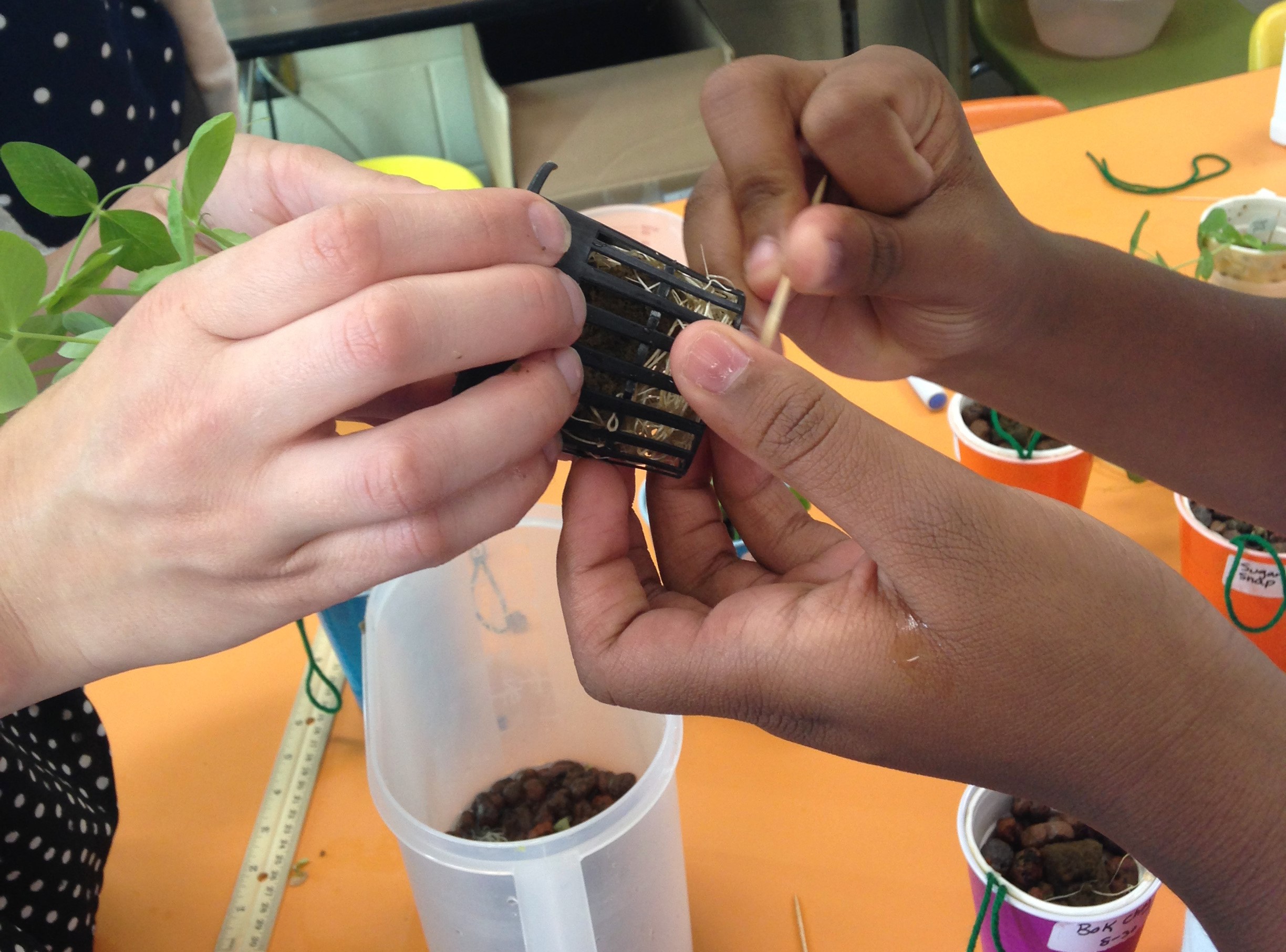
Online 4-H Crop Production Lessons for Grades 4-8: Soil-based and Soilless Systems
Earth’s population growth and concurrent decline in farmland pose great challenges for food security across our planet.1 The challenge of how to feed 9.9 billion people calls for new methods to grow and distribute food.2 Having access to fresh and nutritious food is a basic need for all people. We invite youth to be learners and leaders who meet these challenges with a new vision for crop production that combines soil-based and soilless farming.
To engage youth in these global challenges, WVU Extension Service, Iowa State University Extension, and PLANTS, LLC have partnered to create a series of online lessons. Youth can gain a foundation by digging deep into crop growth and development in conventional and hydroponic systems. Youth learners in this online program will also explore their role and possible career opportunities in sustainable agriculture and ag technology.
Questions that students will explore in the online lessons include:
- How do plant seeds differ in terms of germination rates, structures, and plant types?
- What type of plant maintenance is important for each stage of plant growth?
- How does light intensity and duration affect photosynthesis?
- What are key elements of a healthy soil, and how does soil quality affect plant growth?
- When are soilless plant production systems good alternatives to soil-based farming?
- What plant growth strategies can be used to conserve water?
- How can farmers apply new plant growth technologies to increase crop yield and integrate sustainable agricultural practices?
This project is made possible by support from NASA West Virginia Space Grant Consortium. Students will explore soil-based as well as soilless (hydroponic) agriculture methods used locally and as part of NASA space science research. The Iowa State University 4-H program shared material from their Crops Feed the World online lessons in support of this project.
1 Read more about world population growth projections presented by the International Institute for Sustainable Development (IISD) at: https://sdg.iisd.org/news/world-population-to-reach-9-9-billion-by-2050/
2 Read more about New and Emerging Technology for High Quality and Sustainable Horticulture Production in Gonnella, M., & Renna, M. (2021). The evolution of soilless systems towards ecological sustainability in the perspective of a circular economy. Is it really the opposite of organic culture? Agronomy 2021, 11(5), 950; https://doi.org/10.3390/agronomy11050950.
- Administrator: Karen Cox
- Administrator: Maya Hayslett
- Administrator: Laurie Ruberg
The audience for this course includes individuals who are considering starting an agriculture or natural resource based business, but who aren't sure where to start.
Growing Places will help you develop a comprehensive goal statement; explore and evaluate opportunities and resources; and become familiar with programs that can help you get started. There is no requirement to complete a business plan but you will become familiar with the components of a business plan should you choose to complete one.
For more information please contact: Mary Peabody - mary.peabody@uvm.edu or Beth Holtzman - beth.holtzman@uvm.edu.
- Teacher: Beth Holtzman
- Teacher: Mary Peabody
In the 'Growing Raspberries and Blackberries with IPM' course, Master Gardeners will learn the best maintenance techniques for growing brambles, including insect and disease management. This course places special emphasis on a new insect pest, the spotted wing drosophila.
Once you register for the class, you will have unlimited time to complete the work at your own pace. Once you have completed this course and received a certificate, you will receive Master Gardener credit worth 3 CEUs.
For more information, contact Mary Meyer University of Minnesota, at meyer023@umn.edu
- Teacher: Mary Meyer
In the 'Growing Squash, Cucumbers and Pumpkins with IPM' course, Master Gardeners will learn about growing cucurbits, including plant selection and insect and disease management.
Once you register for the class, you will have unlimited time to complete the work at your own pace. Once you have completed this course and received a certificate, you will receive Master Gardener credit worth 3 CEUs.
For more information, contact: Mary Meyer, University of Minnesota, meyer023@umn.edu
- Teacher: Mary Meyer
Growing Strawberries with IPM is an online course for Master Gardeners looking for further certification or home gardeners. Students will learn the basics on what to consider when planting strawberries, as well as IPM-based strategies for controlling common pests and diseases.Once you have completed this course and received a certificate, you will receive Master Gardener credit.
For information or to enroll contact:
Mary Meyer, meyer023@umn.edu or
Echo Martin, mart1794@umn.edu with University of Minnesota
- Teacher: Vera Krischik
- Teacher: Mary Meyer
Growing Tomatoes with IPM is designed for Master Gardeners who will learn how to prevent pests on tomatoes from the beginning to the end of the growing season through lessons on variety selection, best planting practices, and cultural information and will be instructed on how to recognize leaf spots, early and late blight and bacterial spot.
Once you register for the class, you will have unlimited time to complete the work at your own pace. Once you have completed this course and received a certificate, you will receive Master Gardener credit worth 3 CEUs.
For more information, contact: Mary Meyer, University of Minnesota, meyer023@umn.edu
- Teacher: Mary Meyer

Aloha! Welcome to the Hawaii Interisland Livestock Shipper Certification training. This training module will briefly cover best management practices for interisland ocean transport of livestock in the state of Hawaii. This certification is required for any shipper transporting livestock via Young Brothers, Ltd. Certification training is free and will be valid for 3 years from date the course is completed. Questions regarding the topics covered in this module should be directed to your course facilitators, county livestock extension agent, livestock commodity group, or Young Brothers. Mahalo for your time, effort, and commitment as a livestock shipper to help improve the transportation practices here in Hawaii.
- Facilitator : Nicole Galase
- Facilitator : Jenee Odani
- Facilitator : Melelani Oshiro
Health Check: Get Proactive with Your Well-Being is a self-paced course designed to provide you with the steps, considerations, and confidence to improve your overall health.
This course consists of 7 self-paced video modules that correspond with self-reflective activities.
In this course you will meet a variety of objectives targeted at improving your personal health and wellness including:
Gaining a better understanding of preventative care
Building confidence in advocating for your own health
Creating goals to improve upon your own health
It is recommended to complete this course in sequential order of 7 modules, within a month, however you may self-select content at your own pace. A certificate of completion will be awarded with completion of all 7 modules.
Other notes:
Participation in this course is free of charge. This course is intended for any adult looking to gain insight into their own personal health.
This course will be available year round and is delivered asynchronously, but will be unavailable September 15th thru October 1st for annual maintenance.
- Teacher: Sarah Goldring
- Teacher: Alyssa Whittaker
This course is for child care providers. This 30-minute online class is a fun and interactive way to learn about the latest recommendations for healthy beverages for children and help child care providers meet the requirements of the California Healthy Beverages in Child Care Act (AB 2084). It includes videos, short quizzes, activities, and covers topics such as milk, types of fruit juice, drinking water, and reading a nutrition label. A professional development certificate will be provided upon completion. The course is free for child care providers located in California and available for child care providers outside of California for a $15 fee.
- Teacher: Danielle Lee
If you wish to purchase this course, please click the following button:
- Teacher: Danielle Lee


Course overview
This course covers several calibration methods and various types of equipment used for managing both herbaceous and woody weeds across many of California’s different ecosystems. This course is available for free. The course contains video so it requires a device that can play audio and video.
Who should enroll?
Anyone who works with herbicide application equipment for controlling woody and herbaceous weeds in non-agricultural areas.
Continuing Education Units
California Department of Pesticide Regulation (0.5 hour Laws & Regs and 1.5 hours Other).
Enrollment period
This course must be completed by December 30 of the current year. Download the certificate immediately when you complete the course. You will not be able to retrieve your certificate after December 30.
- Technical support: UC IPM Online Training Support
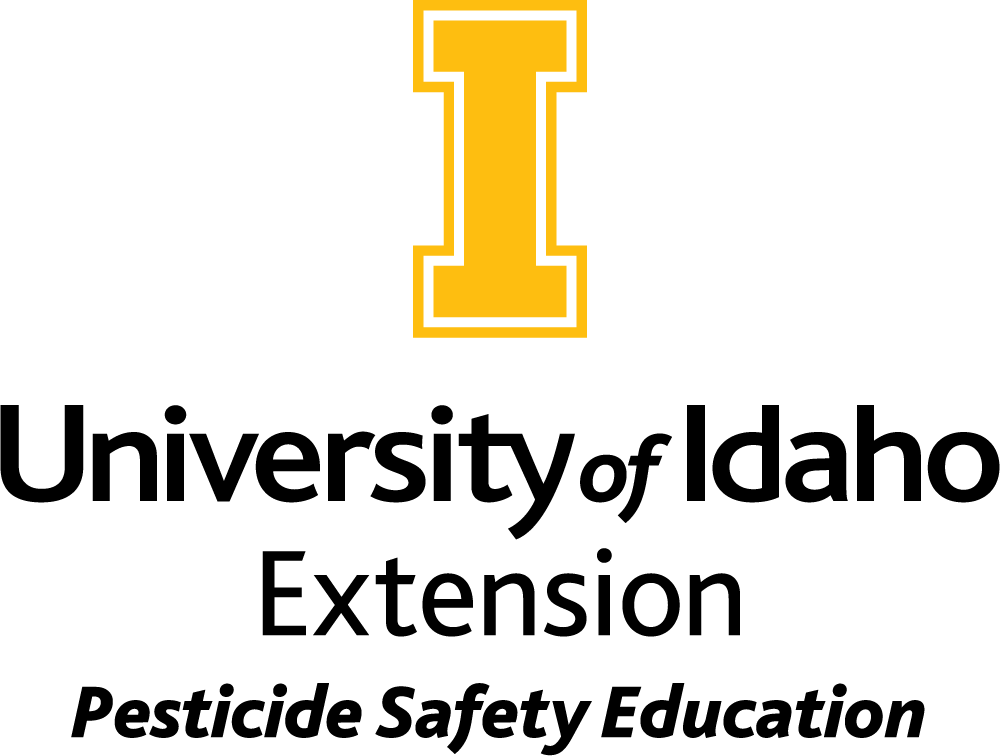
Recertification Credits are available for this course.
This
pesticide recertification course discusses the global, national, and
regional situation, regarding herbicide resistance. It covers prevention
strategies to try and avoid problems from herbicide resistance. The course also covers mitigation strategies to avoid resistance problems.
We will conclude by providing some resources for more information on
herbicide resistance.
This course has been approved by the Idaho State Department of Agriculture (ISDA) - Seminar #2024-634 for 1-ISDA pesticide credit.
If you have questions related to this course, please email: cals-ipm@uidaho.edu at University of Idaho Extension.
- Teacher: cals ipm
 Welcome to the Extension Horses all new Hippology/Horse Science: Learning all about
horses! This course contains four interactive lessons with quizzes, videos
and more.
Welcome to the Extension Horses all new Hippology/Horse Science: Learning all about
horses! This course contains four interactive lessons with quizzes, videos
and more.
Topics include:
- Internal Parasites
- Introduction to Horse Hoof Anatomy
- Parturition in broodmares
- Evaluating Equine conformation
You have unlimited access and attempts to all the content for 6 months from the date of purchase.
Cost: $40 for all 4 lessons
- Teacher: Kathy Anderson
- Teacher: Kim Baker
- Teacher: Colleen Brady
- Teacher: Kris Hiney
- Teacher: Alyssa Ohmstede
- Teacher: Allison Perkins
This two-part workshop focuses on effective strategies for hiring and keeping employees. You will learn and practice skills for effective employee feedback methods that help employees optimize their talents. We'll also explore the role job descriptions
can play in both recruiting and managing employees, and you'll have a chance to start developing job descriptions for your crews for the coming season, and and feedback from educators and other participants. The workshop is part of the 2022 Farm Labor Dashboard Workshop Series, which
focuses on helping farmers build practical labor management knowledge and skills.
Session Format: Sessions will be delivered via Zoom. Connection information, along with additional resources and information will be available through the workshop site.
Fees. The workshop fee is $35. To purchase and enroll in the course, click the following button:
Scholarships and multi-session discounts are available for workshops offered through the 2022 Farm Labor Dashboard Workshop Series, reducing the workshop fee to $20. However, these options are only available for people who request – and receive approval for -- reduced fees in advance of registration and payment. To request either a multi-session discount or scholarship, please fill out this online form.
Please wait to register until you hear back from us via email. Decisions are generally made within 3 business days. If you are approved, you will receive a voucher code that you will use during the registration/payment process to activate a reduced registration fee for the workshops you indicated you wish to enroll in.
- Instructor: Beth Holtzman
- Instructor: Mary Peabody
- Part 1 will cover:
- Unit 1- Horses Then and Now
- Unit 2- Horse Breeds and Uses
- Unit 3- Horse Identification
- Unit 4- Horse Conformation and Selection
- There are 4 units with 2 lessons each.
- At the end of each lesson you will test your knowledge by completing a quiz.
- After completing all four units you can take a the final quiz to earn a certificate in Horse- 101 Part 1.
- Teacher: Kathy Anderson
- Teacher: Colleen Brady
- Teacher: Dani Forster
- Part 2 will cover:
- Unit 5 -Horse Senses, Behaviors and Body Language
- Unit 6 - Horse Nutrition - Part 1
- Unit 7 - Horse Nutrition - Part 2
- Unit 8 - Equine Exercise Physiology
- There are 4 units with 2 lessons each.
- At the end of each lesson you will test your knowledge by completing a quiz.
- After completing all four units you can take a the final quiz to earn a certificate in Horse- 101 Part 2.
- Teacher: Kathy Anderson
- Teacher: Colleen Brady
- Teacher: Dani Forster
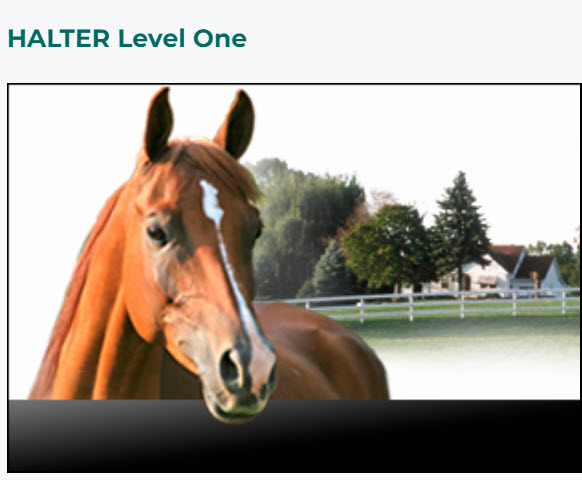
Welcome to the Horse Adult Leader Training and Educational Resource (HALTER)- Part 1.
This course is part of a four course series for Adult Volunteers working with youth in the horse industry. These courses can be taken in any order, based on your background knowledge and areas of interest. In Part 1, we will cover:
- Safety and Handling working with horses
- Safe Tack and Attire
- Basics of Horse Behavior
- Staying Safe working with Youth
The fee for a 12 month subscription for this course is $25, or $75 if you purchase all 4 HALTER courses. To purchase and enroll in the course, click the following button.
If you purchase all 4 HALTER courses, enter the voucher code of 4Halter.
For more information contact:
Kathy Anderson, University of Nebraska-Lincoln, at kanderson1@unl.edu
Colleen Brady, Purdue University, at bradyc@purdue.edu
Kris Hiney, Oklahoma State University, at khiney@okstate.edu
- Teacher: Kathy Anderson
- Teacher: Colleen Brady
- Teacher: Chelsie Huseman
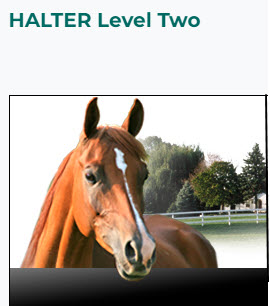
Welcome to HALTER Level Two! This self-directed course designed for adults working with youth. This course builds upon the first level of the HALTER program. Participants will gain equine science information, student activities, and methods to promote
positive youth development from taking this course.
The fee for a 12 month subscription for this course is $25, or $75 if you purchase all 4 HALTER courses. To purchase and enroll in the course, click the following button.
If you purchase all 4 HALTER courses, enter the voucher code of 4Halter.
For more information contact:
Kathy Anderson, University of Nebraska-Lincoln, at kanderson1@unl.edu
Colleen Brady, Purdue University, at bradyc@purdue.edu
Kris Hiney, Oklahoma State University, at khiney@okstate.edu
- Teacher: Kathy Anderson
- Teacher: Colleen Brady
- Teacher: Chelsie Huseman
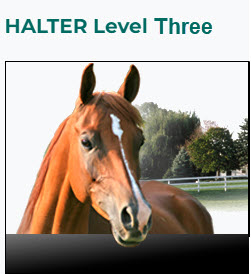
The Horse Adult Leader Training and Educational Resource Program Level Three module is a self-directed course designed for adults working with youth and horses who have completed levels one and two of the program. Participants will gain equine science information, student activities, and techniques to promote positive youth development from taking this course.
The fee for a 12 month subscription for this course is $25, or $75 if you purchase all 4 HALTER courses. To purchase and enroll in the course, click the following button.
If you purchase all 4 HALTER courses, enter the voucher code of 4Halter.
For more information contact:
Kathy Anderson, University of Nebraska-Lincoln, at kanderson1@unl.edu
Colleen Brady, Purdue University, at bradyc@purdue.edu
Kris Hiney, Oklahoma State University, at khiney@okstate.edu
- Teacher: Kathy Anderson
- Teacher: Colleen Brady
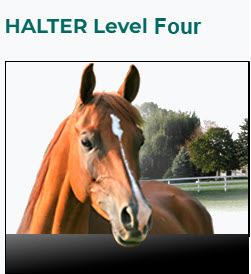
The Horse Adult Leader Training and Educational Resource Program Level Four module is a self-directed course designed for adults working with youth and horses who have completed the first three levels of the HALTER program. Participants will gain equine science information, student activities, and techniques to promote positive youth development from taking this course.
The fee for this course is $10. To purchase and enroll in the course, click the following button.
The fee for a 12 month subscription for this course is $25, or $75 if you purchase all 4 HALTER courses. To purchase and enroll in the course, click the following button.
If you purchase all 4 HALTER courses, enter the voucher code of 4Halter.
For more information contact:
Kathy Anderson, University of Nebraska-Lincoln, at kanderson1@unl.edu
Colleen Brady, Purdue University, at bradyc@purdue.edu
Kris Hiney, Oklahoma State University, at khiney@okstate.edu
- Teacher: Kathy Anderson
- Teacher: Colleen Brady
- Teacher: Chelsie Huseman
This lesson compares and contrasts the different recreational and work-related uses of equine in the United States and globally. In addition, this lesson also explains how equine breeds are categorized and also discusses the history, unique physical properties, and uses of popular equine breeds.
For more information contact Kathy Anderson, University of Nebraska–Lincoln, at kanderson1@unl.edu
The fee for this course is $10. To purchase and enroll in the course, click the following link:
- Teacher: Kathy Anderson
- Teacher: Colleen Brady
- Teacher: Betsy Greene
This lesson will cover basic health care practices such as taking vital signs and determining Body Condition Score and discuss preventative health care, lameness, and dental issues. By understanding the diseases and parasites that affect horses, better decisions can be made for vaccinating a horse and adjusting a horse's deworming plan as necessary. Lameness is a serious concern to horse owners because it limits the use and potential future uses of horses either in the short term or permanently. By understanding how lameness affects horses, better decisions can be made for managing a lameness issue as soon as it becomes apparent. The majority of lameness diagnosed in a horse occurs in their lower limbs, more so in their hoof. Having a general knowledge of the hoof is a helpful aide when treating a problem. By understanding how dental health affects horses, better decisions can be made for managing issues as soon as they become apparent. Being familiar with the causes behind colic will also help sort out when and in what conditions a horse is most susceptible to colic.
For more information contact Kathy Anderson, University of Nebraska–Lincoln, at kanderson1@unl.edu
The fee for this course is $10. To purchase and enroll in the course, click the following button.
If you purchase at least $40 worth of courses from this category, you can receive a 20% discount by entering the voucher code of HorseQuest20.
- Teacher: Kathy Anderson
- Teacher: Colleen Brady
- Teacher: Betsy Greene
This course consists of three modules designed for people interested in judging horses for competitive contests, or as a start for those wishing to maybe become a horse show judge. In addition to the three modules (Introduction to Judging Contests, Judging
Halter (conformation), and Introduction to Oral Reasons. The course also contains a Starter Pack, with a variety of additional resources, and a link to Horse IQ, a highly interactive horse learning platform created by the American Paint Horse Association.
Purchasing this course for $90 provides access to these modules for 12 months. Should you want a 6-month subscription for $50, go to https://campus.extension.org/course/view.php?id=2268.
To purchase this 12-month subscription, click the following button.
- Teacher: Kathy Anderson
- Teacher: Colleen Brady
- Teacher: Dave Dellin
- Teacher: Kris Hiney
- Teacher: Danielle Smarsh
- Teacher: Craig Wood
This course consists of three modules designed for people interested in judging horses for competitive contests, or as a start for those wishing to maybe become a horse show judge. In addition to the three modules (Introduction to Judging Contests, Judging
Halter (conformation), and Introduction to Oral Reasons. The course also contains a Starter Pack, with a variety of additional resources, and a link to Horse IQ, a highly interactive horse learning platform created by the American Paint Horse Association.
Purchasing this course for $50 provides access to these modules for 6 months. Should you want a 12-month subscription for $90, go to https://campus.extension.org/course/view.php?id=1931.
To purchase this 6-month subscription, click the following button.
- Teacher: Colleen Brady
This is an online horse judging camp for anyone thinking about giving horse judging a try! The camp includes at-home assignments, reasons critique, 4 interactive virtual meetings, quizzes, and certificate of completion!
Experts from 3 universities will be online each session to discuss classes and interact with you.
Presenters include:
- Dr. Colleen Brady (Purdue University Extension Horse Specialist)
- Dr. Kathy Anderson (University of Nebraska Judging team coach, AQHA, NSBA, APHA judge)
- Dr. Karen Waite (Michigan State University) AQHA Judge
- Dr. Craig Wood (University of Kentucky)
Topics/classes covered include:
- Conformation of non-stock breeds
- Hunt Seat Equitation
- Showmanship
- Ranch Trail
- Oral reasons with feedback!
Dates: February 19, 26, March 5 and 12, 2026
Time: 7 - 8:30 pm Eastern time: 6 – 7:30 pm Central time
- Teacher: Kathy Anderson
- Teacher: Colleen Brady
- Teacher: Kris Hiney

This series of practice classes, with questions, is available to anyone wishing to hone their judging skills.
Classes are :
1) Aged Stock Type Geldings
2) Performance Mares
3) Hunter Under Saddle
4) Trail
5) Western Riding
6) Ranch Riding
All classes are judges using AQHA rules, and official critiques, placings and cuts are available.
**Enrollment for this course gives you unlimited access to the content for 90 days from the date of enrollment.
The fee for this course is $20. To purchase and enroll in the course, click the following button:
- Teacher: Kathy Anderson
- Teacher: Colleen Brady
- Teacher: Kris Hiney
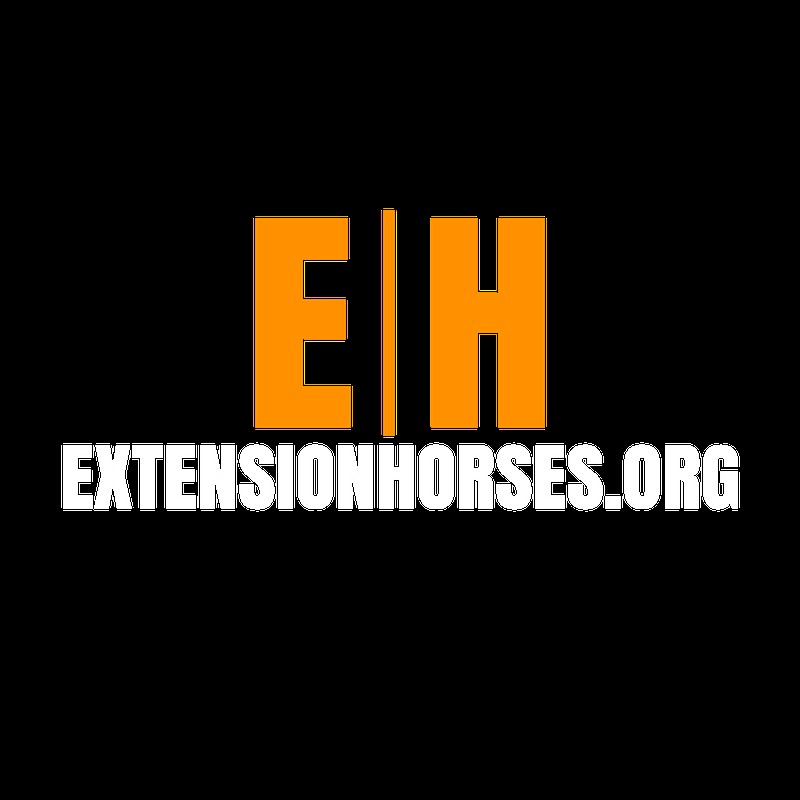
Six judging classes, with officials, questions and critiques. This course is designed to offer practice classes for judging team coaches, or youth, to practice their horse judging skills.
Classes include
1) Performance Halter Mares
2) Performance Halter Geldings
3) Trail
4) Western Pleasure
5) Ranch Pleasure
6) Hunt Seat Equitation.
All classes are judges using AQHA/APHA rules, and official critiques, placings and cuts are available.
Participants can repeat the classes as many times as they wish. This course is asynchronous, and can be completed at any time.
**Enrollment for this course gives you unlimited access to the content for 90 days from the date of enrollment.
The fee for this course is $20. To purchase and enroll in the course, click the following button:
- Teacher: Kathy Anderson
- Teacher: Colleen Brady
- Teacher: Kris Hiney

Six judging classes, with officials, questions and critiques. This course is designed to offer practice classes for judging team coaches, or youth, to practice their horse judging skills. This course has 6 performance classes to judge, all providing practice using scored judging systems.
Classes include:
1) Ranch Trail
2) Ranch Pleasure
3) Hunt Seat Equitation
4) Western Horsemanship
5) Showmanship
6) Reining
All classes are judges using AQHA/APHA rules, and official critiques, placings and cuts are available.
Participants can repeat the classes as many times as they wish. This course is asynchronous, and can be completed at any time.
**Enrollment for this course gives you unlimited access to the content for 90 days from the date of enrollment.
The fee for this course is $20. To purchase and enroll in the course, click the following button:
- Teacher: Kathy Anderson
- Teacher: Colleen Brady
- Teacher: Kris Hiney
Horse Judging School - Coaches and Teams is for youth horse judging participants ages 8 and older, collegiate participants, youth coaches, collegiate coaches, and adult 4-H or FFA leaders.
The criteria for judging numerous horse show classes typically used in a Horse Judging Contest are presented in video and interactive activities . Also, you will learn how to take notes, organize your thoughts and prepare a set of oral reasons.
To enroll in this course- go to : https://marketplace.unl.edu/extension/programs/horse-judging-school.html
For more information please contact: Kathy Anderson: kanderson1@unl.edu OR Rebecca Gunderson: regunder@umd.edu
- Teacher: Kathy Anderson
- Teacher: Colleen Brady
Horse's Best Chance During Disasters provides participants the opportunity to learn what they need to do to give their horse the best chance of surviving a natural disaster. The lesson includes how to prepare the horses, the facility, and yourself to minimize the potential for tragedy.This course offers a badge and is one of several available in the HorseQuest Badge Portfolio. This course includes a video, a learning lesson, and a quiz.
For information contact Kathy Anderson, kanderson1@unl.edu
- Teacher: Kathy Anderson
- Teacher: Colleen Brady
- Teacher: Kate Pulec
Horseman's Update is designed get the newest information to horse enthusiasts to keep you abreast of what’s going on in the horse industry!
For more information or to enroll please contact: Kathy Anderson, University of Nebraska-Lincoln, Department of Animal Science, kanderson1@unl.edu
- Teacher: Kathy Anderson
- Teacher: Colleen Brady
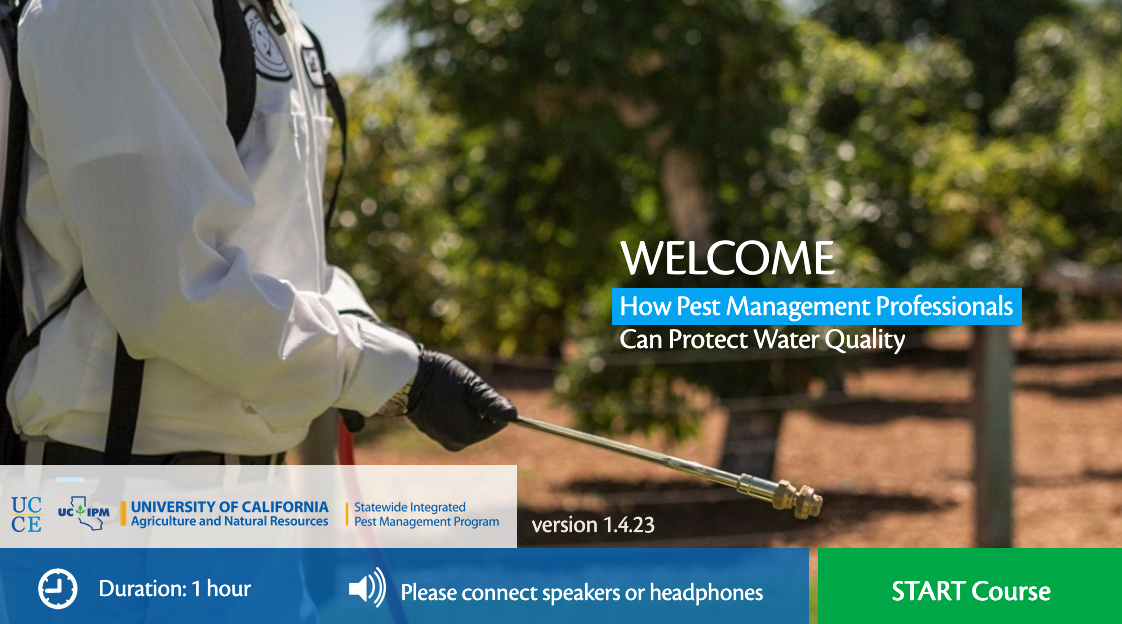

Continuing Education Units
This course must be completed by December 30 of the current year. Download the certificate immediately when you complete the course. You will not be able to retrieve your certificate after December 30.
- Teacher: Cheryl Reynolds
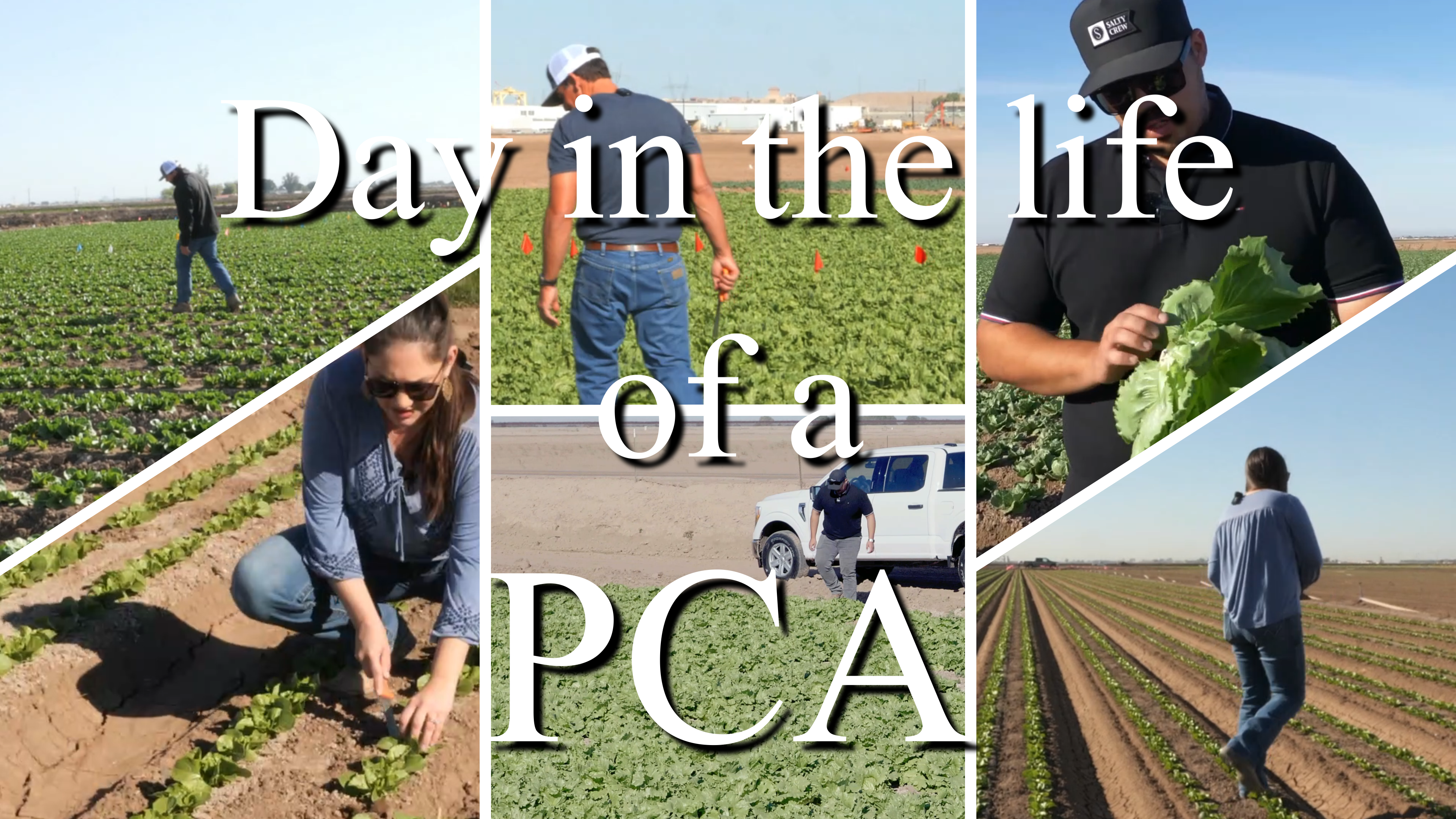
Course Overview: Pest Control Advisors, Pesticide Handlers, and Growers who take this online, on-demand course will learn about common insects and IPM practices in the desert southwest Iceberg lettuce production. This course is divided in to 5 modules, the modules will have interactive questions inserted into the video and the student will not be able to proceed until the questions are correctly answered. Modules will have a good and bad interaction that the student can choose the path to take first. A comprehensive quiz will be given after all 5 modules have been completed.
Course Name: A Day in the Life of an iceberg lettuce PCA: Common insects of the Desert Southwest
Starring: Dr. John Palumbo, Macey Keith, Alex Paez, Gordon Goodwin and Sirus Keith
Course Number: CA# DPR-XXXX-26, AZDA # 25069. CCA #SS 56282.
CEU Credits: This course will be accredited by the California Department of Pesticide Regulation (1.5 CEU 'Other' category, 0.5 CEU Aerial Pest), Arizona Department of Agriculture (2.0 CEU) and Certified Crop Adviser, (2.0 CEU IPM).Pest Control Advisors, pesticide handlers, and growers who take this course will learn about common insects and IPM practices in the Desert Southwest Iceberg lettuce production.
The course contains video so it requires a computer that can play audio and video.
Contact and technical support: Robert Masson, masson@arizona.edu.
- Teacher: Noe Barrios
- Teacher: Don Dinwiddie
- Teacher: Chaylen Hildestad
- Teacher: Robert Masson
Idaho 4-H Volunteer Orientation is an online course designed to orient new 4-H volunteers. Participants will learn:
- Volunteer Roles & Relationships
- Positive Youth Development
- Youth/Adult Partnerships
- Safe & Inclusive Environments
- Learn by Doing
For more information contact Donna Schwarting; University of Idaho; dschwarting@uidaho.edu
- Teacher: Teresa Tverdy

Recertification Credits are available for this course.
A chemigation license is required for both private applicators and professional applicators if you plan to chemigate with any type of fertilizer or pesticide. This course satisfies the Idaho State Department of Agriculture (ISDA) Chemigation exam.
For clarification, complete the following whether recertification or exam credit:
- For ISDA pesticide recertification credit, follow the steps in the activity to ensure your Idaho pesticide license number is entered into your Extension Foundation profile and complete the course.
- For ISDA chemigation exam credit, follow the steps in the activity, and it is recommended that you read the Idaho Chemigation Training Manual in addition to completing this course.
Expect to spend about 60 minutes in this session that covers the following topics:
- Idaho’s laws, rules and requirements
- Sources of water back flow
- Back flow prevention
- Chemical injectors and tanks
- Field topography, soils, and chemical leaching
- Pesticide label requirements
- Calculating field size and application rates
When the session is completed, you will receive 1-pesticide credit or be
able to print a certificate of completion for exam purposes. For those completing the course for exam purposes, submit the certificate to ISDA to prove completion of exam requirements.
If you have questions related to this course, please email: cals-ipm@uidaho.edu at University of Idaho Extension.
- Teacher: cals ipm

This course will prepare individuals for the Idaho State Department of Agriculture pesticide exams: Private Applicator (PA) Applicator Core Competency (CO), Regulatory Pest Control (RP) and Commercial Apprentice (CA) category.
You will have access to eight online instructional sessions to complete at your own pace. Each session contains an outline to use for enhancing your study and quizzes to evaluate your knowledge.
For more information please contact: University of Idaho Extension at cals-ipm@uidaho.edu
The fee for this course is $35-one month access. To purchase and enroll in the course, click the following button:
- Teacher: cals ipm
Thursday evening class sessions | Live via Zoom
January 14, 21, 28 and February 4
5:30 - 7:30 pm PST / 6:30 - 8:30 pm MST
From baby chicks to laying hens and drumsticks – are you looking to explore and expand your skills in small-scale poultry production? This course guides beginning producers through the process of raising poultry for profit. We will cover goals and record keeping, to bird nutrition and housing, egg handling, and meat processing. Join Extension Educators and poultry farming professionals for this comprehensive experience that’s something to crow about!
- Teacher: Colette DePhelps
Idaho Victory Garden is designed for individuals interested in learning more about creating a Victory Garden on their property. No prerequisites are required. Prepare your family to grow, eat and preserve fresh, healthy food and save money doing it. The Valley County Victory Garden online class is paired with two in-person session. Call the local office to learn more about the dates and location of these classes at 208-382-7190. For more information or to enroll contact Melissa Hamilton, University of Idaho, at mbhamilton@uidaho.edu.
- Teacher: Melissa Hamilton

- Teacher: Saundra Frerichs
- Teacher: Ann O'Connor
- Teacher: Angie Rushman

- Teacher: Saundra Frerichs
- Teacher: Ann O'Connor
- Teacher: Angie Rushman
Improving Plants Using Hybrid Vigor is an online course that covers classical concepts of heterosis; genetic hypotheses for hybrid vigor; quantitative genetics of heterosis; new tools to study hybrid vigor, structure and function; organization of germplasm into heterotic groups, prediction of heterosis and hybrid performance; mechanisms for making hybrid seed; and breeding methods/concepts for developing hybrids in plants.
The target audience is the college graduate level learner and agriculture professionals.
- Teacher: Diane Nolan
- Teacher: Leah Sandall
UVM Extension Northwest Crops and Soils (NWCS) program is offering this course in collaboration with the following organizations: Vermont Agency of Agriculture (VAAFM), Food & Markets, Massachusetts Department of Agricultural Resources (MDAR), SUNY Morrisville, University of Maine Cooperative Extension, Maine Organic Farmers and Gardeners (MOFGA), Northeast Organic Farming Association of NY (NOFA-NY), and Northeast Sustainable Agriculture Research and Education program (NE-SARE).
Offerings include up to 13 webinars (7 are required), up to 5 in-field intensives (1 is required), and admission to attend the 2021 and 2022 Industrial Hemp Conferences! You will also be asked to complete a Pre- and Post- Training Survey. All this is FREE and you can also earn Certified Crop Adviser credits! Webinar trainings will be live on Tuesdays, 12pm to 1pm. Please note that this training is offered for Agricultural and Technical Service Providers.
- Teacher: Susan Brouillette
Applicators must understand the practical knowledge of pests associated with these environments, including pest identification, habitats, life cycles, and behavior, as well as appropriate pesticide formulations and application methods that minimize contamination, damage, human and pet exposure, and environmental impacts.
You will have access to one online instructional session to complete at your own pace. The session contains an outline to use for enhancing your study and a quiz to evaluate your knowledge.
The fee for this course is $15-one month access. To purchase and enroll in the course, click the following button:
- Teacher: cals ipm
The audience for this course is Family Child Care Home Providers. This online training includes videos, short quizzes, and activities. It has two parts:
- In Part 1: What to Feed Infants, you will learn the latest recommendations on WHAT to feed infants. These are the foods and beverages that are recommended. You will review beverages such as breast milk, formula, and water, grains and proteins, fruits and vegetables, and foods to avoid such as sugar and salt.
- In Part 2: How to Feed Infants, you will learn the latest recommendations on HOW to feed infants. You will review breastfeeding, introducing solid foods, and overall healthy feeding practices.
Completion of this course provides 1.0 contact hours.
For more information or to enroll please contact dnilee@ucanr.edu.
- Teacher: Danielle Lee
The audience for this course is Family Child Care Home Providers residing outside the state of California. This online training includes videos, short quizzes, and activities. It has two parts:
- In Part 1: What to Feed Infants, you will learn the latest recommendations on WHAT to feed infants. These are the foods and beverages that are recommended. You will review beverages such as breast milk, formula, and water, grains and proteins,
fruits and vegetables, and foods to avoid such as sugar and salt.
- In Part 2: How to Feed Infants, you will learn the latest recommendations on HOW to feed infants. You will review breastfeeding, introducing solid foods, and overall healthy feeding practices.
Completion of this course provides 1.0 contact hours.
- Teacher: Danielle Lee
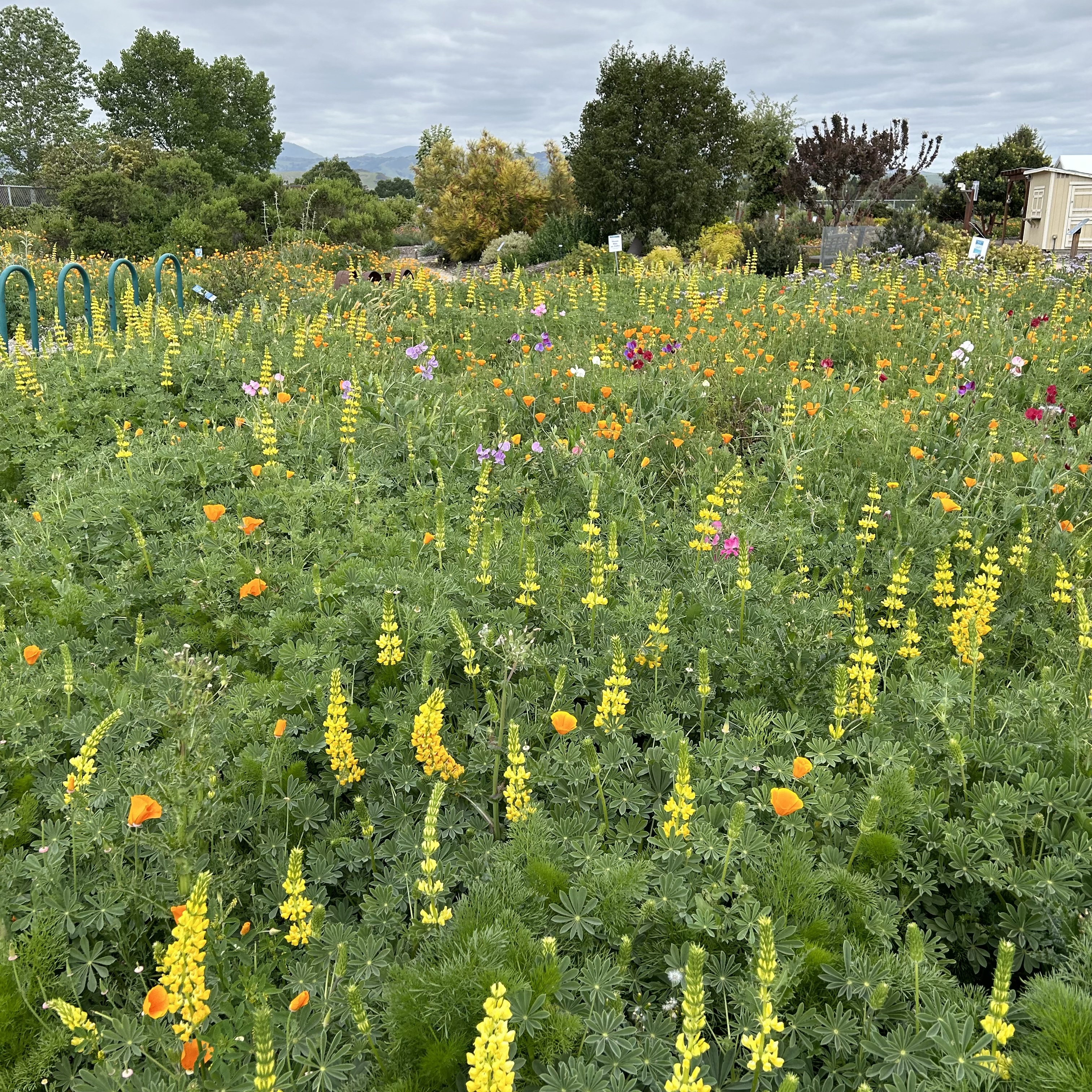
Welcome to UC Master Gardener Program of Santa Clara County Initial Training 2025. This course is offered by UC Cooperative Extension through the Master Gardener Program.
The UC Master Gardener Training is designed to enrich your horticultural knowledge so that you can provide unbiased, science-based information to residents of Santa Clara County. The training will cover topics such as soil and plant nutrition; irrigation; weed, insect, and disease management; fruit and vegetable production; sustainable landscaping; and pesticide use alternatives. We will also have units on the use of scientific sources, principles of adult learning, and community engagement.
By the end of the training, you will 1) have a strong foundation in the fundamentals of gardening, 2) know how to find science-based information to answer gardening questions, 3) have an understanding of how to engage and educate members of the Santa Clara County community, and 4) be familiar with the structure and function of the UC Master Gardener program of Santa Clara County. With these skills and knowledge, you will be equipped to share science-based information on home horticulture, pest management, and sustainable landscape practices with the public through the many organized volunteer activities the UC Master Gardeners of Santa Clara County have to offer.
Each class is taught by a different guest instructor. Instructors include University of California academics, faculty from other local colleges, staff from community organizations, and other Master Gardener volunteers.
- Facilitator: Lucy Diekmann
- Facilitator: Sarah Farley
- Facilitator: Katherine Uhde
- Facilitator: Jenel Vincze
Approximate time to complete: 5 hours
Target audience: plant breeding students and plant breeding professionals
Contact person: Leah Sandall, University of Nebraska-Lincoln lsandall5@unl.edu
- Teacher: Leah Sandall
This course is the Introduction to Entomology, Chapter 3 of your Master Gardener Handbook. This is an introduction to the material we will cover in class on the 5th of May.
- Teacher: Rachel Maccini
- Teacher: Kathy Anderson
- Teacher: Colleen Brady
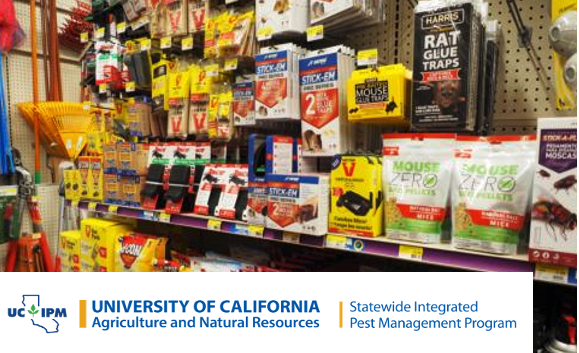

Course overview
This course provides information to retail nursery and garden center personnel and others who advise consumers about the best tools and products for solving pest problems. It gives basic information on pesticide types, selection, and safety.
Who should enroll?
Retail nursery and garden center personnel
This course has not been approved for Continuing Education Units.
- Technical support: UC IPM Online Training Support
- Teacher: Katherine Frels
- Teacher: Luqi Li
- Teacher: UNL AGROHORT Online
The Introduction to Southeastern Prescribed Fire course is designed to introduce students to the fundamental basics of prescribed burning in Southeastern forested ecosystems. At the end of the course the student should have a working knowledge of fire law, fire terminology, fire prescriptions, fire safety, firebreaks, smoke management and a basic understanding of how to conduct a prescribed burn. This course is not intended to take the place of state Certification courses, workshops, or experience in the field. Rather, it is intended to give students a basic understanding of the principles of prescribed fire and fire effects.
- Teacher: Jennifer Fawcett
- Teacher: Dwayne Hunter
- Content Specialists: Elliot Nauert
Genetic principles of inheritance in plants and animals and their significance in biology and agriculture will be discussed in this self-paced Introduction to Genetics course. Topics in the whole Introduction to Genetics series include the physical basis of heredity in families and populations; introduction to chromosome biology; the molecular basis for gene expression; and modern genetic engineering tools used in animal and plant systems.
This course specifically covers the relationships between genes and chromosomes with extension into ploidy numbers, gene mapping, and changes in chromosomes due to translocations and nondysjunction.
- Teacher: Leah Sandall
Genetic principles of inheritance in plants and animals and their significance in biology and agriculture will be discussed in this self-paced Introduction to Genetics course. Topics in the whole Introduction to Genetics series include the physical basis of heredity in families and populations; introduction to chromosome biology; the molecular basis for gene expression; and modern genetic engineering tools used in animal and plant systems.
This course is specifically about family and population genetics. This unit covers inheritance patterns, the difference between quantitative and qualitative traits, and how to work with population and family-based data.
- Teacher: Leah Sandall
This course is specifically on gene expression, DNA analysis techniques, gene cloning, and an introduction to genetic engineering/gene therapy.
- Teacher: Diane Nolan
- Teacher: Leah Sandall
Course Name: New Invasive U.S. Cotton Insects Meeting, September 3rd, 2025
Module 1: Dr. Peter C. Ellsworth, University of Arizona
Course Number: CA# DPR-XXXX-25, 2.0 CEU's (Other), AZDA # XXXXX, 2.0 CEU's, CCA # SS XXXXX, 2.0 CEU's (IPM)
CEU Credits: This course is accredited by the California Department of Pesticide Regulation, Arizona Department of Agriculture and Certified Crop Adviser.Course availability will be through the end of the year and will be removed December 31st 2024.
The course contains video, requiring a computer that can play audio and video.
Contact and technical support: Robert Masson, masson@arizona.edu.
- Teacher: Don Dinwiddie
- Teacher: Robert Masson
Click here to view course: Invasive Species Scout Project
Course overview
A UC Master Gardener specific scouting and reporting project is underway. This course explores what it means to be a scout and how you can express your interest in participating in the project.
Who should enroll?
Active UC Master Gardener volunteers who are interested in participating in the Invasive Species Scout Project.
How to Enroll
To enroll you must have an account or create a free account, once you are logged in you can enroll. Link to sign in page and/or create account: https://campus.extension.org/login/index.php. Once you are logged in you can self enroll, no special code or permission needed.
Having trouble enrolling? Watch this short how-to video,
UC Master Gardeners are eligible for .50 hour of continuing education (CE) for completing this course.
Need Help?
- For assistance with login, course enrollment, contact campushelp@extension.org
- For assistance with progress through the course or certificate, contact mgtraining@ucanr.edu
The California Department of Agriculture and the University of California Master Gardener Program.
Teacher
Lauren Snowden, UC Master Gardener Statewide Training Coordinator
Related Trainings on eXtension Campus
Spotted Lanternfly in California

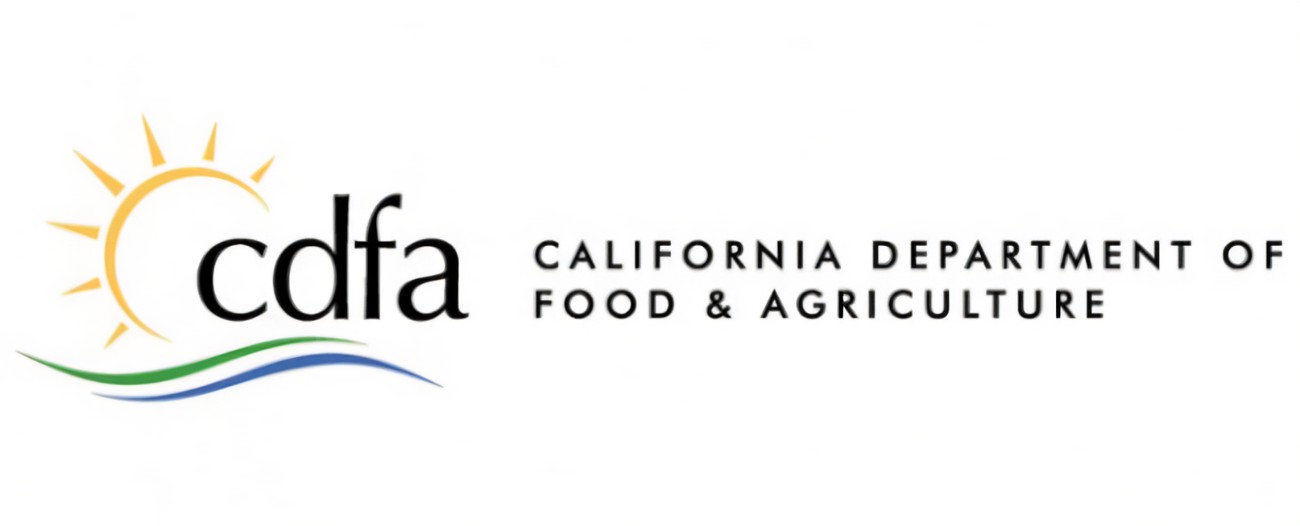
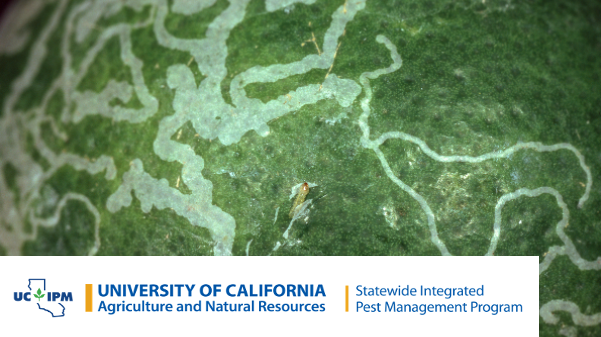

This course covers three key insect and mite pests in citrus: citrus peelminer, Marmara gulosa; forktailed bush katydid, Scudderia furcata; and citrus red mite, Panonychus citri. Each module focuses on one pest and covers life cycle and habits, damage, sampling methods, and management including biological and chemical controls.
Pest management professionals and growers
California Department of Pesticide Regulation (1.0 hour Other) and Certified Crop Adviser (1.0 IPM).
This course must be completed by December 30 of the current year. Download the certificate immediately when you complete the course. You will not be able to retrieve your certificate after December 30.
- Technical support: UC IPM Online Training Support
Course must be completed and certificate downloaded before December 30 of the current year.
To access the free version of this course without a certificate, click on the title below:
Invertebrate Pests in Citrus
- Technical support: UC IPM Online Training Support
This course is an introduction to Integrated Pest Management and the Pesticide Label. Once you have completed this course we will review the content in class on the Thursday May 5th.
- Teacher: Rachel Maccini

Recertification credits are available for this course.
This pesticide recertification course describes the six steps for an Integrated Pest Management program for managing landscape pests. The course covers common pests found in landscapes, nurseries, or greenhouses. Several case studies with specific scenarios and pest management practices are discussed.
This course has been approved by the Idaho State Department of Agriculture (ISDA) - Seminar #2024-635 for 1-ISDA pesticide credit.
If you have questions related to this course, please email: cals-ipm@uidaho.edu at University of Idaho Extension.
- Teacher: cals ipm
Esta capacitación cumple con la necesidad de tener entrenamiento acreditado de seguridad alimentaria según LB 262 (2024), como parte de la Ley de Alimentos Puros de Nebraska. Este curso aborda las leyes específicas de Nebraska y entonces quizás no refleje las leyes de otros estados o países.
Esta capacitación está respaldada por el Departamento de Agricultura de Nebraska, el Departamento de Salud del Condado de Douglas (Nebraska) y el Departamento de Salud de Lincoln y el Condado de Lancaster (Nebraska).
El costo de este curso de $25.
- Teacher: Cindy Brison, MS, RDN
- Teacher: David Diez
- Teacher: Kezia Huseman
- Teacher: Linda Reddish
- Teacher: Angie Rushman
- Teacher: Deborah Weitzenkamp
These classes combined with in-person training will prepare citizens of Lake County to become UC Master Gardeners of Lake County.
- Teacher: Louise Pagone
- Teacher: Louise Pagone
- Teacher: Victoria Smithson
- Teacher: Merry Jo Velasquez
The audience for this Land Application Training Online course is livestock producers and related manure industry in the state of Nebraska who will learn proper manure application techniques, record keeping, and regulations as they relate to manure management in Nebraska.
For more information, contact:
- Leslie Johnson ljohnson13@unl.edu
- Amy Schmidt aschmidt@unl.edu
- Teacher: Leslie Johnson
For more information about the course or how to enroll please contact Leah Sandall, University Nebraska-Lincoln, at lsandall5@unl.edu
- Teacher: Diane Nolan
- Teacher: Leah Sandall
Esta capacitación cumple con la necesidad de tener entrenamiento acreditado de seguridad alimentaria según LB 262 (2024), como parte de la Ley de Alimentos Puros de Nebraska. Este curso aborda las leyes específicas de Nebraska y entonces quizás no refleje las leyes de otros estados o países.
Esta capacitación está respaldada por el Departamento de Agricultura de Nebraska, el Departamento de Salud del Condado de Douglas (Nebraska) y el Departamento de Salud de Lincoln y el Condado de Lancaster (Nebraska).
El costo de este curso de $25.
- Teacher: Cindy Brison, MS, RDN
- Teacher: Kezia Huseman
- Teacher: Linda Reddish
- Teacher: Angie Rushman
- Teacher: Deborah Weitzenkamp

This one hour online webinar prepares educators focuses on what educators can expect using the Look Who's Hatching curriculum and how to use of the program's materials. This workshop is required for all Look Who's Hatching participants to complete before receiving their incubator, eggs, and curriculum.
- Teacher: Learning Child
- Teacher: Linda Reddish
- Instructor: Jaclynn Foged
- Instructor: Katie Krause
- Instructor: Kim Wellsandt
Thank you for logging in to complete this online Expanded Food and Nutrition Education (EFNEP) lesson. You should have received an enrollment key from your class instructor. Enter this enrollment key in order to access and complete this lesson.
- Teacher: Megan Berthiaume
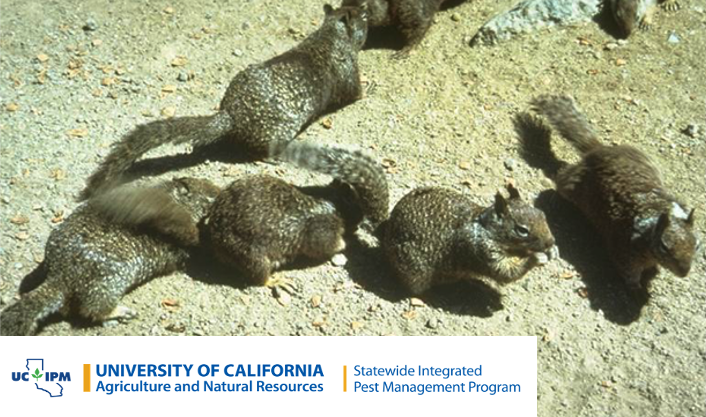

Pest management professionals and growers
- Technical support: UC IPM Online Training Support
Managing Invasive Species in Landscapes is an online course for Master Gardeners looking for further certification or home gardeners.
Students will learn how to identify and manage a variety of invasive species such as spotted wing drosophila, brown marmorated stink bug, Japanese beetles, and downy mildew. Once you have completed this course and received a certificate, you will receive Master Gardener credit.
For information or to enroll please contact:
Mary Meyer, meyer023@umn.edu or
Echo Martin, mart1794@umn.edu with University of Minnesota
- Teacher: Vera Krischik
- Teacher: Mary Meyer


This course covers the description, biology, and ecology of voles, rats, and mice as well as an overview of available nonchemical control options including biocontrol, habitat modification, trapping, and exclusion. Also included are chemical control methods such as baiting and fumigants. In addition, the idea of fertility control is mentioned. The author of the course is Dr. Roger Baldwin, UC Cooperative Extension Specialist: Human-Wildlife Conflict Resolution.
- Technical support: UC IPM Online Training Support
Manure Application Training – Liquid Manure is an online training for manure applicators, especially for those who are new to the industry. Learners will be guided through the seven steps of manure application—Equipment Inspection, Loading Manure, Driving to the Field, Preparing to Spread, Manure Spreading, Visiting Potential Clients' Farms, and Handling Manure Spills.
After the training, learners will know how to apply manure properly, improve manure handling safety, and increase professionalism in the industry. Please note that learners should practice the steps outlined in this training in their daily work in order to master the knowledge and skills for manure application.
For more information or to enroll please contact:
- Kevin Erb, University of Wisconsin-Extension, kevin.erb@ces.uwex.edu
- Charles Gould, Michigan State University-Extension, gouldm@msu.edu
- Mary Keena, North Dakota State University, mary.keena@ndsu.edu
- Melony Wilson, University of Georgia, mlwilson@uga.edu
- Douglas Hamilton, Oklahoma State University, dhamilt@okstate.edu
- Teacher: Kevin Erb
- Teacher: Janice Kepka
Manure Management Strategies provide the participants the opportunity to learn the importance manure management to minimize the environmental impact of the waste. Composting, and other scientifically proven strategies are discussed.The participants will be able to identify the water quality concerns in regards to manure management, recognize the worst and best manure management practices and describe composting practices and benefits. This course offers a badge and is one of several available in the HorseQuest Badge Portfolio. This course includes a video, a learning lesson, and a quiz.
For information contact Kathy Anderson, kanderson1@unl.edu
- Teacher: Kathy Anderson
- Teacher: Colleen Brady
Maple Business Planning
Instructor: Mark Cannella (University of Vermont Extension Associate Professor)
This four session course will guide participants through key aspects of preparing a business plan. Each session will review concepts in strategic planning, analyzing risks, marketing and planning improvements. Students will prepare sections of their own plan over the four week time-frame of the course.
This course runs October 26th - November 16th 2021 (online archive closes 12/31/21)
Contact Mark Cannella via email with any questions: Mark.Cannella@uvm.edu
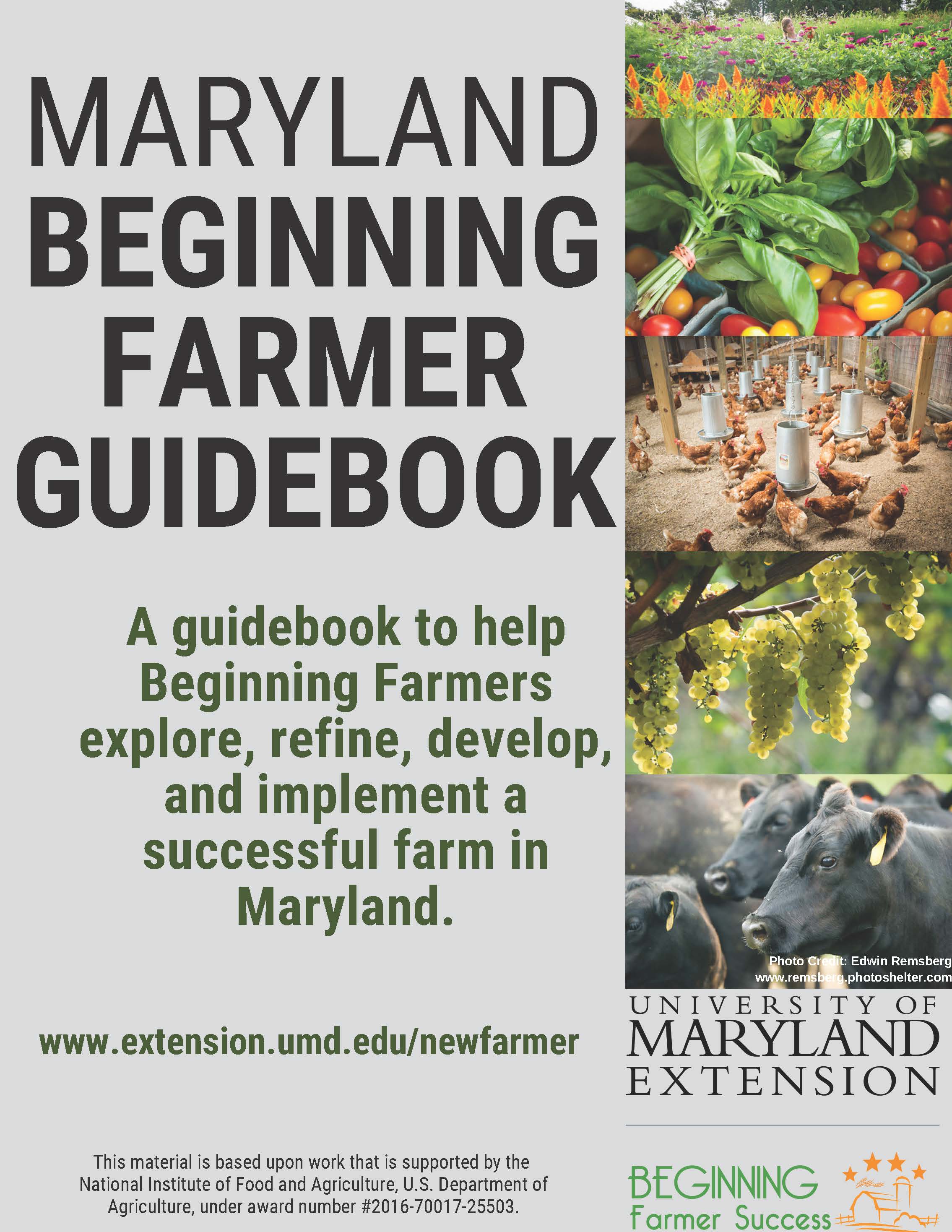
The audience for this course is: Those who would like to farm in the State of Maryland.
By taking this course, students will learn:
- Beginning steps to starting a farm business
- Decisions on what products and/or services to grow and sell
- Creating a marketing plan through market research
- Calculating revenue, expenses and other financial planning
- Understanding laws and regulations
This course is an at-your-own pace, online version of our Beginning Farmer guidebook, with recorded lectures and readings. If you are looking for a live course with additional lectures and assignments, please sign up for our newsletter to be notified when registration opens for our annual Maryland Beginning Farmer Success course: https://extension.umd.
For more information or specific questions please contact: Neith Little, UMD nglittle@umd.edu; Shannon Dill, UMD. sdill@umd.edu
Website available - https://extension.umd.edu/newfarmer
Equal opportunity and accomodation:
University programs, activities, and facilities are available to all without regard to race, color, sex, gender identity or expression, sexual orientation, marital status, age, national origin, political affiliation, physical or mental disability, religion, protected veteran status, genetic information, personal appearance, or any other legally protected class.
If you need a reasonable accommodation to participate in any event or activity, please contact Neith Little by phone at 410-856-1850 x 123 or by email at nglittle@umd.edu on or before January 15.
Los programas, actividades e instalaciones de la universidad están disponibles para todos sin distinción de raza, color, sexo, identidad o expresión de género, orientación sexual, estado civil, edad, origen nacional, afiliación política, discapacidad física o mental, religión, estado de veterano protegido, información genética, apariencia personal o cualquier otra clase legalmente protegida.
Si necesita adaptaciones razonables para participar en cualquier evento o actividad, comuníquese con Neith Little a número teléfono 410-856-1850 x123 o al correo electrónico nglittle@umd.edu antes el quince de enero.
Les programmes, activités et installations universitaires sont accessibles à tous sans distinction de race, couleur, sexe, identité ou expression de genre, orientation sexuelle, état civil, âge, origine nationale, appartenance politique, handicap physique ou mental, religion, statut de vétéran protégé, informations génétiques, apparence personnelle ou toute autre classe légalement protégée.
Si vous avez besoin d'une commodité raisonnable pour participer à un événement ou activité, contactez-vous avec le bureau d'extension de l'Université du Maryland. 410-856-1850 nglittle@umd.edu
所有人均可使用大學課程、活動和設施,而不必考慮種族、膚色、性別、性別認同或表達方式、性取向、婚姻狀況、年齡、國籍、政治背景、身體或精神殘疾、宗教信仰、受保護退伍軍人身份、遺傳信息、個人外貌或任何其他受法律保護的階層。
如果您需要合理的住宿條件來參加任何活動,請聯絡您當地的馬里蘭大學推廣辦公室。410-856-1850
대학 프로그램, 행사_및 시설은 인종, 피부색, 성별,성 정체성 또는 표현, 성적 지향, 결혼 여부, 나이, 출신 국가, 정치적 소속, 신체적 또는 정신적 장애, 종교, 보호재향 _군인, 정보, 외모 또는 법적으로 보호를 받고 있는_기타 계층에 관계없이 누구나 이용하실 수 있습니다.
행사 활동에 참여하기 위해 적절한 숙박 시설이 _필요하시다면 해당 지역의 메릴랜드 대학교 확장 사무소에 문의해 주시기 바랍니다. 410-856-1850 nglittle@umd.edu
Программы, деятельность, и объекты материально-технической базы Университета доступны всем желающим, независимо от их расовой принадлежностирасы, цвета кожи, пола, гендерной идентичности или гендерного самовыражения, сексуальной ориентации, семейного положения, возраста, национальностип, политической принадлежности, физических или умственных ограничений, религиозных взглядов, наличия недостатков, религии, статуса защищенногозаконом статуса ветерана вооруженных сил, генетической информации, внешних особенностей, а также другим категориям населения, права которых охраняются законом.
Если для участия в определенном мероприятии Вам необходимо, чтобы обеспечивалось разумное приспособление, учитывающее Ваши индивидуальные потребности, пожалуйста, свяжитесь с Вашим местным офисом-представительством Университета Мэриленда. 410-856-1850 nglittle@umd.edu- Teacher: Shannon Dill
- Teacher: Neith Little
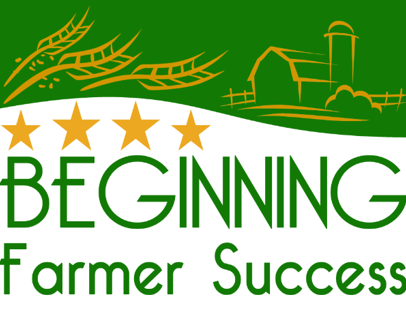
This class series is designed for people who are considering or in the beginning stages of starting a farm as a business.
The Maryland Beginning Farmer Success Course is a ten-week introduction to the foundational topics an aspiring farmer in Maryland should know. Topics covered will include business planning, marketing, crop production, livestock husbandry, soil health, pest management, food safety, and regulations and certifications. Additional elective resources will cover more specialized topics, such as organic production, urban agriculture, and direct marketing to local customers.
The course is offered every winter, from February through April. It meets once a week for 10 weeks. You can attend entirely online, or there are two optional in person classes held simultaneously in several locations in central Maryland, depending on how many people RSVP from each county. There will also be readings/homework each week here on Extension Campus.
If you have any questions, please contact Neith Little at nglittle@umd.edu
Equal opportunity and accomodation:
University programs, activities, and facilities are available to all without regard to race, color, sex, gender identity or expression, sexual orientation, marital status, age, national origin, political affiliation, physical or mental disability, religion, protected veteran status, genetic information, personal appearance, or any other legally protected class.
If you need a reasonable accommodation to participate in any event or activity, please contact Andrea Franchini by phone at 301-226-7416 or by email at andrea1@umd.edu on or before January 8 .
Los programas, actividades e instalaciones de la universidad están disponibles para todos sin distinción de raza, color, sexo, identidad o expresión de género, orientación sexual, estado civil, edad, origen nacional, afiliación política, discapacidad física o mental, religión, estado de veterano protegido, información genética, apariencia personal o cualquier otra clase legalmente protegida.
Si necesita adaptaciones razonables para participar en cualquier evento o actividad, comuníquese con Neith Little a número teléfono 410-856-1850 x123 o al correo electrónico nglittle@umd.edu antes el quince de enero.
Les programmes, activités et installations universitaires sont accessibles à tous sans distinction de race, couleur, sexe, identité ou expression de genre, orientation sexuelle, état civil, âge, origine nationale, appartenance politique, handicap physique ou mental, religion, statut de vétéran protégé, informations génétiques, apparence personnelle ou toute autre classe légalement protégée.
Si vous avez besoin d'une commodité raisonnable pour participer à un événement ou activité, contactez-vous avec le bureau d'extension de l'Université du Maryland. 410-856-1850 nglittle@umd.edu
所有人均可使用大學課程、活動和設施,而不必考慮種族、膚色、性別、性別認同或表達方式、性取向、婚姻狀況、年齡、國籍、政治背景、身體或精神殘疾、宗教信仰、受保護退伍軍人身份、遺傳信息、個人外貌或任何其他受法律保護的階層。
如果您需要合理的住宿條件來參加任何活動,請聯絡您當地的馬里蘭大學推廣辦公室。410-856-1850
대학 프로그램, 행사_및 시설은 인종, 피부색, 성별,성 정체성 또는 표현, 성적 지향, 결혼 여부, 나이, 출신 국가, 정치적 소속, 신체적 또는 정신적 장애, 종교, 보호재향 _군인, 정보, 외모 또는 법적으로 보호를 받고 있는_기타 계층에 관계없이 누구나 이용하실 수 있습니다.
행사 활동에 참여하기 위해 적절한 숙박 시설이 _필요하시다면 해당 지역의 메릴랜드 대학교 확장 사무소에 문의해 주시기 바랍니다. 410-856-1850 nglittle@umd.edu
Программы, деятельность, и объекты материально-технической базы Университета доступны всем желающим, независимо от их расовой принадлежностирасы, цвета кожи, пола, гендерной идентичности или гендерного самовыражения, сексуальной ориентации, семейного положения, возраста, национальностип, политической принадлежности, физических или умственных ограничений, религиозных взглядов, наличия недостатков, религии, статуса защищенногозаконом статуса ветерана вооруженных сил, генетической информации, внешних особенностей, а также другим категориям населения, права которых охраняются законом.
Если для участия в определенном мероприятии Вам необходимо, чтобы обеспечивалось разумное приспособление, учитывающее Ваши индивидуальные потребности, пожалуйста, свяжитесь с Вашим местным офисом-представительством Университета Мэриленда. 410-856-1850 nglittle@umd.edu- Teacher: Andrea Franchini
- Teacher: Sarah Hirsh
- Teacher: Dwayne Joseph
- Teacher: Neith Little
- Teacher: Kelly Nichols
- Teacher: Haley Sater
- Teacher: Hayden Schug
- Instructor: Erika Crowl
- Instructor: Andrew Kness
- Instructor: Emily Zobel
Veterans Agricultural Education and Apprenticeship Program in the Southwest
Course Name: Maximizing the fundamentals of IPM, an organic approach to IPM
Presented by: Macey Keith, AZ-PCA, CA-QAL
Course Overview:
Macey Keith, AZ PCA, CA QAL and a Desert Southwest sales representative for San-Agrow. Macey will help us understand the differences between traditional IPM vs organic IPM. She will also identify each management strategy in the IPM triangle as well as define what a fertilizer is and their importance in organic IPM. Macey will show us real life examples of organic IPM control measures and how they apply to crops in the desert southwest.
The course contains video so it requires a computer that can play audio and video.
Contact and technical support: Robert Masson, masson@arizona.edu.
- Teacher: Don Dinwiddie
- Teacher: Robert Masson
The Military Families Learning Network Early Intervention team offers the course Childhood Trauma: Understanding, Supporting, and Preventing. The course allows students to proceed at your own pace. It includes audio and audio, so the student must have a computer with those capabilities along with the capability to play flash files and open PDF files.
This material is based on work supported by the National Institute of Food and Agriculture, U.S. Department of Agriculture, and the Office of Military Family Readiness Policy, U.S. Department of Defense Award Number 2015-48770-24368.
For information contact Robyn DiPietro-Wells: rrwells@illinois.edu
Instructional designer: Jen Chilek
- Teacher: OneOp Early Intervention
Mitigating Pollinator Decline in Landscapes is an online course for Master Gardeners looking for further certification or home gardeners. Students will learn the basics on different kinds of bees, why they are in decline, and how homeowners can work to conserve them in the landscape. Once you have completed this course and received a certificate, you will receive Master Gardener credit.
For information or to enroll please contact:
Mary Meyer, meyer023@umn.edu or
Echo Martin, mart1794@umn.edu with University of Minnesota
- Teacher: Vera Krischik
Mortality Composting is a self-directed, fee based course for Ohio farmers. Participants will become certified to practice mortality composting on their farm from taking this course. This course must be completed by an Ohioan who plans to use composting to dispose of livestock mortality. The course is broken down by chapters following the Composting Manual which you can download below. Each chapter is presented via PowerPoint with voice-over. You are free to move at your own pace and will become certified once you have passed the final test.
Course fee: $17. To purchase and enroll in this course, please click here.
For information, contact Amanda Douridas, The Ohio State University, at douridas.9@osu.edu
- Teacher: Amanda Douridas
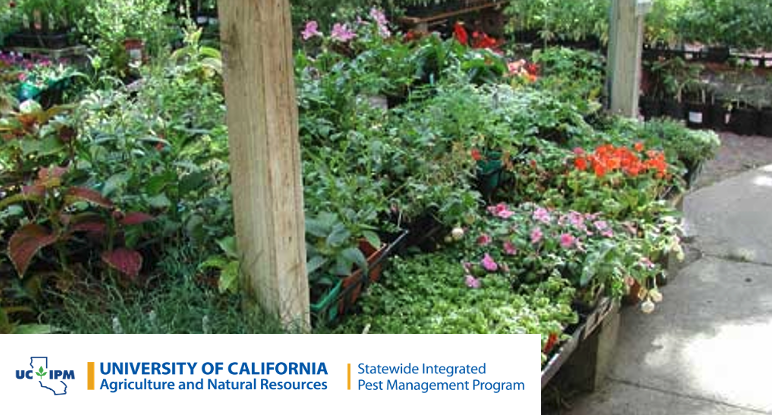

Course overview
This course provides information to retail nursery and garden center personnel and others who advise consumers about the best tools and products for solving pest problems. It gives a basic introduction to the principles of Integrated Pest Management, including information about pest identification, changing conditions that favor pests, and combining various least-toxic methods for the best long-term management of pests.
Who should enroll?
Retail nursery and garden center personnel
This course has not been approved for Continuing Education Units.
- Technical support: UC IPM Online Training Support
This online course is the National Worker Protection Standard: Web-Based Training for Trainers of Agricultural Workers and Pesticide Handlers. The course was developed by the Pesticide Educational Resources Collaborative (PERC) through a cooperative agreement (agreement #X8-83616301) between the U.S. Environmental Protection Agency’s (EPA) Office of Pesticide Programs and the University of California Davis Continuing and Professional Education, in collaboration with Oregon State University. Approval number EPA WPS TTT W/H 00030-0725.
This course provides the information required to train those who will train agricultural workers and pesticide handlers under the U.S. EPA Worker Protection Standard (WPS). It will guide you through the necessary procedures to provide agricultural workers and pesticide handlers with required information on how to avoid exposure to pesticides and pesticide residue.
Completion of this course certifies you as a qualified WPS trainer of agricultural workers and pesticide handlers in the continental U.S., Alaska, Hawaii, Puerto Rico, Guam, and the U.S. Virgin Islands. Some states require state-specific training and this course alone would not qualify. Before enrolling, you must check with your state or tribal pesticide regulatory agency to verify possible additional requirements. Note: this course will NOT satisfy the train the trainer requirements in California for the California Department of Pesticide Regulation. It will NOT satisfy the train the trainer requirements in Arizona for the Arizona Department if Agriculture. You must contact them directly to get a list of courses that will.
Each year, a new offering of the current course will be posted. This will allow students to retake the course as needed by employers and regulatory agencies. Previous year’s offering will be available on the student’s profile should they need to access to an older certificate. Note that the content will be identical each year, unless otherwise noted that there was a course revision.System Requirements
Computer: Strongly recommended: Mac OSX 10.9 or higher or a PC running Windows 7 or higher.
Browser: Strongly recommended: Google Chrome or Mozilla Firefox. Strongly discouraged: Browsers other than those listed above. Others may work but have experienced performance issues in testing (e.g., Internet Explorer, Microsoft Edge, etc.) eXtension is not able to respond to troubleshooting inquiries if customers are using a non-recommended browser.
Audio: This course contains audio narration. To hear the narration, your computer will either need audio speakers built-in or attached. You can also listen to the audio via headphones.
For questions about the course content, contact PERCsupport@ucdavis.edu.
For questions about technical support (e.g., enrolling, payments, etc.) contact cataloghelp@extension.org.
To enroll, see below.Course Completion Checklist
- Complete the modules in order (12)
- Complete the Knowledge Checks for each module (12)
- Take the Final Exam (must score 70% to pass)
- Complete the evaluation
- Download certificate
- Submit your certificate. You are responsible for identifying and submitting your certificate to appropriate entities.
The enrollment fee for this course is $75. To purchase and enroll in this course, click here:
No Refund Policy – Unless the course is not accessible using one the required operating system(s) or browser(s), then PERC will not issue a refund. If you have any questions about our No Refund Policy, please contact us at percsupport@ucdavis.edu.
- Teacher: Suzanne Forsyth
- Teacher: Christian Gella
- Teacher: Hannah Moore
This course is no longer accepting enrollments.
This online course is the National Worker Protection Standard: Web-Based Training for Trainers of Agricultural Workers and Pesticide Handlers. The course was developed by the Pesticide Educational Resources Collaborative (PERC) through a cooperative agreement (agreement #X8-83616301) between the U.S. Environmental Protection Agency’s (EPA) Office of Pesticide Programs and the University of California Davis Continuing and Professional Education, in collaboration with Oregon State University. Approval number EPA WPS TTT W/H 00030.
This course provides the information required to train those who will train agricultural workers and pesticide handlers under the U.S. EPA Worker Protection Standard (WPS). It will guide you through the necessary procedures to provide agricultural workers and pesticide handlers with required information on how to avoid exposure to pesticides and pesticide residue.
Completion of this course certifies you as a qualified WPS trainer of agricultural workers and pesticide handlers in the continental U.S., Alaska, Hawaii, Puerto Rico, Guam, and the U.S. Virgin Islands. Some states require state-specific training and this course alone would not qualify. Before enrolling, you must check with your state or tribal pesticide regulatory agency to verify possible additional requirements. Note: this course will not satisfy the train the trainer requirements in California for the California Department of Pesticide Regulation. You must contact them directly to get a list of courses that will.
Each year, a new offering of the current course will be posted. This will allow students to retake the course as needed by employers and regulatory agencies. Previous year’s offering will be available on the student’s profile should they need to access to an older certificate. Note that the content will be identical each year, unless otherwise noted that there was a course revision.
System Requirements
Computer: Strongly recommended: Mac OSX 10.9 or higher or a PC running Windows 7 or higher.
Browser: Strongly recommended: Google Chrome or Mozilla Firefox. Strongly discouraged: Browsers other than those listed above. Others may work but have experienced performance issues in testing (e.g., Internet Explorer, Microsoft Edge, etc.) eXtension is not able to respond to troubleshooting inquiries if customers are using a non-recommended browser.
Audio: This course contains audio narration. To hear the narration, your computer will either need audio speakers built-in or attached. You can also listen to the audio via headphones.
For questions about the course content, contact PERCsupport@ucdavis.edu.
For questions about technical support (e.g., enrolling, payments, etc.) contact cataloghelp@extension.org.
To enroll, see below.Course Completion Checklist
- Complete the modules in order (12)
- Complete the Knowledge Checks for each module (12)
- Take the Final Exam (must
score 70% to pass)
- Complete the evaluation
- Download certificate
- Submit your certificate. You
are responsible for identifying and submitting your certificate to appropriate
entities.
The enrollment fee for this course is $35. To purchase and enroll in this course, click here:
No Refund Policy – Unless the course is not accessible using one the required operating system(s) or browser(s), then PERC will not issue a refund. If you have any questions about our No Refund Policy, please contact us at percsupport@ucdavis.edu.
- Teacher: Suzanne Forsyth
- Teacher: Hannah Moore
This course is no longer accepting new registrations.
This online course is the National Worker Protection Standard: Web-Based Training for Trainers of Agricultural Workers and Pesticide Handlers. The course was developed by the Pesticide Educational Resources Collaborative (PERC) through a cooperative agreement (agreement #X8-83616301) between the U.S. Environmental Protection Agency’s (EPA) Office of Pesticide Programs and the University of California Davis Continuing and Professional Education, in collaboration with Oregon State University. Approval number EPA WPS TTT W/H 00030.
This course provides the information required to train those who will train agricultural workers and pesticide handlers under the U.S. EPA Worker Protection Standard (WPS). It will guide you through the necessary procedures to provide agricultural workers and pesticide handlers with required information on how to avoid exposure to pesticides and pesticide residue.
Completion of this course certifies you as a qualified WPS trainer of agricultural workers and pesticide handlers in the continental U.S., Alaska, Hawaii, Puerto Rico, Guam, and the U.S. Virgin Islands. Some states require state-specific training and this course alone would not qualify. Before enrolling, you must check with your state or tribal pesticide regulatory agency to verify possible additional requirements. Note: this course will not satisfy the train the trainer requirements in California for the California Department of Pesticide Regulation. You must contact them directly to get a list of courses that will.
Each year, a new offering of the current course will be posted. This will allow students to retake the course as needed by employers and regulatory agencies. Previous year’s offering will be available on the student’s profile should they need to access to an older certificate. Note that the content will be identical each year, unless otherwise noted that there was a course revision.
System Requirements
Computer: Strongly recommended: Mac OSX 10.9 or higher or a PC running Windows 7 or higher.
Browser: Strongly recommended: Google Chrome or Mozilla Firefox. Strongly discouraged: Browsers other than those listed above. Others may work but have experienced performance issues in testing (e.g., Internet Explorer, Microsoft Edge, etc.) eXtension is not able to respond to troubleshooting inquiries if customers are using a non-recommended browser.
Audio: This course contains audio narration. To hear the narration, your computer will either need audio speakers built-in or attached. You can also listen to the audio via headphones.
For questions about the course content, contact PERCsupport@ucdavis.edu.
For questions about technical support (e.g., enrolling, payments, etc.) contact cataloghelp@extension.org.
To enroll, see below.Course Completion Checklist
- Complete the modules in order (12)
- Complete the Knowledge Checks for each module (12)
- Take the Final Exam (must
score 70% to pass)
- Complete the evaluation
- Download certificate
- Submit your certificate. You
are responsible for identifying and submitting your certificate to appropriate
entities.
No Refund Policy – Unless the course is not accessible using one the required operating system(s) or browser(s), then PERC will not issue a refund. If you have any questions about our No Refund Policy, please contact us at percsupport@ucdavis.edu.
- Teacher: Suzanne Forsyth
- Teacher: Hannah Moore

- 1sttime attendees
- Anyone involved in an NPDES-Permitted NODT construction project
- Contractors involved in any aspect of the installation of erosion and sediment control Best Management Practices on NDOT Construction projects.
- Basic understanding of NDOT policies and State regulations for stormwater management on construction sites.
- Knowledge of the process of soil erosion.
- An understanding of basic drainage, topography, climate, and other factors that influence soil erosion potential on construction sites.
- An understanding of the practical installation of erosion & sediment control Best Management Practices, following NDOT Standard Specifications, Special Provisions and Standard Plans.
- This online Installer Certification course includes a series of presentations and quizzes that an applicant must successfully complete in order to print off their re-certification certificate. You can self-enroll, and there is no cost. You will need to create an account with a valid email address. Course Link:
- The Installer Certification Course contains Four (4) modules. At the end of each module, you will go through a five-question quiz with questions pertaining specifically to the module. You must get all five questions correct before you can move on to the next course module.
- Course materials will accompany the different modules as needed for reference.
- Upon completion, this Installer Certification is good for 5 years.
- This Course is a prerequisite for the NDOR Erosion & Sediment Control Inspector Certification
- To be a Certified Inspector, you must complete the NDOR Erosion & Sediment Control Inspector Certification course.
- Teacher: Megan Patent-Nygren
This certification is required to all personnel who are monitoring the maturity meter for accepting testing. The maturity method is a simple technique for predicting concrete strength in lieu of conventional cylinders. Certification is required of all individuals utilizing the maturity method. Individuals certified for NDOT Maturity Method Field Monitoring will know the basic use and terminologies associated with the maturity method. They will have the knowledge and tools available to them for the installation of wires, monitoring concrete placement temperatures, calculating the Time-Temperature-Factor and documentation of data.
Certification Duration: 5 Years
Individuals that have already taken the “NDOT Maturity Method Field Monitoring” certification training do not need to take the web based course. Check RUG or SiteManager to if you’ve already received the “Maturity Method Field Monitoring” certification.
If you have questions about tracking this certification, please contact Site Manager Materials Staff at Dor.sitemanagermaterials@nebraska.gov, or 402-479-4760.
For information or to enroll contact Megan Patent-Nygren, University of Nebraska LTAP at mpatentnygren2@unl.edu
- Teacher: Megan Patent-Nygren
This course in pavement design is offered by the Nebraska Department of Transportation Material & Research Division for engineers that are involved in designing pavements in Nebraska for state and federal aid projects at all levels. Public and private pavement design engineers who work on federal aid projects will find this course helpful. While it is an optional, non-certification course, it will meet the NDOT's pavement design experience requirement.
Project deliverables are:
- Typical Sheets for Project Plan Packages
- Pavement Determination Data Sheets
- Pavement Design Analysis (AASHTO Method will be covered)
- Strategy Types and Selection
For more information or to enroll contact Megan Patent-Nygren, University of Nebraska LTAP at mpatentnygren2@unl.edu.
- Teacher: Megan Patent-Nygren
This Erosion and Sediment Control Inspector Recertification course seeks to maintain the expertise of "Qualified Personnel" for construction site inspections. Qualified Personnel are those that have completed the live NDOT-LTAP Erosion and Sediment Control Inspector Certification training course within the past five (5) years.
IMPORTANT: This course is available only for those that have previously obtained NDOT Erosion Control Inspector Certification. If you have not attended a live NDOT Erosion Control Inspector Certification Course, and have not been issued a 4-digit certification number, you are not approved to enroll in this course. If you proceed with enrolling in this on-line RECERTIFICATION without previous certification from NDOT and NE LTAP, then you will not be issued certification and will need to attend a live course offering.
For information or to enroll contact Megan Patent-Nygren, University of Nebraska LTAP at mpatentnygren2@unl.edu
- Teacher: Megan Patent-Nygren
Join Esther for lectures and case studies on Thursdays, 10 AM - noon (central), or watch later at your convenience.
June 1, 15, 22
July 6, 13, 20
August 10, 17, 31
September 14
- Teacher: Esther McGinnis
- Teacher: Esther McGinnis
- Teacher: Shannon Ueker
a. Protocol and safety measures for utilizing the Nitrate QuikTest
b. Conditions leading to nitrate accumulation and forage management strategies to reduce risks
c. Nitrate toxicity in livestock and general feeding management/recommendations
d. Proper sampling and interpretation of laboratory analysis for nitrate content of feedstuffs
- Teacher: Janna Block

The wellbeing of early childhood educators is increasingly recognized as being importantly connected to high quality education and care. This program is built upon the framework of the 8 Dimensions of Wellness, a holistic approach to well-being that recognizes the interconnectedness of various aspects of our lives.
As a result of this training participants will:
Understanding the Physical Dimension of Wellness: Participants will explain the physical dimension of wellness and its importance for young children and early childhood educators.
Applying Wellness Principles in Early Childhood Settings: Participants will utilize practical strategies to enhance wellness in early childhood settings, including fostering emotional intelligence, physical activity, and mindfulness.
Supporting Holistic Development: Participants will integrate physical wellness activities into routines to support the overall development of young children.
Child Development Subject Area
1. Professionalism: Maintaining a commitment to professionalism
Nebraska Early Childhood Core Competencies
1. Professionalism and Leadership: Professional – Level 3
- For Email Help: Linda Reddish
- Instructor: Jaclynn Foged
- Instructor: Julie Jones-Branch

The wellbeing of early childhood educators is increasingly recognized as being importantly connected to high quality education and care. This program is built upon the framework of the 8 Dimensions of Wellness, a holistic approach to well-being that recognizes the interconnectedness of various aspects of our lives. These dimensions are:
As a result of this training participants will:
Understand how practices in the 8-dimensions of wellness support well-being and stress management.
Describe how well being relates to more responsive caregiving and teaching for early childhood professionals.
Participants will identify and describe the eight dimensions of wellness (emotional, environmental, financial, intellectual, social, spiritual, physical, and occupational) and understand how each dimension contributes to the overall well-being of young children and early childhood educators.
Child Development Subject Area
1. Professionalism: Maintaining a commitment to professionalism
Nebraska Early Childhood Core Competencies
1. Professionalism and Leadership: Professional – Level 3
- For Email Help: Linda Reddish
- Instructor: Jaclynn Foged
- Instructor: Julie Jones-Branch

The wellbeing of early childhood educators is increasingly recognized as being importantly connected to high quality education and care. This program is built upon the framework of the 8 Dimensions of Wellness, a holistic approach to well-being that recognizes the interconnectedness of various aspects of our lives. These dimensions are:
As a result of this training participants will:
Understand how practices in the 8-dimensions of wellness support well-being and stress management.
Describe how well being relates to more responsive caregiving and teaching for early childhood professionals.
Participants will identify and describe the eight dimensions of wellness (emotional, environmental, financial, intellectual, social, spiritual, physical, and occupational) and understand how each dimension contributes to the overall well-being of young children and early childhood educators.
Child Development Subject Area
1. Professionalism: Maintaining a commitment to professionalism
Nebraska Early Childhood Core Competencies
1. Professionalism and Leadership: Professional – Level 3
- For Email Help: Linda Reddish
- Instructor: Julie Jones-Branch

The wellbeing of early childhood educators is increasingly recognized as being importantly connected to high quality education and care. This program is built upon the framework of the 8 Dimensions of Wellness, a holistic approach to well-being that recognizes the interconnectedness of various aspects of our lives. These dimensions are:
As a result of this training participants will:
Understand how practices in the 8-dimensions of wellness support well-being and stress management.
Describe how well being relates to more responsive caregiving and teaching for early childhood professionals.
Participants will identify and describe the eight dimensions of wellness (emotional, environmental, financial, intellectual, social, spiritual, physical, and occupational) and understand how each dimension contributes to the overall well-being of young children and early childhood educators.
Child Development Subject Area
1. Professionalism: Maintaining a commitment to professionalism
Nebraska Early Childhood Core Competencies
1. Professionalism and Leadership: Professional – Level 3
- For Email Help: Linda Reddish
- Instructor: Julie Jones-Branch

The wellbeing of early childhood educators is increasingly recognized as being importantly connected to high quality education and care. This program is built upon the framework of the 8 Dimensions of Wellness, a holistic approach to well-being that recognizes the interconnectedness of various aspects of our lives. These dimensions are:
As a result of this training participants will:
Understand how practices in the 8-dimensions of wellness support well-being and stress management.
Describe how well being relates to more responsive caregiving and teaching for early childhood professionals.
Participants will identify and describe the eight dimensions of wellness (emotional, environmental, financial, intellectual, social, spiritual, physical, and occupational) and understand how each dimension contributes to the overall well-being of young children and early childhood educators.
Child Development Subject Area
1. Professionalism: Maintaining a commitment to professionalism
Nebraska Early Childhood Core Competencies
1. Professionalism and Leadership: Professional – Level 3
- Teacher: Linda Reddish
- Teacher: Linda Reddish
- Instructor: Jaclynn Foged
- Instructor: Julie Jones-Branch
- Instructor: Kim Wellsandt

The wellbeing of early childhood educators is increasingly recognized as being importantly connected to high quality education and care.
Brief description of training: The wellbeing of early childhood educators is increasingly recognized as being importantly connected to high quality education and care. This program offers strategies for maintaining health, personal well-being, developing healthy self-regulation, and connecting the early childhood workforce to valuable community resources.
As a result of this training participants will:
Understanding the Spiritual Dimension of Wellness: Participants will identify and describe the spiritual dimension of wellness and understand how this dimension contributes to the overall well-being of young children and early childhood educators.
Applying Wellness Principles in Early Childhood Settings: Participants will explore practical strategies for promoting wellness in early childhood environments, including creating a supportive atmosphere, fostering emotional intelligence, encouraging physical activity, and integrating mindful practices to support both child and educator well-being.
Supporting Holistic Development: Participants will learn how to implement activities and routines that address the spiritual dimension of wellness in a way that supports the social, emotional, cognitive, and physical development of young children, fostering an environment where children can thrive in all aspects of their lives.
Child Development Subject Area:
Maintaining a commitment to professionalism
Nebraska Core Competencies:
Professionalism and Leadership: Professional Work Habits– Level 3
- For Email Help: Linda Reddish
- Instructor: Julie Jones-Branch
Beef Cow
Basics-Plus is a 12 module course that provides cutting edge information on nutrition, forages, supplements, and
economics. A short quiz at the
end of each lesson for self-assessment assures that concepts are
understood.Once all of the quizzes are completed, a certificate of completion can be printed. Modules include: Goals for the Cow/Calf Producer, Basic Considerations for Cow Nutrition, Metabolizable Protein System, Minerals and Vitamins for Beef Cows, Replacement Heifer Nutrition, Basic Ration Formulation, Forage Analysis and Inventory, Perennial Forage Production, Annual Forage Crops, Alfalfa Production: Opportunities for Improvement, Livestock Grazing Management on Range and Pasture, and Feed Ration Economics. It is important that you, as a beef producer, have confidence, competence, and direction to be a successful livestock producer. Beef Cow Basics-Plus will help capitalize on your own unique resources and skills. It provides the basics for anyone interested in beef cow production including high school students, homeschool students, older 4-H and FFA members, community college students, and university students.
This course has been approved for 12 American Registry of Professional Animal Scientists (ARPAS) Continuing Education Units (CEU’s). For more information contact Troy Walz, Nebraska Extension Educator, at troy.walz@unl.edu
To purchase and enroll, click the appropriate link below:
- Teacher: Steve Pritchard
- Teacher: Troy Walz
- Content Specialists: Mary Jarvi
This course is about Using Chemigation Safely and Effectively, covering factors affecting chemigation practice, irrigation systems, chemigation equipment and safety devices and practices. It also will address calibration procedures, management, and laws and regulations affecting chemigation. For more information or to enroll please contact Julie Jacobs, University of Nebraska, at jjacobs7@unl.edu
- Teacher: Frank Bright
- Teacher: Julie Jacobs
- Teacher: Jennifer Weisbrod

Co-Parenting for Successful Kids is an unbiased, research-based education class designed to help separating and divorcing parents cope with divorce and custody. Parents learn to answer children’s questions and keep their children safe and out of their conflict. Co-Parenting for Successful Kids strengthens communication skills to improve interactions with children and the other parent. The goal of Co-Parenting for Successful Kids is to develop respectful, responsive, and responsible Co-Parents.
For information contact: parenting@unl.edu or Toll free (855) 308-8037 (If no one answers leave a message and we will call you back). Also, you may try 402-873-3166.
- For Email Help: : parenting@unl.edu
- Instructor: Jeanette Friesen
- Instructor: Kezia Huseman
- Instructor: Becky Hutchings
- Instructor: Erin Kampbell
- Instructor: Ingrid Lindal
- Instructor: Lisa Poppe
- Instructor: Linda Reddish
- Instructor: Kim Wellsandt
- Instructor: Tasha Wulf
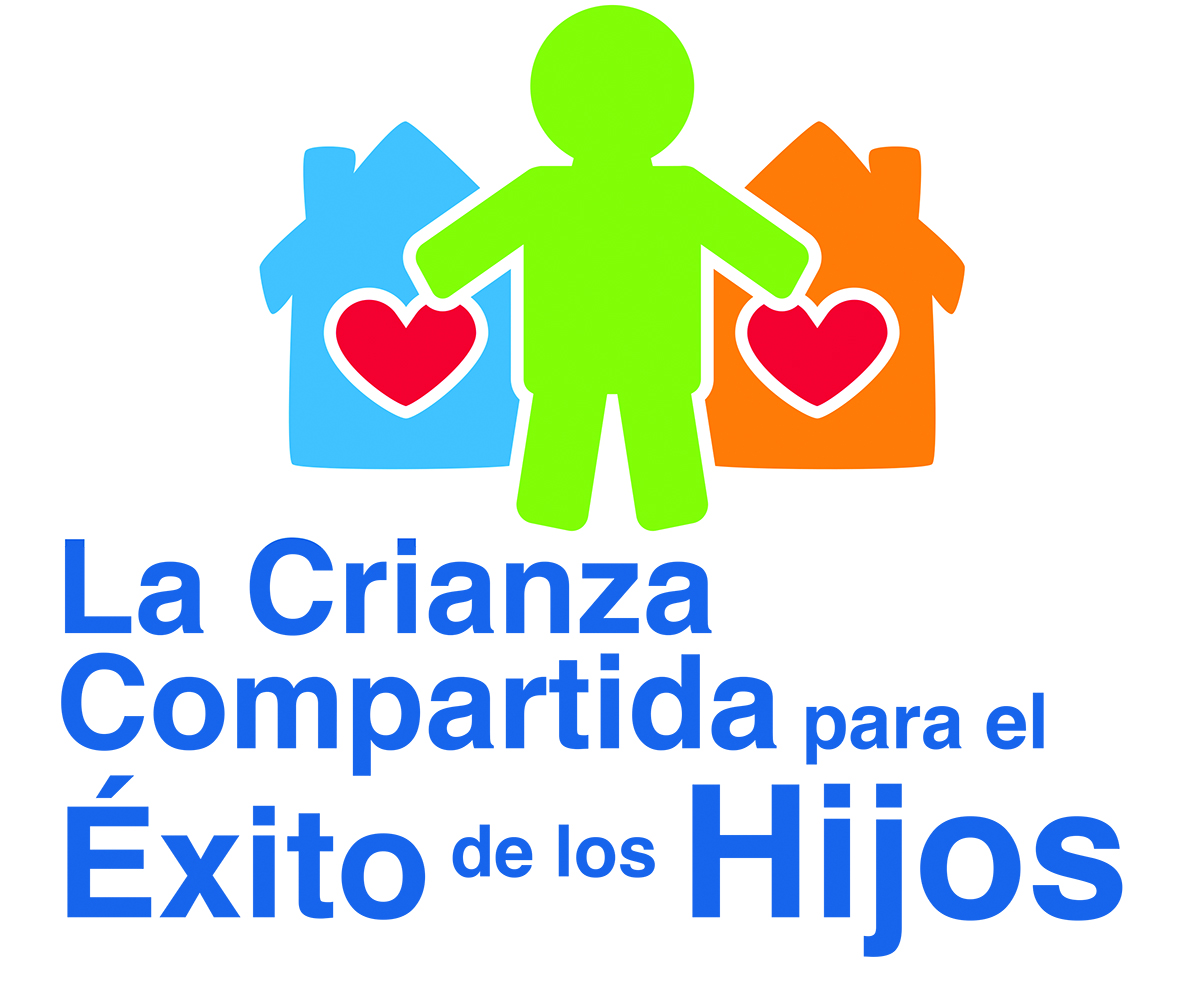
La Crianza Compartida para el Éxito de los Hijos, es una clase educativa imparcial, basada en la investigación, diseñada para ayudar a los padres que se están separando o divorciando, a lidiar con el divorcio y la custodia. Los padres aprenden a responder a las preguntas de los niños y a mantener a sus hijos protegidos y separados del conflicto de sus padres. La Crianza Compartida para el Éxito de los Hijos fortalece las habilidades de comunicación para mejorar las interacciones con los niños y el otro padre. El objetivo de la clase es que los padres aprendan a desarrollar una crianza compartida respetuosa, receptiva y responsable.
Para más información, haga contacto a través del correo: parenting@unl.edu o haga una llamada gratuita al (855) 308-8037 (Si nadie responde deje un mensaje y le devolveremos la llamada).
Crianza compartida: Guía del usuario
Lista de recursos para la crianza compartida
- Instructor: Kezia Huseman
- Instructor: Ingrid Lindal
- Instructor: Linda Reddish
- Instructor: Kim Wellsandt
Owning a horse can be an enjoyable experience and many factors enter into this initial decision. There are many considerations and obligation of ownership. Included are such concerns as what horse activities or horse related activities are in your area, determining your real interest in horses, alternatives to owning a horse, how to decide what kind of horse to buy, horse management practices and costs and the benefits you and your family can gain from owning a horse. If you have any questions please contact Craig Wood, craig.wood@eXtension.org.
- Teacher: Kathy Anderson
- Teacher: Colleen Brady
The audience for this course is:
Agricultural Service Providers
Course information:
This is an 8-part webinar series. Each webinar will host a farmer, researcher, or other expert practitioner. The classes will discuss common obstacles to implementing a successful no-till program, address these issues through field proven technical knowledge, and follow a training plan that will best enable the TSP (technical service provider) to support the farmers in the no-till practice transition. This course is open to any type of service provider working with farmers in the north east! Topics include: an introduction to no-till; fertility & manure management; herbicide & pest management; soil & water management; economics of no-till & record keeping; equipment and no-till application tools; precision agriculture for no-till; and a conclusion on adapting to a new management style. Upon course completion participants will receive a No-Till Intensive Training Certificate of Completion, as well as be eligible for 8 CCA credits and 1 Pesticide credit.
For more information please contact:
Heather Darby, heather.darby@uvm.edu and Catherine Davidson, catherine.davidson@uvm.edu
- Teacher: Susan Brouillette
North Carolina Certification for Nutrient Management Planners is a course for Local, state, and federal agency personnel involved in nutrient management planning in North Carolina. This course is part one of a five part certification program required of anyone certifying nutrient management plans in North Carolina. For more information or to enroll contact Dr. Stephanie Kulesza, NC State University - Crop and Soil Sciences at sbkulesz@ncsu.edu

The purpose of this self-paced course is to provide an overview of the Southeastern Forest Pest manual for Forest Pest Control pesticide applicators in preparation of the certification examination in the State of North Carolina. You will need to know and understand the information presented in this manual when applying pesticides in a forested system. Although pest species and management practices may be similar to Christmas tree production, this manual and the Forest Pest Control certification exams administered by the participating states (Alabama, Arkansas, Louisiana, North Carolina, South Carolina, Tennessee, and Mississippi) do not include this crop.
Cost for this course is $45.
- Teacher: Wayne Buhler
- Teacher: Esther Morris
- Teacher: Peg Shuffstall
The training is designed for commercial or public applicators and dealers who are new to pesticide certification in North Dakota. It will cover basic pesticide safety and handling practices, as well as relevant laws and regulations as they pertain to the distribution and use of pesticides. This training is not class specific. It will emphasize practices and procedures that should be useful to all applicators or dealers, whether they are seeking certification in the Agricultural Pest Control class, Wood Preservation class or any of the 10 other use classes found in North Dakota. The training also will describe the certification process and how to prepare and take exams to obtain a pesticide certificate.
Go here to obtain an activation code.
For more information contact Andrew A Thostenson, North Dakota State University Extension, andrew.thostenson@ndsu.edu
For technical assistance please contact campushelp@extension.org
- Teacher: Kayla Coenen
- Teacher: Madeleine Smith
- Teacher: Andrew Thostenson
Veterans Agricultural Education and Apprenticeship Program in the Southwest
Course Name: Nutrient Management for the Southwest
Presented by: Melissa Riesland
Course Overview:
Melissa Riesland, with Nutrien Ag Solutions will help us understand plant needs, knowing what contributes to yield, evaluating total nutrient balance, comprehensive nutrient management plan and the execution of best management practices. She will discuss the 16 essential plant nutrients and the forms of nitrogen fertilizer.
The course contains video so it requires a computer that can play audio and video.
Contact and technical support: Robert Masson, masson@arizona.edu.
- Teacher: Don Dinwiddie
- Teacher: Robert Masson
OBS allows you to stream video to FB. Learn more in this self-paced free class full of resources and tutorials. Course developer: Jen Chilek
- Teacher: Jen Chilek
Each EFNEP module includes tips to help you:
* Eat healthy foods on a limited budget;
* Plan meals and snacks and shop for food;
* Keep foods safe to eat;
* Include more physical activity in your everyday life; and,
* Explore money saving tips to stretch your food dollars.
In this module, you will get a preview of the nine EFNEP modules, learn knife skills important for cooking, view the preparation of a delicious recipe, participate in physical activity, and explore ways to stretch food dollars!
EFNEP is a community nutrition education program funded by the United States Department of Agriculture’s National Institute of Food and Agriculture.
- Program Specialist: Jonathan Gladden
- Program Specialist: Yvette Graham
- Program Specialist: Amy Habig
- Program Specialist: Candace Knight
Each EFNEP module includes tips to help you:
* Eat healthy foods on a limited budget;
* Plan meals and snacks and shop for food;
* Keep foods safe to eat;
* Include more physical activity in your everyday life; and,
* Explore money saving tips to stretch your food dollars.
In this module, you will learn how to be more physically active in your everyday life, view the preparation of a delicious recipe, participate in physical activity, and explore ways to stretch food dollars!
EFNEP is a community nutrition education program funded by the United States Department of Agriculture’s National Institute of Food and Agriculture.
- Program Specialist: Jonathan Gladden
- Program Specialist: Yvette Graham
- Program Specialist: Amy Habig
- Program Specialist: Candace Knight
Each EFNEP module includes tips to help you:
* Eat healthy foods on a limited budget;
* Plan meals and snacks and shop for food;
* Keep foods safe to eat;
* Include more physical activity in your everyday life; and,
* Explore money saving tips to stretch your food dollars.
In this module, you will learn how to plan meals and make a grocery list to help you save money on your grocery bill, view the preparation of a delicious recipe, participate in physical activity, and explore ways to stretch food dollars!
EFNEP is a community nutrition education program funded by the United States Department of Agriculture’s National Institute of Food and Agriculture.
- Program Specialist: Jonathan Gladden
- Program Specialist: Yvette Graham
- Program Specialist: Amy Habig
- Program Specialist: Candace Knight
Each EFNEP module includes tips to help you:
* Eat healthy foods on a limited budget;
* Plan meals and snacks and shop for food;
* Keep foods safe to eat;
* Include more physical activity in your everyday life; and,
* Explore money saving tips to stretch your food dollars.
In this module, you will learn how to add more fruits and vegetables to your meals and snacks, view the preparation of a delicious recipe, participate in physical activity, and explore ways to stretch food dollars!
EFNEP is a community nutrition education program funded by the United States Department of Agriculture’s National Institute of Food and Agriculture.
- Program Specialist: Jonathan Gladden
- Program Specialist: Yvette Graham
- Program Specialist: Amy Habig
- Program Specialist: Candace Knight
Each EFNEP module includes tips to help you:
* Eat healthy foods on a limited budget;
* Plan meals and snacks and shop for food;
* Keep foods safe to eat;
* Include more physical activity in your everyday life; and,
* Explore money saving tips to stretch your food dollars.
In this module, you will learn why whole grains are important and how to tell if a grain is a whole grain, view the preparation of a delicious recipe, participate in physical activity, and explore ways to stretch food dollars!
EFNEP is a community nutrition education program funded by the United States Department of Agriculture’s National Institute of Food and Agriculture.
- Program Specialist: Jonathan Gladden
- Program Specialist: Yvette Graham
- Program Specialist: Amy Habig
- Program Specialist: Candace Knight
Each EFNEP module includes tips to help you:
* Eat healthy foods on a limited budget;
* Plan meals and snacks and shop for food;
* Keep foods safe to eat;
* Include more physical activity in your everyday life; and,
* Explore money saving tips to stretch your food dollars.
In this module, you will learn how to choose and prepare protein foods that are low in fat, learn how to keep your food safe to eat, view the preparation of a delicious recipe, participate in physical activity, and explore ways to stretch food dollars!
EFNEP is a community nutrition education program funded by the United States Department of Agriculture’s National Institute of Food and Agriculture.
- Program Specialist: Jonathan Gladden
- Program Specialist: Yvette Graham
- Program Specialist: Amy Habig
- Program Specialist: Candace Knight
Each EFNEP module includes tips to help you:
* Eat healthy foods on a limited budget;
* Plan meals and snacks and shop for food;
* Keep foods safe to eat;
* Include more physical activity in your everyday life; and,
* Explore money saving tips to stretch your food dollars.
In this module, you will learn how to build and maintain strong bones by eating foods high in calcium and doing bone-strengthening physical activities, view the preparation of a delicious recipe, participate in physical activity, and explore ways to stretch food dollars!
EFNEP is a community nutrition education program funded by the United States Department of Agriculture’s National Institute of Food and Agriculture.
- Program Specialist: Jonathan Gladden
- Program Specialist: Yvette Graham
- Program Specialist: Amy Habig
- Program Specialist: Candace Knight
Each EFNEP module includes tips to help you:
* Eat healthy foods on a limited budget;
* Plan meals and snacks and shop for food;
* Keep foods safe to eat;
* Include more physical activity in your everyday life; and,
* Explore money saving tips to stretch your food dollars.
In this module, you will explore ways to reduce fat, sugar, and salt in the foods you eat, view the preparation of a delicious recipe, participate in physical activity, and explore ways to stretch food dollars!
EFNEP is a community nutrition education program funded by the United States Department of Agriculture’s National Institute of Food and Agriculture.
- Program Specialist: Jonathan Gladden
- Program Specialist: Yvette Graham
- Program Specialist: Amy Habig
- Program Specialist: Candace Knight
Each EFNEP module includes tips to help you:
* Eat healthy foods on a limited budget;
* Plan meals and snacks and shop for food;
* Keep foods safe to eat;
* Include more physical activity in your everyday life; and,
* Explore money saving tips to stretch your food dollars.
In this module, you will look back on all that you learned and celebrate your new healthy behaviors, view the preparation of a delicious recipe, participate in physical activity, and explore ways to stretch food dollars!
EFNEP is a community nutrition education program funded by the United States Department of Agriculture’s National Institute of Food and Agriculture.
Participants interested in this course may contact their local Ohio EFNEP educator at your local Extension office.
- Program Specialist: Jonathan Gladden
- Program Specialist: Yvette Graham
- Program Specialist: Amy Habig
- Program Specialist: Candace Knight
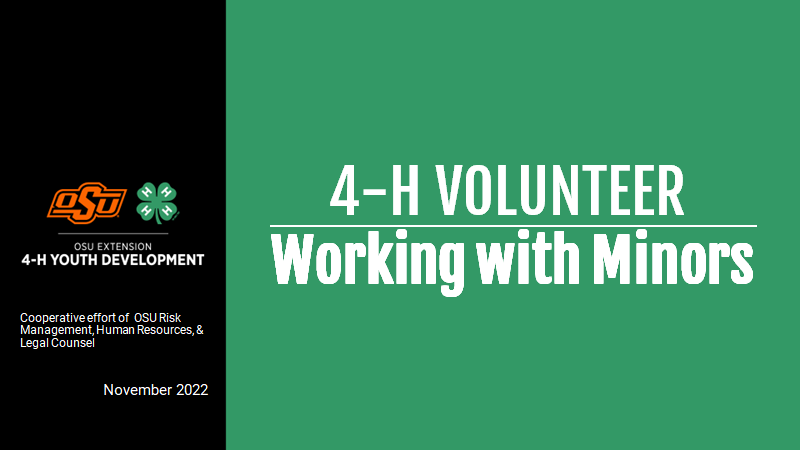

OSU, OCES and 4-H Youth Development expects faculty, staff, volunteers, leadership teams, and teen volunteers who interact with youth under the age of 18 do so appropriately and in accordance with University policy.
In 2013 the OSU A&M Board of Regents approved policy 1-0135 regarding minors participating in OSU related activities and programs. The policy applies to ALL interactions with youth participating in 4-H club meetings, 4-H activities sponsored by a club, county/district/state activities and events, overnight camps, day camps, workshops, school enrichment/CNEP/EFNEP programs, practices and workouts, campus-based activities, and/or any other Extension hosted program or activity.
Oklahoma State University requires both staff and volunteers complete an annual review of the OSU policy regarding work with minors.
For more information contact Leah Haxton, Oklahoma State University, at Leah.g.haxton@okstate.edu or Karla Knoepfli, Oklahoma State University, at karla.knoepfli@okstate.edu
- Teacher: carl hamby
- Teacher: Leah Haxton
- Teacher: Dwayne Hunter
- Teacher: Karla Knoepfli
Intended for secondary educators and their students, this curriculum will provide agricultural background knowledge and facilitate experimental design, data collection, and analysis of results through the use of a new online web-based and mobile-optimized tool, AgConnect. AgConnect follows the scientific method from hypothesis to conclusion and includes prompts to design an experiment, a notebook to record data collection and observations, data analysis tools, results display pages, and the option to download entries to share data in presentations, posters, and reports.
The complementary AgConnect curriculum includes guiding questions so students can engage in peer-to-peer learning and sharing about: 1) the relationships between environmental conditions, suitable crops, economic impacts, and cultural connections; 2) relevant agricultural issues, questions, and potential solutions unique to each region; and 3) comparison of experimental processes, challenges, 'a-ha' moments, and results.
- Teacher: Susan Brouillette
- Teacher: Lindsey Ruhl
The Manure Composting course comes to you from the Animal Science Program at Rutgers Cooperative Extension with help from their friends at the Office of Continuing Professional Education.
- Teacher: Brian Warzak
The Manure Composting course comes to you from the Animal Science Program at Rutgers Cooperative Extension with help from their friends at the Office of Continuing Professional Education.
- Teacher: Brian Warzak
Listen about some of the research and testing that is occurring at the lab located on the University of Maine campus, and impacts
this may have on the forest products industry.
1.0 Category 1 ceu; $20
- Teacher: Raymond Berthiaume
For more information or help with enrollment contact The University of Nebraska–Lincoln via pested@unl.edu or 1-800-627-7216
- Teacher: Frank Bright
- Teacher: Jennifer Weisbrod
The course covers how to develop emergency action plans, powerline and fireline safety, defensible space, fire control, the 10 firefighting orders and 18 watch out situations, and fire behavior. This course is designed to meet training required by Oregon OSHA for employees and employers who may engage in suppressing wildfires on their operation. The course also covers what the new OSHA requirements are and tries to add clarity to what producers need to do. Even if you do not have employees this course covers good material for living and working in rural eastern Oregon. In addition, the goal is to go over best management practices to keep your operation and employees safe and informed. A course certificate is available at the end of this course after completing a brief exam and the course evaluation.
- Teacher: Jacob Powell
This course will prepare you for Idaho State Department of Agriculture pesticide exam Ornamental Pest (OP) category. For professional applicators responsible for using or supervising the use of pesticides to manage pests in the maintenance and cultivation of ornamental plants and turf.
You will have access to seven online instructional sessions to complete at your own pace. Each session contains an outline to use for enhancing your study and quizzes to evaluate your knowledge.
The fee for this course is $50-one month access. To purchase and enroll in the course, click the following button:
- Teacher: cals ipm
This course introduces, or reintroduces, the basic natural resources systems: soil, water, air, and wildlands.
- Teacher: Colleen Brady
- Teacher: Natalie Carroll
- Teacher: Nathan Hilliard
The target audience is the college graduate level learner and agriculture professionals. Teachers include: Joe Keaschall, Leah Sandall, and Diane Nolan
For information or to enroll contact Kathy Schindler at kschindler1@unl.edu or 402-472-1730
- Teacher: Blaine Johnson
- Teacher: Diane Nolan
- Teacher: Leah Sandall
Instructor/Contact: Ashley Kent, Montana State University Extension’s Local Government Center, ashleykent@montana.edu
- Teacher: Schuyler Germann
- Teacher: Ashley Kent
- Teacher: Lydia Maunz
- Teacher: Kate Wade
Pasture Associated Laminitis Prevention Strategies provides participants the opportunity to learn about the physiology, causes and prevention of laminitis. Participants will be able to describe the physiological changes in the hoof that occur with laminitis, describe the symptoms of laminitis that result from those physiological changes, list what conditions increase risk for laminitis and explain how to manage grazing and pastures to reduce laminitis risk. This course offers a badge and is one of several available in the HorseQuest Badge Portfolio. This course includes a video, a learning lesson, and a quiz.
For information contact Kathy Anderson, kanderson1@unl.edu
The fee for this course is $10. To purchase and enroll in the course, click the following button.
If you purchase at least $40 worth of courses from this category, you can receive a 20% discount by entering the voucher code of HorseQuest20.
- Teacher: Kathy Anderson
- Teacher: Colleen Brady
Pen Rider and Processors on-line Horse Safety and Care is for feedlot and cattle producers and employees. In this course participants will learn how to safely handle horses when working in feed yards as well as basic horse care and management.
For more information about the course or how to enroll contact Kathy Anderson with the University of Nebraska Extension at kanderson@unl.edu
This course requires a $25 registration fee. Once the registration fee is paid, you will get an email with an ENROLLMENT KEY.
Please go to: Pen Rider and Processors Horse Safety and Care Certification Course at http://marketplace.unl.edu/extension/programs/feedlot-horse.html to enroll.
- Teacher: Kathy Anderson
- Teacher: Colleen Brady
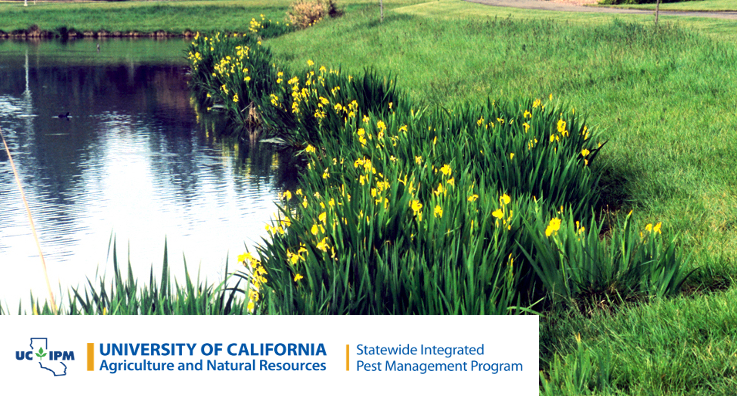

Learners will be able to describe why calibration is important and be able to list the materials and tools needed in order to calibrate equipment. They will see various examples of pesticide application equipment for liquid, granular, and soil drenching and soil injection applications. The course includes many examples of calculations needed to calibrate equipment. The course contains video so it requires a device that can play audio and video.
- Technical support: UC IPM Online Training Support
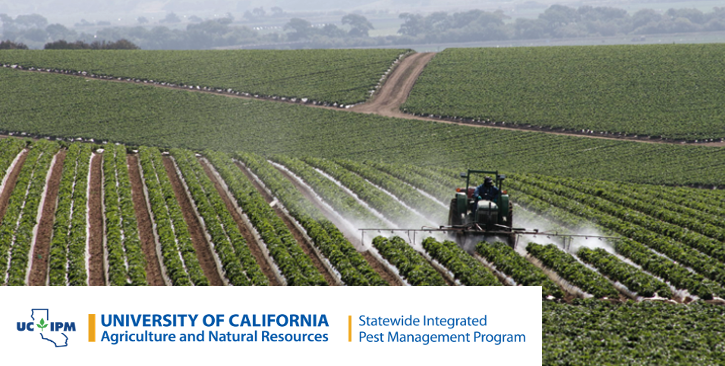

- Technical support: UC IPM Online Training Support
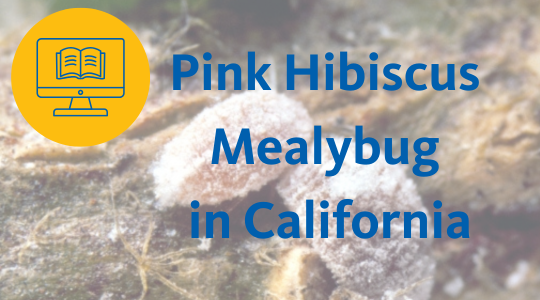
Course overview
The pink hibiscus mealybug (Maconellicoccus hirsutus) is an invasive insect that is currently in California and has the potential to have a profound impact on our agriculture and natural environment. A key to slowing the spread of pink hibiscus mealybug is early detection and rapid response, which requires education of citizens and resource professionals. This course explores the pest's lifecycle, how they feed, travel and what to do if you see it in California.
Who should enroll?
Residents of California, Master Gardeners, Arborists, Nursery Professionals, and other stakeholders.
How to enroll
Continuing Education Units
- UC Master Gardeners are eligible for 1 hour of continuing education (CE) for completing this course.
Need Help?
- For assistance with login, course enrollment, contact campushelp@extension.org
- For assistance with progress through the course or certificate, contact mgtraining@ucanr.edu
The California Department of Agriculture and the University of California Master Gardener Program.
Teacher
Lauren Snowden, UC Master Gardener Online Training Specialist


The University of California Division of Agriculture & Natural Resources (UCANR) is an equal opportunity provider. (Complete nondiscrimination policy statement can be found at (pdf, opens in another window) http://ucanr.edu/sites/anrstaff/files/215244.pdf)
Inquiries regarding ANR’s nondiscrimination policies may be directed to UCANR, Affirmative Action Compliance Officer, University of California, Agriculture and Natural Resources, 2801 Second Street, Davis, CA 95618, (530) 750-1343.
_______
The material and information presented here are for general education and information purposes only and do not constitute technical advice relating to individual and site-specific issues. Reach out to the University of California (UC) Cooperative Extension office in your county for unbiased, research-based solutions. Any reference to commercial products, companies, and organizations does not imply an endorsement by The Regents of the UC.
- Teacher: UC Master Gardener Online Training Support
- Teacher: Lauren Snowden
Thank you for logging in to complete this online Expanded Food and Nutrition Education (EFNEP) lesson. You should have received an enrollment key from your class instructor. Enter this enrollment key in order to access and complete this lesson.
- Teacher: Megan Berthiaume
- Teacher: Megan Berthiaume
Gracias por ingresar a la página Web para completar esta lección de Educación sobre Nutrición y Alimentos (EFNEP). Usted debió haber recibido una clave de inscripción de parte de su instructor. Ingrese esa clave de inscripción para acceder y completar esta lección.
- Teacher: Megan Berthiaume

Estimating Employee Costs & Tradeoffs with Investments in Mechanization
Learn how to estimate the complete cost of employees, including payroll taxes, workers compensation and any benefits you might offer beyond regular hourly wages. This two-part, online workshop will also introduce a tool for exploring how investments in mechanization can affect your labor needs and costs. The workshop is part of the 2022 Farm Labor Dashboard Workshop Series, which focuses on helping farmers build practical labor management knowledge and skills.
Presenter: John Hendrickson, University of Wisconsin Center for Integrated Agricultural Systems.
Session Format: Sessions will be delivered via Zoom. Connection information, along with additional resources and information will be available through the workshop site.
Fees. The workshop fee is $35. To purchase and enroll in the course, click the following button:
Scholarships and multi-session discounts are available, reducing the workshop fee to $20. However, these options are only available for people who request – and receive approval – for reduced fees in advance of registration and payment. To request either a multi-session discount or scholarship, please fill out this online form.
Please wait to register until you hear back from us via email. Decisions are generally made within 3 business days. If you are approved, you will receive a voucher code that you will use during the registration/payment process to activate a reduced registration fee for the workshops you indicated you wish to enroll in.
- Instructor: Beth Holtzman
- Instructor: Mary Peabody
Students will learn the impact of environments and environmental stimuli on the estimates of agricultural and breeding value of crop varieties, the use of statistical and graphical techniques to analyze and deal with G x E, and to exploit clustering of environments in variety testing, selection, and commercial recommendation.
For more information or to enroll contact Leah Sandall, University Nebraska-Lincoln, at lsandall5@unl.edu
- Teacher: Diane Nolan
- Teacher: Leah Sandall
For more information or to enroll please contact: Keenan Amundsen kamundsen2@unl.edu, Leah Sandall lsandall5@unl.edu
- Teacher: Keenan Amundsen
- Teacher: Leah Sandall
Plant Breeding Training Network (PBTN) Discussion is a discussion group that will provide the opportunity for professional plant breeders and those interested in plant breeding topics to engage in discussion. The group may facilitate networking connections among participants and answer questions in the area of plant breeding. The target audience for this discussion group is current professional plant breeders, plant breeding students and others interested in discussion surrounding plant breeding topics.
Facilitators for this group are:
Leah Sandall (lsandall5@unl.edu<mailto:lsandall5@unl.edu>, Univ. of Nebraska-Lincoln),
Jason Cook (jason.cook3@montana.edu<mailto:jason.cook3@montana.edu>, Montana State Univ.)
Deanna Crow (deanna.visser@montana.edu<mailto:deanna.visser@montana.edu>, Montana State Univ.)
- Teacher: Leah Sandall
This module is designed to provide agribusiness professionals an
understanding of the genetic basis for variation in crop and weed
populations. Learners will use classical and molecular genetics to
explain differences seen in plant families and populations. Content in
this module will help to explain new traits in crops, whole-plant trait
observation and molecular analysis. Examples from genetic studies on
both crop and weed species are presented for evaluation and
relationships between crops and weeds are discussed.
The target audience is the agriculture professional. For more information or to enroll contact Kathy Schindler at kschindler1@unl.edu<mailto:kschindler1@unl.edu> or 402-472-1730.
- Teacher: Diane Nolan
- Teacher: Leah Sandall
- Teacher: Keenan Amundsen
- Teacher: Leah Sandall
- Teacher: Leah Sandall
- Teacher: Leah Sandall

Recertification Credits are available for this course.
This pesticide recertification course discusses two major rodent pests in Idaho. The course contains useful information for controlling these rodents with cultural practices and trapping. Additionally, current information on registered rodenticides is covered.
This module has been approved by the Idaho State Department of Agriculture (ISDA) - Seminar #2024-633 for 1-ISDA pesticide credit.
If you have questions related to this course, please email: cals-ipm@uidaho.edu at the University of Idaho Extension.
- Teacher: cals ipm

Recertification Credits are available for this course.
This
pesticide recertification course is about the toxicity and non-target
effects of pesticides to Idaho pollinators and beneficial
insects. Several examples and research studies are explained.
This course has been approved by the Idaho State Department of Agriculture (ISDA) - Seminar #2024-638 for 1-ISDA pesticide credit.
If you have questions related to this course, please email: cals-ipm@uidaho.edu at the University of Idaho Extension.
- Teacher: cals ipm
Learn to utilize common and effective tools and practices to improve communication and employee performance on your farm. In part-one of this workshop, you’ll also learn how to use an online Personnel Policy Generator to develop a custom policy manual for your operation. Farm policy manuals are effective tools to establish consistent expectations with employees, support supervision and help your farm to be in legal compliance. Participants will have the opportunity to create their own farm policy manual, with feedback from educators.
Presenters: Kenesha Reynolds and Seth Wilner, University of New Hampshire Cooperative Extension.
The workshop is part of the 2022 Farm Labor Dashboard Workshop Series, which focuses on helping farmers build practical labor management knowledge and skills.
Fees. The workshop fee is $35. To purchase and enroll in the course, click the following button:
Scholarships and multi-session discounts are available, reducing the workshop fee to $20. However, these options are only available for people who request – and receive approval – for reduced fees in advance of registration and payment. To request either a multi-session discount or scholarship, please fill out this online form. Then wait to register until you hear back from us via email. Decisions are generally made within 3 business days. If you are approved, you will receive a voucher code that you will use during the registration/payment process to activate a reduced registration fee for the workshops you indicated you wish to enroll in.- Instructor: Beth Holtzman
- Instructor: Mary Peabody
En este curso interactivo, los residentes y visitantes de Oregón y de otros estados del oeste pueden obtener información sobre el evento de la zona de subducción de Cascadia y aprender a prepararse. Este curso se ofrece gratis al público en campus.eXtension.org a través del programa de Servicios de Extensión de Oregon State University.
Este proyecto es apoyado por el Programa de Subvenciones Competitivas Smith-Lever para Necesidades Especiales del Instituto Nacional de Alimentación y Agricultura (Premio # 2018-41210-28702).
- Teacher: Glenda Hyde
- Teacher: Lauren Kraemer
- Teacher: Victor Villegas
- Teacher: Megan Berthiaume
Preparing to be a Professional Horse Show Judge is a self directed course that will teach adults how to prepare
to be a professional horse show judge.
The course fee is $20. To purchase and enroll in this course, please click Buy/Enroll below.
For more information about the course please contact Kathleen Anderson, University of Nebraska Extension, kanderson1@unl.edu
- Teacher: Kathy Anderson
- Teacher: Colleen Brady
- Teacher: Kris Hiney
In this Preserve@Home course, participants will be introduced to food safety and food preservation science, gain an understanding of the principles and science behind foodborne illnesses and food preservation methods and be able to apply these principles to safely preserve food by methods of boiling water canning, pressure canning, pickling, freezing and drying.
The next class will start in January.
For more information, contact Laura Sant, University
of Idaho Extension, at lsant@uidaho.edu
- Teacher: Larissa Bonnet
- Teacher: Surine Greenway
- Teacher: Eric Matson
- Teacher: Deanna Poulsen
- Teacher: Amy Robertson
- Teacher: Laura Sant
- Teacher: Kari Ure
- Teacher: Grace Wittman
The audience for this course includes aspiring and practicing industrial hemp growers and interested ag service providers, including Extension educators.
As a result of participating this online proceedings, participants will learn about latest research results, production information, regulatory requirements for Vermont, and resources available regarding industrial hemp production.
Click here to purchase access to this course:
Contact Susan Brouillette at susan.brouillette@uvm.edu for additional information.
- Teacher: Susan Brouillette
To provide education and resources for new technical assistance providers with foundational information around grazing planning and providing grazing-related support to production livestock farmers in Vermont. Topic focuses include how to develop a grazing plan, grazing infrastructure, grazing record keeping, soil health in grazing systems, and pasture improvement and maintenance strategies.
- Teacher: Shannon MacDonald
- Teacher: Amber Machia
- Teacher: Sara Ziegler
The Professional Loggers Program (PLP) is a voluntary certification program for New Hampshire's loggers. This program teaches basic silviculture, wildlife management, and improving forestland aesthetics. It also teaches forest professionals about laws that govern their work and regulations that need to be followed. Another very important aspect of this course is safety. Every participant receives instruction in basic first aid, CPR, AED and techniques for operating safely and productively. Certified loggers will have the basic understanding and knowledge necessary to improve their working relationship with New Hampshire's forestry community.
- Teacher: Cheri Birch
- Teacher: andrew fast
- Teacher: Deb Park
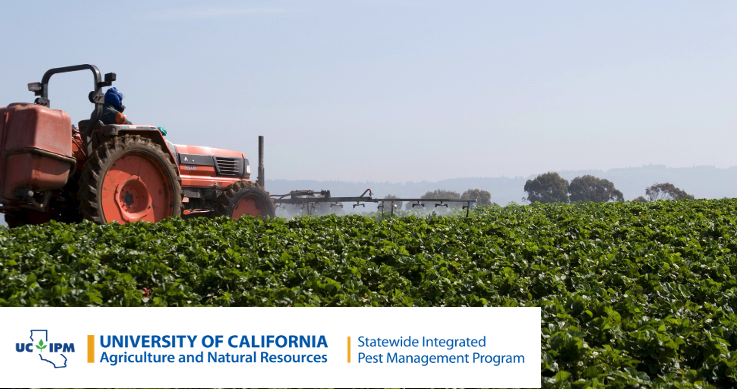

Course overview
Participants will learn to analyze pesticide labels and extract information relevant to the specific setting and situation in order to safely apply pesticides and avoid illegal residue while complying with all label directions. The course contains video
so it requires a device that can play audio and video. The author of the course is Lisa Blecker, Pesticide Safety Educator, Colorado State University.
Who should enroll?
Pest Control Advisers, pesticide handlers, and growers
Continuing Education Units
It is accredited by the California Department of Pesticide Regulation (2.0 hours Laws & Regs), Certified Crop Adviser (2.0 IPM), and Western Chapter International Society of Arboriculture (2.0 for Certified
Arborists and 2.0 Practice for Board Certified Arborists.
To get the Continuing Education Units certificate you will be charged a fee of $80. To encourage taking the course earlier in the year, we offer 50% off the regular price from January through October 31st – use the code ipm50 at checkout. You must download the certificate (PDF file) to receive your CEU credits.
Enrollment period
This course must be completed by December 30 of the current year. Download the certificate immediately when you complete the course. You will not be able to retrieve your certificate after December 30.
- Technical support: UC IPM Online Training Support
This Proper Respirator Use course will help you understand when and why a respirator is necessary, how to safely and correctly select, wear and maintain a respirator, respect a respirator's capabilities and limitations, recognize and respond appropriately in emergency situations, and comprehend the medical signs and symptoms that may limit or prevent effective respirator use.
This course is designed to take approximately 1 hour. One (1) Safety CEU is available for residents in the following states.
- Oklahoma
- Utah
Teacher for the course is Michael Wierda, Utah State University. He can be reached at michael.wierda@usu.edu
- Teacher: Peggy Shuffstall
- Teacher: Michael Wierda
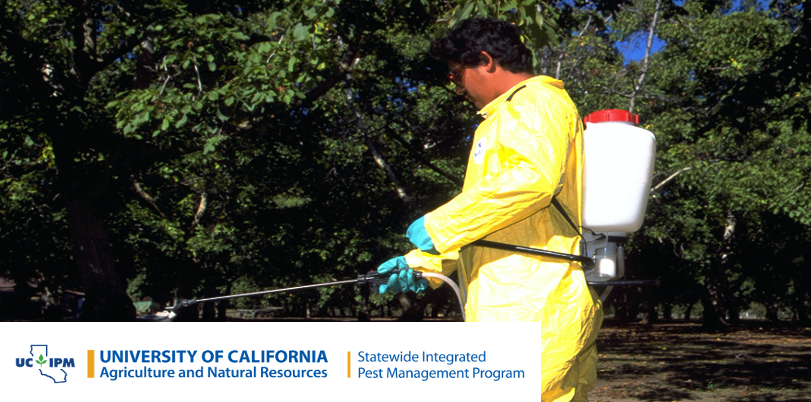

Course participants will learn to follow specific label instructions and the California Code of Regulations (CCR) and will be able to demonstrate how to select the proper PPE, use it, remove it, and dispose of it or clean and store it before, during, and after each incidence of pesticide handling and application. The course contains video so it requires a device that can play audio and video. If you do not require a certificate, you may view the course for free. The author of the course is Lisa Blecker, Pesticide Safety Educator, Colorado State University. This course is also available in a Spanish language version.
Pest Control Advisers, pesticide handlers, and growers
California Department of Pesticide Regulation (1.5 hours Laws & Regs), Certified Crop Adviser (1.5 IPM), and the Western Chapter International Society of Arboriculture (1.5 for Certified Arborists and 1.5 Practice for Board Certified Arborists).
This course must be completed by December 30 of the current year. Download the certificate immediately when you complete the course. You will not be able to retrieve your certificate after December 30.
- Technical support: UC IPM Online Training Support
Purchasing this course entitles you to receive a certificate of completion for continuing education units (CEU). You have the option to take this course either in English or in Spanish language. You will have access to both language versions after you make the purchase. If you do not require a certificate, you may view the course for free by enrolling in the English version or Spanish version.
La compra de este curso le da derecho a recibir un certificado de finalización para las unidades de educación continua (CEU). Tiene la opción de tomar este curso en inglés o en español. Después de realizar la compra tendrá acceso a las versiones en ambos idiomas. Si no necesita el certificado, puede ver el curso de forma gratuita inscribiéndose en la versión en inglés o en la versión en español.
Pest Control Advisers, pesticide handlers, and growers who take this course will learn to follow specific label instructions and the California Code of Regulations (CCR) and will be able to demonstrate how to select the proper PPE, use it, remove it, and dispose of it or clean and store it before, during, and after each incidence of pesticide handling and application.
Los asesores de control de plagas, los manipuladores de pesticidas y los productores quienes tomen este curso aprenderán a seguir las instrucciones específicas de la etiqueta y el Código de Reglamentaciones de California (CCR) y podrán demostrar cómo seleccionar el PPE adecuado, usarlo, quitarlo y retirarlo o limpiarlo y almacenarlo antes, durante y después de cada incidencia de manipulación y aplicación de pesticidas.
It is accredited by the California Department of Pesticide Regulation (1.5 hours Laws & Regs), Certified Crop Adviser (1.5 IPM), and the Western Chapter International Society of Arboriculture (1.5 for Certified Arborists and 1.5 Practice for Board Certified Arborists).
El curso está acreditado por el Departamento de Reglamentación de Pesticidas de California (1.5 horas de Leyes y Reglamentaciones), Asesor de Cultivos Certificado (1.5 de IPM), y Capítulo Occidental de la Sociedad Internacional de Arboricultura (1.5 para Arboristas Certificados y 1.5 Práctica para Arboristas Certificados por la Junta).
The course contains video so it requires a computer that can play audio and video.
El curso contiene video, por lo que requiere una computadora que pueda reproducir audio y video.
Contact and technical support (Contacto y apoyo técnico): UCIPMcourses@ucanr.edu
- Technical support: UC IPM Online Training Support
Sales Fraud in the Horse Industry provides participants the opportunity to learn how to protect themselves both as buyers, and as sellers, of horses from potential fraud. They will be able to discuss the different ways that horse sellers can help prevent legal disputes, examine the different tips to look for when buying a horse, identify how horse buyers can avoid legal disputes, assess the importance of a written sales agreement and determine what the true aspect of fraud is in a horse sale.This course offers a badge and is one of several available in the HorseQuest Badge Portfolio. This course includes a video, a learning lesson, and a quiz.
For information contact Kathy Anderson, kanderson1@unl.edu
- Teacher: Kathy Anderson
- Teacher: Colleen Brady

Course overview
This course explains why protecting different types of bees in integrated pest management is important to West Coast agriculture. This course is available for free. The
course contains video so it requires a device that can play audio and video.
Who should enroll?
Pest management agricultural professionals (including growers, PCAs, and certified crop advisers) who would like to gain practical knowledge that can be used to conserve bees (including non-Apis and native bees as well as homey bees) while managing pests effectively.
Continuing Education Units
This course is not approved for CEUs.
Enrollment period
This course must be completed by December 30 of the current year. Download the certificate immediately when you complete the course. You will not be able to retrieve your certificate after December 30.
- Technical support: UC IPM Online Training Support


Course overview
This course presents information on the Healthy Schools Act and on using integrated pest management, or IPM, methods in schools and child care centers. A third component of the course helps pest management professionals
comply with the Healthy Schools Act and expand their business. This course is available for free. The course contains video so it requires a device that can play audio and video.
Who should enroll?
Pest management professionals who provide, or would like to provide, pest management services in schools and child care centers
Continuing Education Units
California Department of Pesticide Regulation (0.5 hour Laws & Regs and 1.0 hour Other) and by the Structural Pest Control Board (1.0 hour Rules and Regulations and 1 hour IPM). This course meets the
annual training requirement of the Healthy Schools Act.
Enrollment period
This course must be completed by December 30 of the current year. Download the certificate immediately when you complete the course. You will not be able to retrieve your certificate after December 30.
- Technical support: UC IPM Online Training Support
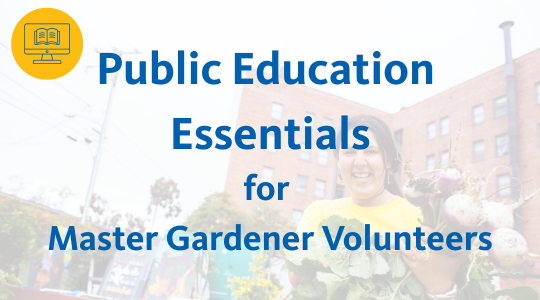
ENROLLMENT IS NOT OPEN FOR THIS COURSE
Course overview
Whether you’re new to public speaking or looking to brush up on your outreach skills, you’re in the right place. This course was designed just for you, UC Master Gardener volunteers who are passionate about sharing science based gardening knowledge but may feel unsure about stepping into the spotlight. You’ll explore extension teaching, practice inclusive communication, and prepare for successful public outreach through a clear and confident plan.
Who should enroll?
Active UC Master Gardener volunteers who are interested in participating in the Invasive Species Scout Project.
Continuing Education Hours
UC Master Gardeners are eligible for 8-10 hours of continuing education (CE) for completing this course.Need Help?
- For assistance with login, course enrollment, contact campushelp@extension.org
- For assistance with progress through the course or certificate, contact mgtraining@ucanr.edu
Funded by
University of California Master Gardener ProgramTeacher
Lauren Snowden, UC Master Gardener Online Training SpecialistTechnical Requirements
To ensure full functionality and a seamless learning experience, please review the following technical requirements before beginning the course.

- Teacher: UC Master Gardener Online Training Support
- Instructor: Lauren Snowden
This course is for student enrolled in the Irish Horse Industry Study Abroad course through Purdue University and the University of Nebraska.
- Teacher: Kathy Anderson
- Teacher: Colleen Brady
- Teacher: Natalie Carroll
Quantitative Genetics (Self-Paced) will present basic elements of quantitative genetics emphasizing implications to plant breeding, as well as providing practical experience in linkage and QTL mapping. The course is designed for you to complete it at your own pace. There are 9 different units, each on a different topic. Within each unit you will find video clips of recorded presentations followed by a short quiz. At the end you will also be given an opportunity to work with a data set. Time commitment will be approximately 25 hours. Completion will result in a Q genetics Badge.
- Teacher: Leah Sandall
Gracias por ingresar a la página Web para completar esta lección de Educación sobre Nutrición y Alimentos (EFNEP). Usted debió haber recibido una clave de inscripción de parte de su instructor. Ingrese esa clave de inscripción para acceder y completar esta lección.
- Teacher: Megan Berthiaume

The Reach Out for Wellness Course is designed to support the mental health needs of Extension professionals following natural disasters.
This research-based course is comprised of five modules with engaging videos and additional resources to help you reflect on your wellness and learn strategies to support your needs associated with disaster recovery.
Participation is free, self-paced and will help you:
- Better understand your own wellness.
- Gain insights on the personal impacts of natural disasters.
- Learn how to use your support system to cope with stress related to natural disasters.
- Instructor: Seth Teager
Este curso es para proveedores en hogares de cuidado infantil familiar. Esta capacitación en línea incluye videos, cuestionarios cortos y actividades. Tiene dos partes:
En la primera parte, usted aprenderá sobre las recomendaciones más recientes sobre QUÉ alimentos ofrecer a los infantes. Estos son los alimentos y bebidas recomendados. Repasaremos, como la leche materna, la fórmula láctea y el agua, granos, proteínas, frutas y verduras, así como los alimentos que deben evitarse, como el azúcar y la sal.
En la segunda parte, nos enfocaremos en el CÓMO alimentar a los infantes. Repasaremos la lactancia, la introducción a los alimentos sólidos y las prácticas generales de alimentación saludable. Al terminar estas dos partes, recibirá un certificado por haberlas completado.
El completer este curso proporciona 1.0 hora de contacto.
- Maestro: Danielle Lee
Este curso es para proveedores en hogares de cuidado infantil familiar. Esta capacitación en línea incluye videos, cuestionarios cortos y actividades. Tiene dos partes:
- En la Parte 1: Qué Alimentar a los Niños Pequeños, aprenderá las últimas recomendaciones sobre QUÉ alimentar a los niños pequeños. Estos son los alimentos y las bebidas que se recomiendan. Revisaremos la leche y otras bebidas, granos y proteínas, vegetales y frutas, y azúcar y sodio.
- En la Parte 2: Cómo Alimentar a los Niños Pequeños, nos centraremos en CÓMO alimentar a los niños pequeños. Revisaremos cómo evitar la asfixia, la alimentación receptiva, la frecuencia de comidas y refrigerios, las elecciones de alimentos y el entorno de alimentación.
El completer este curso proporciona 1.0 hora de contacto.
- Teacher: Danielle Lee
Este curso es para proveedores en hogares de cuidado infantil familiar. Esta capacitación en línea incluye videos, cuestionarios cortos y actividades. Tiene dos partes:
En la primera parte, usted aprenderá sobre las recomendaciones más recientes sobre QUÉ alimentos ofrecer a los infantes. Estos son los alimentos y bebidas recomendados. Repasaremos, como la leche materna, la fórmula láctea y el agua, granos, proteínas, frutas y verduras, así como los alimentos que deben evitarse, como el azúcar y la sal.
En la segunda parte, nos enfocaremos en el CÓMO alimentar a los infantes. Repasaremos la lactancia, la introducción a los alimentos sólidos y las prácticas generales de alimentación saludable. Al terminar estas dos partes, recibirá un certificado por haberlas completado.
El completer este curso proporciona 1.0 hora de contacto.
Este curso es gratis para los residentes de California. Los residentes fuera del estado necesitan pagar $15 para acceder este curso. Si desea comprar este curso, por favor haga clic en el siguiente botón.
- Teacher: Danielle Lee
Este curso es para proveedores en hogares de cuidado infantil familiar. Esta capacitación en línea incluye videos, cuestionarios cortos y actividades. Tiene dos partes:
- En la Parte 1: Qué Alimentar a los Niños Pequeños, aprenderá las últimas recomendaciones sobre QUÉ alimentar a los niños pequeños. Estos son los alimentos y las bebidas que se recomiendan. Revisaremos la leche y otras bebidas, granos y proteínas, vegetales y frutas, y azúcar y sodio.
- En la Parte 2: Cómo Alimentar a los Niños Pequeños, nos centraremos en CÓMO alimentar a los niños pequeños. Revisaremos cómo evitar la asfixia, la alimentación receptiva, la frecuencia de comidas y refrigerios, las elecciones de alimentos y el entorno de alimentación.
El completer este curso proporciona 1.0 hora de contacto.
- Teacher: Danielle Lee

En este curso aprenderás sobre las regulaciones de Idaho para la venta de alimentos caseros en Idaho, o "cottage foods" por su nombre en inglés. Al final de este curso, podrás:
- Reconocer qué tipos de alimentos se consideran alimentos caseros (o cottage foods) y
- Conocer las regulaciones que debes seguir para vender alimentos caseros en Idaho.
- Teacher: Paul Lewin

Recertification credits are available for this course.
This pesticide recertification course is designed to help applicators understand the cause of herbicide resistance. The course reviews common residential herbicides and methods to identify the herbicide groups for resistance management. IPM measures are also discussed to help control weeds around the home landscape without complete reliance on herbicides and discusses the importance of understanding how pH, hardness and turbidity can affect herbicide mixes.
This course has been approved by the Idaho State Department of Agriculture (ISDA) - Seminar #2024-636 for 1-ISDA pesticide credit.
If you have questions related to this course, please email: cals-ipm@uidaho.edu at University of Idaho Extension.
- Teacher: cals ipm
This module will cover
common respiratory hazards and diseases found in agriculture. The module also
discusses how to reduce exposures and the use, regulations and requirements,
and maintenance of the most commonly used respirators in agriculture.
This course is designed to take approximately 1 hour.One (1) Safety CEU is available for residents in the following states.
- Oklahoma
- Utah
Teacher for the course is Michael Wierda, Utah State University. He can be reached at michael.wierda@usu.edu.
- Teacher: Peggy Shuffstall
- Teacher: Michael Wierda
You will have access to three online instructional sessions to complete at your own pace. The session contains an outline to use for enhancing your study and quizzes to evaluate your knowledge.
The fee for this course is $25-one month access. To purchase and enroll in the course, click the following button:
- Teacher: cals ipm
- Teacher: Sonja Fuchs
- Teacher: Katherine Tyler
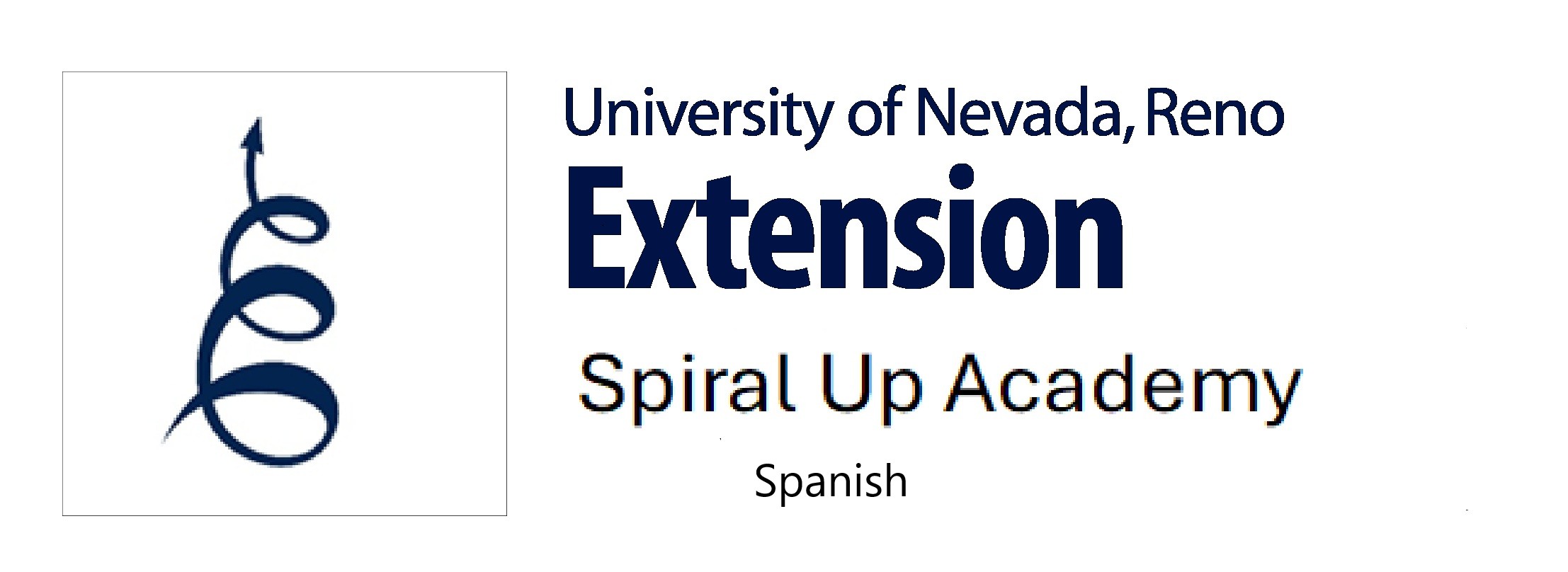
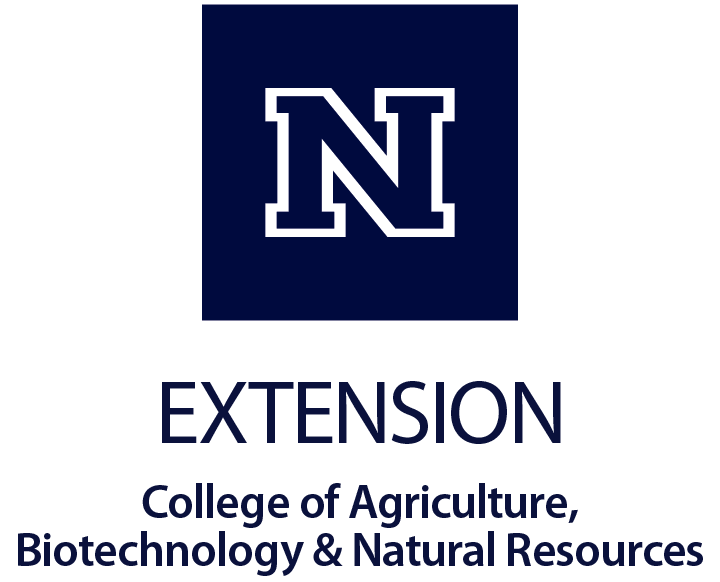
This course is restricted and only available to the University of Nevada Reno Extension Spiral Up Academy participants.
Este curso está restringido y solo está disponible para los participantes de la Academia Spiral Up de Extensión de Reno de la Universidad de Nevada.- Teacher: Cynthia James
- Teacher: Stephanie May
- Teacher: Danielle Pertile
- Teacher: Cathryn Peshlakai
- Teacher: Monica Salazar


This course is restricted and only available to the University of Nevada Reno Extension Spiral Up Academy participants.Este curso está restringido y solo está disponible para los participantes de la Academia Spiral Up de Extensión de Reno de la Universidad de Nevada.
Esta capacitación se centrará en aumentar la comprensión del desarrollo y los hitos de los niños, estrategias para apoyar el crecimiento y el desarrollo, reconocer las diferencias de desarrollo.
- Teacher: Cynthia James
- Teacher: Stephanie May
- Teacher: Danielle Pertile
- Teacher: Cathryn Peshlakai
- Teacher: Monica Salazar


This
course is restricted and only available to the University of Nevada Reno
Extension Spiral Up Academy participants.Este
curso está restringido y solo está disponible para los participantes de la
Academia Spiral Up de Extensión de Reno de la Universidad de Nevada.
Esta capacitación se centra en cómo los maestros priorizan el tiempo para establecer conexiones y relaciones con todos los niños pequeños y sus familias. Se introducen cuatro estrategias: aumentar el tiempo positivo, conversaciones significativas, unirse al juego e interacciones receptivas, y construir asociaciones familiares.
- Teacher: Cynthia James
- Teacher: Stephanie May
- Teacher: Danielle Pertile
- Teacher: Cathryn Peshlakai
- Teacher: Monica Salazar


This
course is restricted and only available to the University of Nevada Reno
Extension Spiral Up Academy participants.
Este curso está restringido y solo está disponible para los participantes de la Academia Spiral Up de Extensión de Reno de la Universidad de Nevada.
Esta capacitación se centrará en la importancia del juego, cómo los niños aprenden a través del juego, los diferentes tipos de juego, la creación de experiencias de juego que fomenten el desarrollo y la provisión de materiales apropiados para el desarrollo para involucrar a los niños en el juego.
- Teacher: Cynthia James
- Teacher: Stephanie May
- Teacher: Danielle Pertile
- Teacher: Cathryn Peshlakai
- Teacher: Monica Salazar


This
course is restricted and only available to the University of Nevada Reno
Extension Spiral Up Academy participants.
Este curso está restringido y solo está disponible para los participantes de la Academia Spiral Up de Extensión de Reno de la Universidad de Nevada.
En este tema, exploraremos cómo las siguientes grandes ideas funcionan juntas para crear un entorno de aprendizaje eficaz para los niños pequeños: Desarrollar horarios y rutinas diarias, Planificar e implementar transiciones y Enseñar expectativas y reglas.- Teacher: Stephanie May
- Teacher: Danielle Pertile
- Teacher: Cathryn Peshlakai
- Teacher: Monica Salazar


This
course is restricted and only available to the University of Nevada Reno
Extension Spiral Up Academy participants.
Este curso está restringido y solo está disponible para los participantes de la Academia Spiral Up de Extensión de Reno de la Universidad de Nevada.
En este tema, exploraremos cómo las siguientes grandes ideas funcionan juntas para crear un entorno de aprendizaje eficaz para los niños pequeños: Desarrollar horarios y rutinas diarias, Planificar e implementar transiciones y Enseñar expectativas y reglas.
- Teacher: Stephanie May
- Teacher: Danielle Pertile
- Teacher: Cathryn Peshlakai
- Teacher: Monica Salazar


This
course is restricted and only available to the University of Nevada Reno
Extension Spiral Up Academy participants.
Este curso está restringido y solo está disponible para los participantes de la Academia Spiral Up de Extensión de Reno de la Universidad de Nevada.
Esta capacitación se enfoca en el desarrollo profesional y en encontrar alegría al trabajar con niños y compañeros de trabajo.
- Teacher: Cynthia James
- Teacher: Stephanie May
- Teacher: Danielle Pertile
- Teacher: Cathryn Peshlakai
- Teacher: Monica Salazar
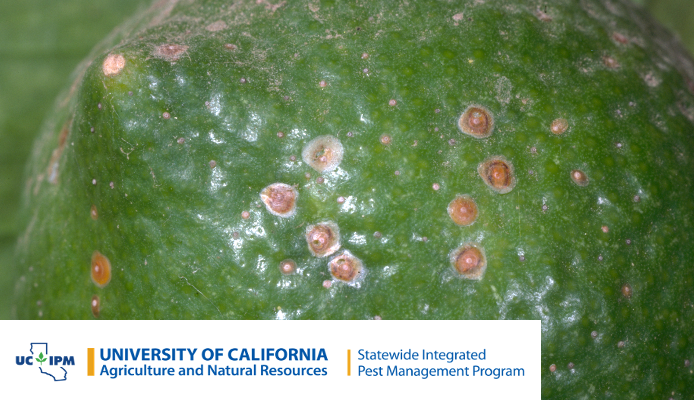

California Department of Pesticide Regulation (1.5 hour Other) and Certified Crop Adviser (1.5 IPM).
- For assistance with login, course enrollment, or payment, contact campushelp@extension.org.
- For assistance with progress through the course or certificate, contact UCIPMcourses@ucanr.edu.
- Technical support: UC IPM Online Training Support
Second Chances for Horses provides participants the opportunity to learn the unique challenges that accompany the adoption of second career horses. Including how to select an adoption facility, and common behavioral and physical considerations for second career horses. This course offers a badge and is one of several available in the HorseQuest Badge Portfolio. This course includes a video, a learning lesson, and a quiz.
For information contact Kathy Anderson, kanderson1@unl.edu- Teacher: Kathy Anderson
- Teacher: Colleen Brady

This course is free.
This course is open to:
- Researchers
- Organizations (including community-based and health systems)
- Decision-makers
- Project teams (including coalitions) who plan to use stakeholder-engaged research, to create research priorities or agendas.
- Community members
The Stakeholder Engagement in quEstion Development and prioritization (SEED) Method is a multi-stakeholder approach to engaging communities in research, problem solving, and action planning.
Developed by researchers at Virginia Commonwealth University and Virginia Tech, SEED provides a framework for collaborative research and action planning that can be scaled up or down depending on project resources and goals.
By the end of this course you will be able to …
- Understand how to apply the SEED Method to your collaborative projects
- Understand how to use and find SEED Method participatory tools
- Understand the roles of the community-based participatory Research Team and Topic Groups
- Understand how to utilize the following SEED Method participatory tools: stakeholder matrices, conceptual modeling, strategy development and prioritization
We are also on Connect Extension! For more information on the SEED Method, visit our site and join our SEED Method subgroup on Connect Extension at https://seed.extension.org/
- Teacher: Theodora Biney-Amissah
- Teacher: Samantha Lee
- Teacher: Carlin Rafie
- Teacher: Emily Zimmerman
This companion to the Seed Treatment National Pesticide Applicator Study Manual provides interactive content to assist people in understanding the material covered in the printed manual. The module contains concise information on each learning objective from the manual, a clickable glossary, and other interactive activities. This module should be used in association with the Seed Treatment—A National Pesticide Applicator Study Manual https://npsecstore.com/collections/seed-treatment-manual/products/seed-treatment-a-national-pesticide-applicator-study-manual.
The Seed Treatment Companion cost is $10. To purchase/enroll in JUST the course, click the Purchase/Enroll button below.
If you purchased the Seed Treatment Companion Manual/Module Bundle from the NPSEC Store, you received a code which gives you access to the module. Click the Purchase/Enroll button below and enter that code in the blank shown under the Voucher heading on the shopping cart page and click the Recalculate button.
- Teacher: Peg Shuffstall


Sobre el curso
Los participantes aprenderán a seguir las instrucciones específicas de la etiqueta y el Código de Reglamentaciones de California (CCR) y podrán demostrar cómo seleccionar el PPE adecuado, usarlo, quitarlo y retirarlo o limpiarlo y almacenarlo antes, durante y después de cada incidencia de manipulación y aplicación de pesticidas.
La compra de este curso le da derecho a recibir un certificado de finalización. Tiene la opción de tomar este curso en inglés o en español. Si no necesita un certificado, puede tomar el curso de forma gratuita. Este curso tambié
n estádisponible en la versión inglés.El curso contiene video, por lo que requiere una computadora que pueda reproducir
audio y video.
¿Quién debería inscribirse en este curso?
Los asesores de control de plagas, los manipuladores de pesticidas y los productores
Créditos de Educación Contínua
Departamento de Reglamentación de Pesticidas de California (1.5 horas de Leyes y Reglamentaciones), Asesor de Cultivos Certificado (1.5 de IPM), y Capítulo Occidental de la Sociedad Internacional de Arboricultura (1.5 para Arboristas Certificados y 1.5
Práctica para Arboristas Certificados por la Junta).
Para obtener el certificado de Unidades de Educación Contí
nua se le cobrará una tarifa de $60.
Para fomentar la realización del curso a principios de año, ofrecemos un 50 % de descuento sobre el precio normal desde enero hasta el 31 de octubre; utilice el código ipm50 al finalizar la compra.
Descargue el certificado(archivo
PDF) para recibir tus créditos CEU.
Período de inscripción
Este curso debe completarse antes del 30 de diciembre del año en curso. Descargue el certificado inmediatamente después de completar el curso. No podrá recuperar su certificado después del 30 de diciembre.
¿Necesita ayuda?
Para obtener ayuda con el inicio de sesión, la inscripción al curso o el pago, comuníquese con campushelp@extension.org. Para obtener ayuda con el progreso del curso o certificado, comuníquese
con UCIPMcourses@ucanr.edu.
- Technical support: UC IPM Online Training Support
The target audience is the college graduate level learner and agriculture professionals.
Teachers include: P. Stephen Baenziger, Leah Sandall, and Diane Nolan
For more information or to enroll contact Kathy Schindler at kschindler1@unl.edu or 402-472-1730
- Teacher: Diane Nolan
- Teacher: Leah Sandall


Descripción General del Curso
La Serie de Gestión Financiera para Voluntarios es una colección completa de módulos de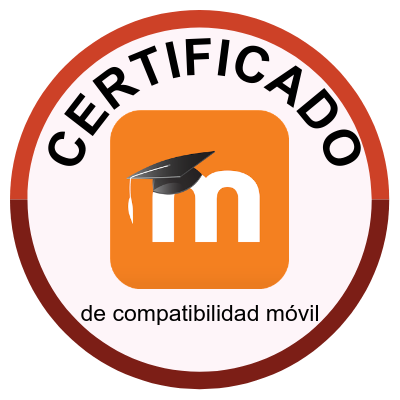 formación en línea diseñados para dotar a los voluntarios de habilidades esenciales de gestión financiera adaptadas específicamente para los Programas de Desarrollo Juvenil 4-H. A través de esta serie estructurada, los participantes obtendrán los conocimientos y las herramientas necesarias para garantizar la integridad financiera, el cumplimiento y la utilización eficaz de los recursos dentro de sus respectivas organizaciones 4-H.
formación en línea diseñados para dotar a los voluntarios de habilidades esenciales de gestión financiera adaptadas específicamente para los Programas de Desarrollo Juvenil 4-H. A través de esta serie estructurada, los participantes obtendrán los conocimientos y las herramientas necesarias para garantizar la integridad financiera, el cumplimiento y la utilización eficaz de los recursos dentro de sus respectivas organizaciones 4-H.
La serie incluye:
- Módulo 1: Fundamentos de la gestión financiera.
- Módulo 2: Cuentas bancarias y responsabilidades de los firmantes.
- Módulo 3: Planificación, recaudación de fondos y gestión de recursos.
- Módulo 4: Donaciones, becas y consideraciones especiales.
- Módulo 5: Informes financieros anuales y cumplimiento normativo.
- Módulo 6: Responsabilidades financieras de los asesores del tesorero de 4-H, los tesoreros de club, los tesoreros de VMO y los directores financieros de VMO.
- Módulo 7: Excedentes de fondos, procesamiento financiero, desembolsos e impuestos.
Duración
Cada módulo dura entre 7 y 15 minutos, con una duración total del curso de aproximadamente 75 minutos. El trabajo del curso se puede completar en varias sesiones (tendrás la opción de continuar donde lo dejaste).
Quién Debe Asistir
Voluntarios adultos de California que desempeñan una función financiera en el programa 4-H, como líderes de clubes, tesoreros de VMO, asesores de tesorería.
- State Administrator: Zeva Cho
- State Administrator: CA 4-H eXtension Tech Support
- State Administrator: Scott Mautte
- State Administrator: Gemma Miner
Thank you for logging in to complete this online Expanded Food and Nutrition Education (EFNEP) lesson. You should have received an enrollment key from your class instructor. Enter this enrollment key in order to access and complete this lesson.
- Teacher: Megan Berthiaume

Welcome to the self-paced Smart Choice / Smart Use Health Insurance TM Certified Educator training program. This program will prepare you to conduct consumer programs using the Smart Choice / Smart Use Health Insurance TM modules. The programs are designed, tested and produced by the University of Maryland Extension and University of Delaware Cooperative Extension Health Insurance Literacy Initiative (HILI) team.
- Teacher: Jesse Ketterman
- Teacher: Maggie Wolen

No hard deadlines, these will be rolling admission courses meant to be completed at the participants' own pace.
Smart Choice Health Insurance Basics: Choosing the right health care insurance plan makes you a smart consumer. Increase your understanding of health insurance and learn strategies for selecting a health care plan that will meet your health care needs and fit your spending plan.
- Teacher: Jesse Ketterman
- Teacher: Maggie Wolen

No hard deadlines, these will be rolling admission courses meant to be completed at the participants' own pace.
Smart Use Understanding and Estimating Health Care Costs: Taking control of your health care costs makes you a smart healthcare consumer. Better understand and estimate your health care expenses so you can plan for future health care costs.
- Teacher: Jesse Ketterman
- Teacher: Maggie Wolen
Thank you for logging in to complete this online Expanded Food and Nutrition Education (EFNEP) lesson. You should have received an enrollment key from your class instructor. Enter this enrollment key in order to access and complete this lesson.
- Teacher: Megan Berthiaume
Building soil health on agricultural lands is an important strategy to improve water quality, climate resilience, and farm viability. In this course, designed for anyone who provides technical assistance to agricultural producers, you will learn about science behind healthy soils, how to measure and assess soil health, and how to select and implement agricultural management strategies that build healthy soils. Developed in partnership between the Franklin County Natural Resources Conservation District [https://www.franklincountynrcd.org/] and University of Vermont Extension [https://www.uvm.edu/extension].
- Teacher: Mel Auffredou
- Teacher: Susan Brouillette
- Teacher: Lauren Weston
You will be able to re-enroll in the CFA recertification programs at https://register.ext.vt.edu/search/publicCourseAdvancedSearch.do?method=doPaginatedSearch&cspIndex=true&showInternal=false&courseSearch.courseDescriptionKeyword=fertilizer; however, there will be a minimal fee for enrollment ($10) and all testing modules will have to be completed again in the new system, regardless if they have been completed in the previous CFA programs.
Fertilizer Applicator Certification Training (FACT) is a cooperative effort of Virginia Cooperative Extension (VCE), Virginia Department of Agriculture and Consumer Services (VDACS), and the Virginia Department of Conservation and Recreation (DCR).
For more information or to enroll contact: Whitnee Askew, Turf Program Manager, Virginia Tech at waskew@vt.edu
- Instructor: Whitnee Askew
You will be able to re-enroll in the CFA recertification programs at https://register.ext.vt.edu/search/publicCourseAdvancedSearch.do?method=doPaginatedSearch&cspIndex=true&showInternal=false&courseSearch.courseDescriptionKeyword=fertilizer; however, there will be a minimal fee for enrollment ($10) and all testing modules will have to be completed again in the new system, regardless if they have been completed in the previous CFA programs.
Fertilizer Applicator Certification Training (FACT) is a cooperative effort of Virginia Cooperative Extension (VCE), Virginia Department of Agriculture and Consumer Services (VDACS), and the Virginia Department of Conservation and Recreation (DCR).
For more information or to enroll contact: Whitnee Askew, Turf Program Manager, Virginia Tech at waskew@vt.edu
- Teacher: Whitnee Askew
Soybean growers who take this course will learn basic soybean production principles including how to select what variety group of soybeans to plant.
For more information or to enroll please contact Mark Hall at hallmah@auburn.edu
- Teacher: John Fulton


This course is
restricted and only available to the University of Nevada Reno Extension Spiral
Up Academy participants.
In this session, we discuss professional characteristics,best practices, the teacher's role and unique professional growth needs and benefits. In this session, we discuss how to build positive peer interactions and develop collaborative relationships with colleagues.
- Teacher: Stephanie May
- Teacher: Danielle Pertile
- Teacher: Cathryn Peshlakai
- Teacher: Lisa Whipple


This course is
restricted and only available to the University of Nevada Reno Extension Spiral
Up Academy participants.
This training will focus on increasing an understanding of children development and milestones, strategies for supporting growth and development, recognizing developmental differences, and building family partnerships.
- Teacher: Stephanie May
- Teacher: Danielle Pertile
- Teacher: Cathryn Peshlakai
- Teacher: Monica Salazar
- Teacher: Lisa Whipple


This training focuses on how teachers prioritize time for connections and relationship-building with all young children and their families. Four strategies are introduced: increasing positive time, meaningful conversations, join in play and responsive interactions.
- Teacher: Stephanie May
- Teacher: Danielle Pertile
- Teacher: Cathryn Peshlakai
- Teacher: Monica Salazar
- Teacher: Lisa Whipple


This course is
restricted and only available to the University of Nevada Reno Extension Spiral
Up Academy participants.
This training will focus the importance of play, how children learn through play, the different types of play, creating play experiences that foster development, and providing developmentally appropriate materials to engage children in play.
- Teacher: Stephanie May
- Teacher: Danielle Pertile
- Teacher: Cathryn Peshlakai
- Teacher: Monica Salazar
- Teacher: Lisa Whipple


This course is
restricted and only available to the University of Nevada Reno Extension Spiral
Up Academy participants.
In this topic, we will explore how the following big ideas work together to create an effective learning environment for young children: Developing daily schedules and routines, Planning and implementing transitions and teaching expectations and rules.
- Teacher: Stephanie May
- Teacher: Danielle Pertile
- Teacher: Cathryn Peshlakai
- Teacher: Monica Salazar
- Teacher: Lisa Whipple


This course is
restricted and only available to the University of Nevada Reno Extension Spiral
Up Academy participants.
This training will identify what, when and how to teach social emotional skills and present strategies for positive guidance. Learning strategies for teaching children how to problem solve will be presented and discussed.
- Teacher: Stephanie May
- Teacher: Danielle Pertile
- Teacher: Cathryn Peshlakai
- Teacher: Monica Salazar
- Teacher: Lisa Whipple


This course is
restricted and only available to the University of Nevada Reno Extension Spiral
Up Academy participants.
This training focuses on professional development andfinding joy working with children and co-workers.
- Teacher: Stephanie May
- Teacher: Danielle Pertile
- Teacher: Cathryn Peshlakai
- Teacher: Monica Salazar
- Teacher: Lisa Whipple
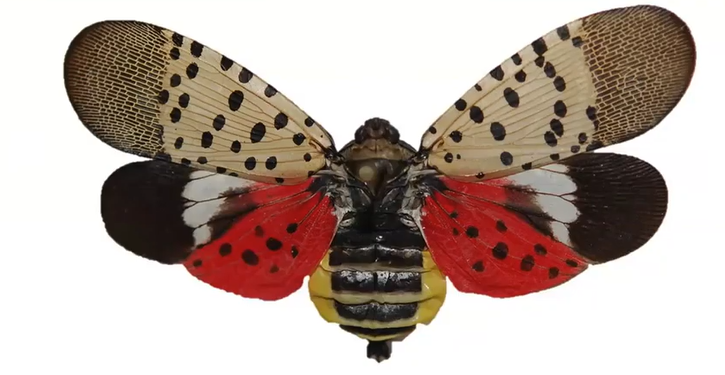
Course overview
The spotted lanternfly (Lycorma delicatula) is an invasive insect that is currently in the mid-Atlantic United States and has the potential to settle in California and have a profound impact on our agriculture and natural environment. A key to slowing the spread of spotted lanternfly is early detection and rapid response, which requires education of citizens and resource professionals. This course explores the pest's lifecycle, how they feed, travel and what to do if you see it in California.
Who should enroll?
Residents of California, Master Gardeners, Arborists, Nursery Professionals, and other stakeholders.
How to enroll
Continuing Education Units
- UC Master Gardeners are eligible for 1 hour of continuing education (CE) for completing this course.
- International Society of Arboriculture (ISA) (1.0 for ISA Certified Arborists, 1.0 Utility Specialist, 1.0 Municipal Specialist, 1.0 Climber Specialist, 1.0 Aerial Lift Specialist). To get the ISA Continuing Education Units certificate you will be charged a fee of $30.
Need Help?
- For assistance with login, course enrollment, contact campushelp@extension.org
- For assistance with progress through the course or certificate, contact mgtraining@ucanr.edu
The California Department of Agriculture and the University of California Master Gardener Program.
Teacher
Lauren Snowden, UC Master Gardener Online Training Specialist


This curriculum was developed to provide a uniform, publicly-available, research-based stormwater core curriculum to:
- Build comprehension of the fundamentals of stormwater management, stormwater practices and maintenance processes
- Develop an understanding of and skills that support communicating the importance of stormwater management to community stakeholders
This training is designed for stormwater professionals such as public works and parks department staff, private contractors, stormwater managers and homeowners associations or other landowners who are responsible for a stormwater management practice. For more information or to enroll please contact Shahram Missaghi, University of Minnesota, miss0035@umn.edu
- Teacher: Shahram Missaghi
- Teacher: Deborah Weitzenkamp
This is a self-paced course designed specifically for farmers and ranchers seeking to take control of their tax planning. Whether you’re new to tax management or looking to refine your approach, this course provides practical strategies tailored to agricultural producers.
In this course, you will:
- Strengthen your collaboration with your tax professional to ensure clear communication and effective planning.
- Develop a reliable, organized record-keeping system that not only meets tax requirements but also helps you maximize eligible deductions and credits.
- Shift your perspective on taxes from simply minimizing what you owe to strategically optimizing your after-tax income for greater financial success.
- Teacher: Jessica Groskopf
- Teacher: Lindsey McKeever

- Teacher: Saundra Frerichs
- Teacher: Kate Mobarak
- Teacher: Ann O'Connor
In this workshop, participants will explore what negotiation really is (and what it is not), how to prepare for and execute a successful negotiation, and how to preserve a relationship when the negotiation is not successful. You’ll have opportunities to discuss, problem solve, and practice negotiation approaches relevant to common labor management situations. You’ll also get support and feedback developing a written plan for a negotiation that you anticipate in the coming months. The workshop is part of the 2022 Farm Labor Dashboard Workshop Series, which focuses on helping farmers build practical labor management knowledge and skills.
Presenters: Mary Peabody and Beth Holtzman, University of Vermont Extension.
Session Format: Sessions will be delivered via Zoom. Connection information, along with additional resources and information will be available through the workshop site.
Fees. The workshop fee is $35. To purchase and enroll in the course, click the following button:
Scholarships and multi-session discounts are available for all the workshop in the series, reducing the workshop fee to $20. However, these options are only available for people who request – and receive approval – for reduced fees in advance of registration and payment. To request either a multi-session discount or scholarship, please fill out this online form.
Please wait to register until you hear back from us via email. Decisions are generally made within 3 business days. If you are approved, you will receive a voucher code that you will use during the registration/payment process to activate a reduced registration fee for the workshops you indicated you wish to enroll in.
- Instructor: Beth Holtzman
- Instructor: Mary Peabody

For more information, please contact:
Course Teacher:
Beatriz Nobua-Behrmann, Ph.D
benobua@ucanr.edu
University of California Cooperative Extension – Los Angeles and Orange County
South Coast Research and Extension Center
7601 Irvine Boulevard, Irvine CA 92618
(949) 301-9182 Ext. 1006
or
Jan Gonzales
jggonzales@ucanr.edu
Goldspotted Oak Borer Education and Outreach Program Coordinator
University of California Cooperative Extension - San Diego County
Tel: 858.822.7718
- Teacher: Janis Gonzales
- Teacher: Beatriz Nobua-Behrmann
- Teacher: UC IPM Online Training Support
- Teacher: Cheryl Reynolds
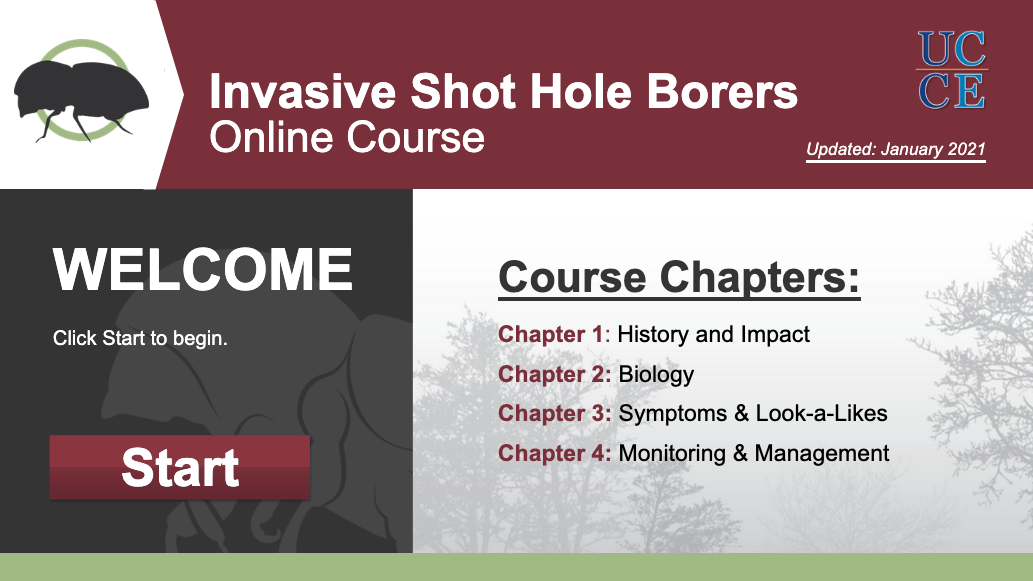

This course must be completed by December 30 of the current year. Download the certificate immediately when you complete the course. You will not be able to retrieve your certificate after December 30.
For more information, please contact:
Course Teacher:
Beatriz Nobua-Behrmann, Ph.D
benobua@ucanr.edu
University of California Cooperative Extension – Los Angeles and Orange County
South Coast Research and Extension Center
7601 Irvine Boulevard, Irvine CA 92618
(949) 301-9182 Ext. 1006
or
Randall Oliver
rdoliver@ucanr.edu
ISHB Communications Coordinator
Tel: 949.301.9182 ext. 1012
Mobile: 949.636.6411
- Teacher: Beatriz Nobua-Behrmann
- Teacher: UC IPM Online Training Support
- Teacher: Cheryl Reynolds
The
Sustainable Bioeconomy course examines the current and future opportunities and
challenges of bioproducts and bioenergy in society. This course explores
relationships between society’s economic demand for inexpensive energy and
products and our responsibility to produce these products in environmentally
and socially responsible ways. Students explore a range of bioproduct
categories including biofuels, virgin and recycled paper and wood products, and
advanced biomaterials. A panel of instructors from multiple disciplines and
bioeconomy stakeholders will share their diverse perspectives and experiences
in the bioeconomy. Students will learn about careers available in the growing
bioeconomy sector and the knowledge and skills necessary for these jobs.
- Teacher: Richard Venditti
The audience for this course is Family Child Care Home Providers. This online training includes videos, short quizzes, and activities. It has two parts.
- In Part 1: What to Feed Toddlers, you will learn the latest recommendations on WHAT to feed toddlers. These are the foods and beverages that are recommended. We will review milk & other beverages, grains and proteins, vegetables & fruits, and sugar & sodium.
- In Part 2: How to Feed Toddlers, we will focus on HOW to feed toddlers. We will review responsive feeding, meal & snack frequency, food choices, the feeding environment, and how to prevent choking.
Completion of this course provides 1.0 contact hours.
For more information or to enroll please contact dnilee@ucanr.edu.
- Teacher: Danielle Lee
The audience for this course is Family Child Care Home Providers for non-California residents. This online training includes videos, short quizzes, and activities. It has two parts.
- In Part 1: What to Feed Toddlers,
you will learn the latest recommendations on WHAT to feed toddlers.
These are the foods and beverages that are recommended. We will review
milk & other beverages, grains and proteins, vegetables &
fruits, and sugar & sodium.
- In Part 2: How to Feed Toddlers, we will focus on HOW to feed toddlers. We will review responsive feeding, meal & snack frequency, food choices, the feeding environment, and how to prevent choking.
Completion of this course provides 1.0 contact hours.
For more information please contact dnilee@ucanr.edu.
The fee for non-California residents is $15. To purchase and enroll, click the following button:
- Teacher: Danielle Lee

Course Overview
The University of California Agriculture and Natural Resources (UC ANR) Volunteer Annual Training is a necessary resource for adult volunteers working with minors. In this course, you will learn CANRA guidelines, the Thriving Model for Positive Youth Development, and 2-Deep Supervision. These sessions are designed to provide important prevention and reporting strategies to keep youth throughout our programs safe.
Length
55 Minutes (Can be completed over multiple sessions)
- CANRA for Volunteers - 30 minutes
- Thriving Model of PYD - 15 minutes
- 2-Deep Supervision - 5 minutes
Who Should Attend
All UC ANR volunteers who work with minors throughout the system that are outside of the 4-H Youth Development Program.
- Course Administrator: CA 4-H eXtension Tech Support
- Course Administrator: Scott Mautte
This is the training class for 2022 MG
- Director of Training : Mimi Enright
- Director of Training : Leslie Hart
- Director of Training : Judy Hatfield
- Director of Training : Laura Southworth
- Director of Training : Clio Tarazi
About the course
This course is functioning as a repository for UC Master Gardener Program related training that volunteers can view remotely. Recordings, online resources and quizzes, for volunteers will be posted here as they become available.
These training's count towards continuing education hours for UC Master Gardener volunteers.
Enrollment is free, click the Enroll me button to access the course.

- Coordinator: UC Master Gardener Online Training Support
- Coordinator: Lauren Snowden
Thank you for joining our UC Master Gardeners of Napa County’s online training test program for 2021. Your participation, and your feedback, will be important as we develop our new hybrid training program for certification. The certification program will begin in January 2022—and your help in 2021 will be invaluable.
In this program, we will present six core topics.
Introduction to Botany.
Living Soil, Till/No Till.
Water Management.
Entomology.
Plant Pathology.
UC IPM.
A new topic will be posted every two weeks, beginning Monday January 18, 2021. Students will have two weeks to complete the required assignments. Assignments will vary by topic, and may include reading, viewing a live or recorded presentation, participation in a live demonstration or follow-along with a hands-on project, participation in a live discussion with fellow students, completion of one or more worksheets, opportunity to dive deeper using suggested resources.
- Teacher: Cynthia Kerson
- Teacher: Yvonne Rasmussen


- Learn four key principles to guide chaperones in their overnight duties
- Highlight the general responsibilities of a CA 4-H overnight chaperone
- Review the protective practices which create culturally, emotionally, and physically safe environments for participants
- Address health and medical safety issues chaperones face in overnight settings
- Discuss positive behavior management strategies
For more Information about the course:
Scott C. Mautte
4-H Program Representative for Volunteer Development
University of California, Agriculture and Natural Resources
Email: idevelopsupport@ucanr.edu
- Teacher: Zeva Cho
- Teacher: CA 4-H eXtension Tech Support
- Teacher: Scott Mautte
- Teacher: Gemma Miner
The audience for this UF/IFAS Extension Broward County Master Gardener Training Online course is students who have applied, interviewed, and been accepted into our program. This online component will be the main class platform in addition to weekly live Zoom meetings.
For more information or to enroll, please contact Steve Deegan –teacher and content specialist- UF/IFAS Extension Broward County, Urban Horticulture Education and Master Gardener Volunteer Coordinator stephen.deegan@ufl.edu
- Teacher: Lorna Bravo
- Teacher: Stephen Deegan

The goal of this toolbox is to equip agricultural professionals (I.e., ag-educators, extension professionals, crop consultants) with a broad understanding of AI and its potential role in sustainable agriculture, along with knowledge, skills and abilities to strategically communicate about this emerging technology and its risks and opportunities with agricultural audiences.
The instructional video course includes 10 asynchronous lectures and associated activities that can be engaged with at participants' convenience. Participants who complete all modules will receive a certificate of completion from Washington State University's Center for Sustaining Agriculture and Natural Resources.
This course is intended to be open, accessible and free-of-charge. No coursework is required for completion. However, the course is available for .3 Continuing Education Units (CEUs) with a $10 fee. If you take the course for CEUs, the pre- and post-survey must be completed to receive credit. Instructions for taking the course for CEUs are provided in the opening section of the course.
Participants will have the opportunity to:
- achieve a deeper awareness of AI in both society and sustainable agriculture;
- grow their understanding of the risks and benefits of using AI systems to achieve sustainable agriculture goals;
- develop knowledge of behavioral models predicting AI adoption among different audiences;
- obtain skills in utilizing strategic science communication theory to construct, frame and diffuse messages surrounding AI, its risks and opportunities;
- improve their confidence and abilities to facilitate engagement with AI in sustainable agriculture.
- Presenter: Alex Kirkpatrick
- Presenter: Morgan Lawrence
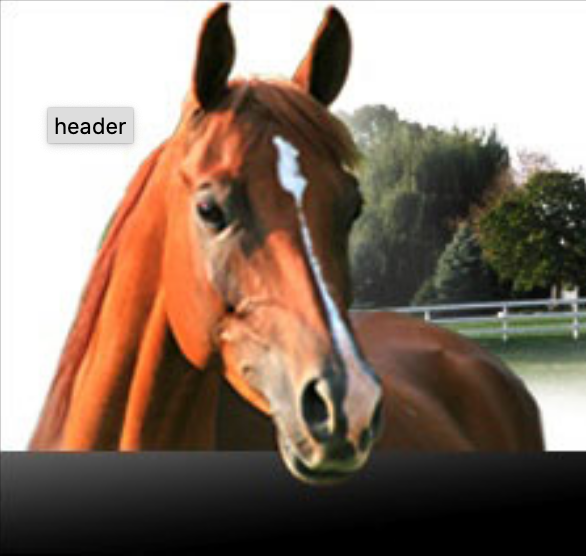
Understanding how a bit works in the horse's mouth will help you select the most appropriate bit for the job and appreciate the craftsmanship of well balanced and constructed bits.
The fee for this course is $10. To purchase and enroll in the course, click the following button.
If you purchase at least $40 worth of courses from this category, you can receive a 20% discount by entering the voucher code of HorseQuest20.
- Teacher: Kathy Anderson
- Teacher: Colleen Brady
- Teacher: Kris Hiney

Recertification credits are available for this course.
This pesticide recertification course covers fundamental concepts of toxicology and how to choose and handle pesticides safety. The course covers both short- and long-term health risks from handling pesticides and how to protect yourself.
This course has been approved by the Idaho State Department of Agriculture (ISDA) - Seminar #2024-637 for 1-ISDA pesticide credit.
If you have questions related to this course, please email: cals-ipm@uidaho.edu at University of Idaho Extension.
- Teacher: cals ipm


UNR 101 Signs and Symptoms of Illness (SOI) with Blood Borne Pathogens
Signs and Symptoms of Illness (SOI) including Blood Borne Pathogens: The Prevention and Control of Communicable Diseases in the Child Care Setting is for child care providers and early childhood educator.
This training discusses ways to recognize, prevent, and manage infectious diseases in early education and child care settings. Special precautions are discussed when handling bloodborne pathogens.
Course fee: $10.99 2-hours
Watch this video to learn how to create an account and pay for the course.
For Technical support email: campushelp@extension.org
Instructor email: childcare@unr.edu
- Teacher: Maria Jake
- Teacher: Stephanie May
- Teacher: Danielle Pertile
- Teacher: Cathryn Peshlakai
- Teacher: Lisa Whipple
- Teacher: Sarah Wright


UNR 102 Recognize and Reporting Child Abuse and Neglect
The focus of this course is to help childcare providers become familiar with the difficult subject of child abuse and neglect. In this course you will learn about:
There are 9 lesson in this course.
- Overview
- Physical Abuse
- Neglect
- Emotional Abuse
- Sexual Abuse
- Who are the abusers
- Disclosure
- Reporting
- Program Policies
View this video to learn how to create and account and pay for the course,
For Technical support email campushelp@extension.org
Instructor email: childcare@unr.edu
- Teacher: Maria Jake
- Teacher: Stephanie May
- Teacher: Danielle Pertile
- Teacher: Cathryn Peshlakai
- Teacher: Lisa Whipple
- Teacher: Sarah Wright


UNR 103 Sudden Infant Death Syndrome (SIDS)
Reducing the Risks of Sudden Infant Death Syndrome (SIDS)training is for Child Care Providers and Early Childhood Educators. This training discusses ways to lower the risk of SIDS in child care settings, addresses common beliefs, safe sleep practices, handling parent’s concerns and why some babies are at a higher risk for SIDS. This training promotes “Back to Sleep” and “Tummy to Play”.This training has been approved by Nevada Registry and the State of Maryland, Office of Child Care.
Course fee: $10.99 2-hours
Watch the following video to learn how to create an account and pay for the course.
For Technical support email: campusadmin@extension.org
Instructor email: childcare@unr.edu
- Teacher: Maria Jake
- Teacher: Stephanie May
- Teacher: Danielle Pertile
- Teacher: Cathryn Peshlakai
- Teacher: Lisa Whipple
- Teacher: Sarah Wright


UNR 104 Basic Wellness: Physical Activities, Nutrition and Obesity Prevention
Wellness-Physical Activities, Nutrition and Obesity Prevention is for Early Childhood Educators working with children Birth to 8 years. This training focuses on lifelong wellness related to childhood physical activity, nutrition and obesity prevention in the early childhood environment. The course contains age and developmental levels.
Course fee: $10.99 2-hours
Watch the following video to learn how to create an account and pay for the course.
For Technical support email: campushelp@extension.org
Instructor email: childcare@unr.edu
- Teacher: Maria Jake
- Teacher: Stephanie May
- Teacher: Danielle Pertile
- Teacher: Cathryn Peshlakai
- Teacher: Lisa Whipple
- Teacher: Sarah Wright


UNR 105 Wellness: Nutrition and Obesity Prevention in Young Children
Level: Intermediate
As we explore this subject, we’ll focus on the importance of wellness, nutrition and obesity prevention, especially at the intermediate level. Our goal is to equip you with knowledge that can make a lasting impact on children’s health.
Course fee: $10.99 2-hours
Watch this video to learn how to create an account and pay for a course.
For Technical support email: campushelp@extension.org
Instructor email: childcare@unr.edu
- Teacher: Maria Jake
- Teacher: Stephanie May
- Teacher: Danielle Pertile
- Teacher: Cathryn Peshlakai
- Teacher: Lisa Whipple
- Teacher: Sarah Wright


Course fee: $10.99 2-hours
Watch this video to learn how to create an account and pay for the course. .
For Technical support email: campushelp@extension.org
Instructor email: childcare@unr.edu
- Teacher: Maria Jake
- Teacher: Stephanie May
- Teacher: Danielle Pertile
- Teacher: Cathryn Peshlakai
- Teacher: Lisa Whipple
- Teacher: Sarah Wright


UNR 107 Child Development: Birth to three Years
This module will focus on the first three years of a child's life, when there is an enormous amount of growth and development. Our role in supporting children's progress is critical. What each of us does makes a difference. Topics include: Brain Development, Developmental Domains, the Role of the Teacher and Positive Interactions.
Course fee: $5.99 1-hour
Watch this video to learn how to create an account and pay for the course.
For Technical support email: campushelp@extension.org
Instructor email: childcare@unr.edu
- Teacher: Maria Jake
- Teacher: Stephanie May
- Teacher: Danielle Pertile
- Teacher: Cathryn Peshlakai
- Teacher: Lisa Whipple
- Teacher: Sarah Wright


UNR 108 Child Development: Three to Five Years
This module will focus on the preschool years ages three to five, when there is an enormous amount of growth and development. Our role in supporting children's progress is critical. What each of us does makes a difference. Topics include: Brain Development, Developmental Domains, the Role of the Teacher and Positive Interactions.
Course fee: $5.99 1-hour
For Technical support email: campushelp@extension.org
Instructor email: childcare@unr.edu
- Teacher: Maria Jake
- Teacher: Stephanie May
- Teacher: Danielle Pertile
- Teacher: Cathryn Peshlakai
- Teacher: Lisa Whipple
- Teacher: Sarah Wright


UNR 109 Child Development: Positive Guidance
This module will present the goals of positive guidance, misunderstandings about guidance, key practices, effective environments, common behavior challenges and offer positive guidance strategies for the classroom
Course fee: $5.99 1-hour
Technical support email: campushelp@extension.org
Instructor email: childcare@unr.edu
- Teacher: Maria Jake
- Teacher: Stephanie May
- Teacher: Danielle Pertile
- Teacher: Cathryn Peshlakai
- Teacher: Lisa Whipple
- Teacher: Sarah Wright


UNR 110 Emergency Preparedness for Early Childhood Programs
Being prepared for emergencies can make a big difference as to whether or not the children in your care and the staff in your program remain safe. In this course, you will learn about the necessary steps a program should take to ensure preparedness in the event of an emergency, as well as effective strategies to communicate your emergency plan to children, parents and staff.
For Technical support email: campushelp@extension.org
Instructor support email: childcare@unr.edu- Teacher: Maria Jake
- Teacher: Stephanie May
- Teacher: Danielle Pertile
- Teacher: Cathryn Peshlakai
- Teacher: Lisa Whipple
- Teacher: Sarah Wright


UNR 111 Medication Administration and the Prevention of and
Response to Food and Other Allergies in the Child Care Environment
This course is designed to provide childcare providers with information that will help safely administer medications to children in your program. This course is for childcare providers who administer medication to children but are not licensed health care professionals.
Course Fee: No charge
For Technical support email campushelp@extension.org
Instructor email: childcare@unr.edu
- Teacher: Maria Jake
- Teacher: Stephanie May
- Teacher: Danielle Pertile
- Teacher: Cathryn Peshlakai
- Teacher: Lisa Whipple
- Teacher: Sarah Wright


UNR 112 Prevention of Shaken Baby Syndrome and Abusive Head Trauma
This training describes causes, symptoms and consequences of Shaken Baby Syndrome/Abusive Head Trauma (SBS/AHT). The lesson further provides information on caring for a crying baby and how to cope with a baby who cries inconsolably.
Course Fee: No Charge
For Technical support, email: campushelp@extension.org
Instructor email: childcare@unr.edu
- Teacher: Maria Jake
- Teacher: Stephanie May
- Teacher: Danielle Pertile
- Teacher: Cathryn Peshlakai
- Teacher: Lisa Whipple
- Teacher: Sarah Wright


UNR 113 Transportation Safety
This course presents recommended practices and policies for the safe transport of young children to and from childcare programs.
Course fee: No charge
For Technical support email: campushelp@extension.org
Instructor email: childcare@unr.edu
- Teacher: Stephanie May
- Teacher: Danielle Pertile
- Teacher: Cathryn Peshlakai
- Teacher: Monica Salazar
- Teacher: Lisa Whipple
- Teacher: Sarah Wright

Building and Physical Premises Safety Including the Storage and
Handling of Bio-Contaminants and Hazardous Materials
This training can be taken to meet the initial training requirement for Building and Physical Premises Safety approved by NV Registry.
Course fee: No charge
For Technical support email: campushelp@extension.org
Instructor email: childcare@unr.edu
- Teacher: Stephanie May
- Teacher: Danielle Pertile
- Teacher: Cathryn Peshlakai
- Teacher: Monica Salazar
- Teacher: Chelsie Shurtleff
- Teacher: Lisa Whipple
- Teacher: Sarah Wright


UNR 115 Supporting Young Dual Language Learners
This training will provide participants with an understanding of young children who are dual language learners. We will explore the developmental domains and the stages of language development. Strategies will be presented for supporting home language and teaching strategies in the classroom.
Course fee: $5.99 1-hour
For Technical support email: campushelp@extension.org
Instructor email: childcare@unr.edu
- Teacher: Desiree Cabacar
- Teacher: Savannah Castanon
- Teacher: Maria Jake
- Teacher: Cathryn Peshlakai
- Teacher: Erin Skaggs
- Teacher: Lisa Whipple
- Teacher: Sarah Wright


UNR 116 Safe Practices with Infants and Toddlers
Ensuring the well-being of infants and toddlers requires careful attention to key areas such as nutrition, feeding techniques, and sleep safety. These foundational aspects not only support healthy development but also create a secure environment for young children to thrive.
Course fee: $5.99 1-hour
For Technical support email: campushelp@extension.org
Instructor email: childcare@unr.edu
- Teacher: Cathryn Peshlakai
- Teacher: Lisa Whipple
- Teacher: Sarah Wright


UNR 117 Family Engagement in Early Childhood
This training is designed
to guide educators of young children to establish and maintain open and
cooperative relationships with each child’s family. The course will focus on
effective communication, policies which promote cooperative relationships, and support
for families.
Topics will include
family involvement, conflict with families, conferences and community
resources.
Course fee: $5.99 1-hour
For Technical support email: campushelp@extension.org
Instructor email: childcare@unr.edu
- Teacher: Cathryn Peshlakai
- Teacher: Lisa Whipple
- Teacher: Sarah Wright


The Pyramid Model 100 is a comprehensive, resource for implementing the Pyramid Model for Promoting Social Emotional Competence in young children. Developed by leading experts including Mary Louise Hemmeter, Lise Fox, and Michaelene Ostrosky, it translates decades of research into actionable strategies for providers working with young children.
UNR-EC Pyramid Model 100 Fee: $5.99- Teacher: Cathryn Peshlakai
- Teacher: Lisa Whipple


UNR-EC Pyramid Model 200- Building Collaborative Relationships
The Pyramid Model 200 is a comprehensive, resource for implementing the Pyramid Model for Promoting Social Emotional Competence in young children. Developed by leading experts including Mary Louise Hemmeter, Lise Fox, and Michaelene Ostrosky, it translates decades of research into actionable strategies for providers working with young children.
UNR-EC Pyramid Model 200 Fee: $5.99
This course will issue a certificate for 1 hour of Nevada Registry approved training.
- Teacher: Cathryn Peshlakai
- Teacher: Lisa Whipple


UNR-EC Pyramid Model 300-
Environments, Schedules and Routines
The Pyramid Model is a comprehensive, resource for implementing the Pyramid Model for Promoting Social Emotional Competence in young children. Developed by leading experts including Mary Louise Hemmeter, Lise Fox, and Michaelene Ostrosky, it translates decades of research into actionable strategies for providers working with young children.
UNR-EC Pyramid Model 300 Fee: $5.99
This course will issue a certificate for 1 hour of Nevada Registry approved training.
- Teacher: Cathryn Peshlakai
- Teacher: Lisa Whipple


UNR-EC Pyramid Model 400-
Transitions, Expectations and Rules
The Pyramid Model is a comprehensive, resource for implementing the Pyramid Model for Promoting Social Emotional Competence in young children. Developed by leading experts including Mary Louise Hemmeter, Lise Fox, and Michaelene Ostrosky, it translates decades of research into actionable strategies for providers working with young children.
UNR-EC Pyramid Model 400 Fee: $5.99
This course will issue a certificate for 1 hour of Nevada Registry approved training.
- Teacher: Cathryn Peshlakai
- Teacher: Lisa Whipple


UNR-EC Pyramid Model 500- Promoting Child Engagement and
Using Positive Descriptive Feedback
The Pyramid Model 500 is a comprehensive, resource for implementing the Pyramid Model for Promoting Social Emotional Competence in young children. Developed by leading experts including Mary Louise Hemmeter, Lise Fox, and Michaelene Ostrosky, it translates decades of research into actionable strategies for providers working with young children.
UNR-EC Pyramid Model 500 Fee: $5.99
This course will issue a certificate for 1 hour of Nevada Registry approved training.
- Teacher: Cathryn Peshlakai
- Teacher: Lisa Whipple


UNR-EC Pyramid Model 600 Teaching Strategies and Emotional Literacy
The Pyramid Model Bundle is a comprehensive, resource for implementing the Pyramid Model for Promoting Social Emotional Competence in young children. Developed by leading experts including Mary Louise Hemmeter, Lise Fox, and Michaelene Ostrosky, it translates decades of research into actionable strategies for providers working with young children.
UNR-EC Pyramid Model 600 Fee: $5.99
This course will issue a certificate for 1 hour of Nevada Registry approved training.
- Teacher: Cathryn Peshlakai
- Teacher: Lisa Whipple
- Teacher: Sarah Wright


UNR-EC Pyramid Model 700-
Friendship Skills and Social Problem Solving
The Pyramid Model Bundle is a comprehensive, resource for implementing the Pyramid Model for Promoting Social Emotional Competence in young children. Developed by leading experts including Mary Louise Hemmeter, Lise Fox, and Michaelene Ostrosky, it translates decades of research into actionable strategies for providers working with young children.
UNR-EC Pyramid 700 Fee: $5.99
This course will issue a certificate for 1 hour of Nevada Registry approved training.
- Teacher: Cathryn Peshlakai
- Teacher: Lisa Whipple


UNR-EC Pyramid Model 800 Understanding, Preventing and
Responding to Challenging Behavior
The Pyramid Model training is a comprehensive, resource for implementing the Pyramid Model for Promoting Social Emotional Competence in young children. Developed by leading experts including Mary Louise Hemmeter, Lise Fox, and Michaelene Ostrosky, it translates decades of research into actionable strategies for providers working with young children.
UNR-EC Pyramid Fee: $5.99
This course will issue a certificate for 1 hour of Nevada Registry approved training.
- Teacher: Cathryn Peshlakai
- Teacher: Lisa Whipple
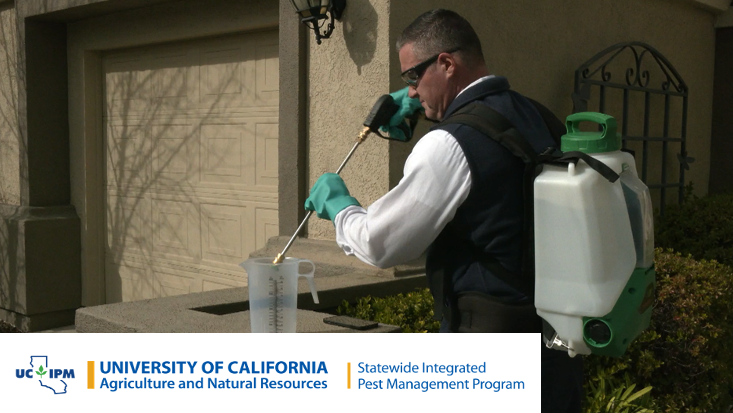

This course presents information on calibrating application equipment and calculating the amount of pesticide needed for applications, specifically pyrethroids to impervious and porous surfaces. In addition, the steps of pesticide reporting on monthly
pesticide use reports are explained. This course is available for free. The course contains video so it requires a device that can play audio and video.
Who should enroll?
Pest management professionals who work primarily in structural pest control or landscape maintenance.
Continuing Education Units
California Department of Pesticide Regulation (1.0 hour Other) and by the Structural Pest Control Board (1.0 hour towards Rules & Regulations, Technical (Br 2 or 3), or PAU for Applicators, FR, or OPR).
Enrollment period
This course must be completed by December 30 of the current year. Download the certificate immediately when you complete the course. You will not be able to retrieve your certificate after December 30.
Need help?
For assistance with login or course enrollment, contact campushelp@extension.org. For assistance with progress through the course or certificate, contact
UCIPMcourses@ucanr.edu.
- Technical support: UC IPM Online Training Support


Course overview
This course presents information on alternatives to pesticides around structures in urban environments. It discusses pest identification and biology, monitoring and thresholds, preventive and nonchemical pest control
methods, and chemical controls in the forms of baits, dusts, or sprays. This course is available for free. The course contains video so it requires a device that can play audio and video.
Who should enroll?
Pest management professionals who work primarily in structural pest control or landscape maintenance.
Continuing Education Units
California Department of Pesticide Regulation (1.0 hour Other) and by the Structural Pest Control Board (1.0 hours towards IPM).
Enrollment period
This course must be completed by December 30 of the current year. Download the certificate immediately when you complete the course. You will not be able to retrieve your certificate after December 30.
Need help?
For assistance with login or course enrollment, contact campushelp@extension.org. For assistance with progress through the course or certificate, contact
UCIPMcourses@ucanr.edu.
- Technical support: UC IPM Online Training Support
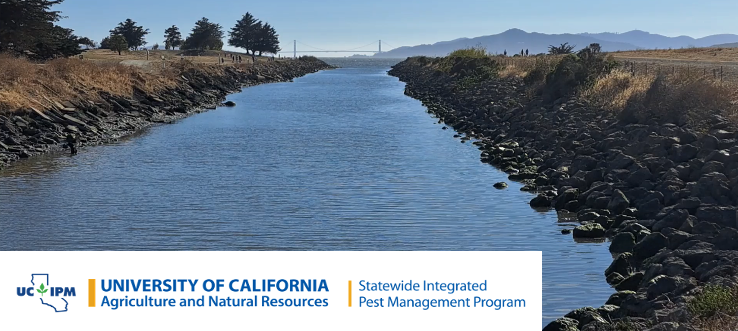

Course overview
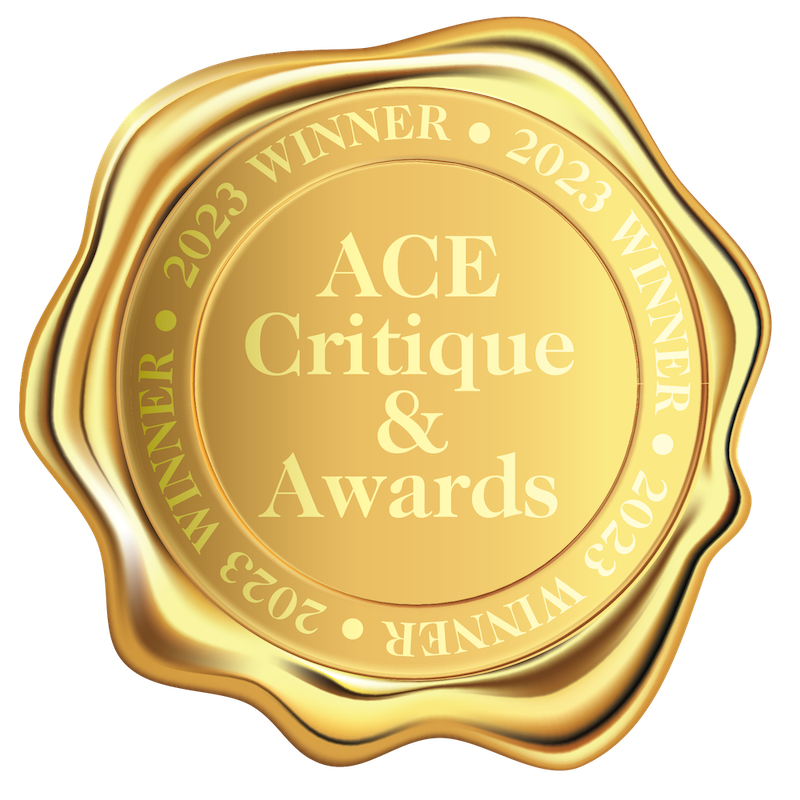 This course won 2023 Gold Award from the Association for Communication Excellence (ACE). The course presents information on the Surface Water Protection Regulations that were put into place to reduce the amount of pyrethroids in surface water runoff.
It discusses the types of applications allowed under the regulations as well as those that are prohibited and those that are exempt. This course is available for free. The course contains video so it requires a device that can play audio and video.
This course won 2023 Gold Award from the Association for Communication Excellence (ACE). The course presents information on the Surface Water Protection Regulations that were put into place to reduce the amount of pyrethroids in surface water runoff.
It discusses the types of applications allowed under the regulations as well as those that are prohibited and those that are exempt. This course is available for free. The course contains video so it requires a device that can play audio and video.
Who should enroll?
Pest management professionals who work primarily in structural pest control or landscape maintenance.
Continuing Education Units
California Department of Pesticide Regulation (1.5 hours Laws & Regulations) and by the Structural Pest Control Board (1.5 hours Rules and Regulations). To
get the Continuing Education Units certificate you will be charged a
fee of $60. To encourage taking the course earlier in the year, we offer
50% off the regular price from January through October 31st – use the code ipm50 at checkout. You must download the certificate (PDF file) to receive your CEU credits.
Enrollment period
This course must be completed by December 30 of the current year. Download the certificate immediately when you complete the course. You will not be able to retrieve your certificate after December 30.
Need help?
For assistance with login or course enrollment, contact campushelp@extension.org. For assistance with progress through the course or certificate, contact
UCIPMcourses@ucanr.edu.
- Technical support: UC IPM Online Training Support

- Teacher: Debra Heleba

This course is designed for Vermont gardeners interested in learning science-based information on a wide range of gardening topics including basic botany, vegetable gardening, perennials and annuals, ecological soil management, insect and disease pests, tree care, pollinator plants, landscape design, and tree and small fruit management. Students learn from University faculty and horticulture industry experts.
This is a 16-week online course available to students in two Tracks: Track 1 (Volunteer Certification Track) and Track 2 (at-your-own pace). See detailed information about the course at: https://go.uvm.edu/emgcourse. The course runs from January 23 to May 15 with access to all materials until June 26, 2026.
The fee for this course is $400 for Vermont residents and $550 for out-of-state residents.
NOTE: The fee does not cover the required course manual.
- Coordinator: Debra Heleba
Course Name: VAEAP-The Basics of Keeping Alpacas
The course contains video so it requires a computer that can play audio and video.
Contact and technical support: Robert Masson, masson@arizona.edu.
- Teacher: Jody Dean
- Teacher: Don Dinwiddie
- Teacher: Robert Masson
Veterans Agriculture Education and Assistance Program (VAEAP) in the Southwest
This VAEAP orientation video will ensure you are aware of the requirements of the program and will also cover the last paperwork you need to fill out and return. After the orientation video, please fill out and sign the last three pages of the Participant Protocols.
Once your paperwork is submitted, you'll be sent a code so that you can access all of the VAEAP curriculum.
- Teacher: Jody Dean
- Teacher: Don Dinwiddie
- Teacher: Robert Masson
Veterans Agricultural Education and Apprenticeship Program in the Southwest
Course Name: Transplant Production
Presenter: Ursula Schuch, Ph.D., School of Plant Sciences, University of Arizona
The course contains video, requiring a computer that can play audio and video.
Contact and technical support: Robert Masson, masson@arizona.edu.
- Teacher: Don Dinwiddie
Veterans Agricultural Education and Apprenticeship Program in the Southwest
Course Name: Asexual Plant Propagation
Presenter: Ursula Schuch, Ph.D., School of Plant Sciences, University of Arizona
The course contains video, requiring a computer that can play audio and video.
Contact and technical support: Robert Masson, masson@arizona.edu.
- Teacher: Don Dinwiddie
- Teacher: Robert Masson
Course Name: VAEAP - Hoop House Build at AVG
This video shows the construction of a Hoop House kit at the Avra Valley Growers. Thank you to Bruce Laird for hosting VAEAP participants
The course contains video so it requires a computer that can play audio and video.
- Teacher: Jody Dean
- Teacher: Don Dinwiddie
- Teacher: Robert Masson
Course Name: VAEAP-Introduction to Careers and Business Opportunities in Agriculture and Horticulture
This is the required class for the Veterans Ag Education and Apprenticeship Program. We go over the different career possibilities in agriculture and other green industries. If you have any questions, please contact the professors. Dr. Ursula Schuch: uschuch@arizona.edu Trent Teegerstrom: tteegers@ag.arizona.edu Dr. Edward Franklin: uafrank0@arizona.edu
The course contains video so it requires a computer that can play audio and video.
- Teacher: Jody Dean
- Teacher: Don Dinwiddie
- Teacher: Robert Masson
Veterans Agricultural Education and Apprenticeship Program in the Southwest
Course Name: Introduction to Plant Propagation
Presenter: Ursula Schuch, Ph.D., School of Plant Sciences, University of Arizona
The course contains video, requiring a computer that can play audio and video.
Contact and technical support: Robert Masson, masson@arizona.edu.
- Teacher: Don Dinwiddie
- Teacher: Robert Masson
Veterans Agricultural Education and Apprenticeship Program in the Southwest
Course Name: Sexual Plant Propagation
Presenter: Ursula Schuch, Ph.D., School of Plant Sciences, University of Arizona
The course contains video, requiring a computer that can play audio and video.
Contact and technical support: Robert Masson, masson@arizona.edu.
- Teacher: Don Dinwiddie
- Teacher: Robert Masson
Veterans Agricultural Education and Apprenticeship Program in the Southwest
Course Name: Vegetable crop production methods for Yuma
Presented by: Robert Masson, UArizona, Yuma County Cooperative Extension, Asst. Agricultural Agent
Course Overview:
Robert Masson, UArizona, Yuma County Cooperative Extension Asst. Agricultural Agent. Robert will discuss U.S. vegetable production of the 20th and 21st century as well as modern farming considerations. He will also look at Yuma production methods such as Tillage, Seeding and Transplanting, Fertilizers and crop Nutrition, and Irrigation methods.
The course contains video so it requires a computer that can play audio and video.
Contact and technical support: Robert Masson, masson@arizona.edu.
- Teacher: Don Dinwiddie
- Teacher: Robert Masson
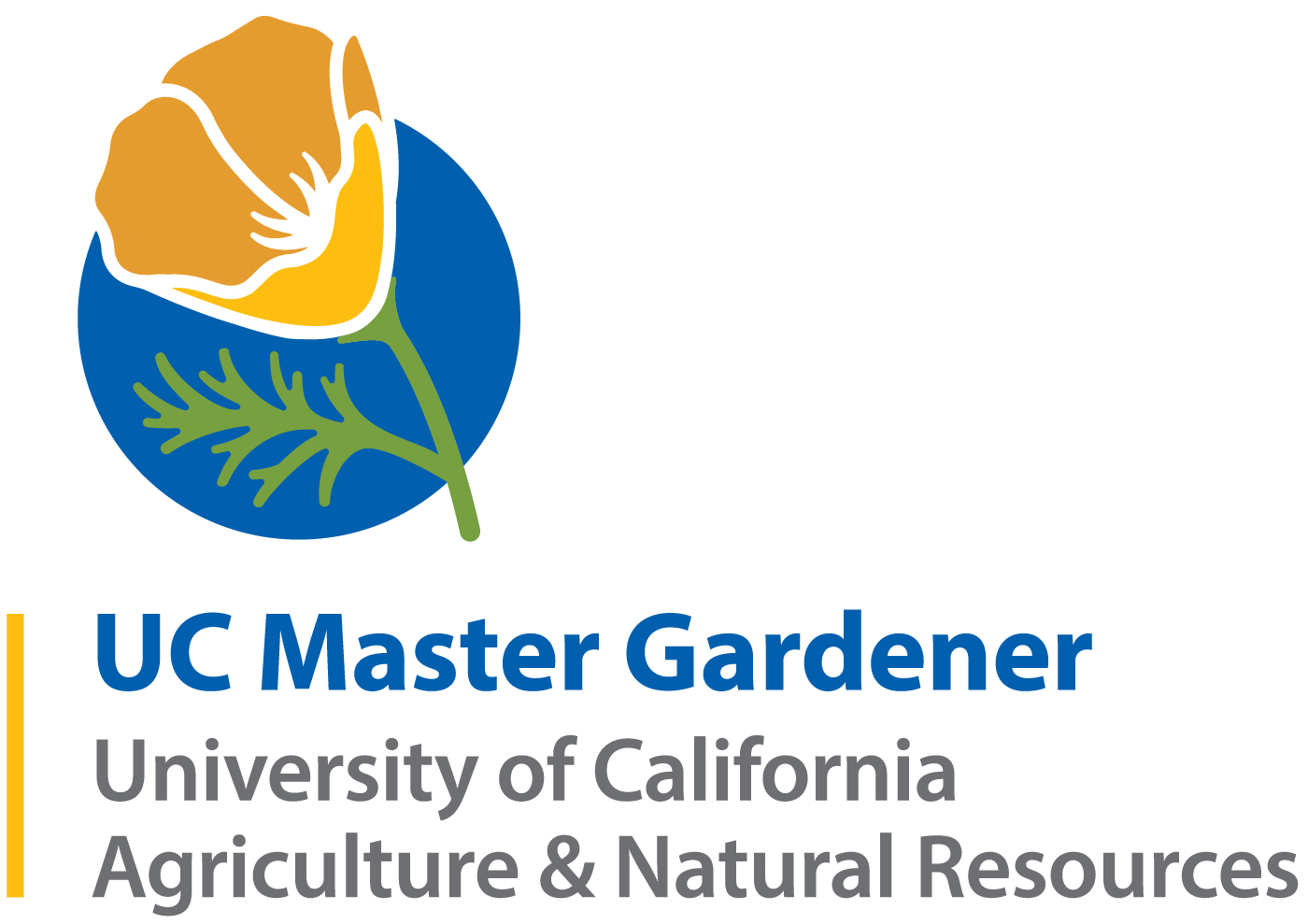
Are you curious about how to start growing your own vegetables? Do you have gaps in your vegetable gardening knowledge that might be holding you back? Would you like to become familiar with world-class UCANR resources that will help you solve your gardening problems?
If so, please join us, as we guide a series of discussions on topics that will help answer your questions and give you the skills and confidence to grow vegetables successfully. Discover the value of learning about UCANR's science resources.
This Vegetable Gardening for Beginners course covers the basic principles of growing your own vegetables. After you complete the course by attending all four days of instruction, you receive a UCMGCC certificate as a Growing Gardener in Vegetable Gardening.
TOPICS:
* Building healthy living soil
* Selecting and planting your vegetables
* Harnessing the power of pollinators and beneficial insects
* Efficiently irrigating your garden
* Using UC best practices and resources
This course is ideal for beginners. Lessons cover the basic principles of gardening and include guidelines for Contra Costa County’s unique growing conditions. Participants who complete the course by attending all four days of instruction will become UC certified Growing Gardeners In Vegetable Gardening

- Class Support: Growing Gardeners Class Support
The audience for this course includes Vermont custom manure applicator business owners and employees and interested ag service providers.
As a result of taking this course, participants will learn about Vermont’s Required Agricultural Practices (RAPs), regulatory requirements for custom manure applicators in Vermont, nutrient management plans as they relate to custom applicators, and record-keeping requirements. This course includes videos which requires a good internet connection.
For more information, suggestions, or feedback: Lindsey Ruhl, University of Vermont Extension, lindsey.ruhl@uvm.edu.
- Teacher: Susan Brouillette
- Teacher: Lindsey Ruhl
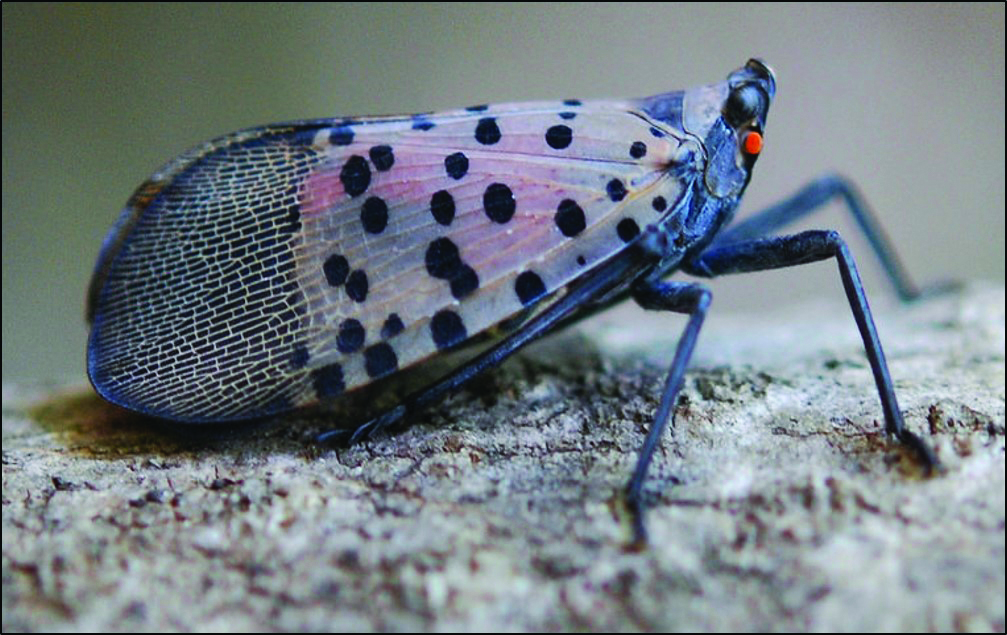
Vermont's Forest Pest First Detectors Program
Help protect Vermont’s forests against invasive forest pests. Learn to detect, report, and educate others on pests such as hemlock woolly adelgid, emerald ash borer and spotted lanternfly.
Who Should Join?
- Graduates of UVM Extension's Master Gardener program.
- People interested in trees and forests.
- Beginners welcome; no prior knowledge required.
- Forest Pest First Detectors looking for a refresher.
By the end of this course, you will be able to:
- Understand and explain the threat of introduced tree pests to forest health.
- Identify the host trees, signs and symptoms, and look-alikes of key forest insects and pathogens.
- Use resources like VTinvasives.org for information.
- Report suspected pest infestations.
- Volunteer to help in your community (optional)
Course Dates: March 8 – May 2, 2026
This free, course features 10 sections with videos,
articles, podcasts, and self-assessment exercises.
Questions?
Contact Ginger at ginger.nickerson@uvm.edu or 802-656-4831
Note: Continuing education credits are not available for this course.
- Teacher: Gwen Kozlowski
- Teacher: Ginger Nickerson
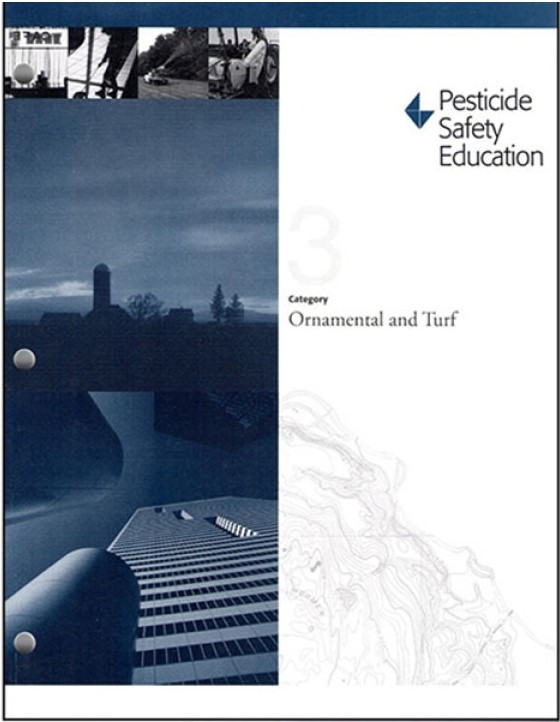
- This course is for anyone wishing a Vermont* 3B Turf pesticide applicator license: landscapers, golf course supervisors and employees, sport field groundskeepers, pest control operators, government or municipal employees, university employees, etc.
- This course is not intended as a substitute for study of the manual and inserts.
- This course does not provide recertification credit. Please see related Vermont Pesticide Safety Education course offerings for recertification credits.
For more information please contact Sarah Kingsley-Richards at sarah.kingsley@uvm.edu.
Presented by University of Vermont Extension Pesticide Safety Education Program and the Vermont Agency of Agriculture, Food & Markets. [Published 2024]
*NOTE: Anyone using the Category 3 Ornamental and Turf manual for other state pesticide applicator certification may also use this review. Please check with your state certifying agency for local laws, regulations, and additional required study materials.
The fee for this course is $40. To purchase and enroll in the course, click the following button:
- Teacher: Sarah Kingsley-Richards
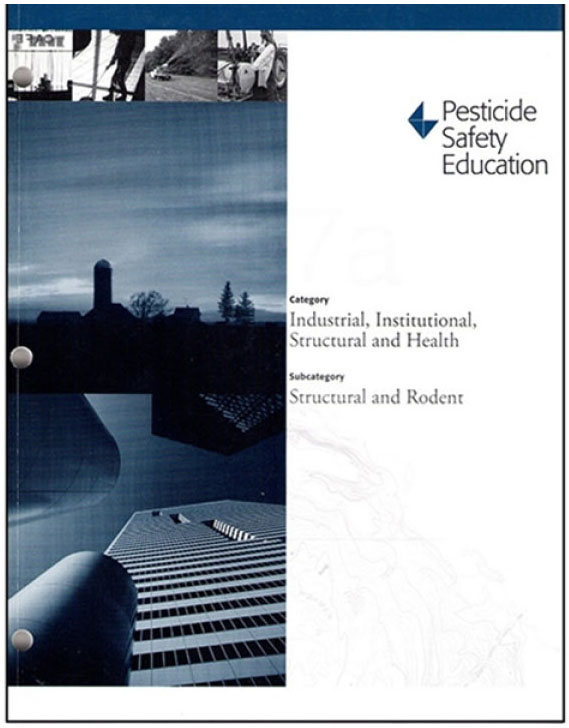
- This course is for anyone wishing a Vermont* 7A General (Structural) Pest Control pesticide applicator license: pest control operators, government or municipal employees, university employees, etc.
- This course is not intended as a substitute for study of the manual and inserts (see list below).
- This course does not provide recertification credit. Please see related Vermont Pesticide Safety Education course offerings for recertification credits.
For more information please contact Sarah Kingsley-Richards at sarah.kingsley@uvm.edu.
Presented by University of Vermont Extension Pesticide Safety Education Program and the Vermont Agency of Agriculture, Food & Markets. [Published 2020]
*NOTE: Anyone using the Category 7a Subcategory Structural and Rodent manual for other state pesticide applicator certification may also use this review. Please check with your state certifying agency for local laws, regulations, and additional required study materials.
The fee for this course is $40. To purchase and enroll in the course, click the following button:
- Teacher: Sarah Kingsley-Richards
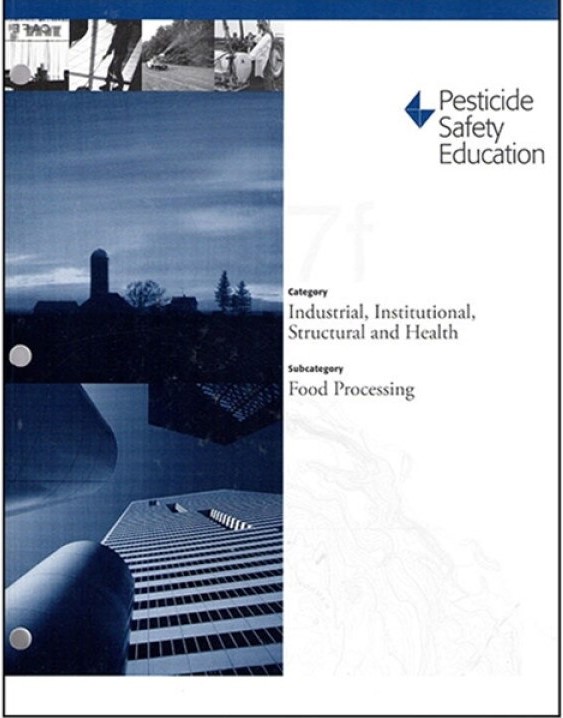
- This course is for anyone wishing a Vermont* 7C Food Processing pesticide applicator license: pest control operators and employees in bakeries, dairy product processing, canning and frozen food packing, confection manufacturing, meat product processing plants, restaurant kitchens, cafeteria kitchens, food hubs, etc.
- This course is not intended as a substitute for study of the manual and inserts (see list below).
- This course does not provide recertification credit. Please see related Vermont Pesticide Safety Education course offerings for recertification credits.
For more information please contact Sarah Kingsley-Richards at sarah.kingsley@uvm.edu.
Presented by University of Vermont Extension Pesticide Safety Education Program and the Vermont Agency of Agriculture, Food & Markets. [Published 2024]
*NOTE: Anyone using the Category 7f Subcategory Food Processing manual for other state pesticide applicator certification may also use this review. Please check with your state certifying agency for local laws, regulations, and additional required study materials.The fee for this course is $40. To purchase and enroll in the course, click the following button:
- Teacher: Sarah Kingsley-Richards
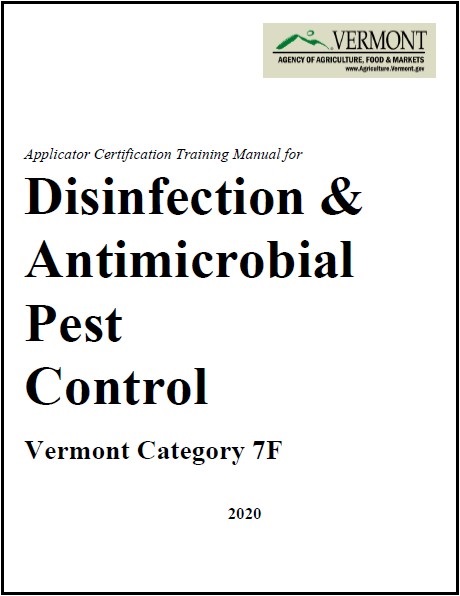
- This course is for anyone wishing a Vermont* 7F Disinfection & Antimicrobial Pest Control pesticide applicator license (required to perform disinfecting or sanitizing services to the property of others using an EPA registered pesticide): pest control operators, government or municipal employees, university employees, etc.
- This course is not intended as a substitute for study of the manual and inserts (see list below).
- This course does not provide recertification credit. Please see related Vermont Pesticide Safety Education course offerings for recertification credits.
For more information please contact Sarah Kingsley-Richards at sarah.kingsley@uvm.edu.
Presented by University of Vermont Extension Pesticide Safety Education Program and the Vermont Agency of Agriculture, Food & Markets. [Published 2022]
*NOTE: Anyone using the Vermont Category 7F Disinfection & Antimicrobial Pest Contro manual for other state pesticide applicator certification may also use this review. Please check with your state certifying agency for local laws, regulations, and additional required study materials.The fee for this course is $30. To purchase and enroll in the course, click the following button:
- Teacher: Sarah Kingsley-Richards
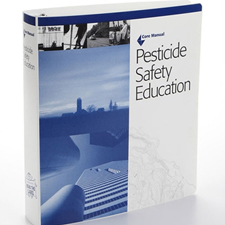
Anyone in the state of Vermont who uses, supervises, recommends, or
sells pesticides and/or trains Worker Protection Standard
handlers/workers may be required to take and pass the CORE exam and all
appropriate category exams to become certified. Certification is
administered by the Vermont Agency of Agriculture, Food & Markets to
ensure that pesticides are used in a proper and legal manner.
- This course is for anyone wishing a Vermont pesticide applicator license: nursery employees, landscapers, farmers, agricultural employers (WPS compliance), garden center employees, pest control operators, government or municipal employees, university employees, etc.
- This course is not intended as a substitute for study of the CORE manual and inserts.
- This course does not provide recertification credit. Please see related Vermont Pesticide Safety Education course offerings for recertification credits.
For more information please contact Sarah Kingsley-Richards at sarah.kingsley@uvm.edu.
Presented by University of Vermont Extension Pesticide Safety Education Program and the Vermont Agency of Agriculture, Food & Markets. [Published 2018]
NOTE: Anyone using the Northeast CORE Manual, 3rd Edition, for other state pesticide applicator certification may also use this review. Vermont-specific laws and regulations do not apply to other state certification; Vermont-specific information may be skipped over in this review. Please check with your state certifying agency for local laws, regulations, and additional required study materials.
The fee for this course is $40. To purchase and enroll in this course, click the following link:
- Teacher: Sarah Kingsley-Richards
As a result of taking this course, participants will learn about Vermont’s Required Agricultural Practices (RAPs), how to take a soil sample and interpret results, how to take a manure sample and interpret results, field by field nutrient management planning, record-keeping requirements, and how to calibrate manure spreaders. This course includes videos, resources, references, and worksheets.
For more information or to enroll contact: Lindsey Ruhl, University of Vermont Extension, lindsey.ruhl@uvm.edu.
This course has been made possible with generous funding from the Vermont Agency of Agricultural Food and Markets Clean Water Initiative Grant, "Innovative Training Tools to Help Small Farm Operations Comply with Required Agricultural Practices," grant #02200-ARM-CWF-2017-UVM.
- Teacher: Lindsey Ruhl
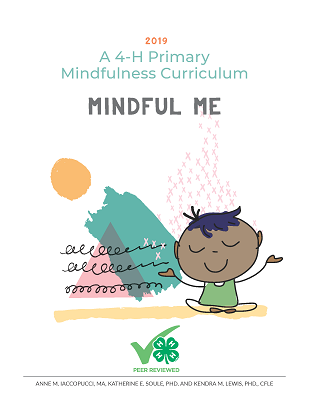 This course contains the video supplements to the 4-H Mindful Me Curriculum. Participants should access this course and watch the video associated with the current lesson that they are completing.
This course contains the video supplements to the 4-H Mindful Me Curriculum. Participants should access this course and watch the video associated with the current lesson that they are completing. - Teacher: Zeva Cho
- Teacher: CA 4-H eXtension Tech Support
- Teacher: Anne Iaccopucci
- Teacher: Scott Mautte
- Teacher: Gemma Miner
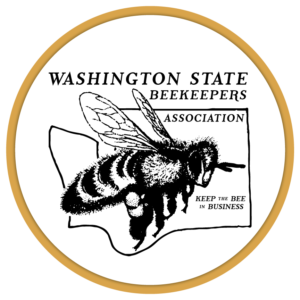
The WASBA Master Beekeeper Course is run by Washington State University and the Washington State Beekeepers Association (WASBA). Students are admitted after submitting applications to WASBA and finishing a screening process. This course covers beekeeping management practices, advanced honeybee biology, scientific methods for investigating bee related issues, and more!
Please contact Bri Price at briana.price@wsu.edu for information.
- Teacher: Priya Chakrabarti Basu
- Teacher: Bri Price
Washington State 4-H Volunteer Orientation is an online course designed to orient new 4-H volunteers. Participants will learn:
- Volunteer Roles & Relationships
- Positive Youth Development
- Youth/Adult Partnerships
- Safe & Inclusive Environments
- Learn by Doing
For more information contact Jana S. Ferris, Washington State University, ferrisj@wsu.edu
- Teacher: Jana Ferris

Over 20 weeks, explore 26 fascinating topics, such as plant identification, integrated pest management, and climate-conscious gardening. Learn from WSU experts through self-paced online modules, engaging activities, and optional live review sessions via Zoom.
Course Objectives:
- Master key concepts in botany, soil science, and pest management.
- Learn to identify plants, diagnose plant problems, and implement sustainable gardening practices.
- Connect with a community of passionate gardeners.
- Become a certified WSU Extension Master Gardener volunteer and give back to your community (optional).
Important Dates and Information:
Registration: This course is no longer accepting registrations. Please contact cahnrs.greenschool.extension@wsu.edu to find out about future course offerings.
Current Online Classes Begin: October 5.
Live Review Sessions: Weekly, with options for both daytime and evening attendance (recordings available).
Final Exam: Opens February 15, open-book, open-note, with research encouraged.
Course Access: You'll have access to all classes and course recordings for one full year.
Textbook: PNW Gardeners Handbook: Growing for the Future (included in course fees).
- Instructor: WA Green School Team
- Instructor: Bryce Battisti
- Instructor: Jennifer Marquis
The audience for this course is: Crop producers, handlers, and anyone interested in food safety
By taking this course, students will learn:
Basic microbiology concepts, where pathogens come from and be able to explain where pathogens can be found and how they can contaminate fresh produce.
For more information or to enroll please contact:
- Teacher: Paul Goeringer
- Teacher: Jill Goedeken
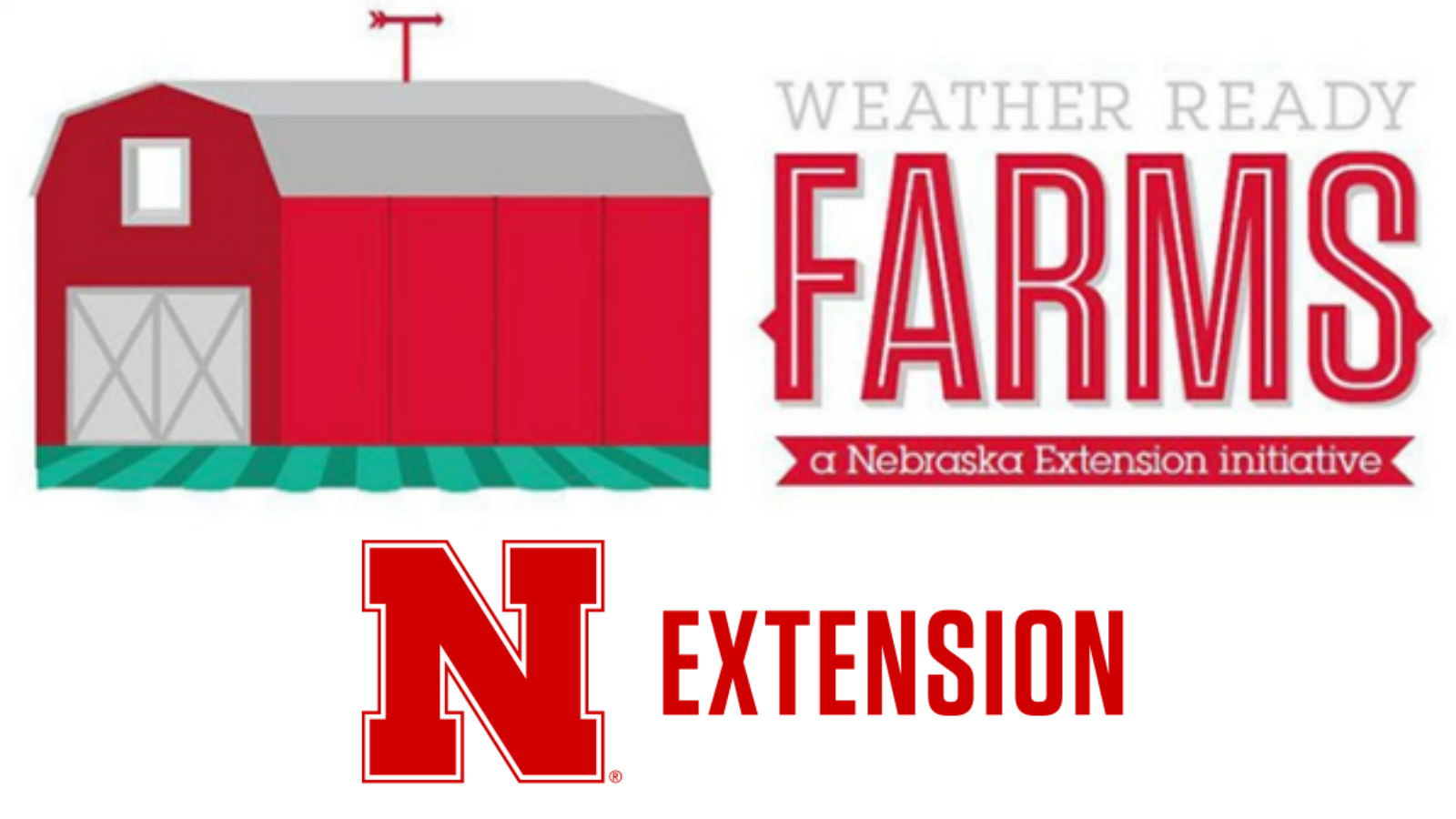 The Weather Ready Farms Designation Program from the University of Nebraska Extension is an agricultural education program aimed at offering farmers new strategies and technologies to prepare for extreme weather events and climate variation.
The Weather Ready Farms Designation Program from the University of Nebraska Extension is an agricultural education program aimed at offering farmers new strategies and technologies to prepare for extreme weather events and climate variation.
Farmers that participate in our two-year program learn about conservation, natural resources management, improving soil health, disaster preparedness, farm financial management, climate-smart agriculture, precision agriculture, and many more topics. WRF participants use their farm resiliency education to implement new weather-ready agriculture practices on their farm.
To learn more go to: https://weather-ready.unl.edu/
If you are interested in starting a Weather Ready Farms program at your extension site, contact Nathan Mueller at nathan.mueller@unl.edu.
- Extension Educator: Candace Hulbert
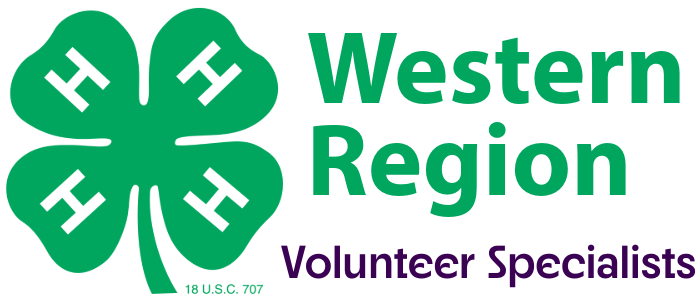
This course is set up for the Western Region Volunteer Specialists to review materials for the 4-H Orientation Refresher project.
This is not available to the general public.
If you are a Western Region Volunteer Specialist working on this project and are having difficulty enrolling, please contact me using the information below:
Scott Mautte
Email: scmautte@ucanr.edu
4-H Community Education Specialist III: Statewide Staff and Volunteer Development
University of California, Agriculture and Natural Resources
- State Administrator : CA 4-H eXtension Tech Support
- State Administrator : Scott Mautte
- Instructor: Gemma Miner
This course guides participants through a process to realistically evaluate their goals and resources and provides the tools to evaluate the feasibility of starting a sustainable small acreage enterprise in Idaho. Course topics include whole farm planning, resource evaluation, site-appropriate production practices, market analysis and enterprise budgets. Upon course completion, project participants will have the knowledge and skills to engage in whole farm planning.Note:
Course enrollment is limited to participants in Idaho and Washington.
For more information or to enroll please contact Kate Wood, University of Idaho, at cultivatingsuccess@uidaho.edu.
- Instructor: Colette DePhelps
- Instructor: Kate Wood
Este curso proporciona la información necesaria para capacitar a quienes capacitarán a trabajadores agrícolas y manipuladores de pesticidas bajo la Ley Nacional de Protección al Trabajador (WPS, por sus siglas en inglés) de la EPA de EUA. Éste lo guiará a través de los procedimientos necesarios para proporcionar información requerida a los trabajadores agrícolas y manipuladores de pesticidas sobre cómo evitar la exposición a pesticidas y residuos de pesticidas.
La finalización de este curso lo certifica como un capacitador WPS calificado de trabajadores agrícolas y manipuladores de pesticidas en los Estados Unidos continentales, Alaska, Hawái, Puerto Rico, Guam y las Islas Vírgenes de los EE. UU. Antes de inscribirse, debe consultar con la agencia reguladora de pesticidas de su estado o tribu para conocer los posibles requisitos adicionales. Nota: este curso no cumplirá los requisitos de capacitación del capacitador en California para el Departamento de Regulación de Pesticidas de California. Y no cumplirá los requisitos de capacitación del capacitador en Arizona para el Departamento de Agricultura de Arizona. Debe contactarlos directamente para obtener una lista de cursos que lo harán.
Cada año, se publicará una nueva oferta del curso actual. Esto permitirá a los estudiantes retomar el curso según lo necesiten los empleadores y las agencias reguladoras. La oferta del año anterior estará disponible en el perfil del estudiante en caso de que necesite acceder a un certificado anterior. Tenga en cuenta que el contenido será idéntico cada año, a menos que se indique lo contrario que hubo una revisión del curso.
Computadora: Se recomienda: Mac OXC 10.9 o superior o una PC con Windows 7 o superior.
Navegador: Se recomienda firmemente el uso de: Google Chrome o Mozilla Firefox. Se desalienta rotundamente: otros navegadores diferentes a los mencionados arriba. Otros navegadores pudieran funcionar pero hemos experimentado problemas de desempeño durante pruebas (e.g., Internet Explorer, Microsoft Edge, etc.) eXtension no puede responder a las consultas de solución de problemas si los clientes están utilizando un navegador no recomendado.
Audio: Este curso contiene narración en audio. Para escuchar la narración, su computadora necesitará tener bocinas de audio internas o conectados. Usted también puede escuchar el audio a través de audífonos.
Para mas información, contacte: PERCsupport@ucdavis.edu.
Si tiene preguntas sobre soporte técnico (p. ej., inscripción, pagos, etc.), comuníquese con cataloghelp@extension.org.
Para inscribirse, vea abajo.
Lista de Verificación de Finalización del Curso
- Completar los módulos en orden (12)
- Completar las Verificaciones del Conocimiento para cada módulo (12)
- Tomar el Examen Final (debe de obtener un 70% para aprobar)
- Completar la evaluación
- Descargar el certificado
- Enviar el certificado. Usted es responsable de identificar y enviar su certificado a las entidades apropiadas.
La tarifa de inscripción para este curso es $75. Para comprar e inscribirse en este curso haga clic aquí:
Política de No Reembolso - A menos que no pueda obtener acceso a el curso usando uno de los sistemas operativos o navegadores requeridos, PERC no emitirá un reembolso. Si tiene alguna pregunta sobre nuestra Política de No Reembolso, por favor contáctenos en percsupport@ucdavis.edu.
- Teacher: Suzanne Forsyth
- Teacher: Christian Gella
- Teacher: Hannah Moore
Este curso ya no está abierto para inscripciones.
Este curso en línea es la Capacitación en Línea para Capacitadores de Trabajadores Agrícolas y Manipuladores de Pesticidas de la Ley Nacional de Protección al Trabajador. El curso fue desarrollado por el Centro de Recursos de Colaboración para la Educación sobre Pesticidas (PERC, por sus siglas en inglés) a través de un acuerdo cooperativo (acuerdo #X8-83616301) entre la Oficina de Programas de Pesticidas de la Agencia de Protección Ambiental de EUA (EPA, por sus siglas en ingles) y el Programa de Extensión de la Universidad de California Davis, en colaboración con la Universidad Estatal de Oregón. Numero de aprobación EPA WPS TTT W/H 00030.La finalización de este curso lo certifica como un capacitador WPS calificado de trabajadores agrícolas y manipuladores de pesticidas en los Estados Unidos continentales, Alaska, Hawái, Puerto Rico, Guam y las Islas Vírgenes de los EE. UU. Antes de inscribirse, debe consultar con la agencia reguladora de pesticidas de su estado o tribu para conocer los posibles requisitos adicionales. Nota: este curso no cumplirá los requisitos de capacitación del capacitador en California para el Departamento de Regulación de Pesticidas de California. Debe contactarlos directamente para obtener una lista de cursos que lo harán.
Cada año, se publicará una nueva oferta del
curso actual. Esto permitirá a los estudiantes retomar el curso según lo
necesiten los empleadores y las agencias reguladoras. La oferta del año anterior estará disponible
en el perfil del estudiante en caso de que necesite acceder a un certificado
anterior. Tenga en cuenta que el contenido será idéntico cada año, a menos que
se indique lo contrario que hubo una revisión del curso.
Computadora: Se recomienda: Mac OXC 10.9 o superior o una PC con Windows 7 o superior.
Navegador: Se recomienda firmemente el uso de: Google Chrome o Mozilla Firefox. Se desalienta rotundamente: otros navegadores diferentes a los mencionados arriba. Otros navegadores pudieran funcionar pero hemos experimentado problemas de desempeño durante pruebas (e.g., Internet Explorer, Microsoft Edge, etc.) eXtension no puede responder a las consultas de solución de problemas si los clientes están utilizando un navegador no recomendado.
Audio: Este curso contiene narración en audio. Para escuchar la narración, su computadora necesitará tener bocinas de audio internas o conectados. Usted también puede escuchar el audio a través de audífonos.
Para mas información, contacte: PERCsupport@ucdavis.edu.
Si tiene preguntas sobre soporte técnico (p. ej., inscripción, pagos, etc.), comuníquese con cataloghelp@extension.org.
Para
inscribirse, vea abajo.
Lista de Verificación de Finalización del Curso
- Completar los módulos en orden (12)
- Completar las Verificaciones del Conocimiento para cada módulo (12)
- Tomar el Examen Final (debe de obtener un 70% para aprobar)
- Completar la evaluación
- Descargar el certificado
- Enviar el certificado. Usted es responsable de identificar y enviar su certificado a las entidades apropiadas.
Política de No Reembolso - A menos que no pueda obtener acceso a el curso usando uno de los sistemas operativos o navegadores requeridos, PERC no emitirá un reembolso. Si tiene alguna pregunta sobre nuestra Política de No Reembolso, por favor contáctenos en percsupport@ucdavis.edu.
- Teacher: Suzanne Forsyth
- Teacher: Hannah Moore
Este curso ya no está abierto para inscripciones.
Este curso en línea es la Capacitación en Línea para Capacitadores de Trabajadores Agrícolas y Manipuladores de Pesticidas de la Ley Nacional de Protección al Trabajador. El curso fue desarrollado por el Centro de Recursos de Colaboración para la Educación sobre Pesticidas (PERC, por sus siglas en inglés) a través de un acuerdo cooperativo (acuerdo #X8-83616301) entre la Oficina de Programas de Pesticidas de la Agencia de Protección Ambiental de EUA (EPA, por sus siglas en ingles) y el Programa de Extensión de la Universidad de California Davis, en colaboración con la Universidad Estatal de Oregón. Numero de aprobación EPA WPS TTT W/H 00030.La finalización de este curso lo certifica como un capacitador WPS calificado de trabajadores agrícolas y manipuladores de pesticidas en los Estados Unidos continentales, Alaska, Hawái, Puerto Rico, Guam y las Islas Vírgenes de los EE. UU. Antes de inscribirse, debe consultar con la agencia reguladora de pesticidas de su estado o tribu para conocer los posibles requisitos adicionales. Nota: este curso no cumplirá los requisitos de capacitación del capacitador en California para el Departamento de Regulación de Pesticidas de California. Debe contactarlos directamente para obtener una lista de cursos que lo harán.
Cada año, se publicará una nueva oferta del
curso actual. Esto permitirá a los estudiantes retomar el curso según lo
necesiten los empleadores y las agencias reguladoras. La oferta del año anterior estará disponible
en el perfil del estudiante en caso de que necesite acceder a un certificado
anterior. Tenga en cuenta que el contenido será idéntico cada año, a menos que
se indique lo contrario que hubo una revisión del curso.
Computadora: Se recomienda: Mac OXC 10.9 o superior o una PC con Windows 7 o superior.
Navegador: Se recomienda firmemente el uso de: Google Chrome o Mozilla Firefox. Se desalienta rotundamente: otros navegadores diferentes a los mencionados arriba. Otros navegadores pudieran funcionar pero hemos experimentado problemas de desempeño durante pruebas (e.g., Internet Explorer, Microsoft Edge, etc.) eXtension no puede responder a las consultas de solución de problemas si los clientes están utilizando un navegador no recomendado.
Audio: Este curso contiene narración en audio. Para escuchar la narración, su computadora necesitará tener bocinas de audio internas o conectados. Usted también puede escuchar el audio a través de audífonos.
Para mas información, contacte: PERCsupport@ucdavis.edu.
Si tiene preguntas sobre soporte técnico (p. ej., inscripción, pagos, etc.), comuníquese con cataloghelp@extension.org.
Para
inscribirse, vea abajo.
Lista de Verificación de Finalización del Curso
- Completar los módulos en orden (12)
- Completar las Verificaciones del Conocimiento para cada módulo (12)
- Tomar el Examen Final (debe de obtener un 70% para aprobar)
- Completar la evaluación
- Descargar el certificado
- Enviar el certificado. Usted es responsable de identificar y enviar su certificado a las entidades apropiadas.
Política de No Reembolso - A menos que no pueda obtener acceso a el curso usando uno de los sistemas operativos o navegadores requeridos, PERC no emitirá un reembolso. Si tiene alguna pregunta sobre nuestra Política de No Reembolso, por favor contáctenos en percsupport@ucdavis.edu.
- Teacher: Suzanne Forsyth
- Teacher: Hannah Moore


This training meets the requirements for all adults working with you in WSU programming. Participants will gain awareness of WSU Executive Policy 14 Protection and Safety of Minors and learn the policies related to working with youth.
- Teacher: Jana Ferris
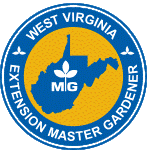
The West Virginia University Extension
Master Gardener Program provides people interested in gardening with the
opportunity to expand their knowledge and sharpen their skills by taking part
in Basic/Level 1 training program that provides in-depth training in various
aspects of horticulture. This program helps residents better understand
horticultural and environmental issues through community engagement in
gardening and beautification projects at schools, parks, public institutions,
community organizations, and locations throughout the state.
Over sixteen weeks, trainees will receive 48 hours of instruction in botany, plant propagation, entomology, pesticides and pest management, plant disease, soil science and nutritional management, turf grass management, vegetable gardening, tree fruits, small fruit, pruning, landscape design, woody ornamentals, indoor plants, herbaceous plants, and garden wildlife management.
To register, please reach out to your local WVU Extension Agent.
- Teacher: Mirjana Bulatovich-Danilovich
Yuma County Cooperative Extension (YCCE) offers Certified Crop Adviser (CCA) accredited courses available online on-demand. The $20 enrollment cost covers admission to all courses made by YCCE that only offer CCA credit. YCCE courses that offer AZDA or CA-DPR IPM certification are not covered with this cost. To access a list of YCCE CCA courses visit our website at www.yumaextension.com
Courses included in this bundle are:
- 2023 SWAG Fertilizer Management
- 2023 SWAG Irrigation
- 2023 SWAG Soil Health
- 24 SWAG Fertilizer
- 24 SWAG Weather and Water
- 24 SWAG Plant Breeding
- 24 SWAG Water and Salt
- 24 Soil Health
- Teacher: Don Dinwiddie
- Teacher: Robert Masson






